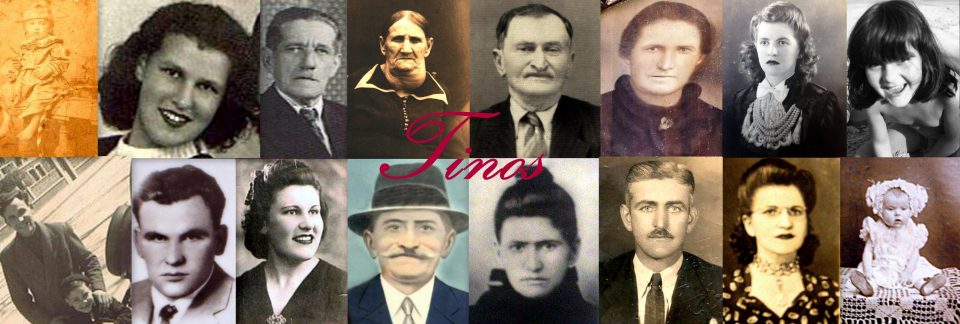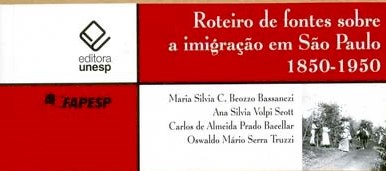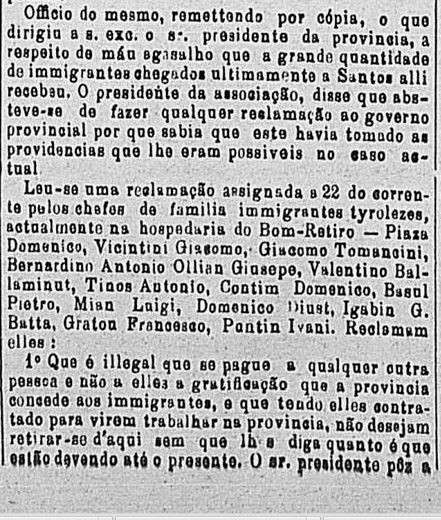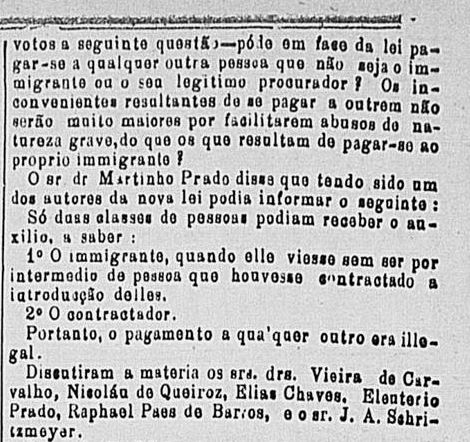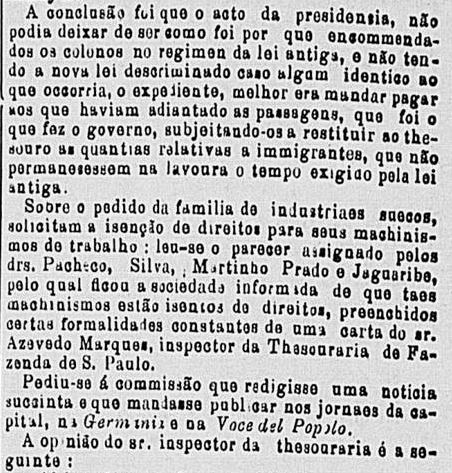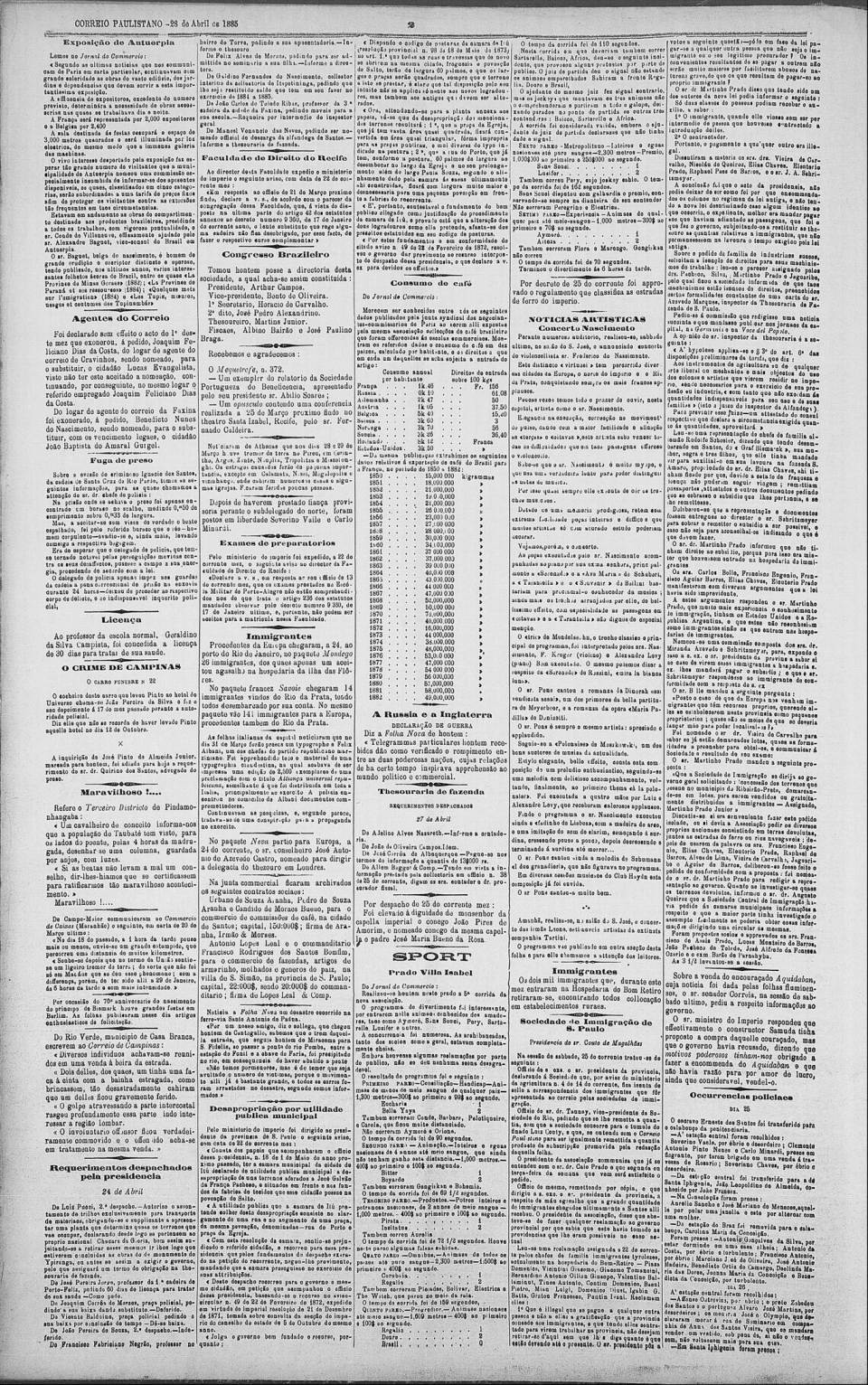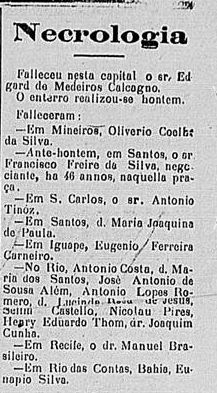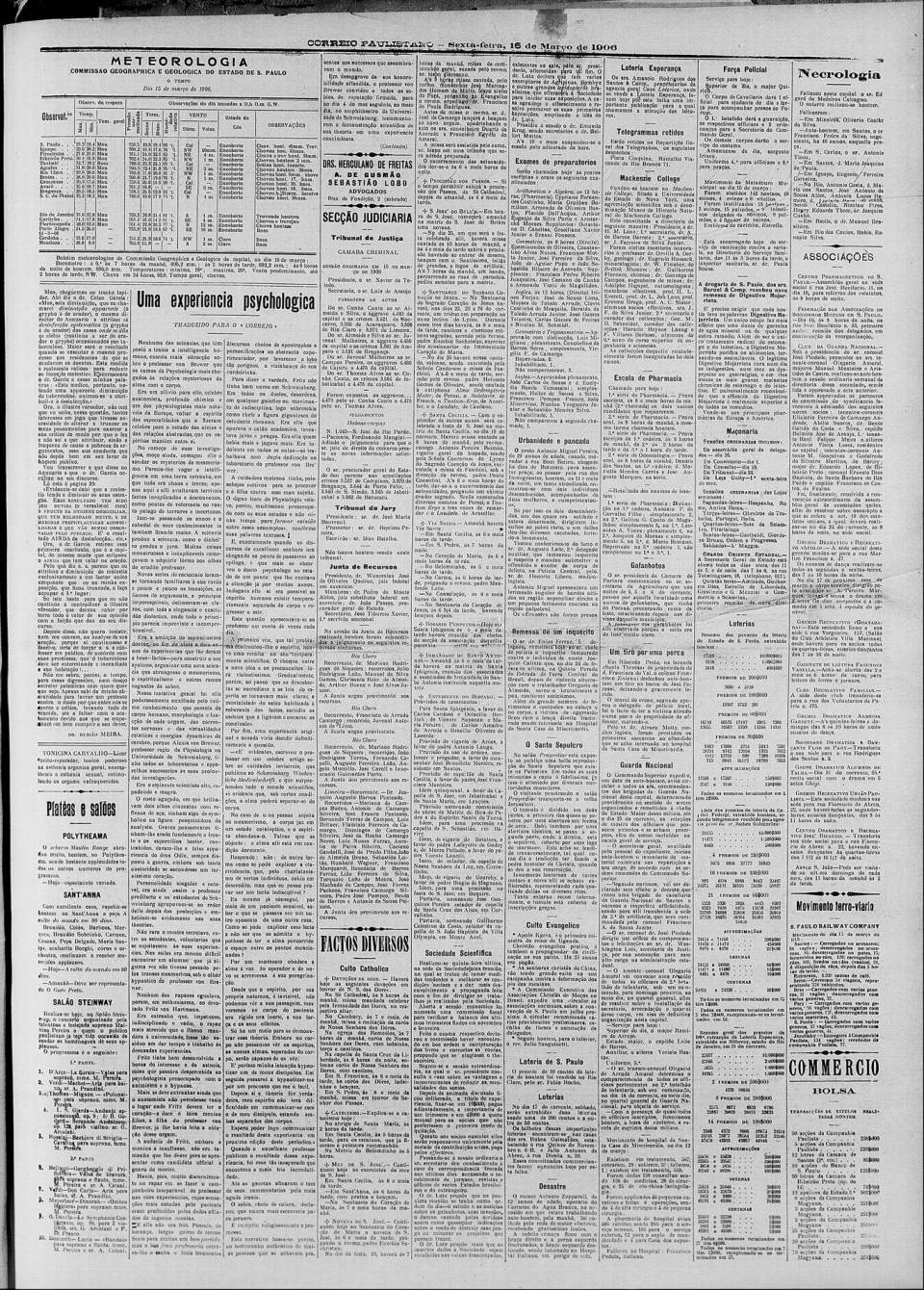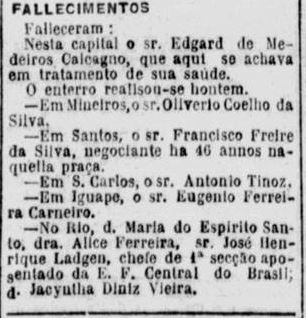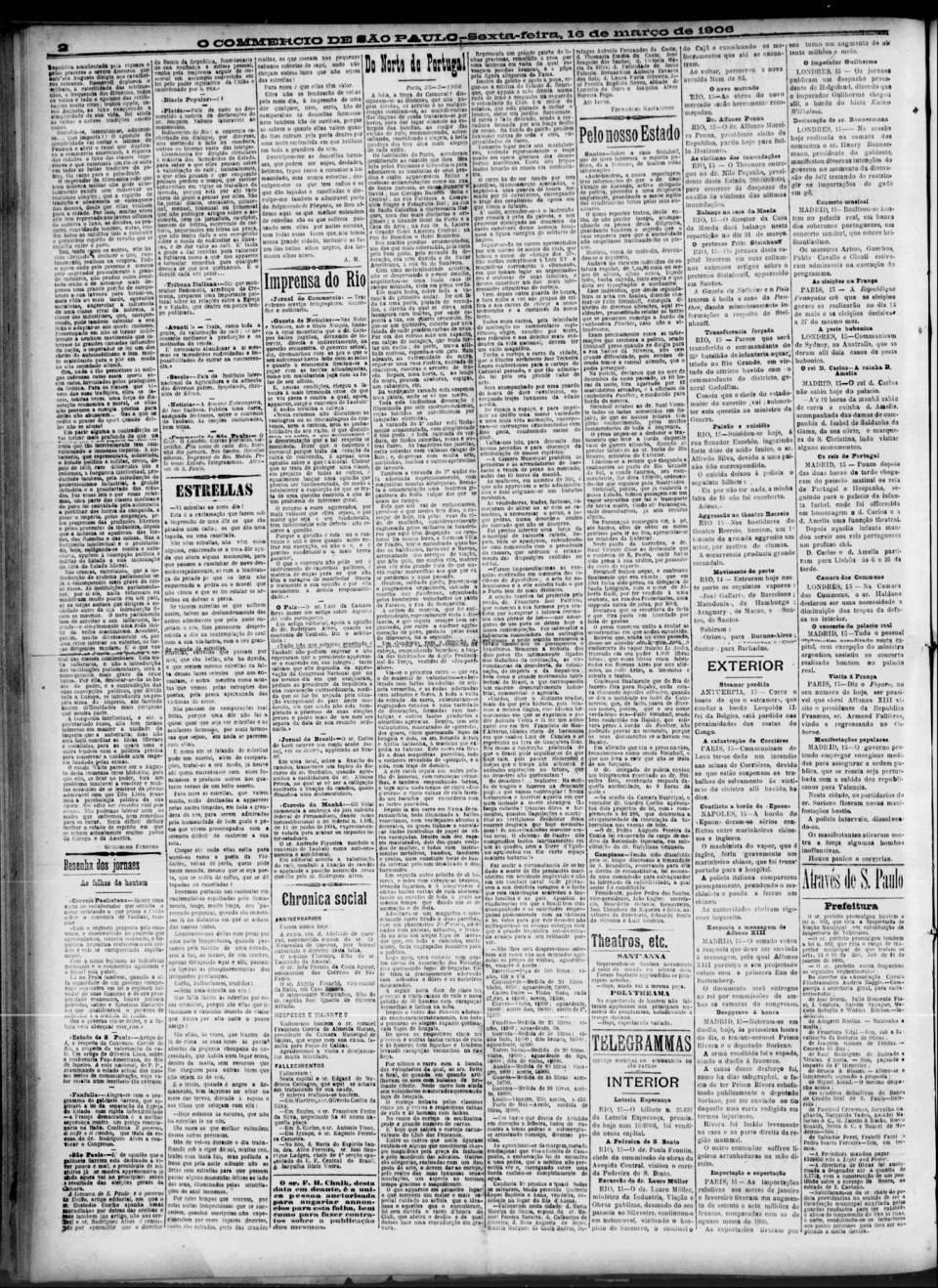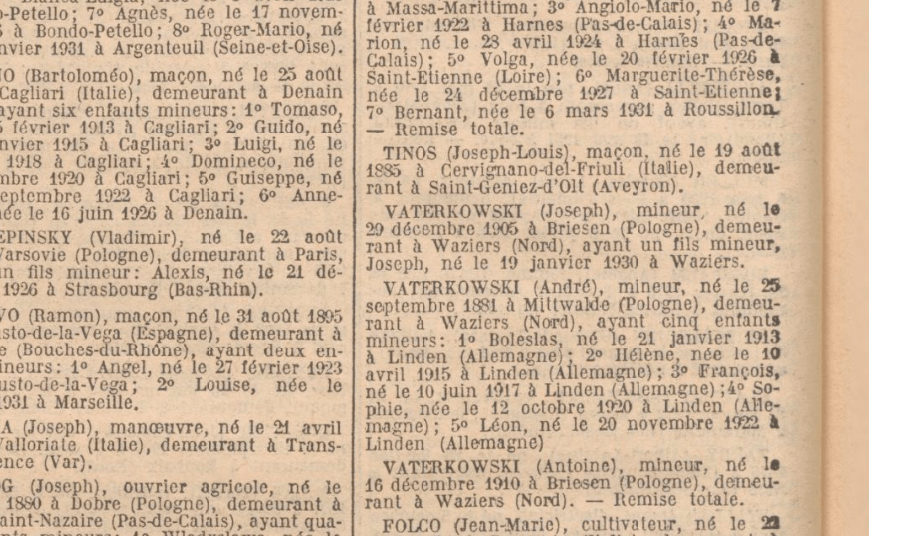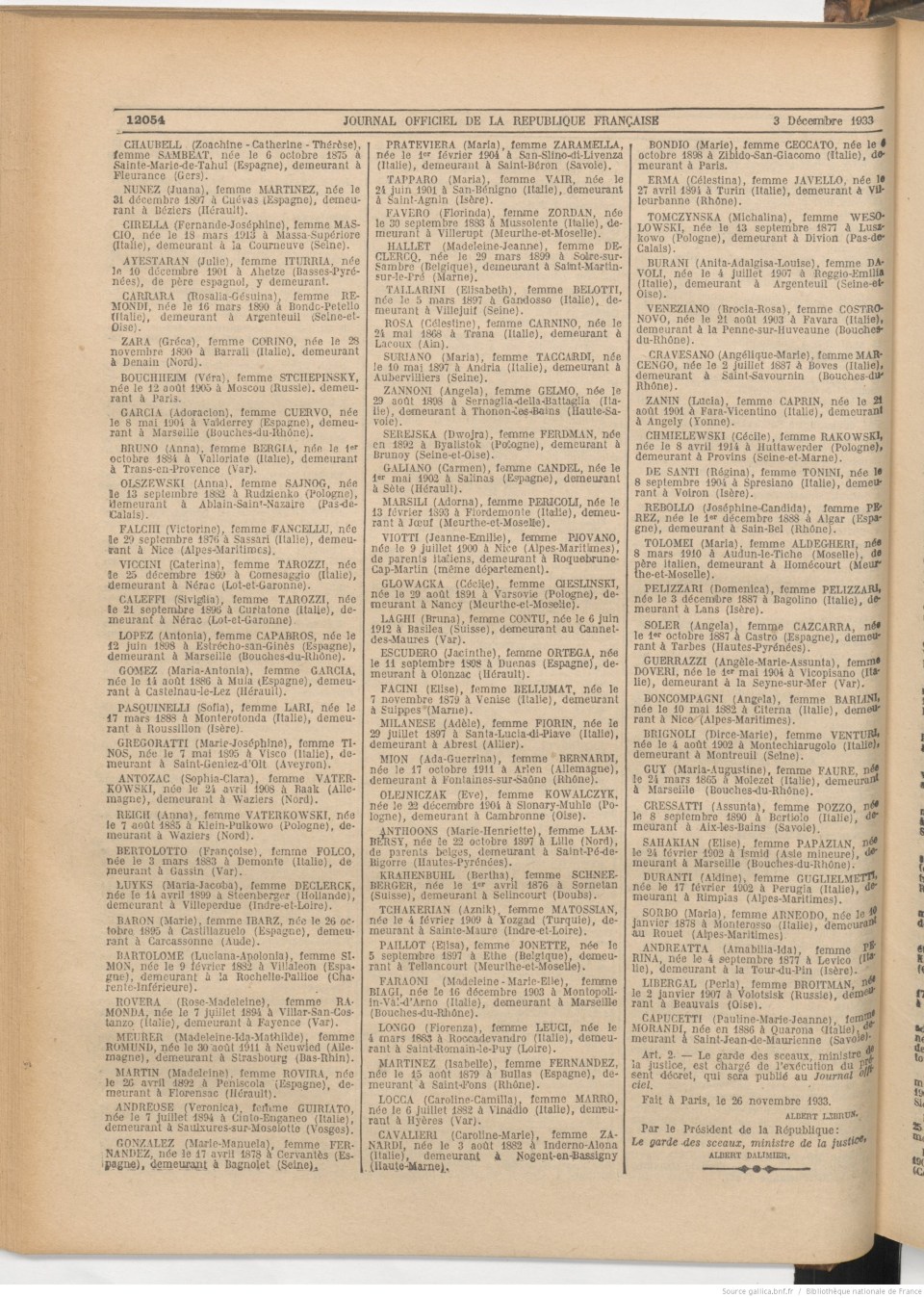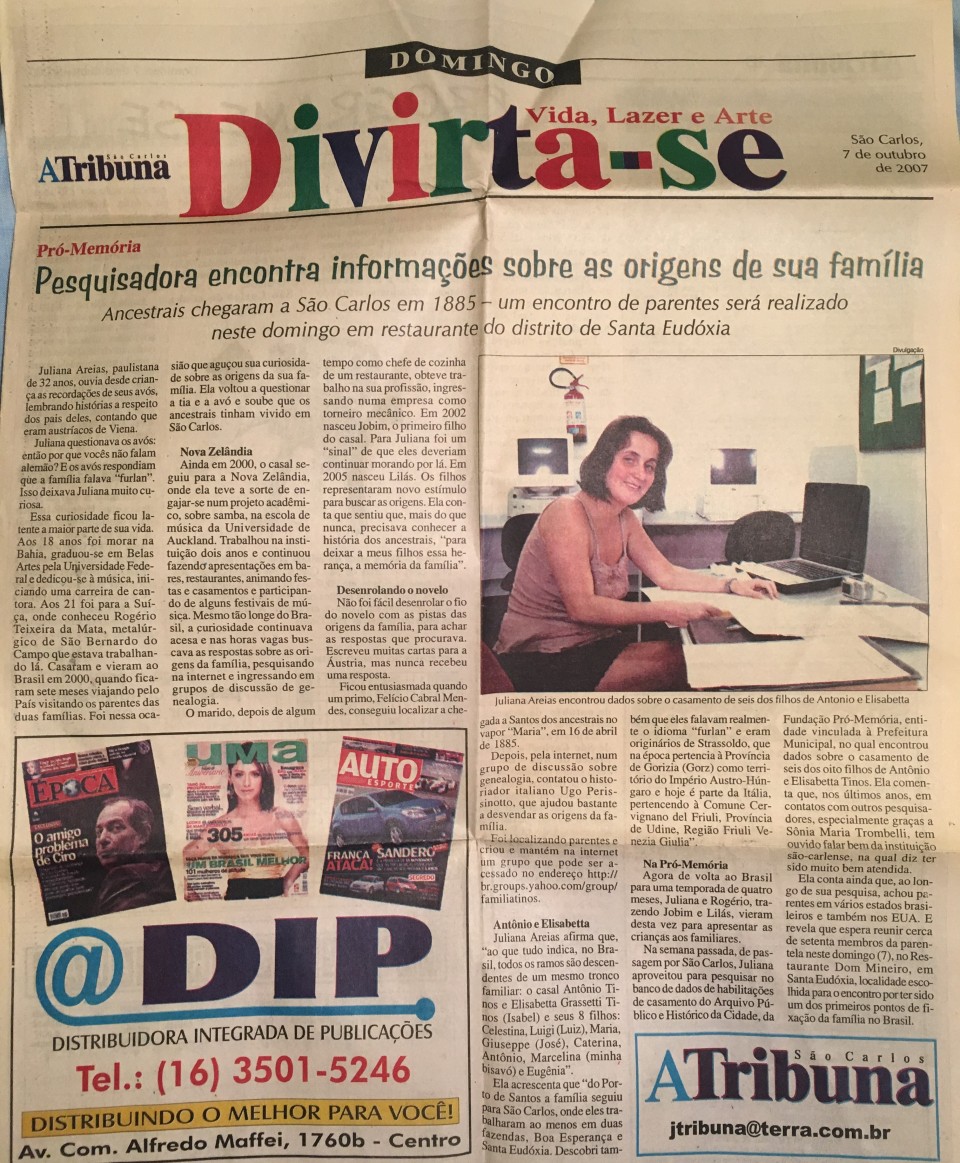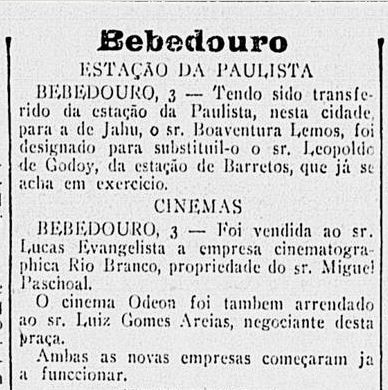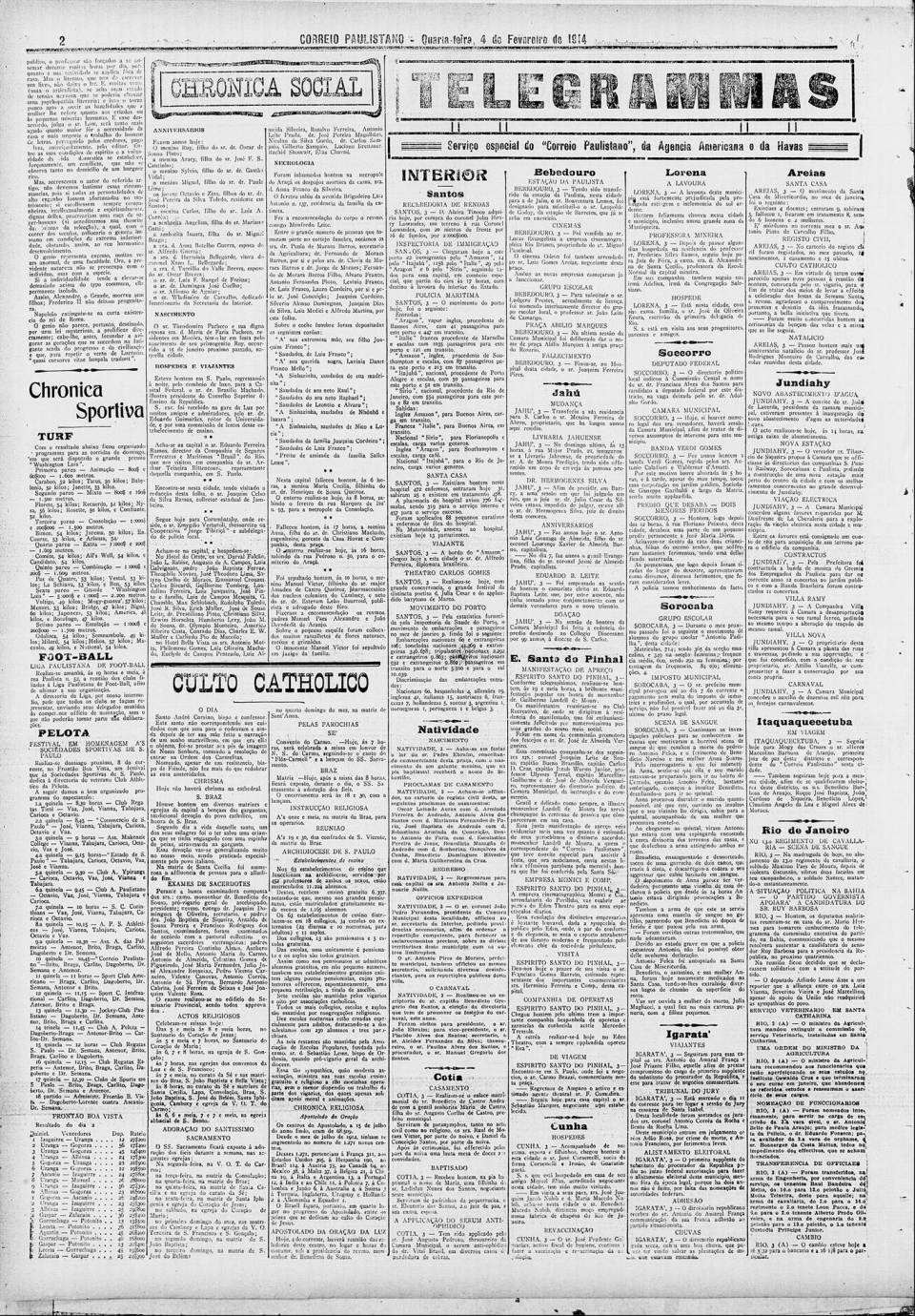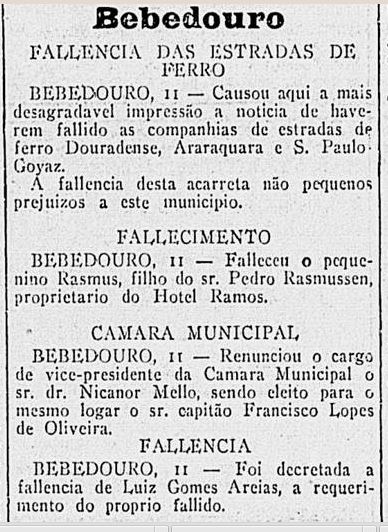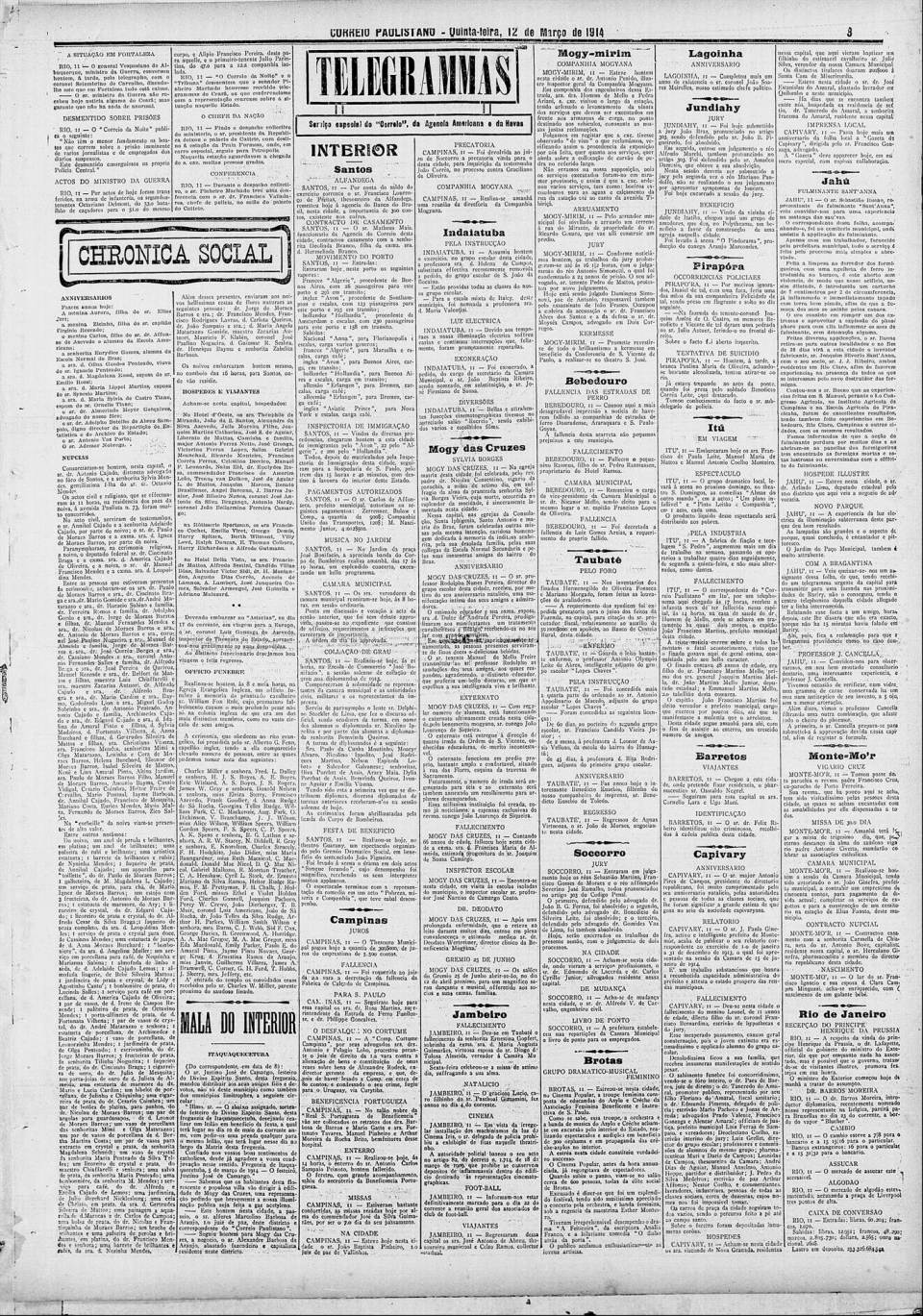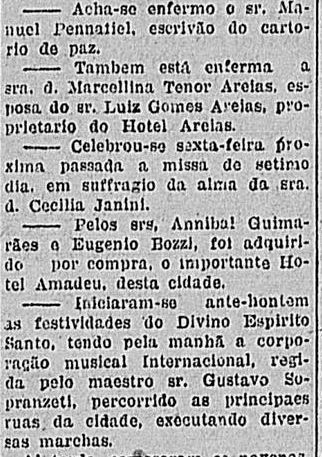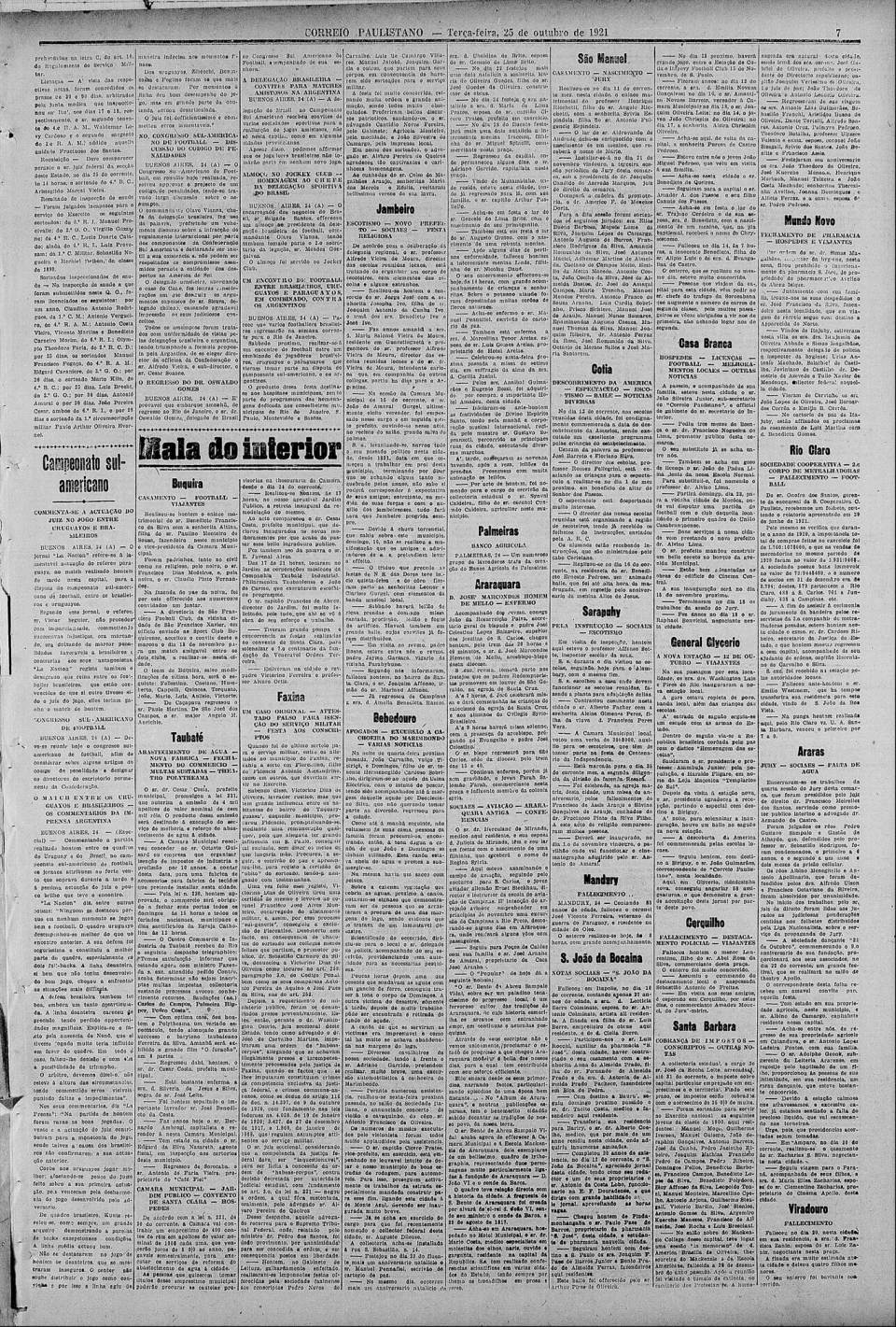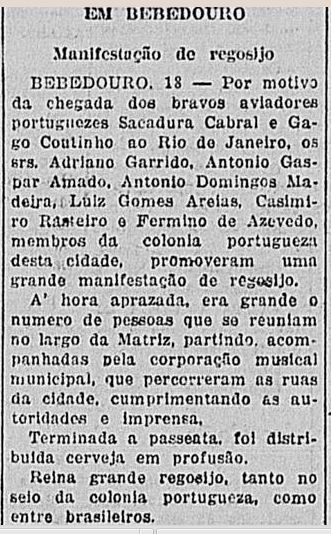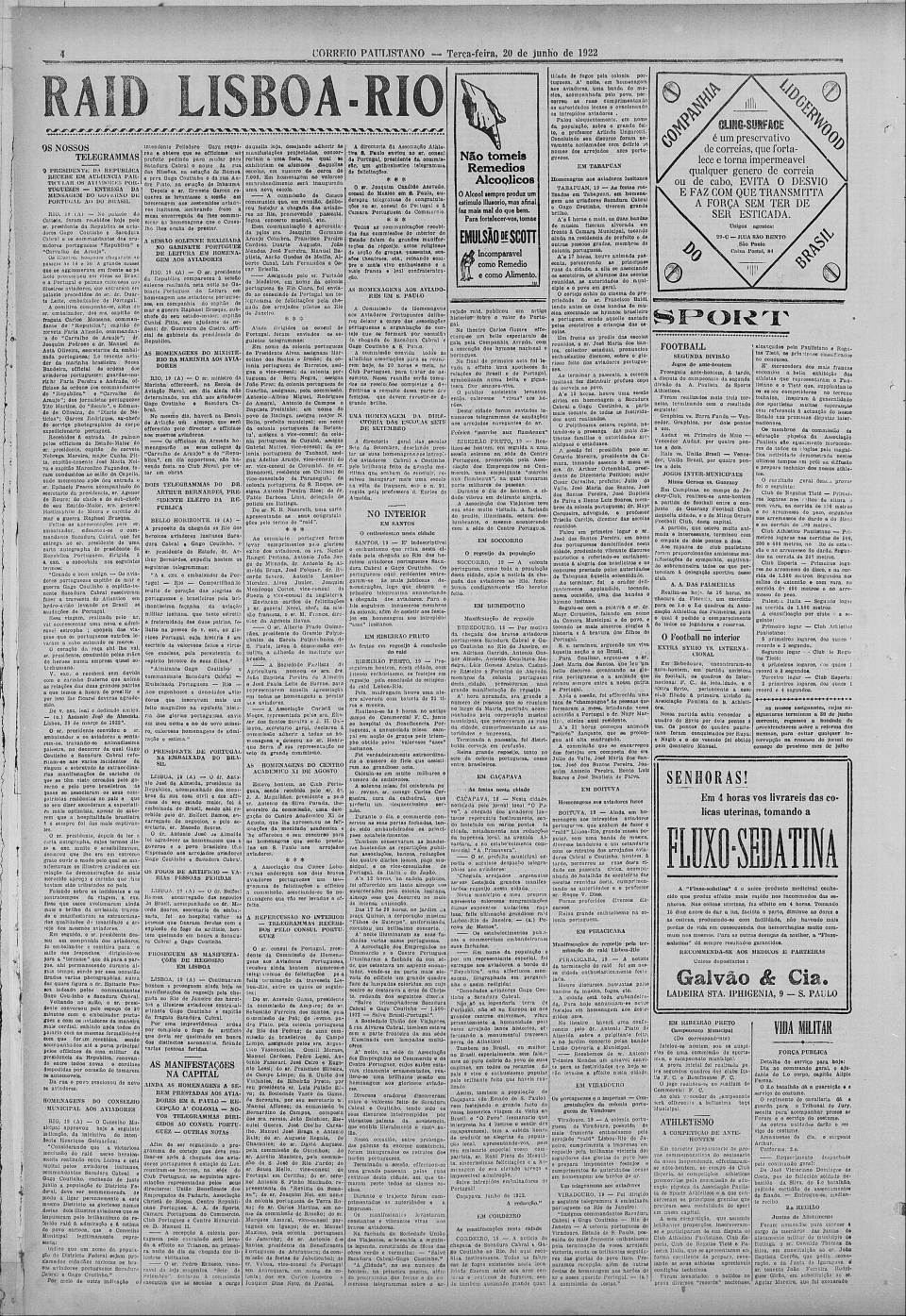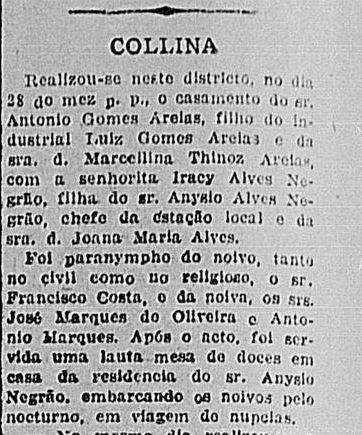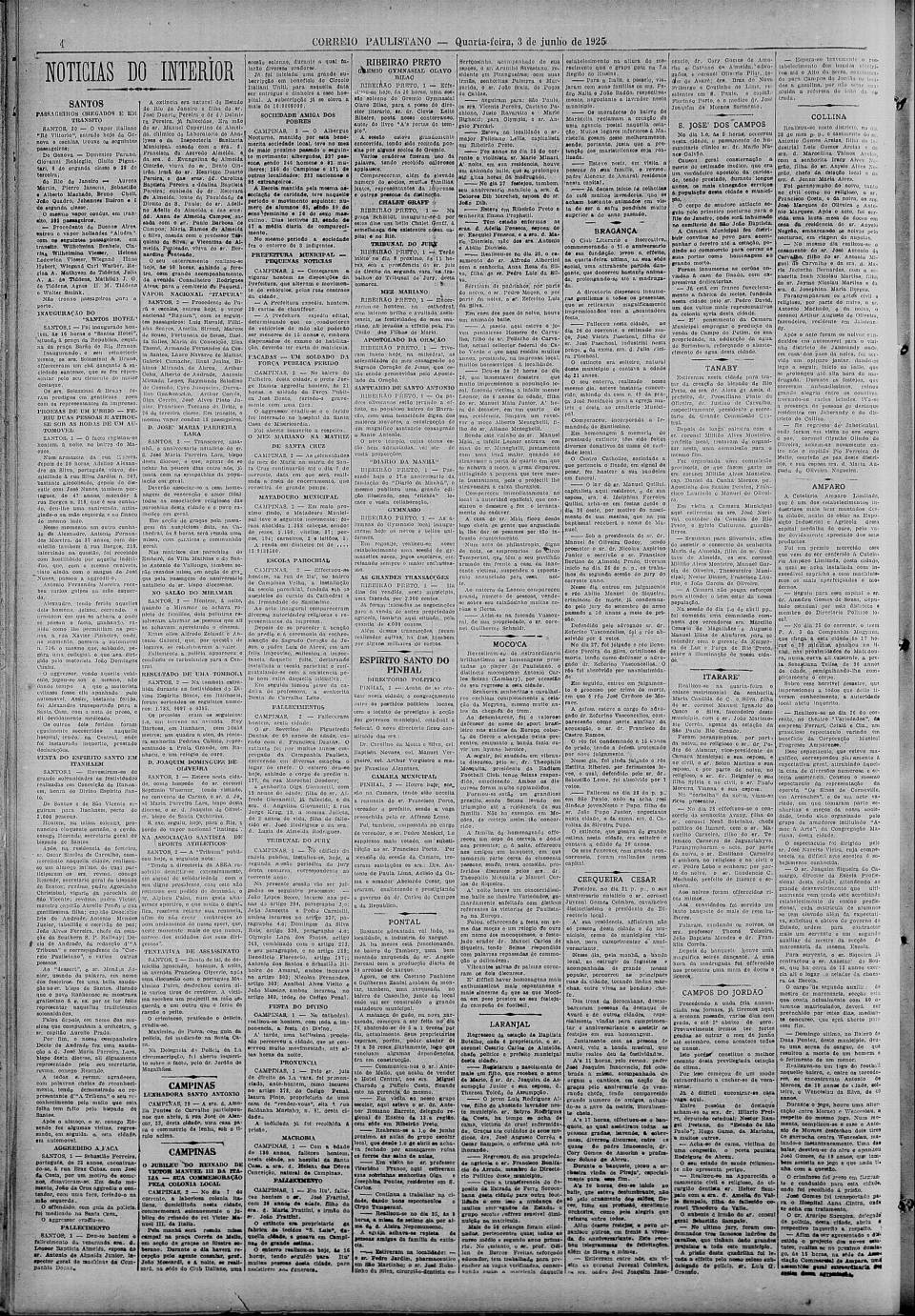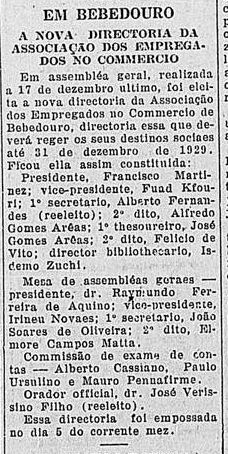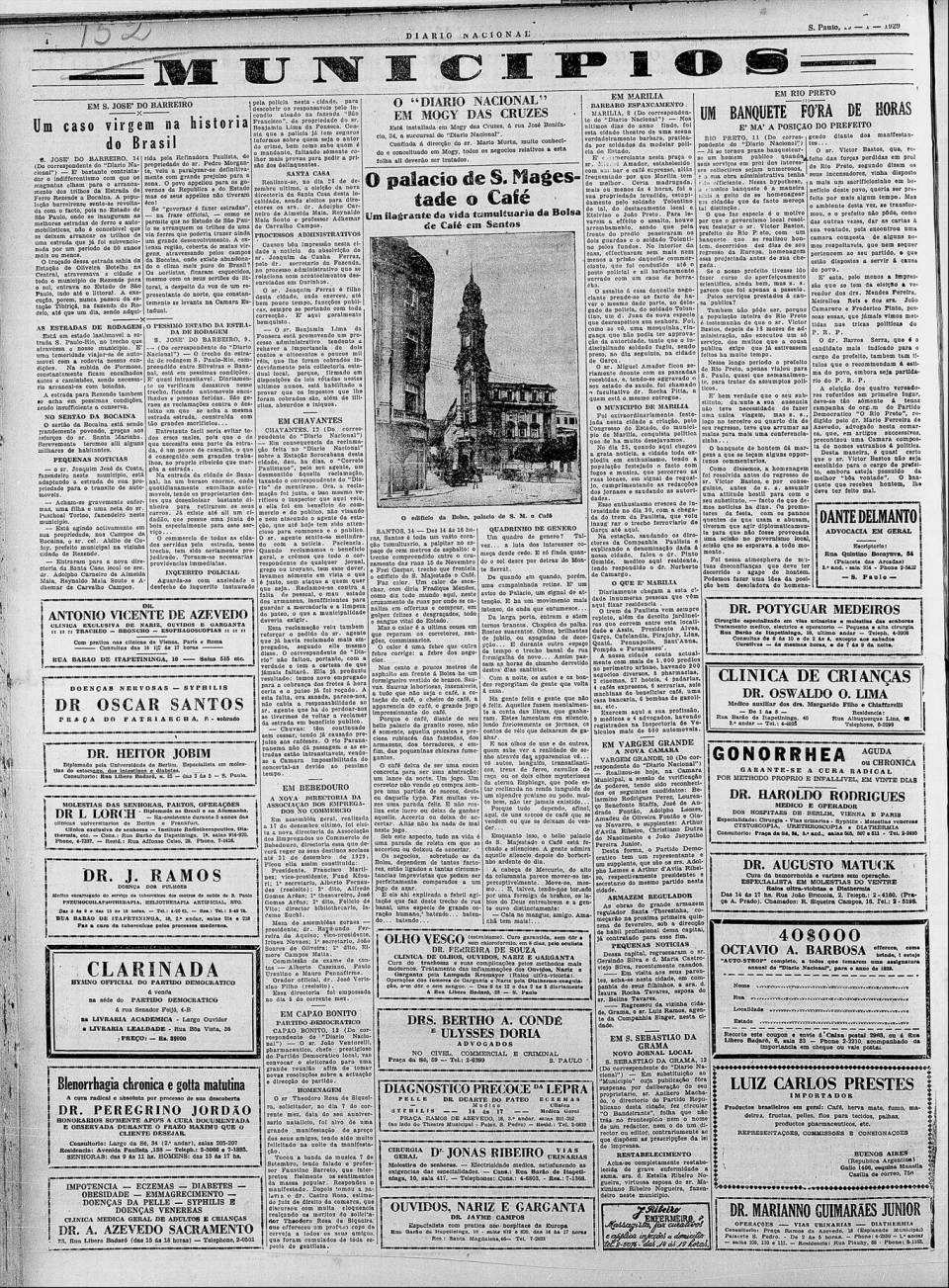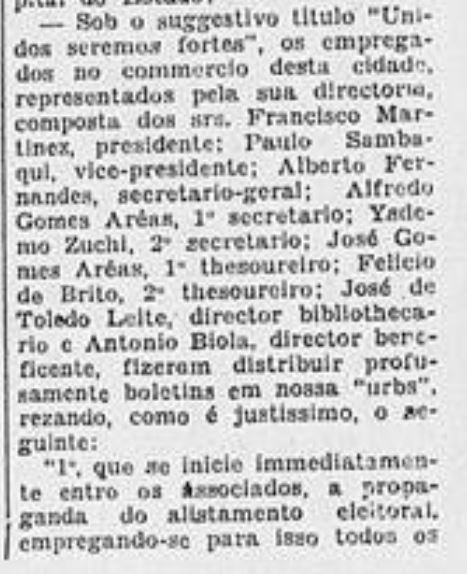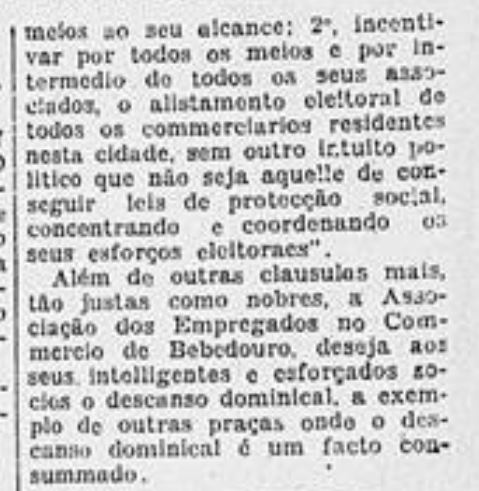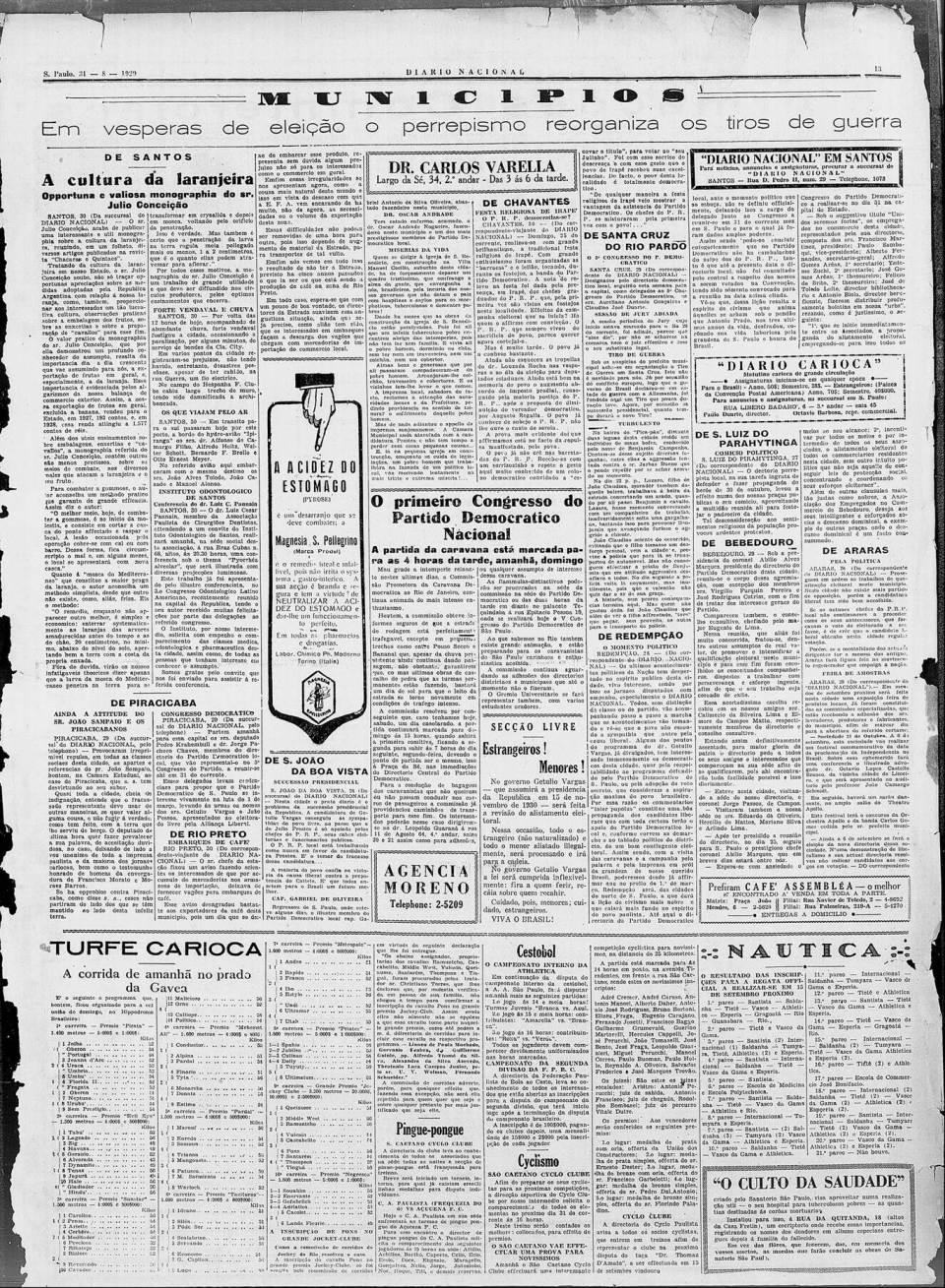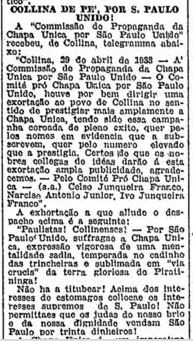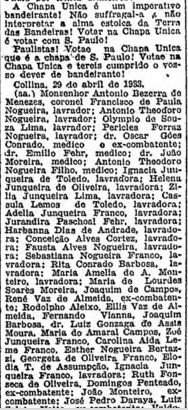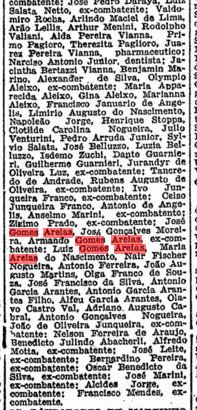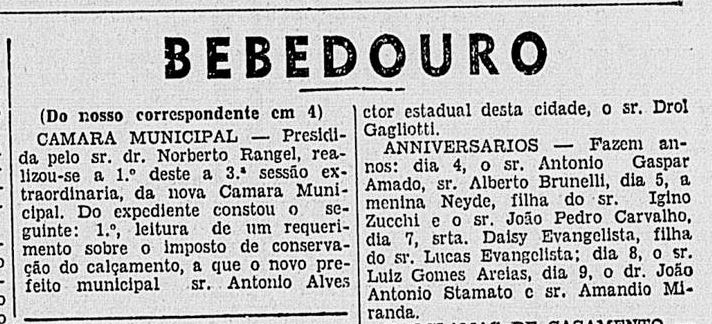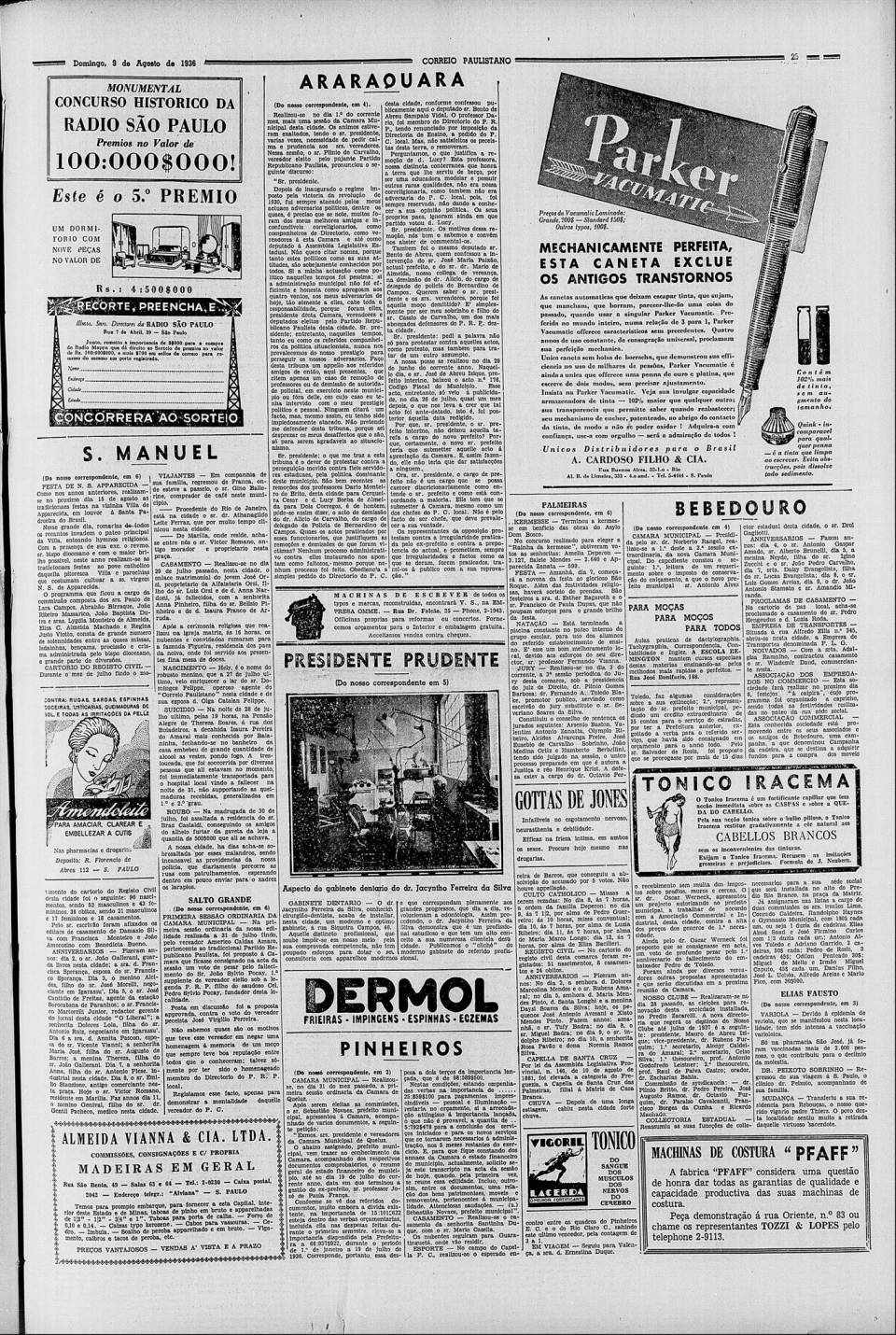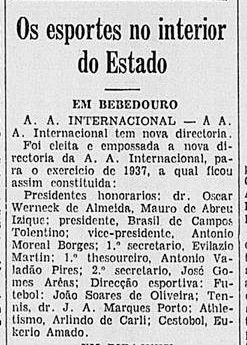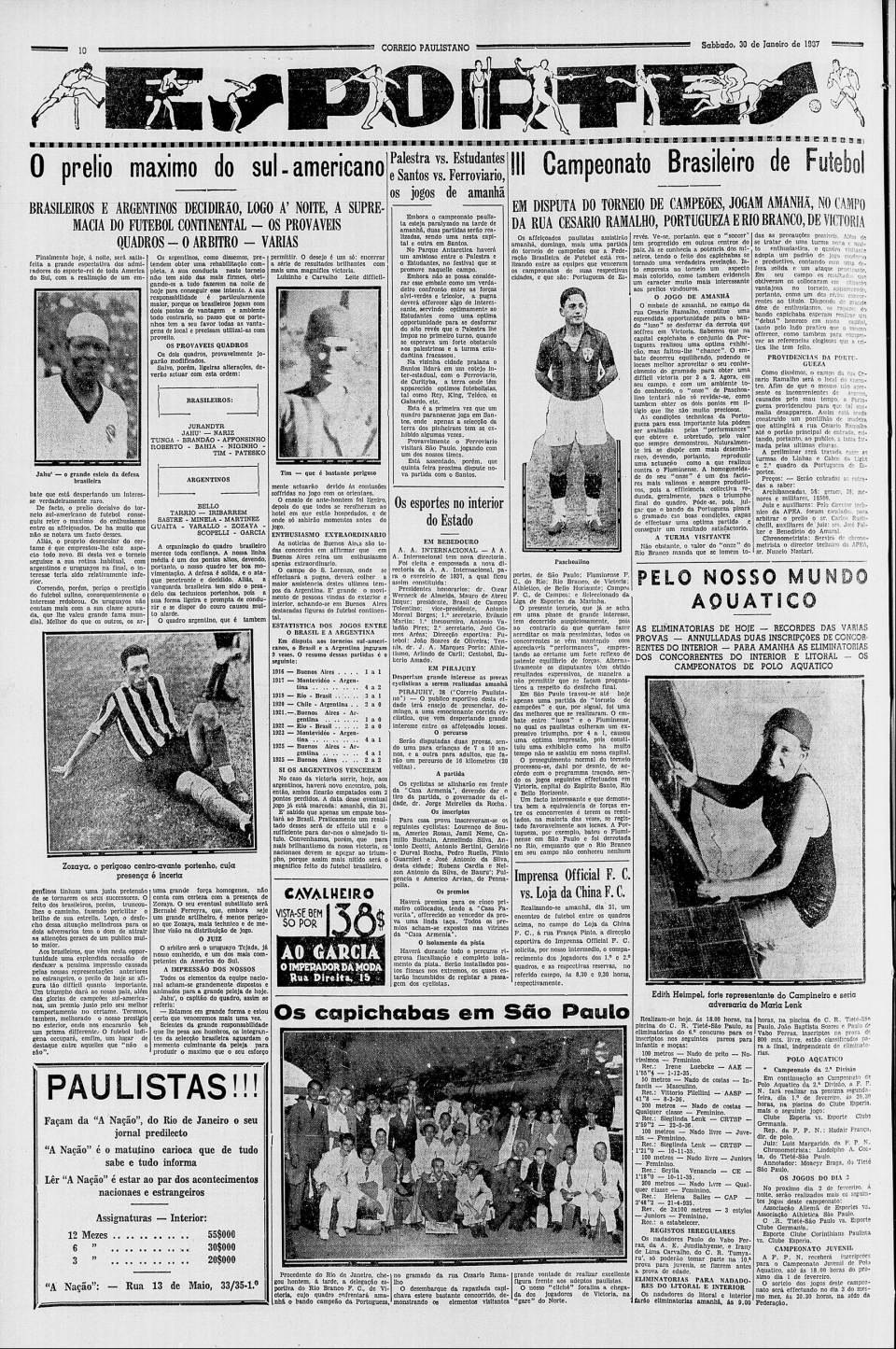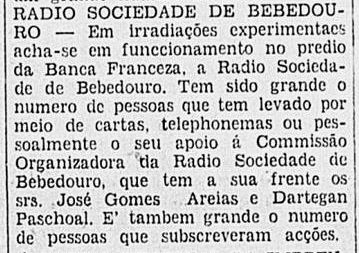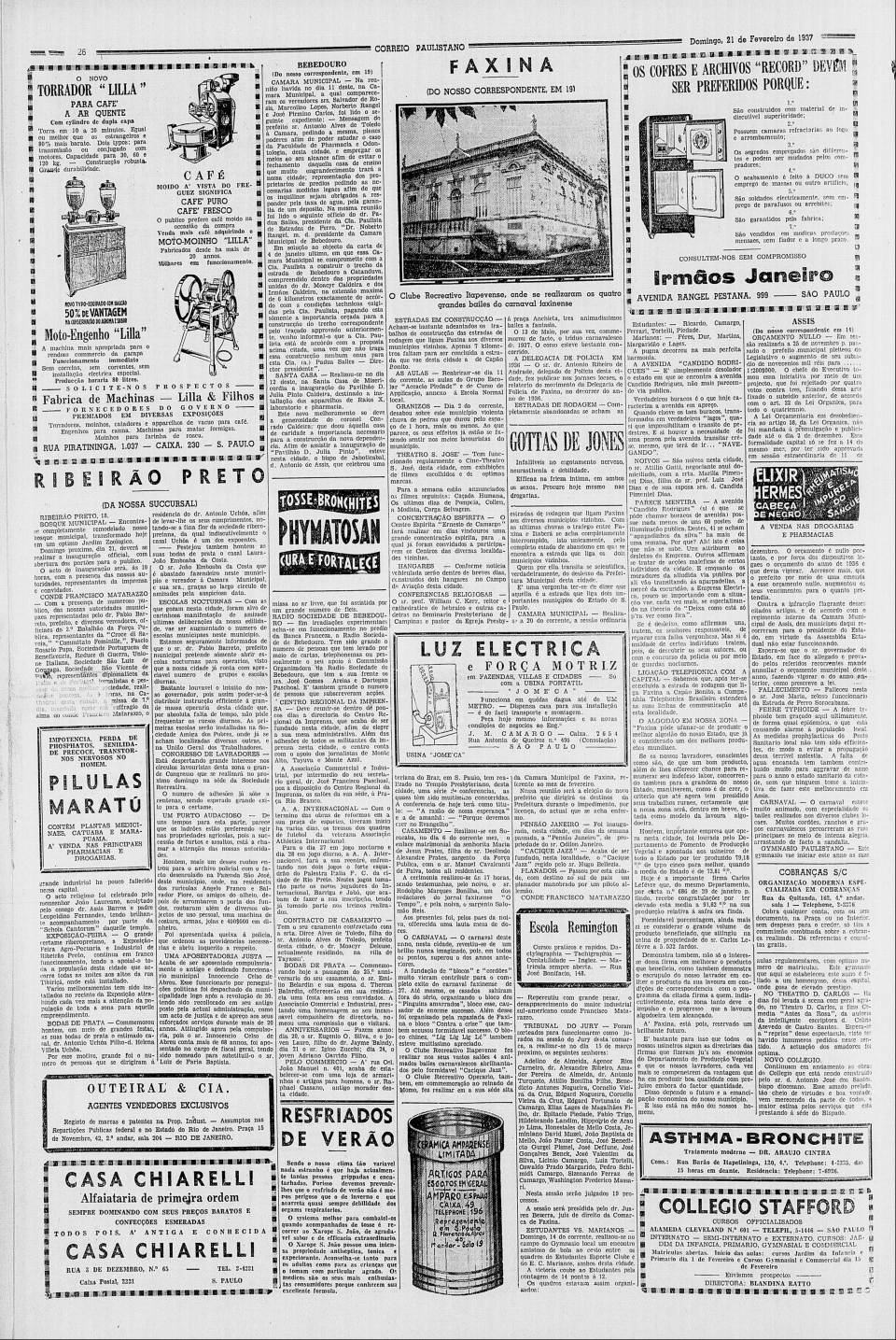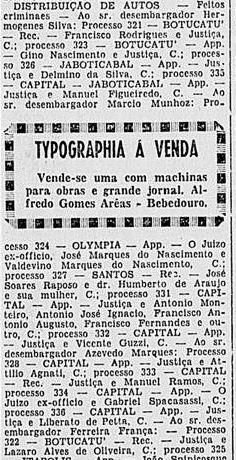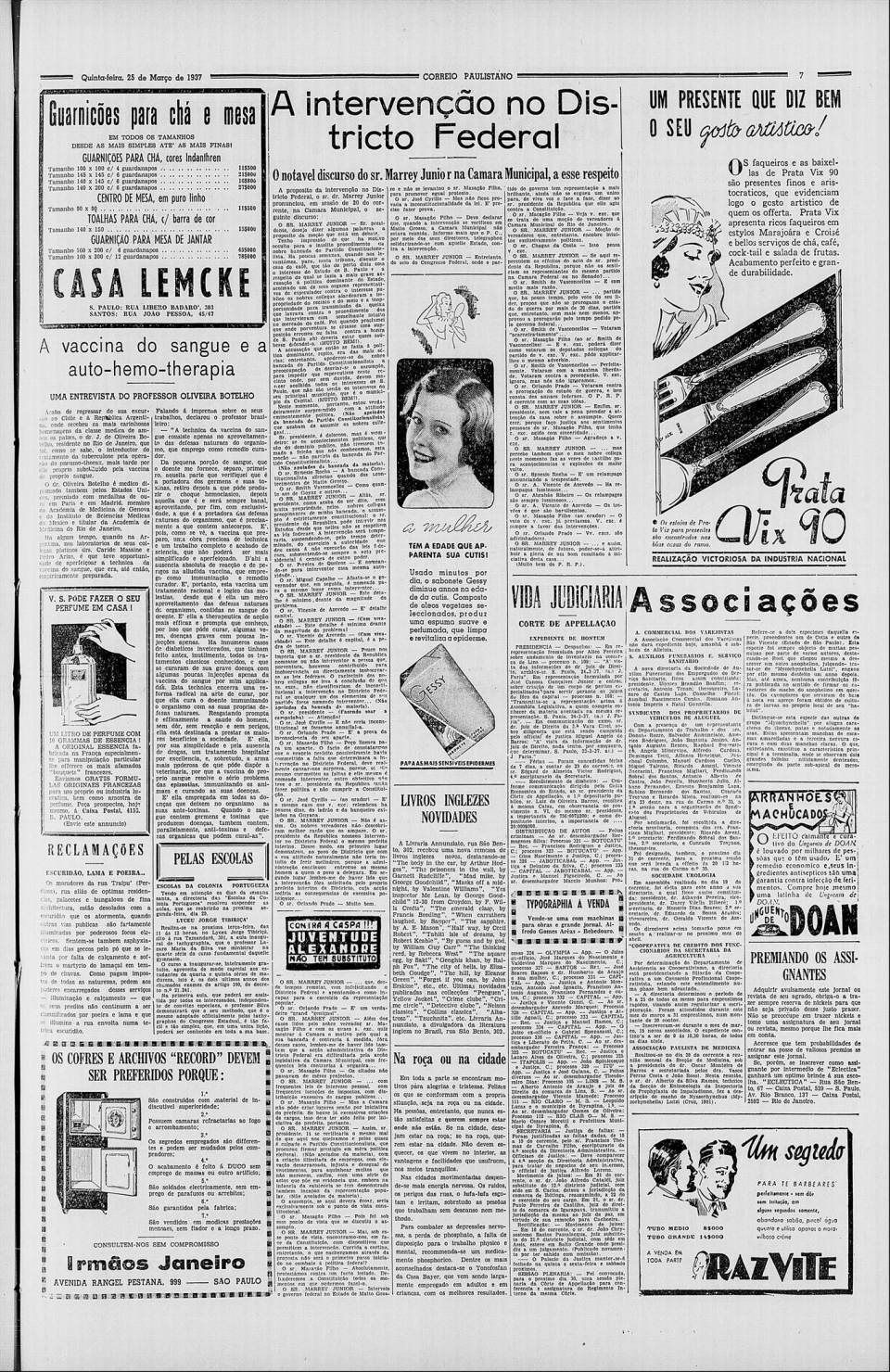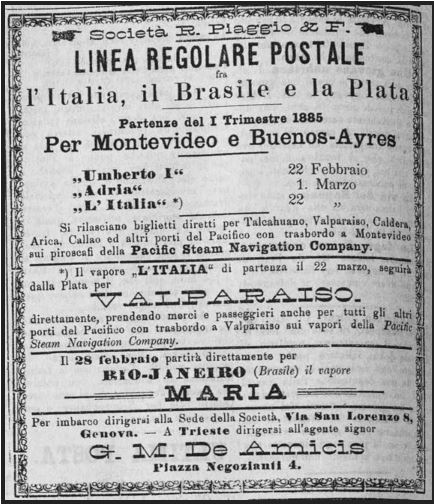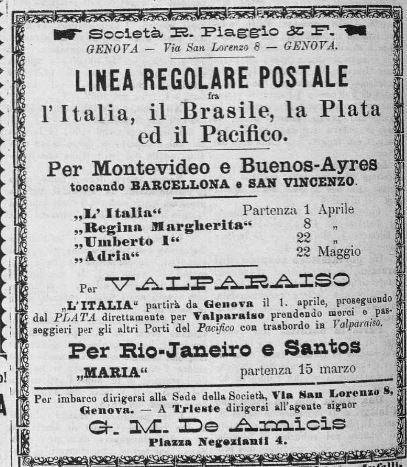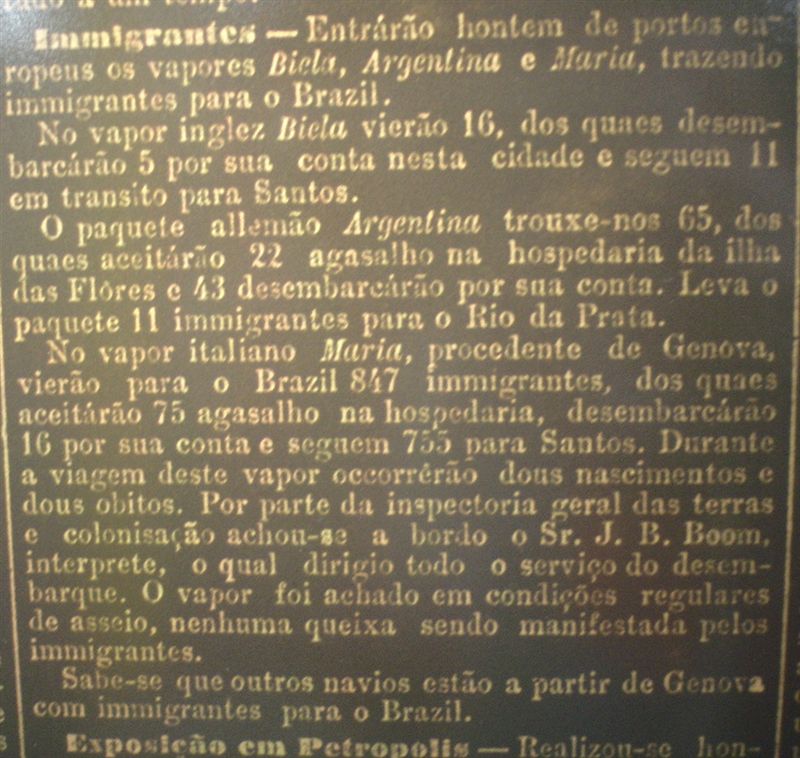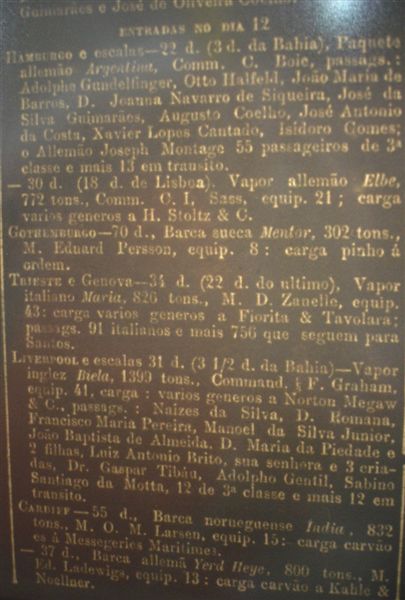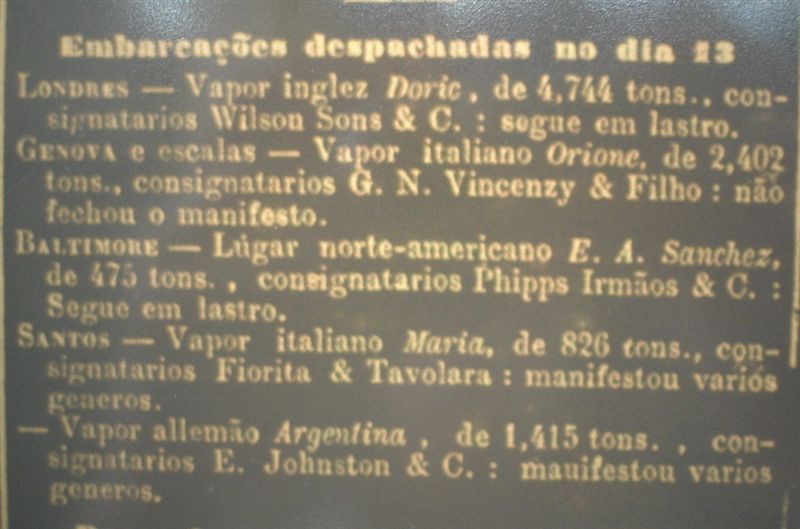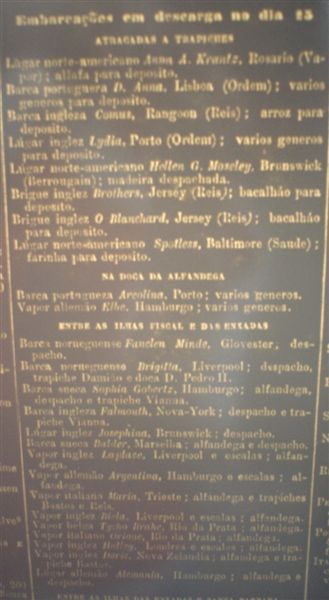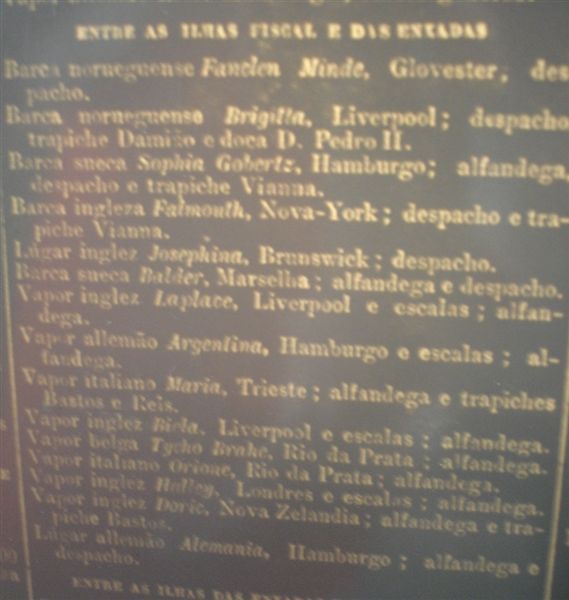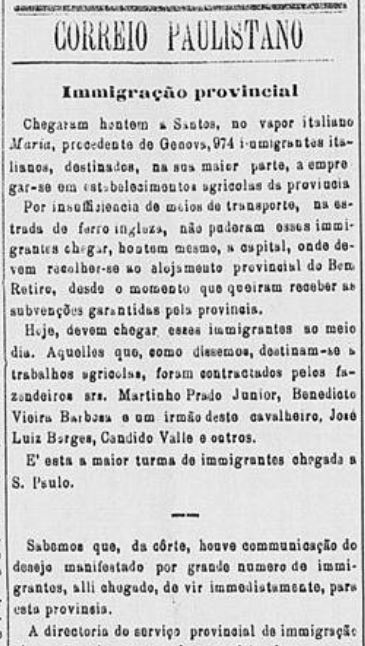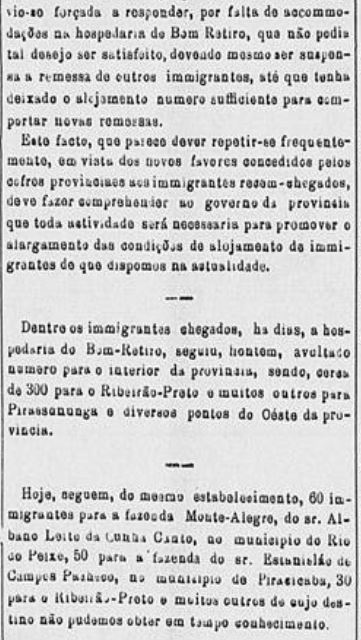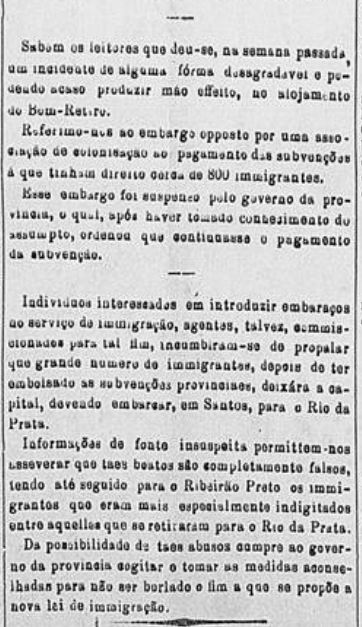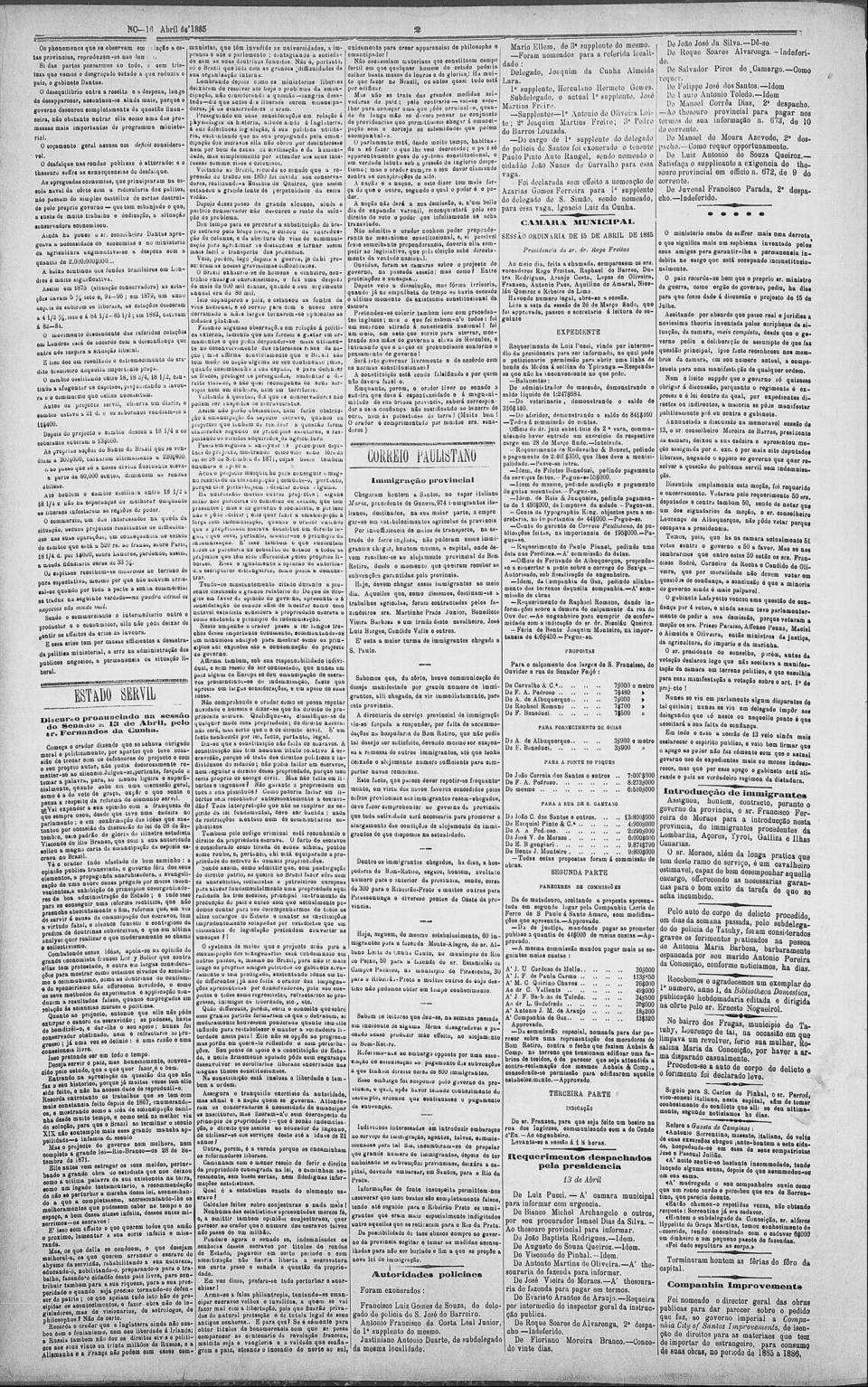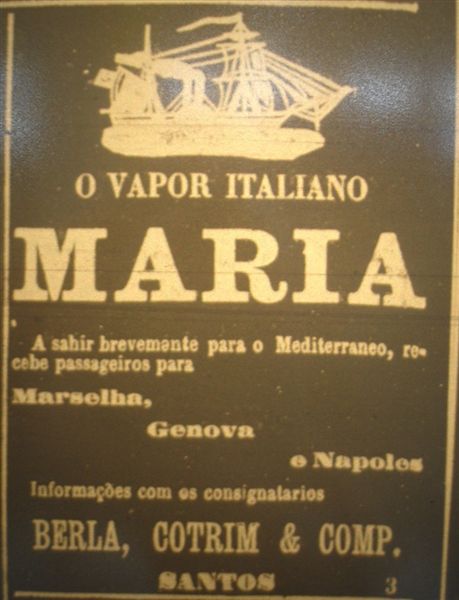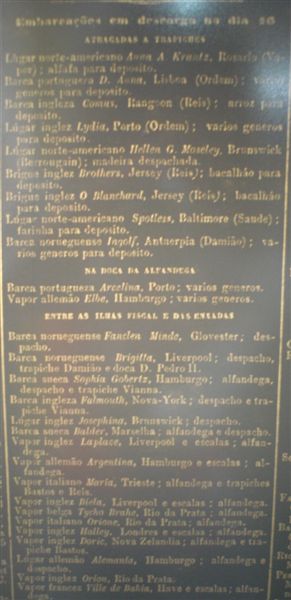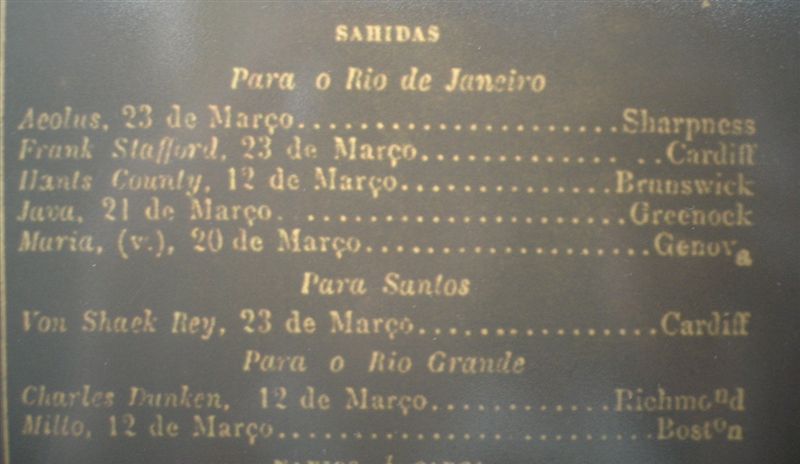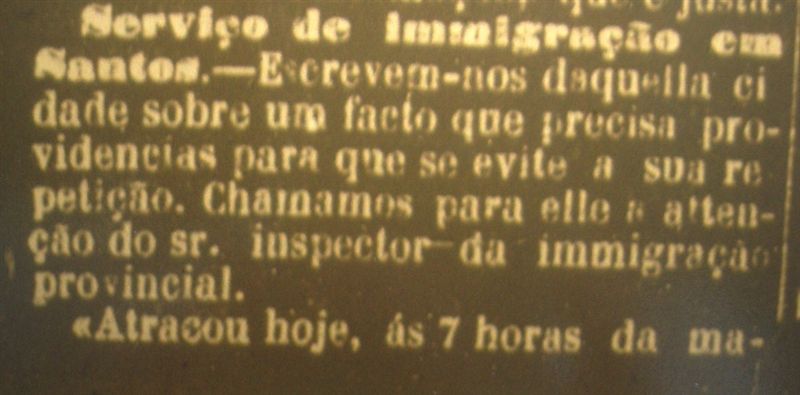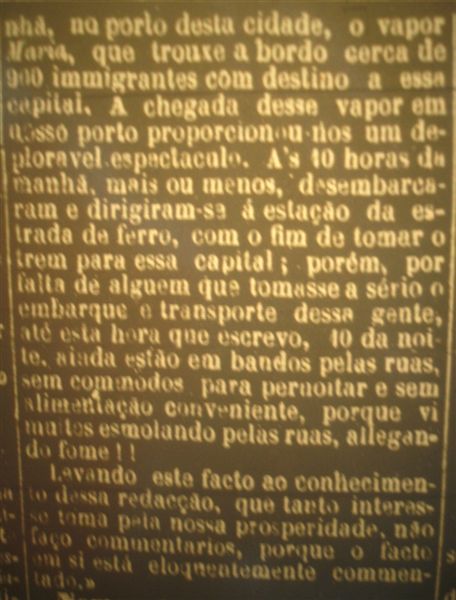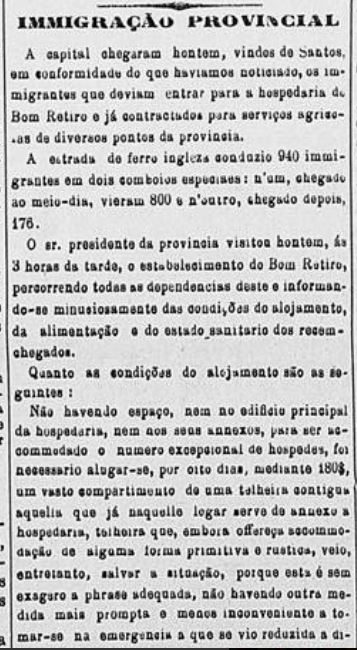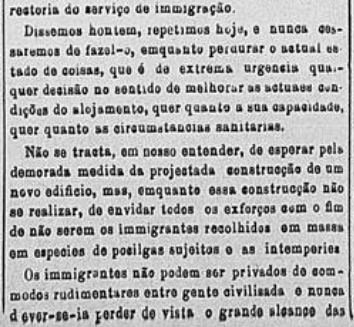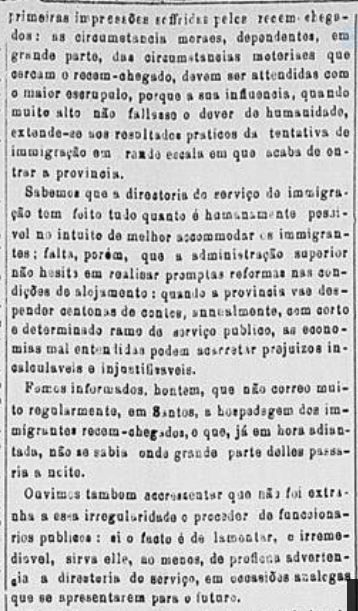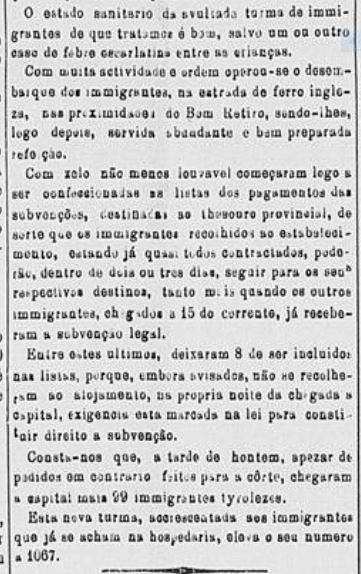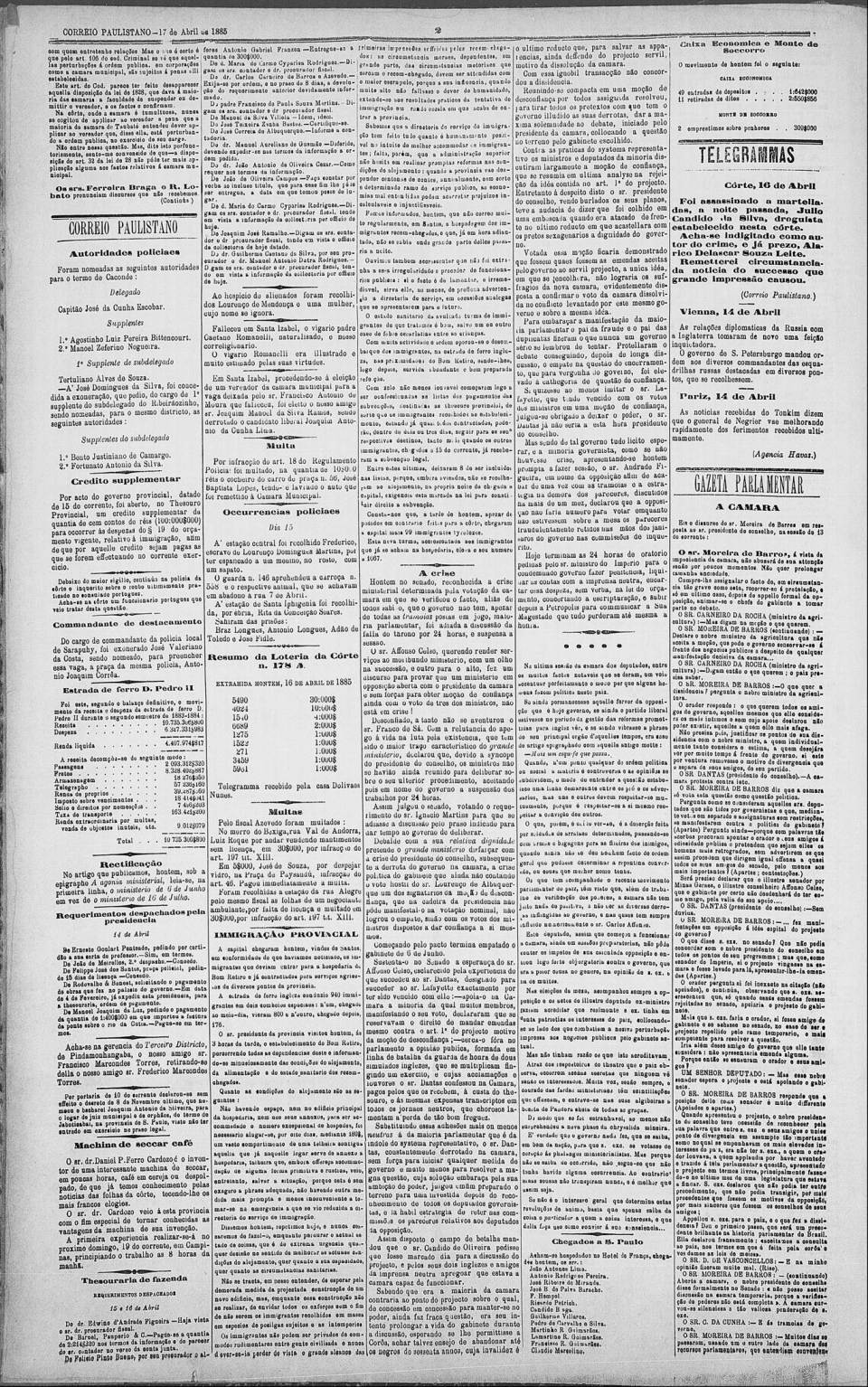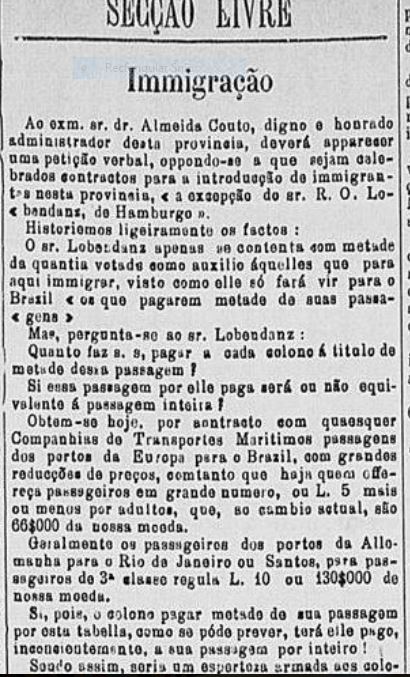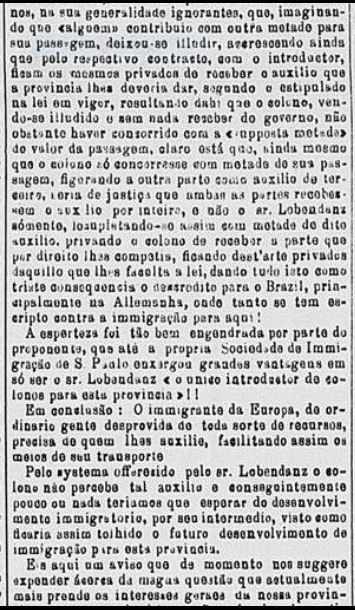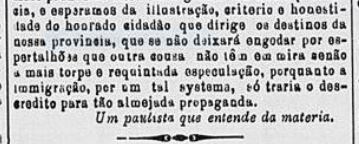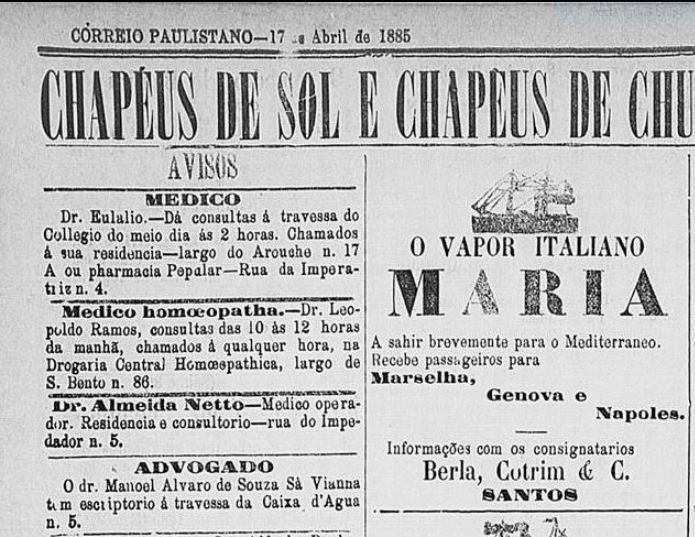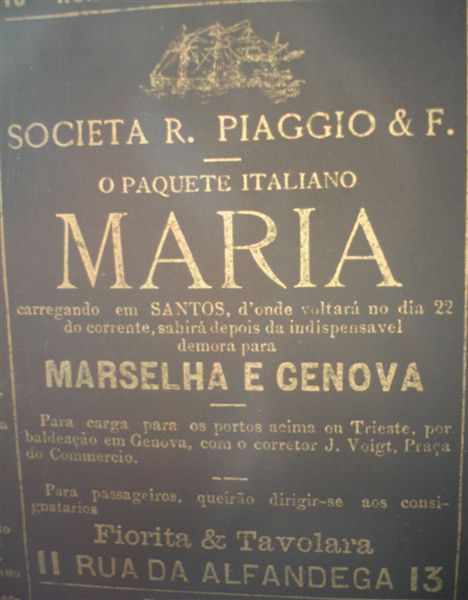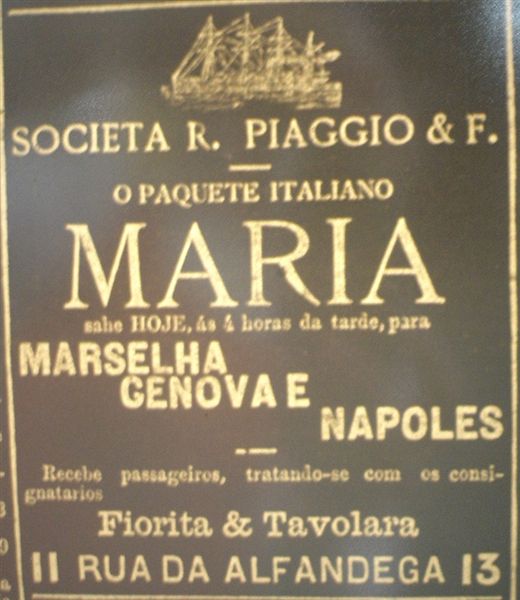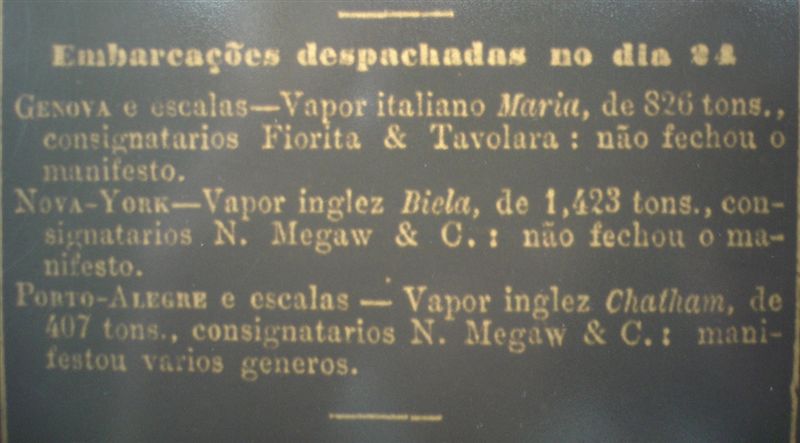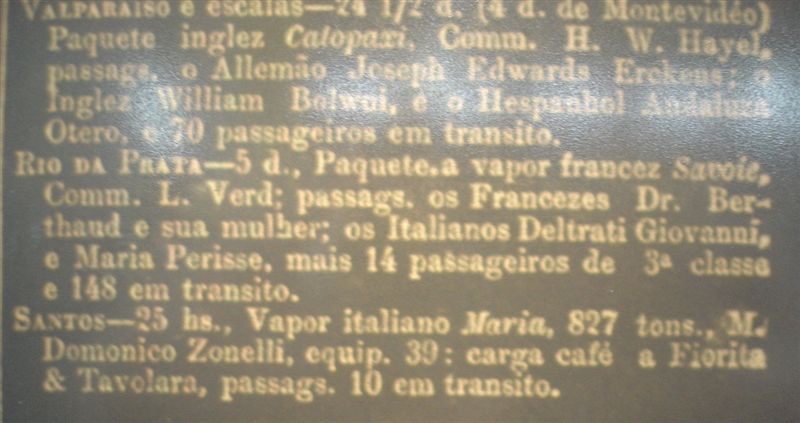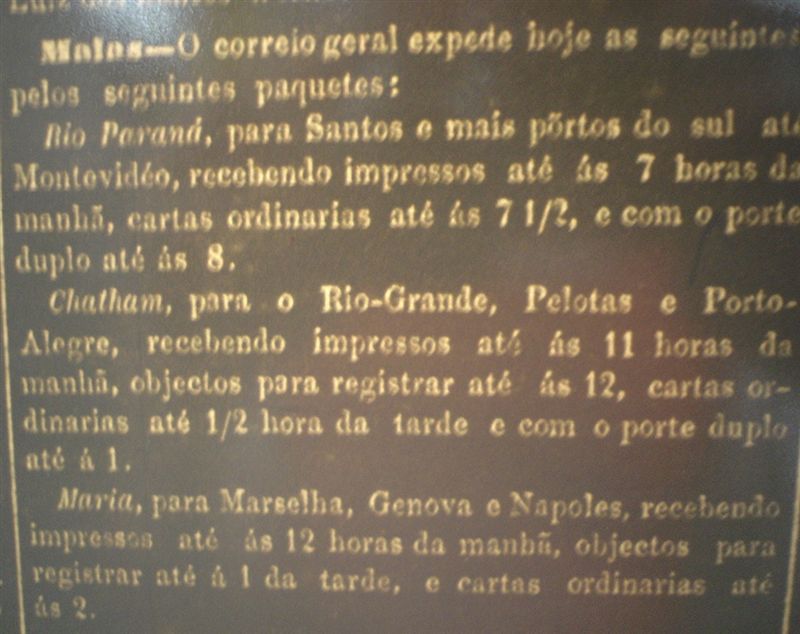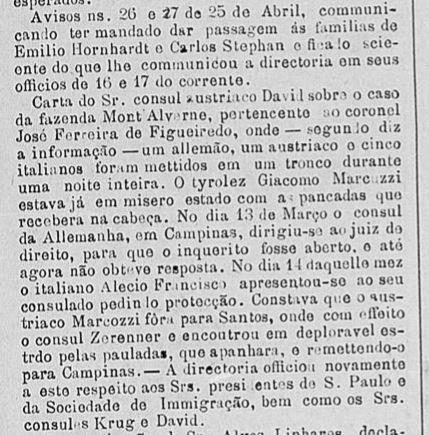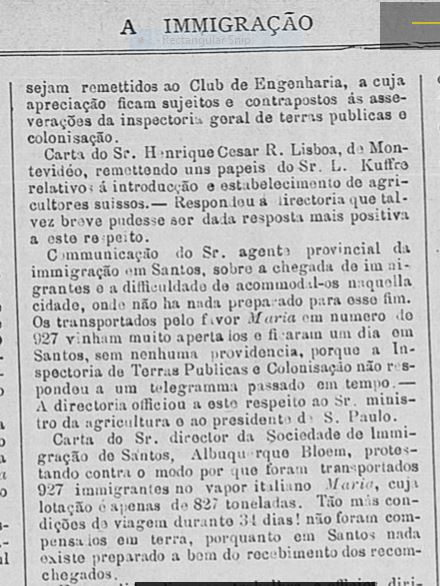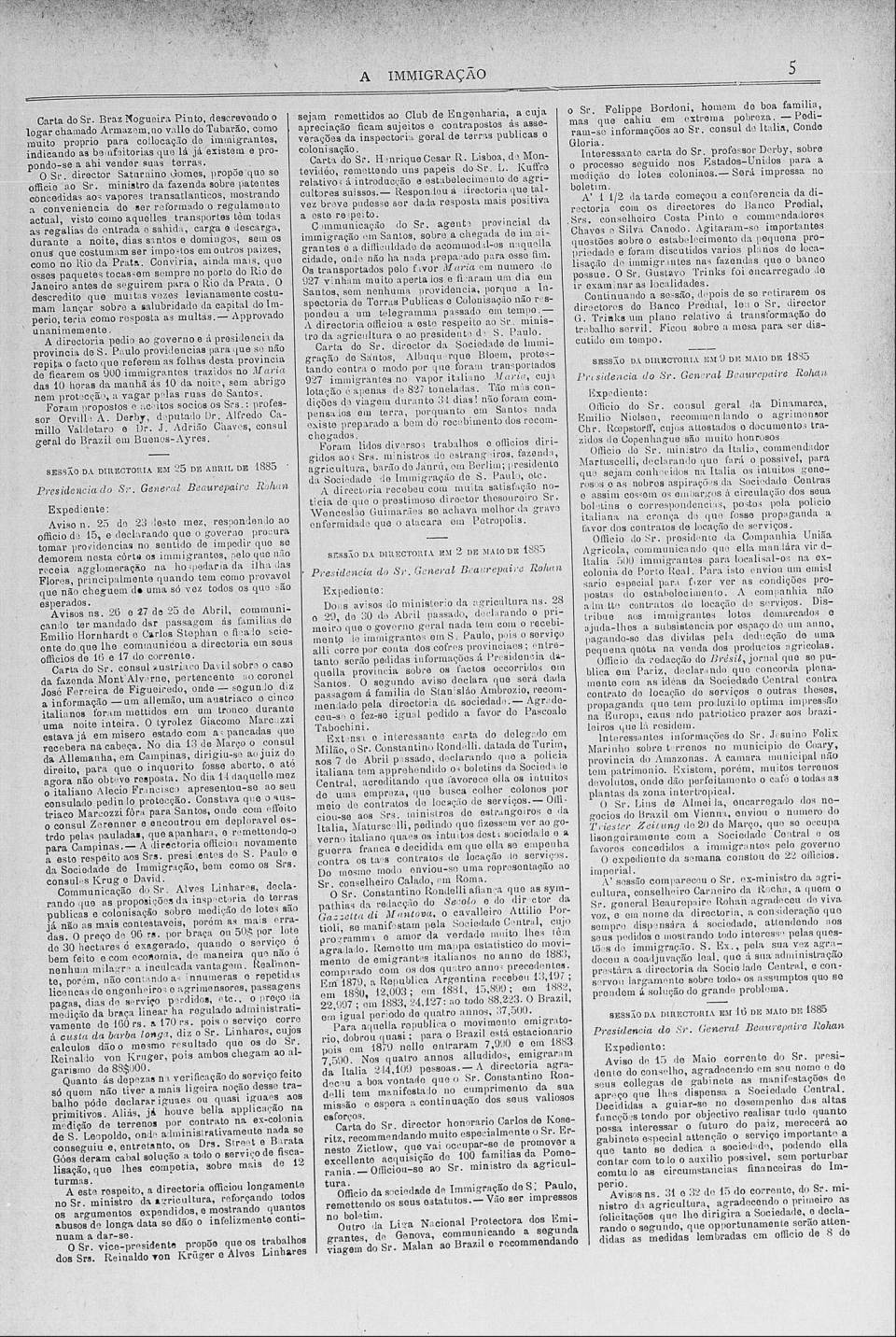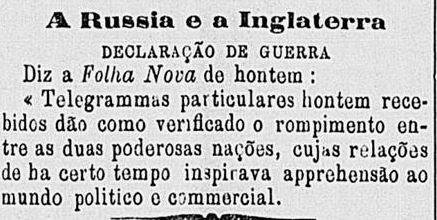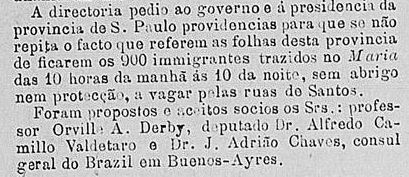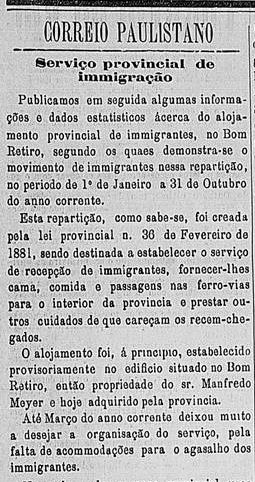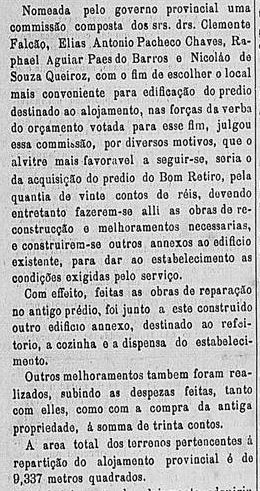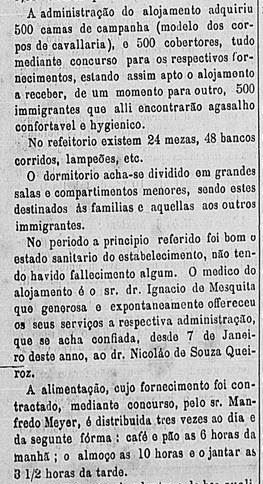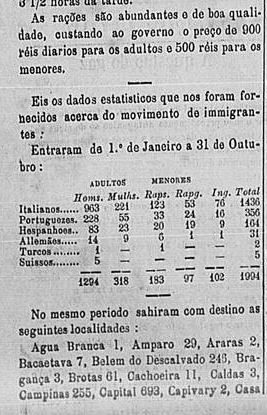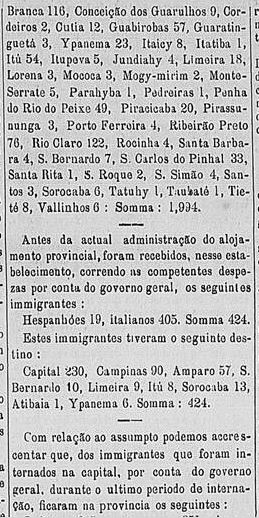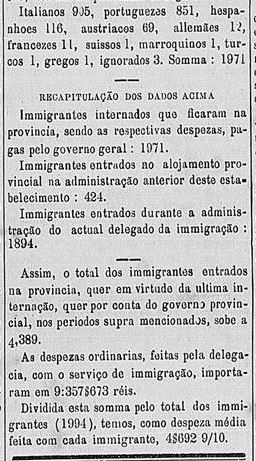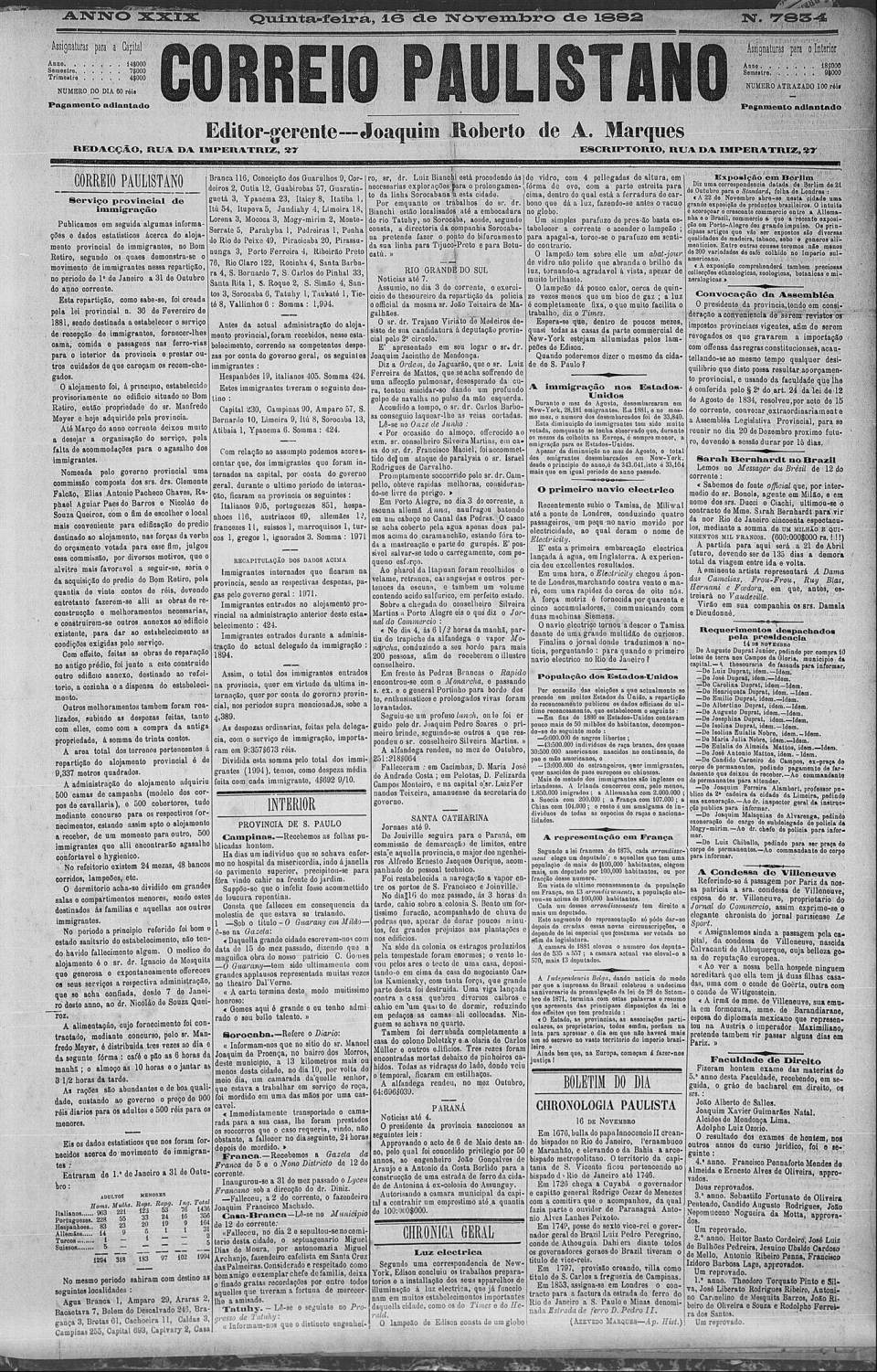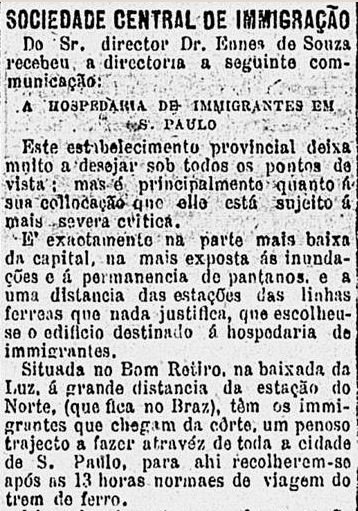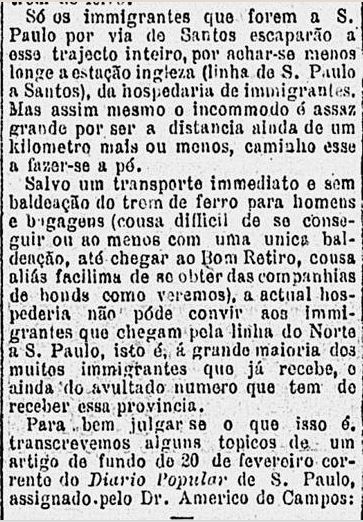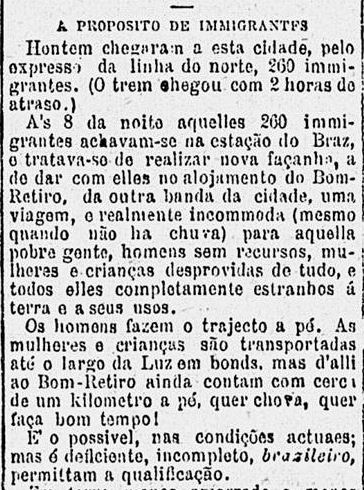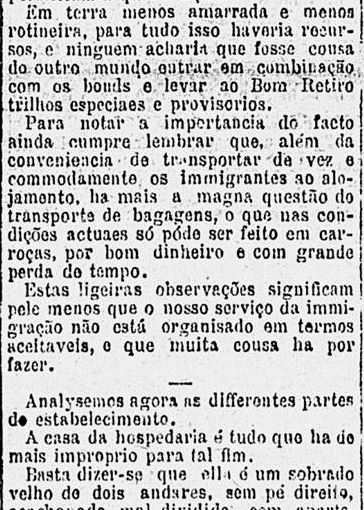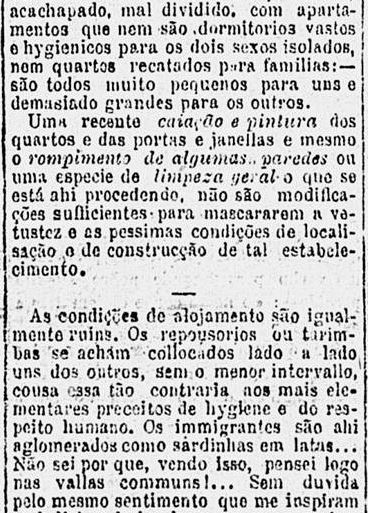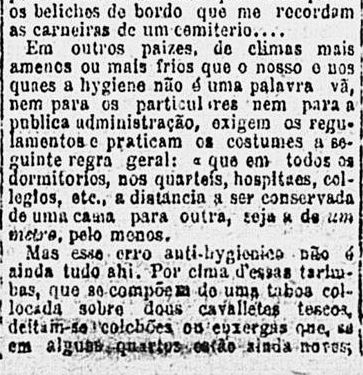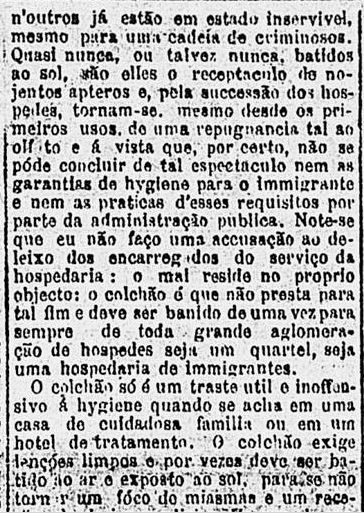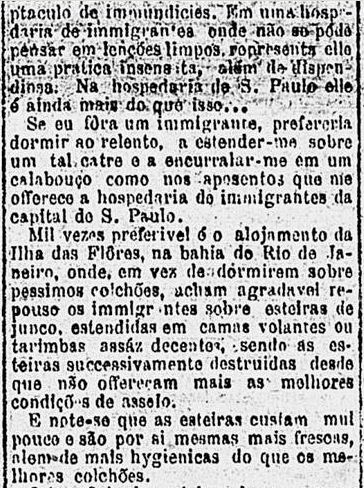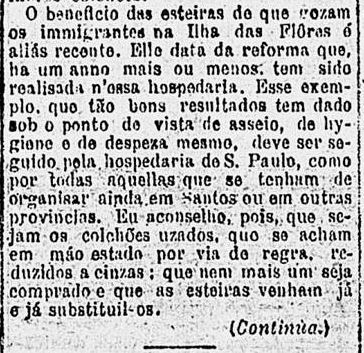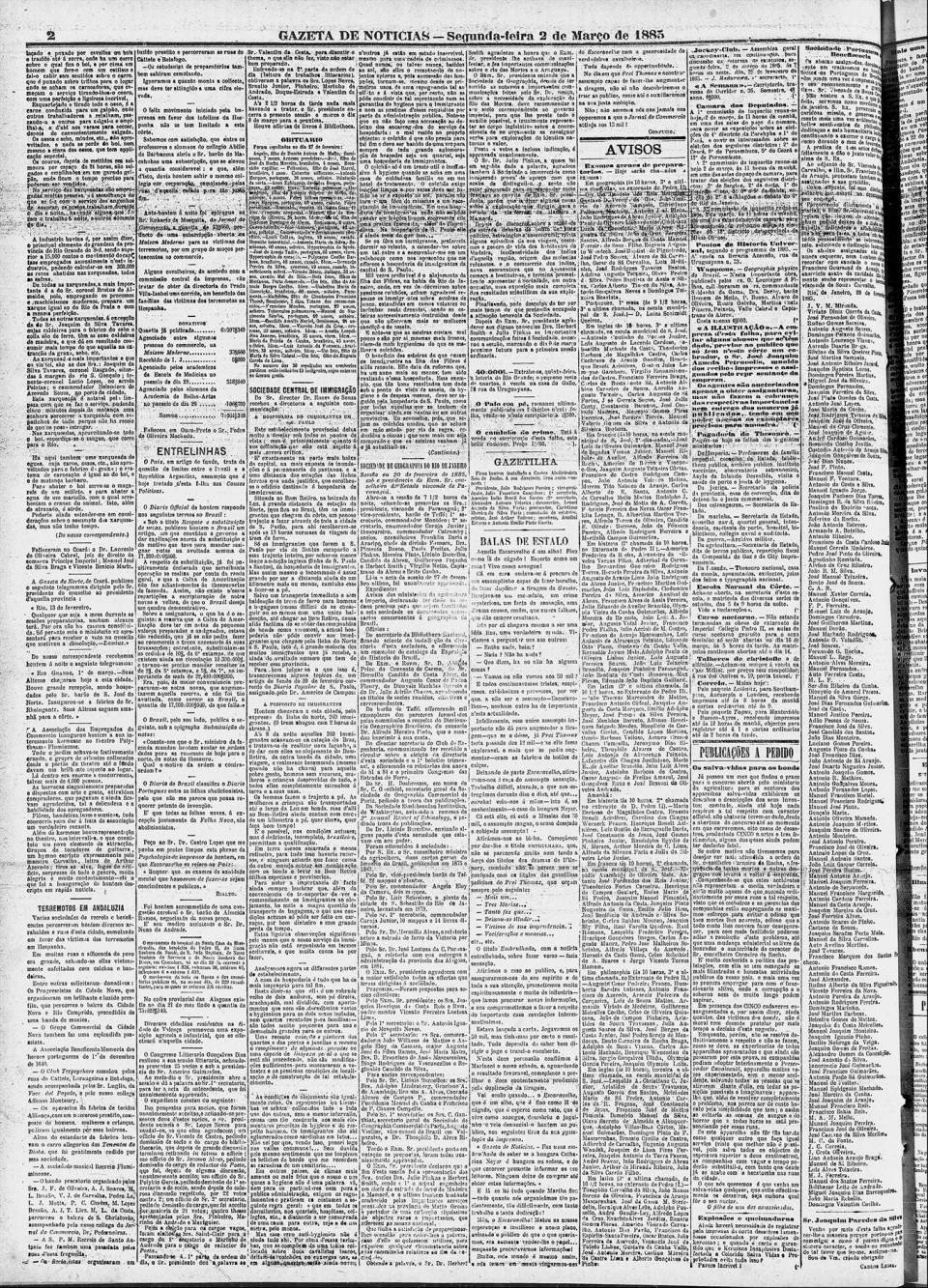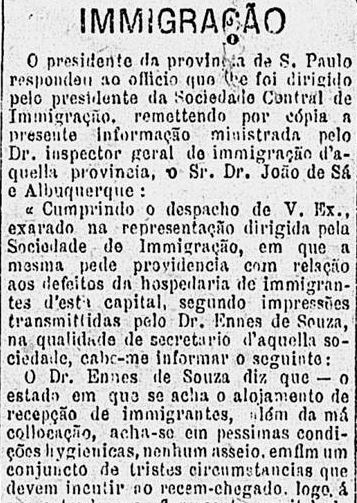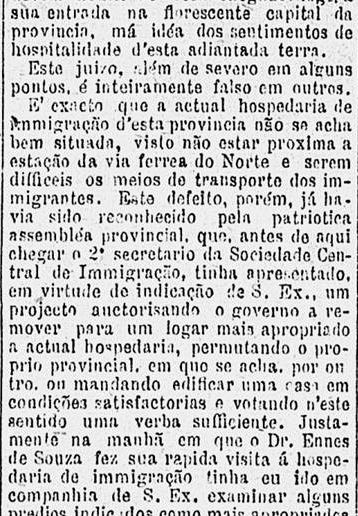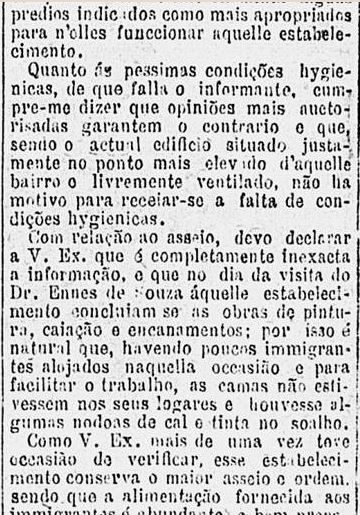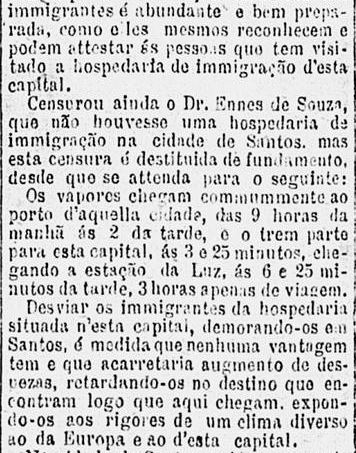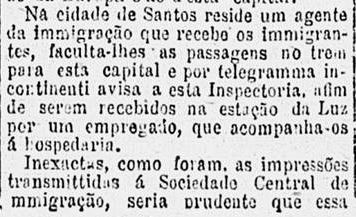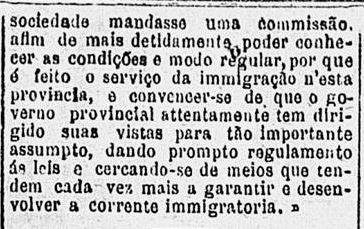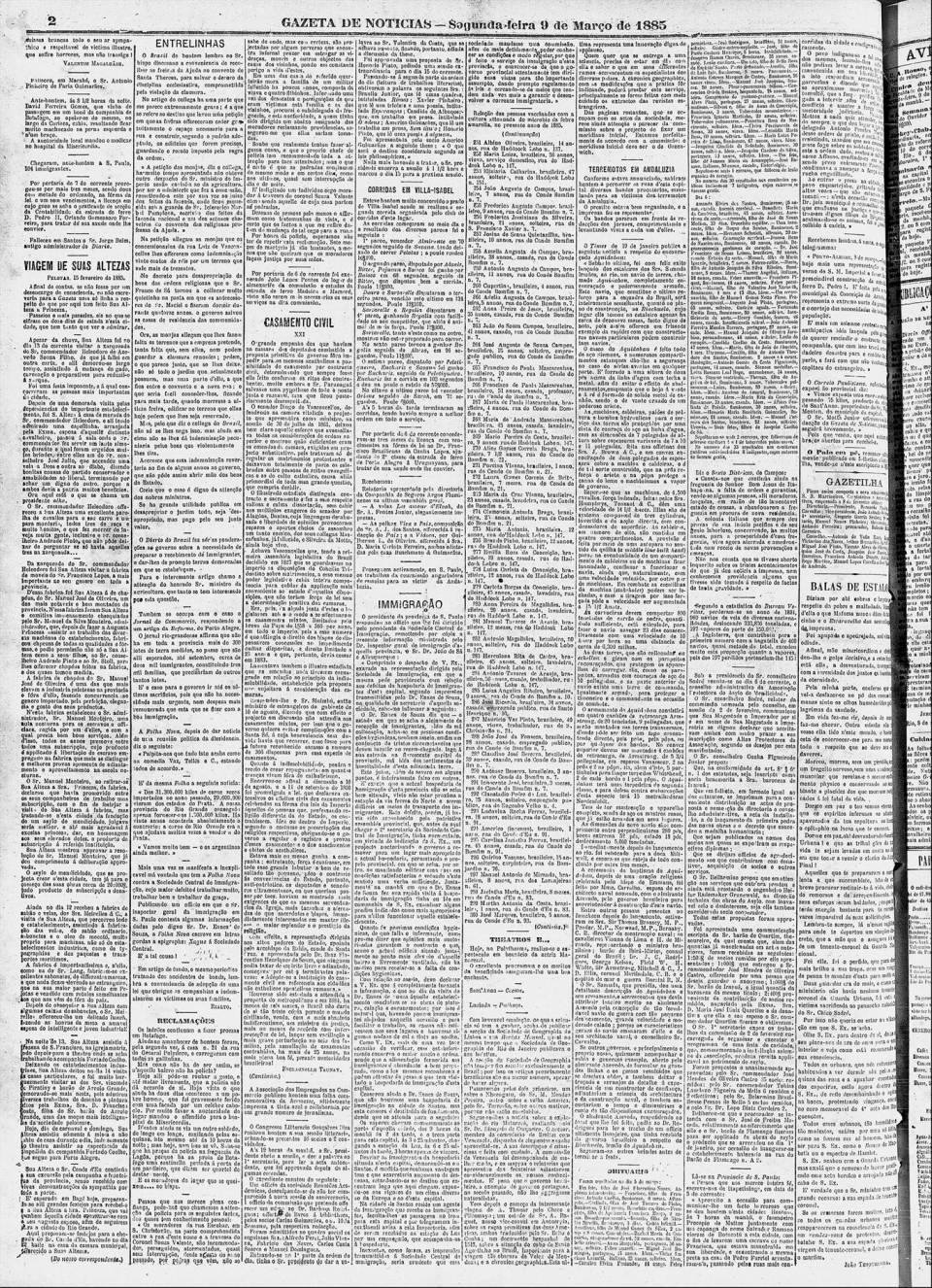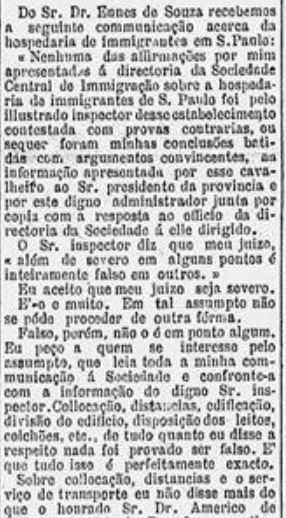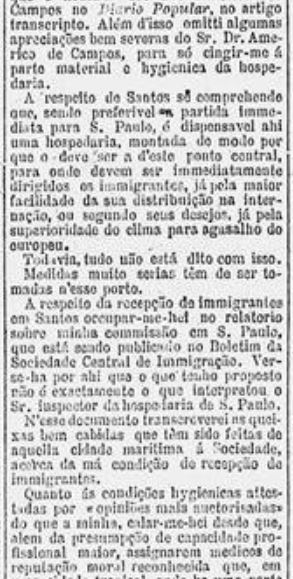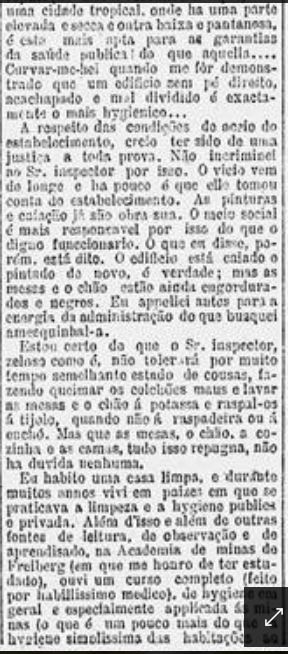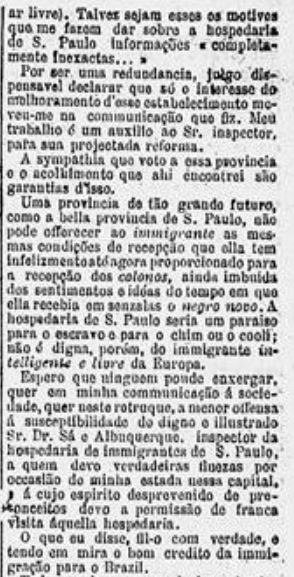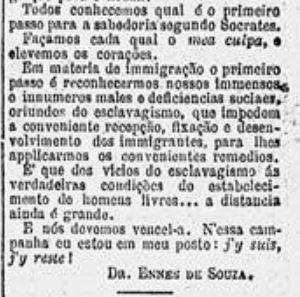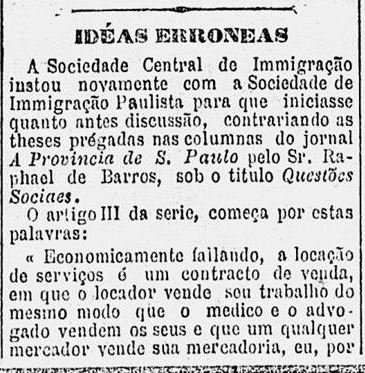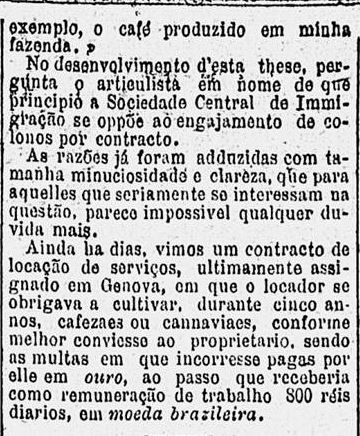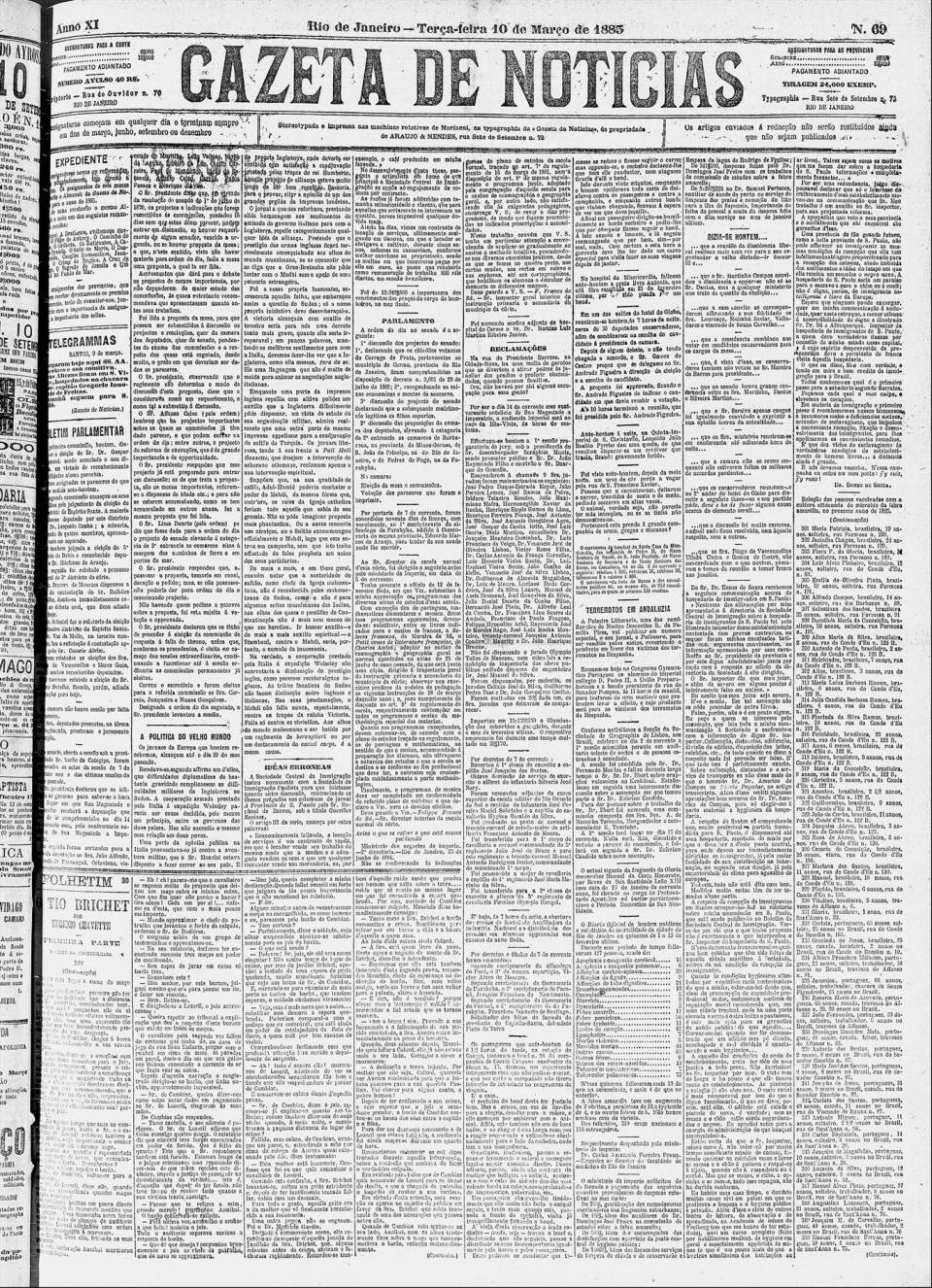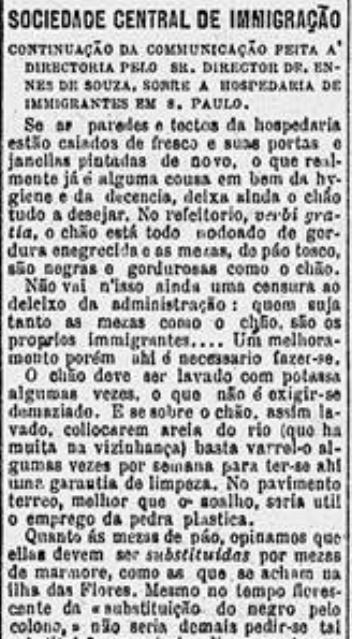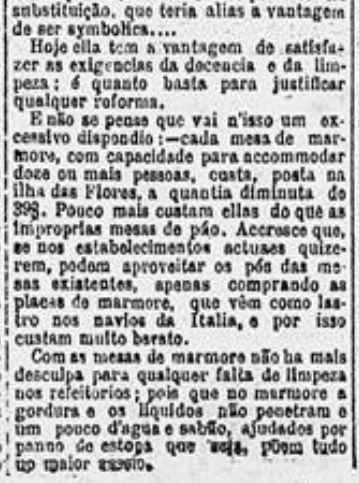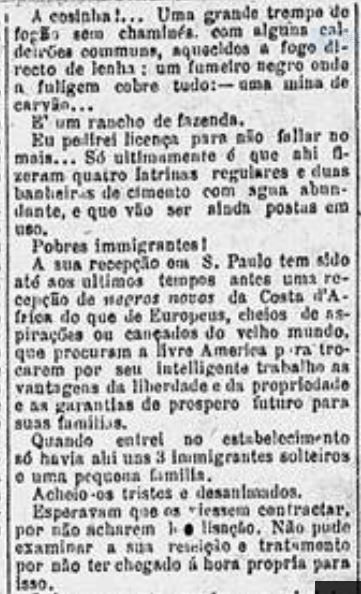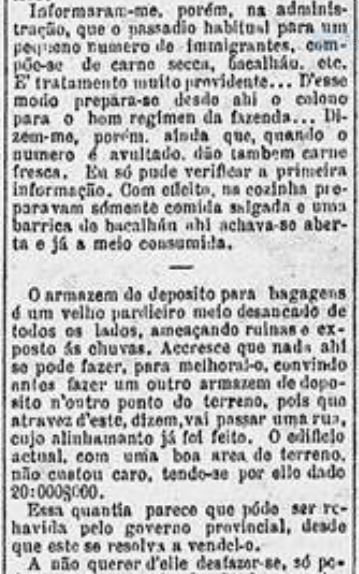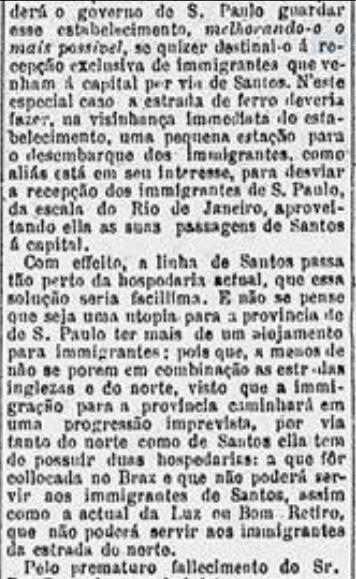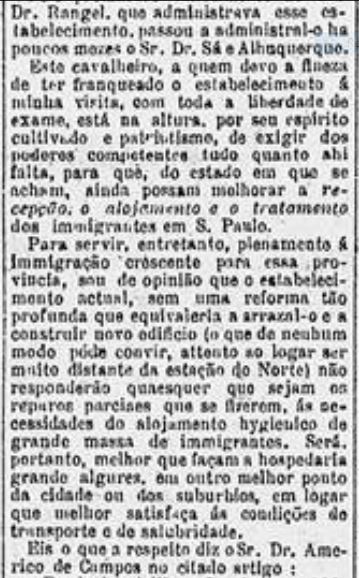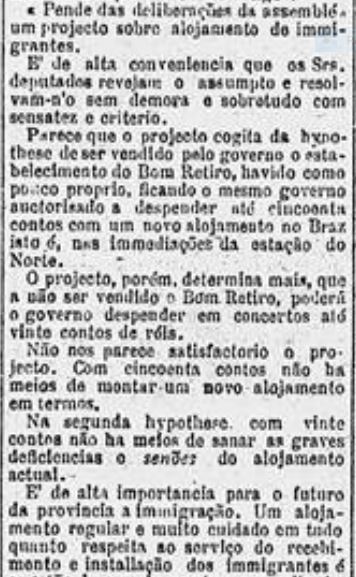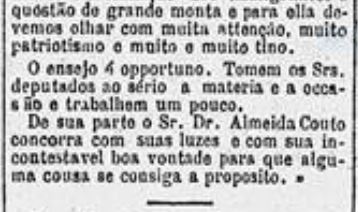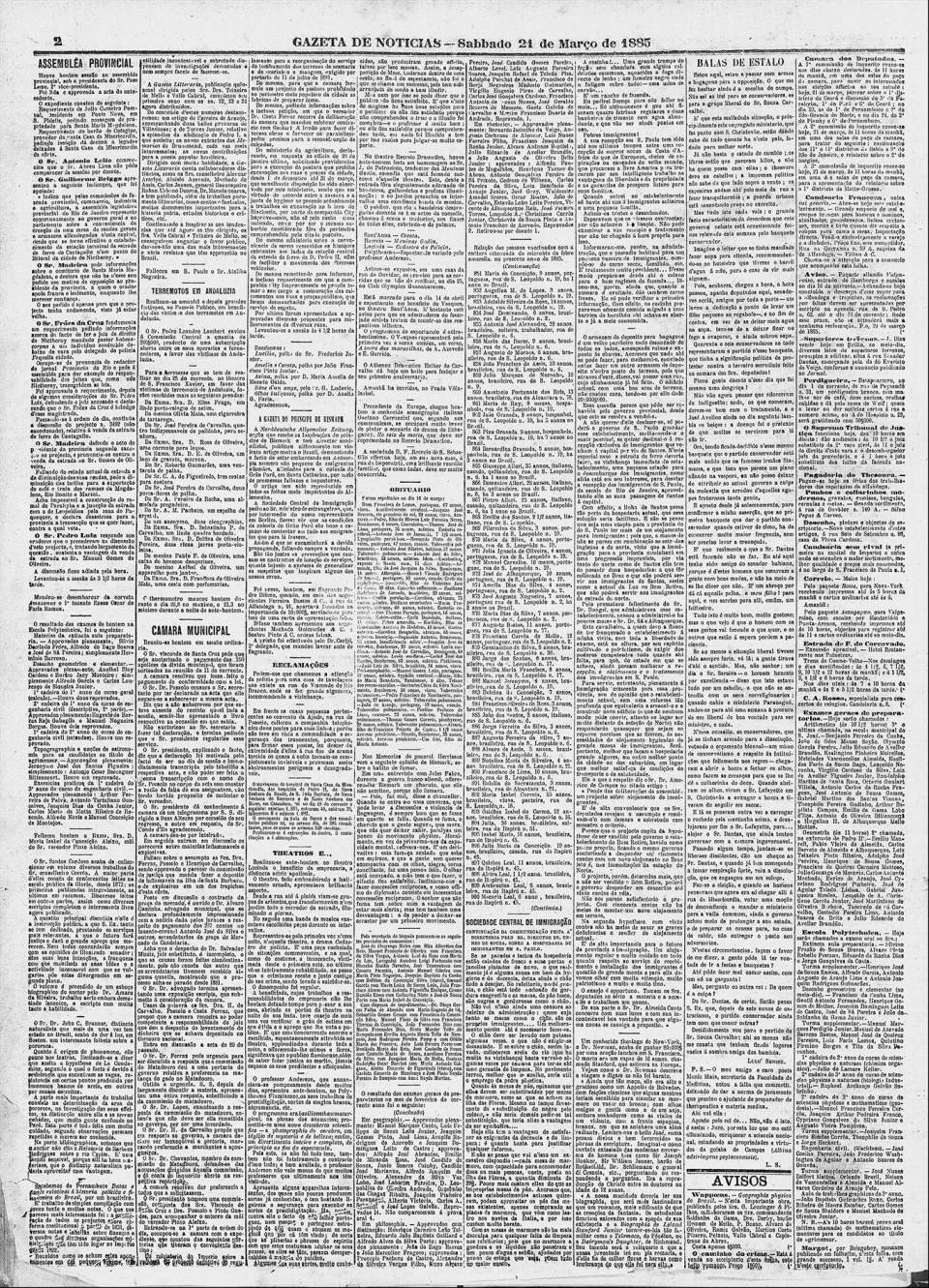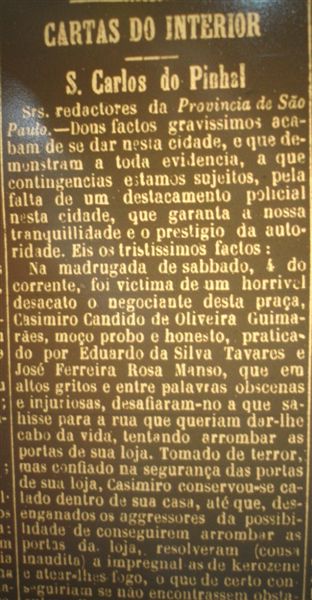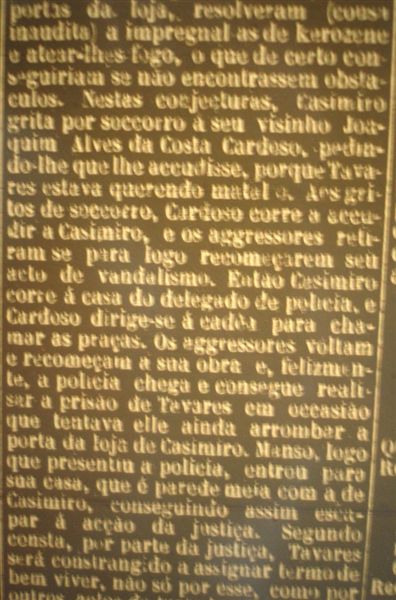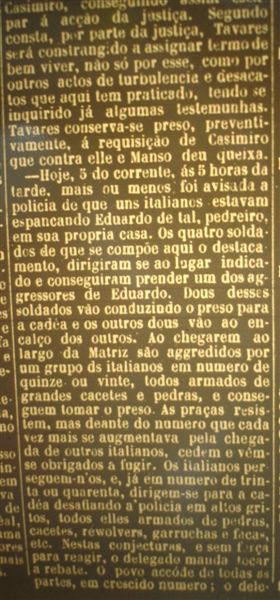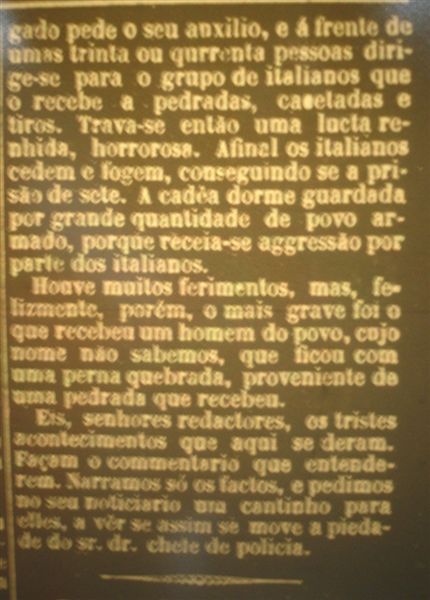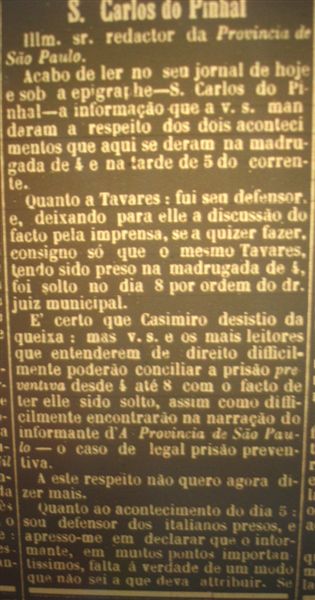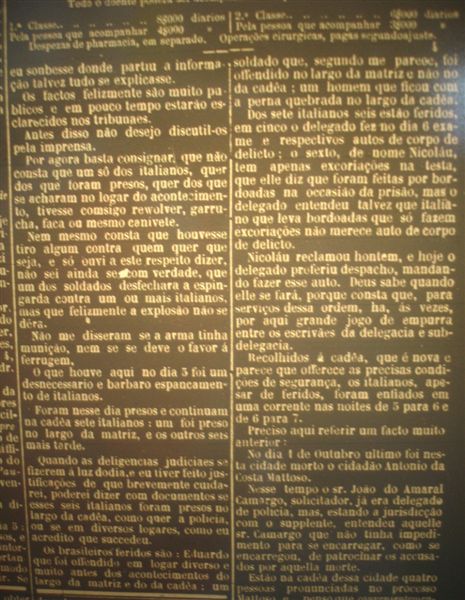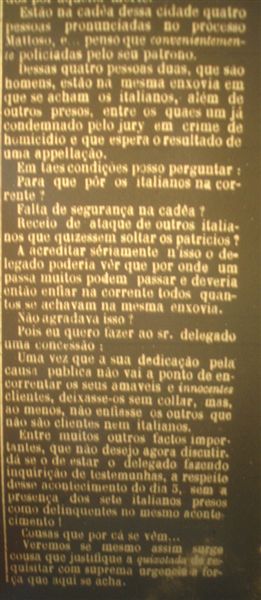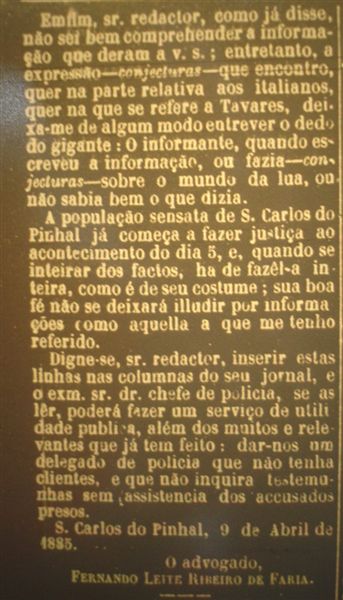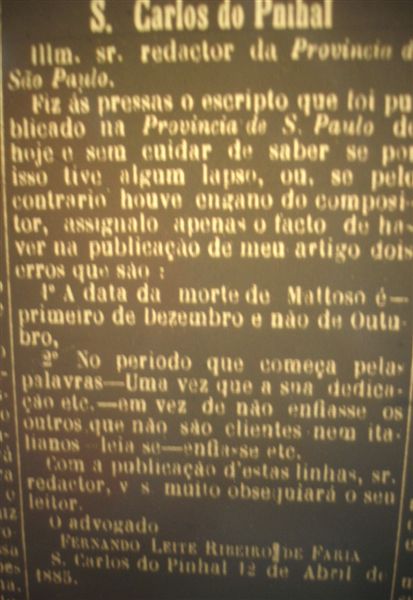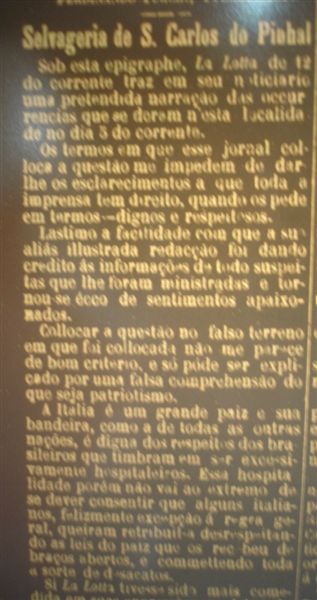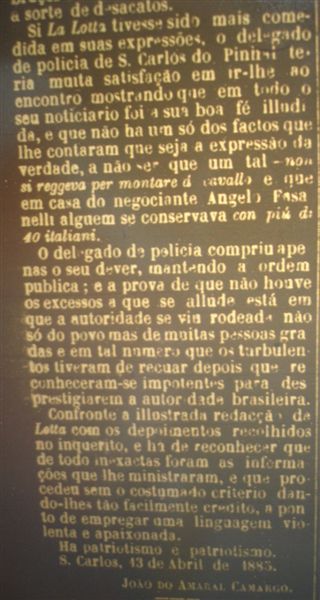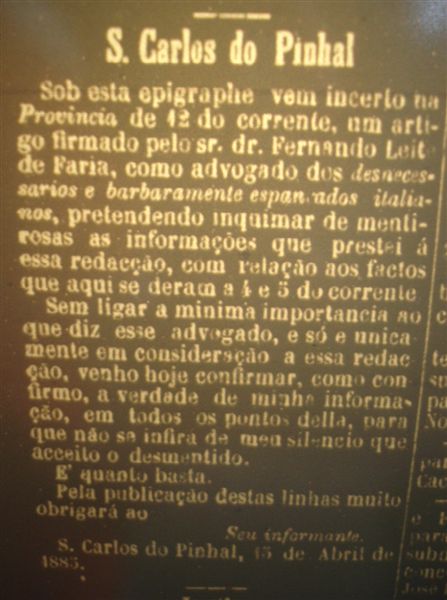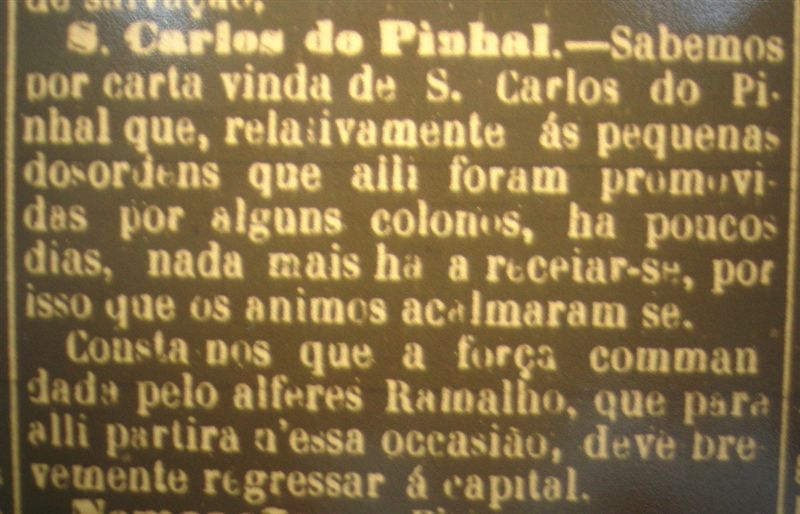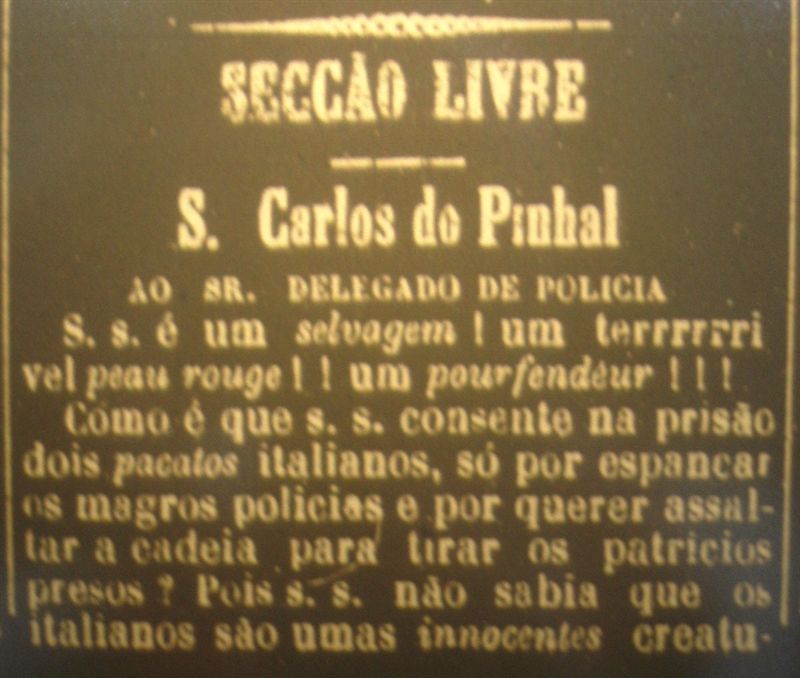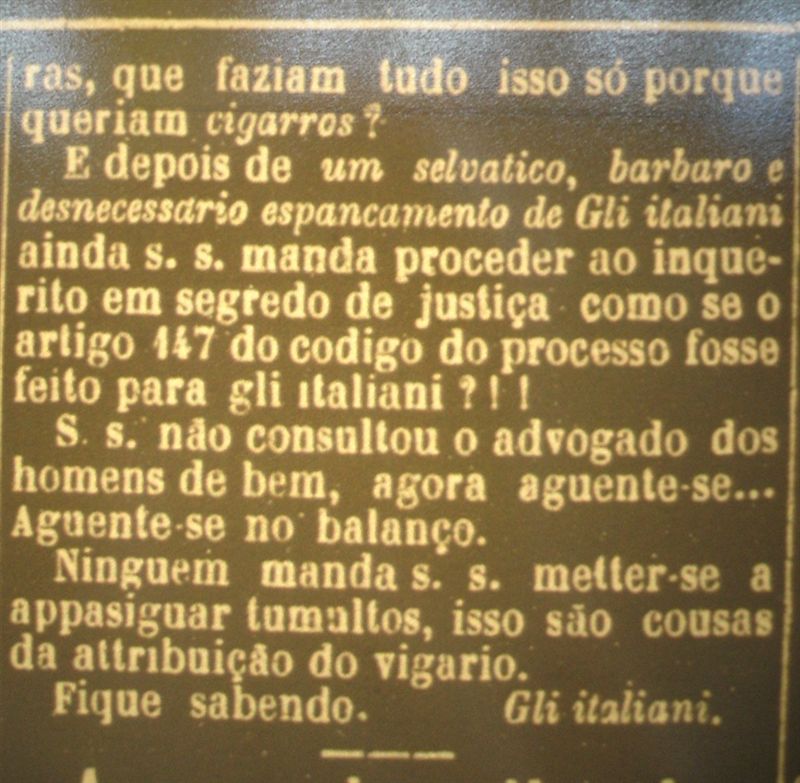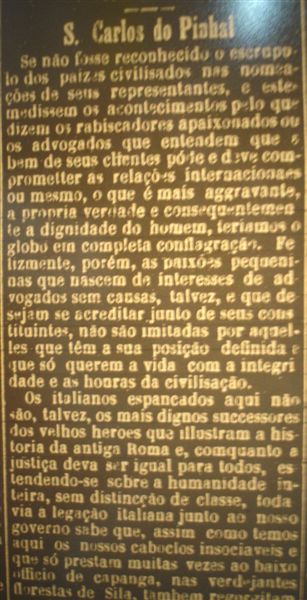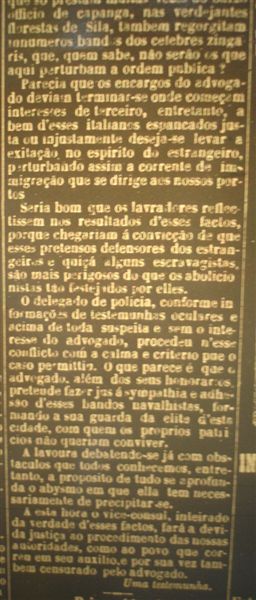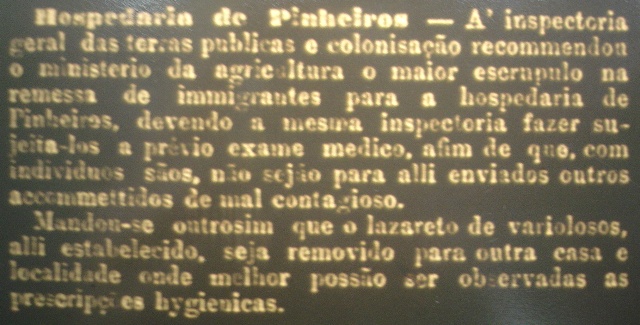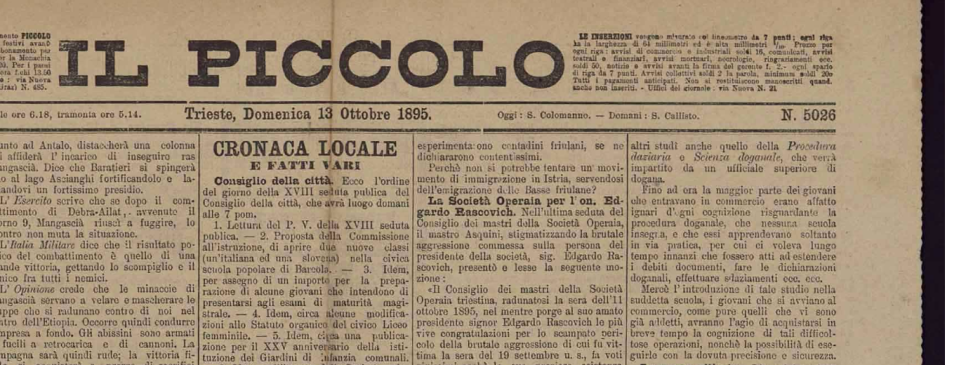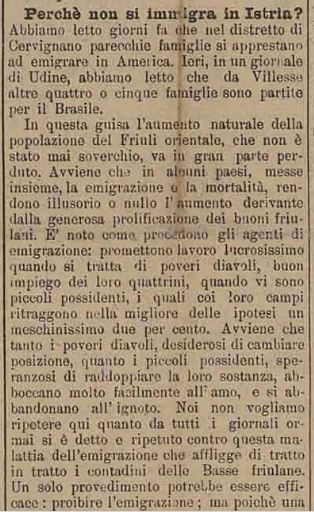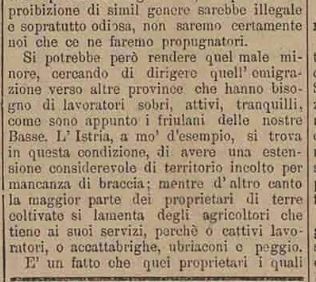BOOKS – LIVROS
Books and online publications containing references to the Tinos Family
Livros e publicações online contendo referências sobre a Família Tinos
– Emigrazione dal Veneto Orientale tra ‘800 e ‘900- Storia e Antologia – Imelde Rosa Pellegrini e Ugo Perissinotto – ed.2010, Italia.
Mention of the First Tinos Family Reunion in Brazil
Menção sobre o Primeiro Encontro da Família Tinos no Brasil

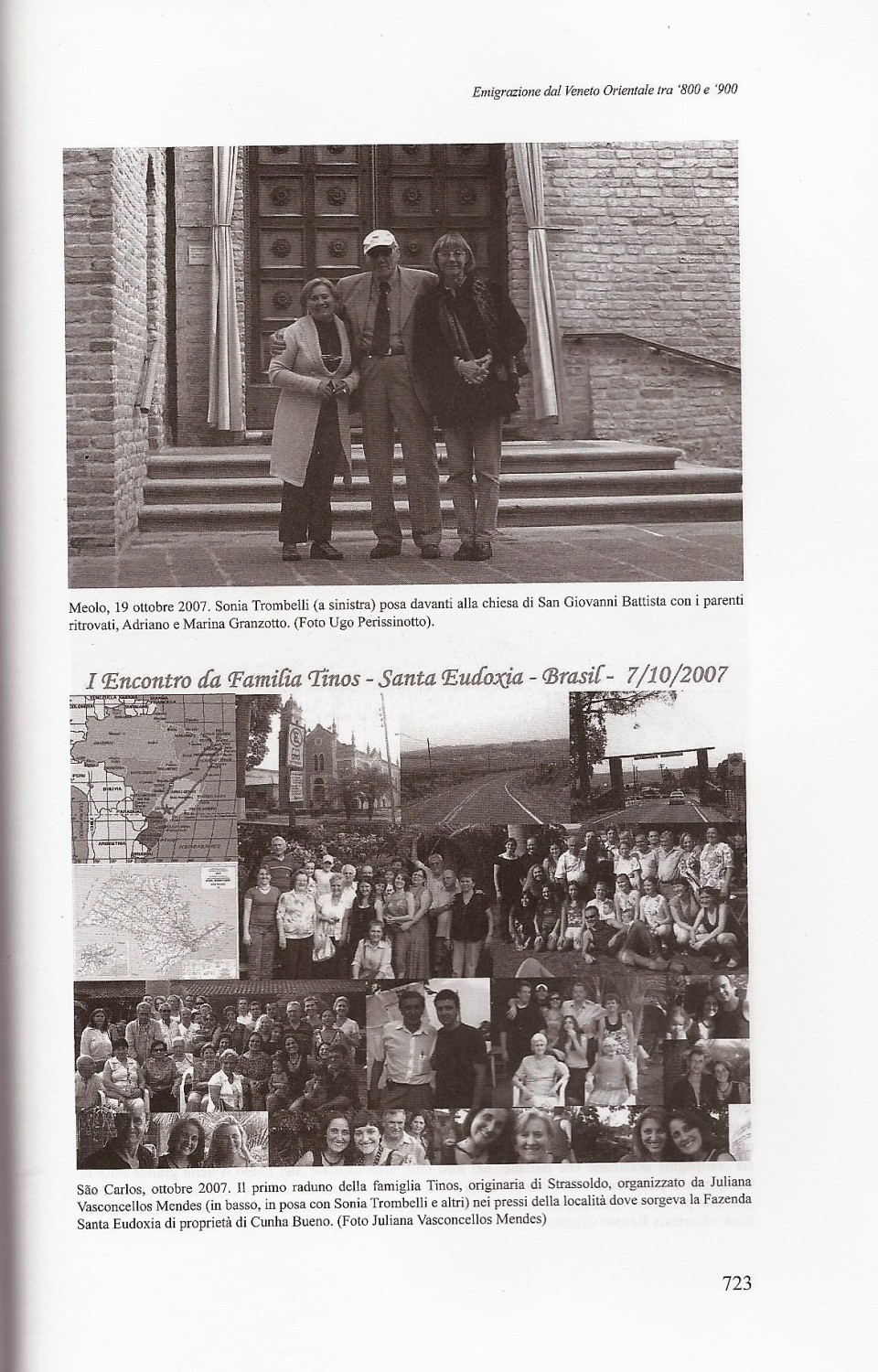
Transcription / Transcrição
I Encontro da Familia Tinos – Santa Eudoxia – Brasil – 7/10/2007.
São Carlos, Ottobre 2007. Il primo raduno della famiglia Tinos, originaria di Strassoldo, organizzato da Juliana Vasconcellos Mendes 9in bassim in posa con Sonia Trobelli e altri) nei pressi della localià dove sorgeva la Fazenda Santa Eudoxia di proprieà di Cunha Bueno (Foto Juliana Vasconcellos Mendes).
Translation – The Tinos Family First Reunion in Santa Eudoxia, Brazil, 7/10/2007 .
In São Carlos, October 2007. The first Brazilian stronghold of the Tinos Family, originally from Strassoldo. Family reunion organised by Juliana Vasconcellos Mendes (at the bottom posing with Sonia Trombelli and others) at the local where it used to be the Santa Eudoxia Farm owned by Cunha Bueno. ( Photo Juliana Vasconcellos Mendes ).
Tradução – Primeiro Encontro da Família Tinos em Santa Eudóxia, Brasil, 7/10/2007.
Em São Carlos, outubro de 2007. O primeiro reduto brasileiro da Família Tinos, originária de Strassoldo. Encontro organizado por Juliana Vasconcellos Mendes (abaixo posando com Sônia Trombelli e outros) na localidade onde foi a Fazenda Santa Eudóxia do proprietário Cunha Bueno ( Foto Juliana Vasconcellos Mendes).
The Tinos Family used to work and live at Santa Eudoxia farm, which was the greatest Coffee Exporter Farm of this period. Antonio Tinos and his daughter Marcellina Tinos used to remember that Dom Pedro II , the Imperor of Brazil was received in São Carlos by their boss, the farmer and colonel Francisco Cunha Bueno on 5/11/1886.
A Família Tinos trabalhava e morava na Fazenda Santa Eudóxia, que era a maior fazenda exportadora de café desse período. Antonio Tinos e sua filha Marcellina Tinos costumavam lembrar que Dom Pedro II, o Imperador do Brasil foi recebido em São Carlos pelo patrão deles, o fazendeiro e coronel Francisco Cunha Bueno em 5/11/1886.
– Tutti gli uomini dell’Imperatore – Giorgio Milocco – Ed.2009, Italia
Mention of Giuseppe Luigi Tinos (Bepo)’s service as a soldier of the Austrian Hungarian Empire during the First World War. Bepo was one of son of Giovanni Tinos & Giga.
Menção sobre o serviço militar prestado por Giuseppe Luigi Tinos (Bepo) como soldado durante a Primeira Guerra Mundial. Bepo foi um dos filhos de Giovanni Tinos e Giga.
– I senza Storia – Giorgio Millocco – ed.2007, Italia.
Mention of Antonio Tinos’s unsuccessful Immigration Application to Argentina in 1882. He was rejected because he could not prove his total state of poverty.
Menção sobre o processo negado de imigração para Argentina em 1882 de Antonio Tinos, por ele não ter sido capaz de provar seu total estado de pobreza.

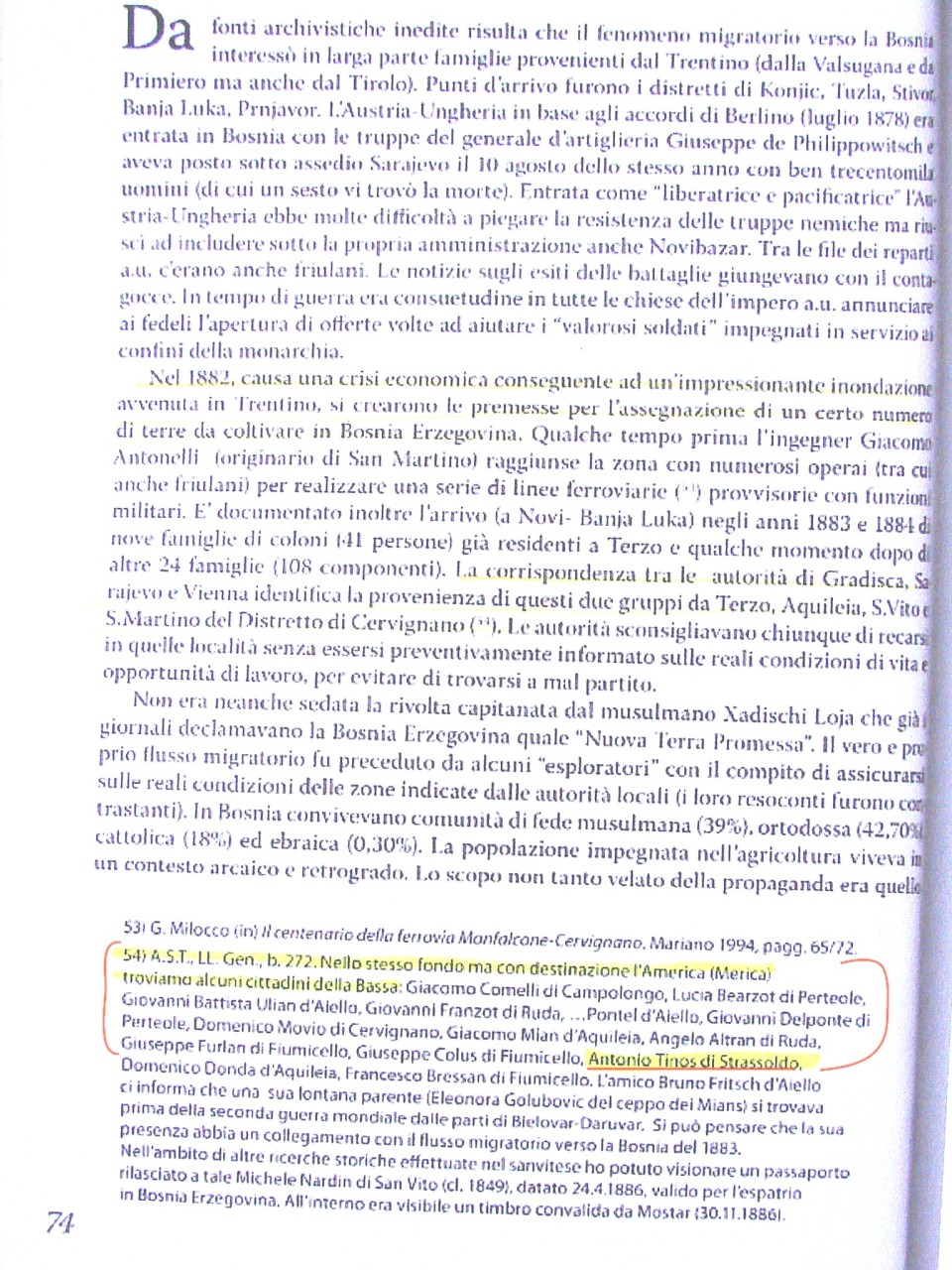
Transcription / Transcrição
53) G. Milocco (in) Il Centenario della ferrovia Monflcone-Cervignano. Mariano 1994, pagg. 65/72.
54) A.S.T., LL Gen, b 272. Nello stesso fondo ma con destinazione l’America (Merica) troviamo alcuni cittadini della Bassa (Furlana): Giacomo Comelli di Campolongo, Lucia Bearzot di Perteole, Giovanni Battista Ulian d’Aiello, Giovann Franzotdi Ruda, … Pontel d’Aiello, Giovanni Delponte di Perteole, Domenico Movio di Cervigano, Giacomo Mian d’Aquileia, Angelo Altran di Ruda, Giuseppe Furlan di Fiumicello, Giuseppe Colus di Fiumicello, Antonio Tinos di Strassoldo, Domenico Donga d’Aquileia, Francesco Bressan di Fiumicello. l amico Bruno Fritsch d’Aiello si informa che una sua lontana parente (Eleonora Golubovic del ceppo dei Mians) si trovava prima della seconda guerra mondiale dalle parti di Bielovar Daruvar. Si può pensare che la sua presenza abbia un collegamento con il flusso migratorio verso la Bosnia del 1883. Nell’ambito di altre richerche storiche effetuate nel sanvitese ho potuto visionare un passaporto rilasciato a tale Michele Nardin di San Vito (cl.1849), datato 24.4.1886, valido per l’espatria in Bosnia Erzegovina. All interno era visible un timbro convalida da Mostar (30.11.1886).
Translation – 53) G. Milocco (author of the book) Il Centenario della ferrovia Monfalcone-Cervignano. (The centenary of the railroad from Monfalcone to Cervignano) .Mariano 1994, pages. 65/72.
54) AST, LL Gen, b 272. From the same archive, but with destination to America (Merica) are some citizens of Lower Friuli: Giacomo Comelli di Campolongo, Lucia Bearzot di Perteole, Giovanni Battista Ulian d’Aiello, Giovann Franzot di Ruda, … Pontel d’Aiello, Giovanni Delponte di Perteole, Domenico Movio di Cervigano, Giacomo Mian d’Aquileia, Angelo Altran di Ruda, Giuseppe Furlan di Fiumicello, Giuseppe Colus di Fiumicello, Antonio Tinos di Strassoldo, Domenico Donga d’Aquileia, Francesco Bressan di Fiumicello. My friend Bruno Fritsch d’Aiello has informed that a distant relative (Eleonora Golubovic del ceppo del Mians) was in Bielovar Daruvar before the Second World War. It is possible to think that her presence has a connection with the migration to the Bosnia in 1883. As part of other historical Research done in San Vito I could see a passport issued to a certain Michele Nardin of San Vito (cl.1849), dated 24.04.1886, valid for emigrate to Bosnia Herzegovina. Inside the document, there was a visible validation stamp from Mostar (11.30.1886).
Tradução – 53) G. Milocco ( autor do livro) Il Centenario della ferrovia Montalcone-Cervigano. Mariano 1994, pags 65/72.
54) AST, LL Gen, b 272. Do mesmo arquivo, mas com destino a América (Merica) estão alguns cidadãos da Baixa Friulana: Giacomo Comelli di Campolongo, Lucia Bearzot di Perteole, Giovanni Battista Ulian d’Aiello, Giovann Franzot di Ruda, … Pontel d’Aiello, Giovanni Delponte di Perteole, Domenico Movio di Cervigano, Giacomo Mian d’Aquileia, Angelo Altran di Ruda, Giuseppe Furlan di Fiumicello, Giuseppe Colus di Fiumicello, Antonio Tinos di Strassoldo, Domenico Donga d’Aquileia, Francesco Bressan di Fiumicello. O amigo Bruno Fritsch de Aiello informou que uma parente distante (Eleonora Golubovic do Ceppo del Mians) estava em Bielovar Daruvar antes da Segunda Guerra Mundial. É possível pensar que sua presença tenha uma conexão com a migração para a Bósnia em 1883. Como parte de outras pesquisas históricas feitas em San Vito eu pude ver um passaporte emitido a um certo Michele Nardin de San Vito (cl.1849), datado 24.04.1886, válido para emigrar para a Bósnia Herzegovina. Dentro do documento, havia um visíbel carimbo de validação de Mostar (11.30.1886).
– Strassoldo il paese dei campanelli – Giorgio Milocco e Corrado Deluisa, Italia.
Many passages of the book refer to Attilio (Attilano) Tinos and his father Giovanni Tinos. They were both shoemakers, part of the Community Council of Strassoldo and in favor of the Austrian Empire Army during the First World War. For this reason they were persecuted by the Italian Army around 1920, after the end of the First World War, when Strassoldo becomes part of Italy. Attilio Tinos ended up spending some time in prison. During the war, they used to live in Via St Marcos, in the last house of Strassoldo on the border with Italy. Attilio used to smuggle food and other goods between Austria and Italy. The book is called Il Paese dei Campanelli – The country of the bells – because a bell would ring anytime there was someone like Attilio trying to pass contraband across the border.
Várias passagens do livro falam sobre Attilio (Attilano) Tinos e seu pai Giovanni Tinos, ambos sapateiros, conselheiros comunais e a favor da Áustria durante a Primeira Guerra Mundial. Por essa razão foram perseguidos em torno de 1920 pelo exército italiano após o final da guerra, quando em Strassoldo passou a pertencer a Itália. Durante a guerra eles moravam na Via St Marcos, na última casa da cidade, na fronteira com a Itália. Attilio costumava a fazer contrabando de alimentos e outras mercadorias entre a Áustria e a Itália. O livro se chama Il paese dei campanelli – o país das campainhas, porque toda vez que alguém como Attilio tentava passar contrabando na fronteira, uma campainha soava.

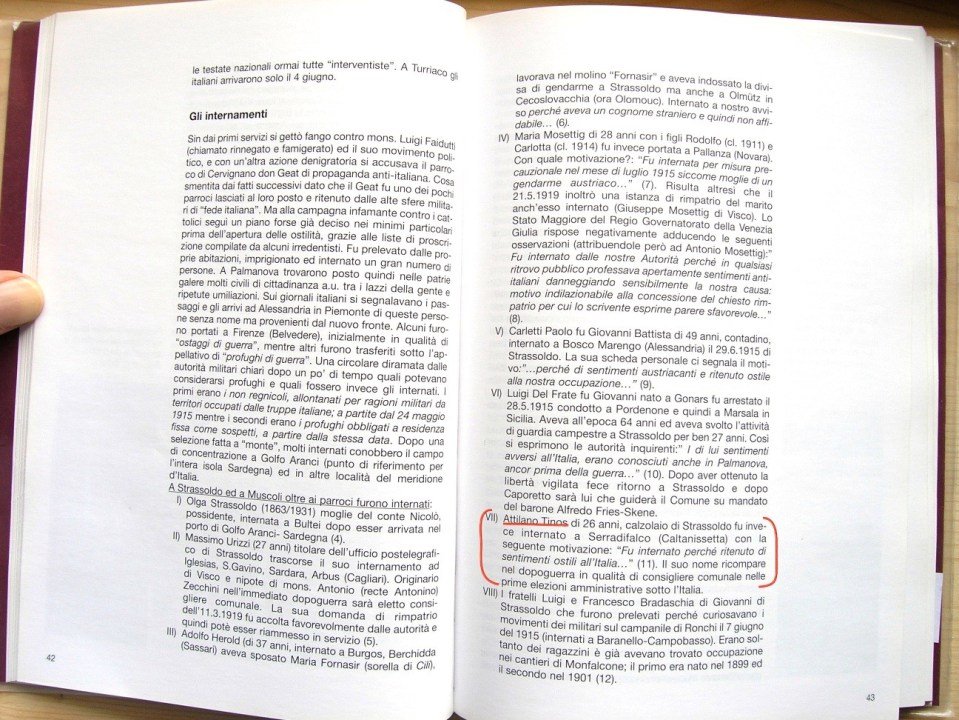
Transcription / Transcrição
Pag 43 Attilano Tinos di 26 anni, calzolaio di Strassoldo fu invece internato a Serradifalco ( Caltanissetta) con la seguente motivazione: ” Fu internato perché ritenuto di sentimenti ostili all’Italia…”(11).Il suo nome ricompare nel dopoguerra in qualità di consigliere comunale nelle prime elezioni amministrative sotto L’Italia.
Translation – Attilano Tinos of 26 years, a shoemaker from Strassoldo, was interned in Serradifalco (Caltanissetta) for the following reason: “He was interned for having hostile feelings for Italy …” (11) . His name reappears after the war as a Community Councilor in the first local elections in Italy.
Tradução – Attilano Tinos de 26 anos, sapateiro de Strassoldo, foi preso em Serradifalco ( Caltanissetta) pelos seguintes motivos – Foi preso por ter sentimentos hostis á Italia…(11). Seu nome reaparece após a guerra na qualidade de conselheiro comunal na primeira eleição administrativa sob a Itália.

Transcription / Transcrição
Dopo le nomine d’ufficio, le prime elezioni amministrative sotto L’Italia vedranno la riconferma del moderato Giuseppe Stabile fu Domenico alla guida del Comune di Muscoli (5.1.1922). La Giunta era composta dagli assessori: De Luisa Angelo (detto Anzul di Strassoldo, esercente), Giuseppe Zanmarchi (muini-talegname, detto Bepo di Muscoli), Raimondo Perusin (Pradiziolo). Consiglieri invece Giraldo Bolzicco (contadin), Francesco Canesin (di Mùscli), Arrigo Coceani (geometra), Benigno Comar (contadin di Strassolt), Girolamo Dri ( maringon), Leonardo (Nardin, contadin di S. Gjal) Piccolo, Giovbatta Tomasin, Attilio Tinos (cjaliar), Massimo Urizzi ( diregente alle Poste), Giovanni Venturini ( Zaneto di Mulin di Punt), Enocchio Zuttion (contadin) (32). A giudicare dai nomi non vi fu un sostanziale cambiamento politico come in altre localitá contermini ma per un giudizio più appropriato, sarebbe necessario conoscere il numero dei suffragi conseguiti dalle forze politiche presenti. Con Regio Decreto no 672 del 1928, Muscoli con Strassoldo ( e Scodovacca), fu aggregato al Comune di Cervignano del Friuli.
Translation: After office appointments, the first local elections in Italy will see the reaffirmation of the moderate Giuseppe Domenico Stabile, son of Domenico, as the leader of the Comune di Muscoli (05/01/1922). The council was composed of the assessors: Luisa De Angelo (said Anzul of Strassoldo, operator), Giuseppe Zanmarchi (muini-talegname, said Bepo of Musculi), Raimondo Perusin (Pradiziolo). Councilors: Giraldo Bolzicco (farm worker), Francesco Canesin (of Mùscli), Arrigo Coceani (surveyor), Benigno Comar (farm worker of Strassolt), Jerome Dri (maringon), Leonardo (Nardin, farm worker S. Gjal) Small, Giovbatta Tomasin, Attilio Tinos (shoemaker), Massimo Urizzi (post manager), Giovanni Venturini (Zaneto of Mulin Punt), Enocchio Zuttion (farmer worker) (32). Judging by the names, there was not a substantial political change as in other neighboring locality but for a proper assessment, it would be necessary to know the number of votes obtained by these political forces. By Royal Decree No 672 of 1928, Muscles with Strassoldo (and Scodovacca), was annexed to the City of Cervignano del Friuli.
Tradução – Após nomeações oficiais, as primeiras eleições locais na Itália verá a reafirmação do moderado Giuseppe Domenico Stabile filho de Domenico, na liderança da Comune di Muscoli (1922/05/01). O conselho foi composto pelos assessores: Luisa De Angelo (dito Anzul de Strassoldo, operante), Giuseppe Zanmarchi (muini-talegname, dito Bepo de Muscoli), Raimondo Perusin (Pradiziolo). Conselheiros foram Giraldo Bolzicco (trabalhador rural), Francesco Canesin (de Mùscli), Arrigo Coceani (geometrista inspector), Benigno Comar (trabalhador rural de Strassoldo), Jerome Dri (maringon), Leonardo (Nardin, trabalhador rural de S. Gjal) Piccolo, Giovbatta Tomasin, Attilio Tinos (sapateiro), Massimo Urizzi (diretor do correio), Giovanni Venturini (Zaneto de Mulin Punt), Enocchio Zuttion (trabalhador rural) (32). A julgar pelos nomes, não houve uma mudança política substancial como em outras localidades vizinhas, mas para uma avaliação adequada, seria necessário conhecer o número de votos obtidos por essas forças políticas. Por decreto real no 672 de 1928, Muscoli com Strassoldo (e Scodovacca), foi anexada à cidade de Cervignano del Friuli.
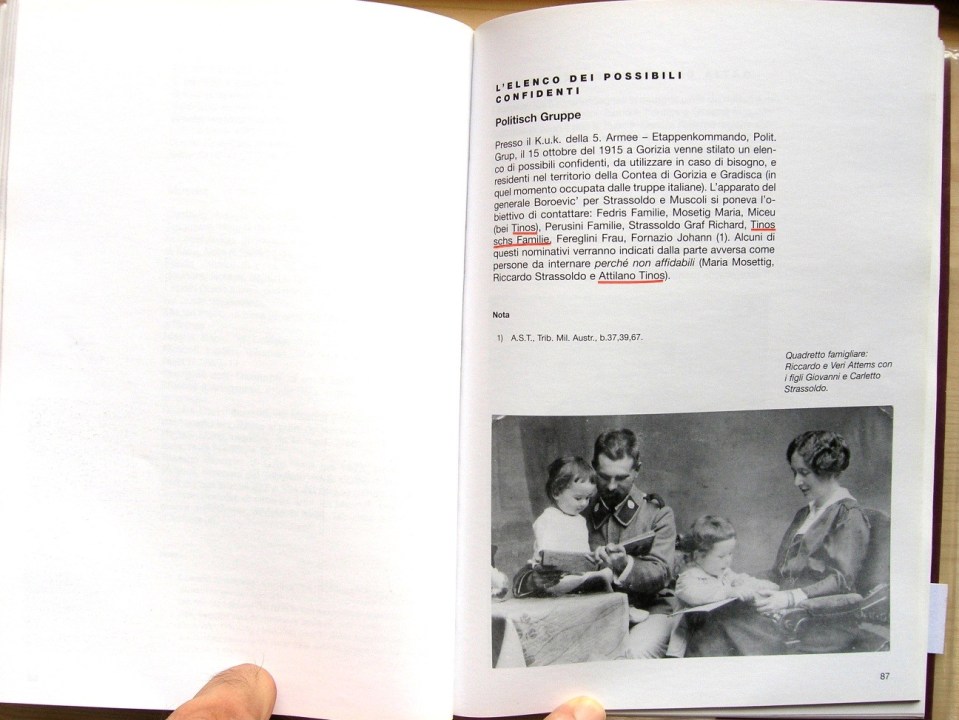
Transcription / Transcrição
L’Elenco dei Possibili Confidenti
Politisch Gruppe
Presso il k.u.k della 5. Armee – Etappenkommando, Polit. Grup, il 15 ottobre del 1915 a Gorizia venne stilato un elenco di possibili confidenti, da utilizzare in caso di bisogno, e residenti nel territorio della Contea di Gorizia e Gradisca ( in quel momento occupata dalle truppe italiane). L’apparato del generale Boroevic per Strassoldo e Muscoli si poneva l obietivo di contattare Fedris Familie, Mosetig Maria, Miceu (bei Tinos), Perusini Familie, Strassoldo Graf Richard, Tinos schs Familie, Fereglini Frau, Fornazio Johann (1). Alcuni di questi nominativi verranno indicati dalla parte avversa come persone da internare perché non affidabili (Maria Mosettig, Riccardo Strassoldo e Attilano Tinos). Nota A.S.t., Trib. Mil. Austr., b37,39,67.
Translation – The List of Possible Allies
Politic Gruppe
At k.u.k of (Austrian’s) 5th Army – Etappenkommando, Polit. Grup, October 15, 1915 in Gorizia was made a list of possible allies, to be used in case of need, residents in the territory of the County of Gorizia and Gradisca (at that time occupied by the Italian troops). The team of the general Boroevic for Strassoldo and Musculi should contact Fedris Familie, Mosetig Maria, Miceu (bei Tinos), Perusini Familie, Count of Strassoldo Richard, Tinos SCHS Familie, Fereglini Frau, Fornazio Johann (1). Some of these names will be indicated by the opposite party as persons to be interned because untruthful (Maria Mosettig, Richard Strassoldo and Attilano Tinos). Note A.S.t., Trib. Mil. Austr., B37,39,67.
Tradução – A Lista de Possíveis Aliados
Grupo Político
No k.u.k da 5a Armada (Austríaca) – Etappenkommando, Polit. Grup, no dia 15 de outubro de 1915 em Gorizia foi elaborada uma lista de possíveis aliados, para ser usada em caso de necessidade, dos residentes no território do Condado de Gorizia e Gradisca (na época ocupada pelas tropas italianas). A equipe do General Boroevic de Strassoldo e Musculi deveria contactar a Familia Fedris, Mosetig Maria, Miceu (dos Tinos), Familia Perusini, Conde de Strassoldo Richard, alguns da Familia Tinos, Fereglini Frau, Fornazio Johann (1). Alguns desses nomes serão indicados pela outra parte como pessoas a serem pressas porque não confiáveis (Maria Mosettig, Richard Strassoldo e Attilano Tinos). Nota A.S.t., Trib. Mil. Austr., B37,39,67.
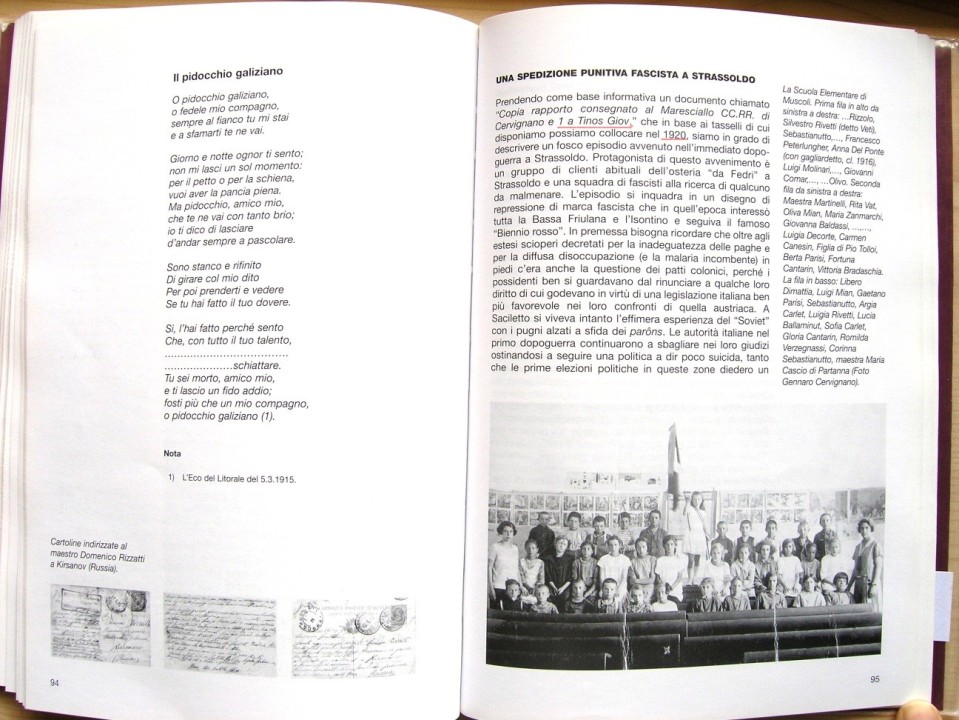
Transcription / Transcrição
Una spedizione punitiva facista a Strassoldo
Prendendo come base informativa un documento chiamato Copia rapporto consegnato al Maresciallo CC.RR. di Cervignano e 1 a Tinos Giov. che in base ai tasselli di cui disponiamo possiamo collocare nel 1920, siamo in grado di descrivere un fosco episodio avvenuto nell immidiato depo guerra a Strassoldo. Protagonista di questo avvenimento é un gruppo di clienti abituali dell’osteria da Fedri a Strassoldo e una squadra di fascisti alla ricerca di qualcuno da malmenare. L’episodio si inquadra in un desegno di repressione di marca fascista che in quell’epoca interessò tutta la Bassa Friulana e I’Isontino e seguira il famoso “Biennio Rosso”. In premessa bisogna ricordare che oltre agli estesi scioperi decretati per la inadeguatezza delle paghe e per la diffusa disoccupazione ( e la malaria incombente) in pieci c’era anche la questione dei patti colonici, perché i possidenti ben si guardavano dal rinunciare a qualche loro diritto di cui godevano in virtù di una legislazione italiana ben più favorevole nei loro confronti di quella austriaca.
Translation – A fascist punitive expedition in Strassoldo
Taking as basic of information a document called Copy report delivered to Marshal CC.RR. Cervignano and 1a Tinos Giov. that according to the blocks at our disposal we can place in 1920, we are able to describe a grim episode that took place in the immediate after war in Strassoldo. The protagonist of this event is a group of habitues of the Fredi Tavern in Strassoldo and a team of fascists looking for someone to beat up. The episode is a typical type of fascist repression which used to happen in the whole Lower Friuli and I’Isontino and will follow the famous “Red Biennium”. First, it must be remembered that in addition to extensive strikes due to the inadequacy of wages and widespread unemployment (and the looming malaria) , there was also the question of colonial pacts, for the land owners didn’t want to give up some of their rights given by the Italian law much more favorable to them than the Austria Law.
Tradução – Uma expedição facista punitiva em Strassoldo
Tomando como base informativa um documento chamado Cópia relatório consignado ao Maresciallo CC.RR. Cervignano e 1 a Tinos Giov. que de acordo com os blocos à nossa disposição podemos deduzir ser em 1920, somos capazes de descrever um episódio desagradável que ocorreu no imediato pós guerra em Strassoldo. Os protagonistas deste evento são um grupo de frequentadores da taberna de Fedri em Strassoldo e uma esquadra de fascistas procurando alguém para bater. O episódio se enquadra em um estilo de repressão de marca fascista que na época foi utilizado em toda a Baixada Friulana e I’Isontino e seguirá o famoso “Biênio Vermelho”. Primeiramente, deve ser lembrado que, além das extensas greves decretadas pela inadequação dos salários e desemprego generalizado (e a malária iminente) em pé havia também a questão dos pactos coloniais, porque os proprietários de terras bem se guardavam de renunciar de qualquer dos seus direitos dos quais eles gozavam em virtude de uma legislação italiana muito mais favorável para eles do que a legislação austríaca.
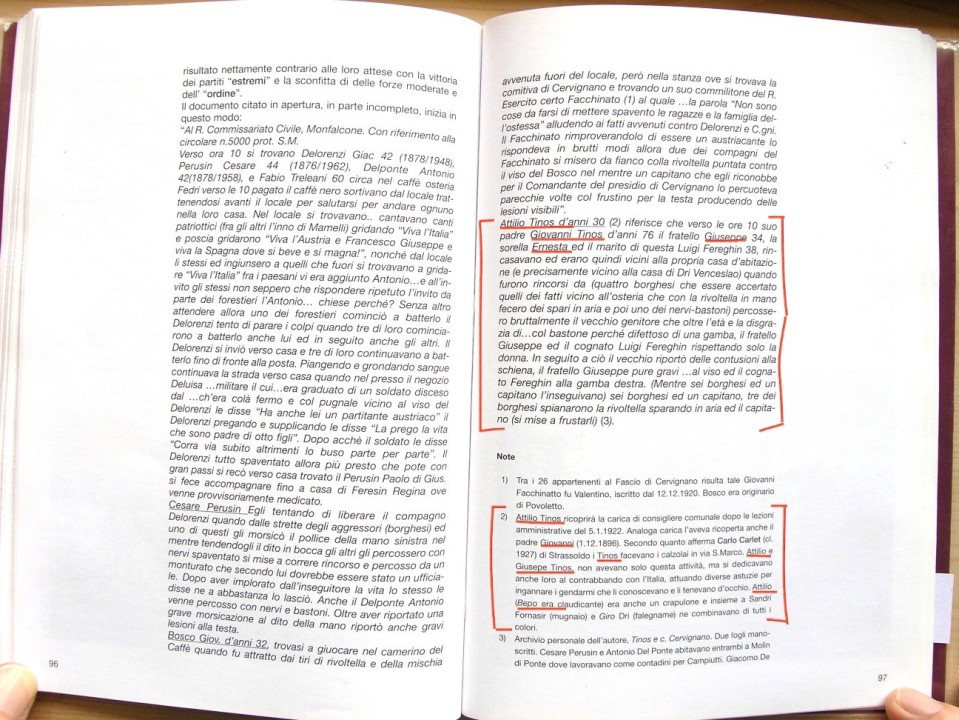
Trancription / Transcrição
Attilio Tinos d’anni 30 (2) riferisce che verso le ore 10 suo padre Giovanni Tinos d’anni 76, il fratello Giuseppe 34, la sorella Ernesta ed il marito di questa Luigi Fereghin 38, ricasavano ed erano quindi vicini alla propria casa d’abitazione ( e precisamente vicino alla casa di Dri Venceslao) quando furono rincorsi da ( quattro borghesi che essere accertato quelli dei fatti vicino all’osteria che con la rivoltella in mano fecero dei span in aria e poi uno dei nervi-bastoni) percossero bruttalmente il vecchio genitore che oltre l’età e la disgra … di col bastone perché difettoso di una gamba, il fratello Giuseppe ed il cognato Luigi Fereghin rispettando solo la donna. In seguito a cio il vecchio riportó delle contusini alla schiena, il fratello Giuseppe pure gravi… al viso ed il cognato Fereghin alla gamba destra. ( Mentre sei borghesi ed un capitano l inseguivano) sei borghesi ed un capitano, tre dei borguesi spianarono la rivoltella sparando in aria ed il capitano ( si mise a frustarli) (3).
2) Attilio Tinos ricoprirà la carica di consigliere comunale dopo le lezioni amministrative del 5.1.1922. Analoga carica l aveva ricoperta anche il padre Giovanni (1.12.1896). Secondo quanto afferma Carlo Carlet(cl. 1927) di Strassoldo i Tinos facevano i calzolai in via S. Marco. Attilio e Giusepe Tinos, non avevano solo questa attività, ma si dedicavano anche loro al contrabbando con I’Italia, attuando diverse astuzie per ingannare i gendarmi che li conoscevano e li tenevano d’occhio. Atillio (Bepo era claudicante) era anche un crapulone e insieme a Sandri Fornasir (mugnaio) e Giro Dri (falegname) ne combinavano di tutti i colori.
3) Archivio personale dell’autore, Tinos e c. Cervignano. Due ogli manoscritti. Cesare Perusin e Antonio Del Ponte abitavano entrambi a Molin di Ponte dove lavoravano come contadini per Campiutti…
Translation – Attilio Tinos of 30 years (2) reports that at about 10pm his father Giovanni Tinos of 76 years, his brother Joseph 34, his sister Ernesta and her husband Luigi Fereghin 38, where returning home, being already very close to their home ( precisely in front of Dri Venceslao’s home) when they were chased by (four bourgeois who where near the tavern and who had their revolvers in their hands shooting in the air and with nerve-sticks) they brutally beat his old and handicap father, as well as his brother Giuseppe and his brother in law Luigi Fereghin; respecting only the woman. Following what his father reported he was injured in his back, the brother more serious, had facial injures and the brother in low Fereghin had his right leg injured. (While these bourgeois and a captain chased them) these bourgeois and a captain, three of the bourgeois fired their gun into the air and the captain (he began to whip them) (3).
2) Attilio Tinos will be elected the Communal councilor after the administrative elections of 01/05/1922. His father Giovanni had a similar position (01.12.1896). According to reports by Carlo Carlet (Cl. 1927) of the Strassoldo , The Tinos were shoemakers in S. Marco street. Attilio and Giussepe Tinos, had not only this activity, but also dedicated themselves to contraband with Italia. They used to implement various tricks to deceive the border guards who knew them and were watching them. Atillio (Bepo was lame) was also a glutton “bon vivant” and with Sandri Fornasir (miller) and Giro Dri (carpenter) they used to “paint the town red”.
3) Author’s Archives staff, Tinos and c. Cervignano. Two other manuscripts. Perusin Cesare and Antonio Del Ponte lived both in Molin di Ponte where they worked as farm workers for Campiutti …
Tradução – Attilio Tinos de 30 anos (2) relata que em cerca das 10 horas (da noite) o pai Giovanni Tinos de 76 anos, seu irmão Giuseppe 34, irmã Ernesta e o marido desta Luigi Fereghin 38, voltavam pra casa, estando visinhos de sua própria casa de habitação (e precisamente perto da casa do Dri Venceslao) quando eles foram perseguidos por (de fato quatro burgueses estavam perto da taverna e que com o revólver na mão atiraram para o ar e, em seguida, com um cassetete – bastões de nervos) bateram brutalmente no velho pai que além da idade andava com uma begala por ter uma perna defeituosa, no seu irmão Giuseppe e no seu cunhado Luigi Fereghin respeitando apenas a mulher. Em seguida a isso o velho reportou contusões nas costas, seu irmão Giuseppe mais … grave no rosto e o cunhado Fereghin na sua perna direita. (Enquanto esses burgueses e um capitão lhes perseguiam) esses burgueseis e um capitão, três dos burgueses apontaram as armas disparando para o ar e o capitão (ele começou a lhes chicotear) (3).
2) Attilio Tinos irá exercer o cargo de conselheiro comunal após as eleições administrativas de 5.1.1922. O mesmo cargo também serviu o pai Giovanni (1.12.1896). De acordo com o que afirma Carlo Carlet (Cl. 1927) de Strassoldo os Tinos eram sapateiros na Via S. Marco. Attilio e Giuseppe Tinos, não tinham apenas esta atividade, mas também se dedicaram a fazer contrabando com a Itália, fazendo várias peripécias para enganar os policiais que os conheciam e estavam de olho neles. Atillio (Bepo era coxo) também era um comilão (bon vivant) e com Sandri Fornasir (trabalhador do moinho) e Giro Dri (carpinteiro) pintavam o sete – maquinavam mil travessuras.
3) Arquivo pessoal do autor, Tinos e c. Cervignano. Dois outros manuscritos. Cesare Perusin e Antonio Del Ponte viviam ambos em Molin de Ponte onde trabalhavam como trabalhadores rurais para Campiutti …
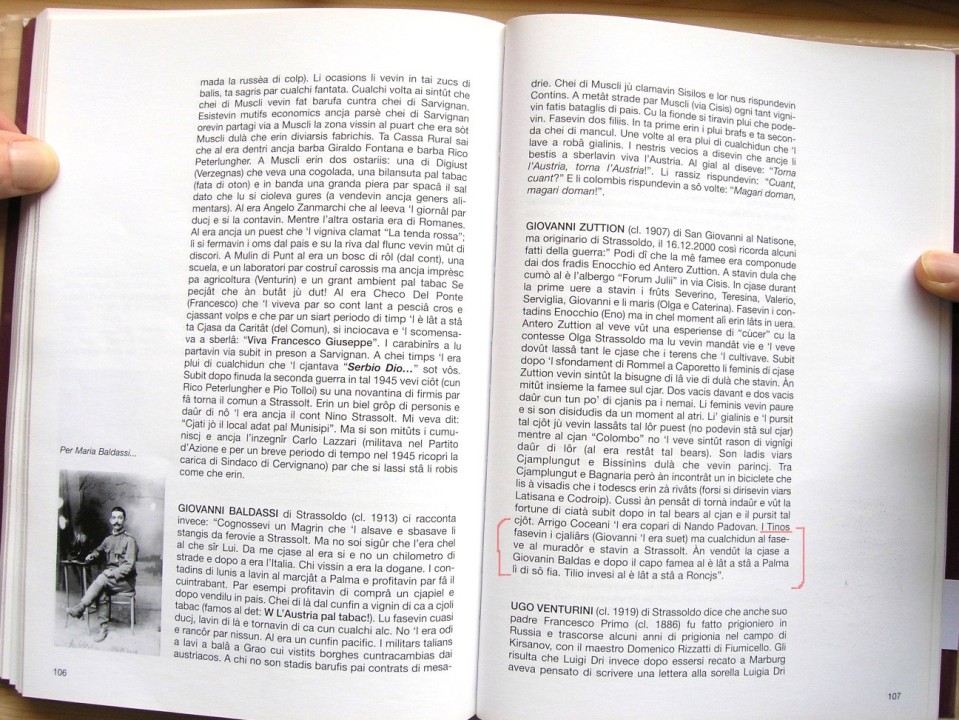
Transcription / Transcrição
Giovanni Zuttion (cl.1907) di San Giovanni al Matisone, ma originario di Strassoldo, il 16.12.2000 cosi ricorda alcuni fatti della guerra… “I Tinos fasevin i cjaliârs ( Giovanni l era suet) ma cualchidun al fasece al muradôr e stavin a Strassolt. Àn vendût la cjase a Giovanin Baldas e dopo il capo famea al è lât a stâ a Palma lì di sô fia. Tilio invesi al è lât a stâ a Roncjs. ” (text in Friulian).
Translation – Giovanni Zuttion (class 1907) of San Giovanni al Matisone, but originally from Strassoldo, on December 16, 2000 he remembered some facts of the war … “The Tinos were shoemakers (Giovanni was crippled), but sometimes they worked as bulders and they lived in Strassoldo. They sold their house to Giovanni Baldas and then the patriarch Giovanni wnet to live with his daughter in Palma. Attilio went to Ronchis. (original text written in Friulian).
Tradução – Giovanni Zuttion ( classe 1907) de San Giovanni al Matisone, mas originário de Strassoldo, em 16.12.2000 se recordava de alguns fatos da guerra… ” Os Tinos eram sapateiros ( Giovanni era aleijado), mas as vezes trabalhavam como pedreiros e moravam em Strassoldo. Venderam a casa a Giovanin Baldas e depois o patriarca (Giovanni) foi para a casa da sua filha em Palma. Attilio por sua vez, foi para Ronchis.” (relato em Furlan).
– Il Fratelli d’Italia – Sara Milloco & Giorgio Milloco, Italia.
List of prisoners of the First World War captured by the Italian Army, including Attilio (Attilano) Tinos.
Lista de prissioneiros de Primeira Guerra Mundial capturados pelo Exército Italiano, incluindo Attilio ( Attilano) Tinos.

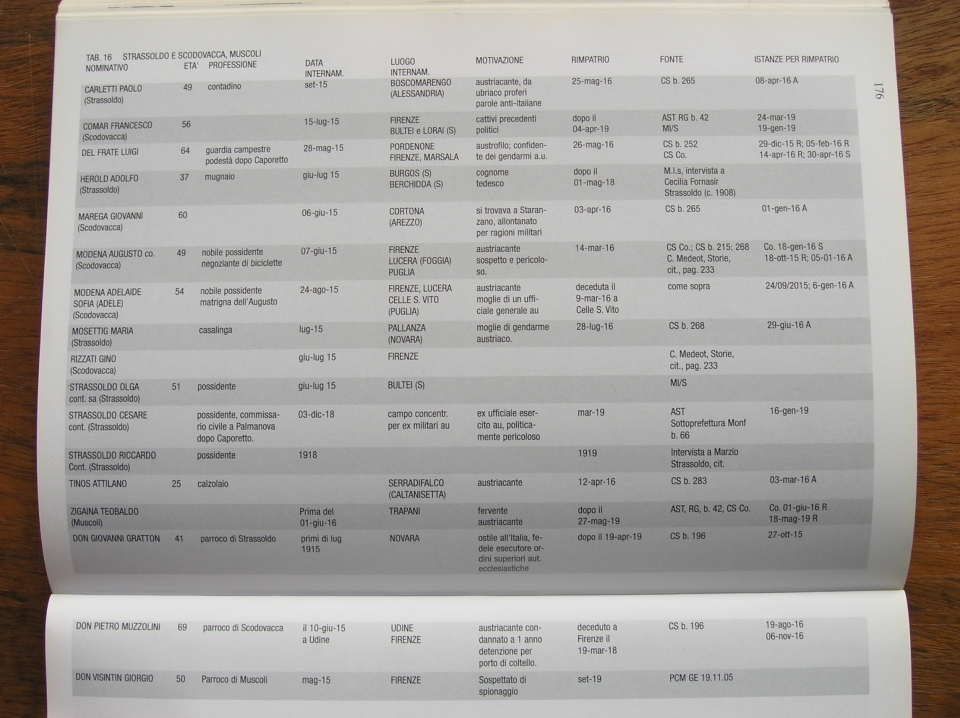
Transcription and translation / Transcrição e tradução
Tab 16 – Strassoldo, Scodovacca, Musculi
Nominativo / Eta / Professione / Data Internam. /Luogo Internam. / Motivazione / Rimpatrio / Fonte / Intanze per rimpatrio
Name / Age / Profession / arrest date / local / Reason / end / source / Instance
Nome / Idade / Profissão / Data da prissão / Local / Motivo / Repatriação / fonte / lnstância
Tinos Attilano / 25 / Calzolaio (shoemaker – sapateiro) / – / Serradifalco (Caltanisetta) / Austriacante (Austria Ally – aliado da Áustria / 12-abr-16 / CS b 283 / 3 Marc 16 A
Carletti Paolo (Strassoldo) / 49 / contadino / set-15 / Boscomarengo (Alexandria) / Austriacante da ubriaco proferì parole anti-italiani / 25-mag16 / CS b 265 / 8-apr-16 A
Strassoldo Cessare Cont. (Strassoldo) / – / possidente, comissario civile a Palmanova dopo Caporetto / 3-dic-18 / campo concentr. per ex militari au / ex ufficiale esercito au, politicamente periculoso / Mar-19 / AST Sottoprefettura Monf b 66 / 16-gen19
Strassoldo Riccardo Cont. (Strassoldo) / – / Posidente / 1918 / – / – / 1919 / Intervista a Marzio Strassoldo, cit – / – /
Don Giovanni Gratton /41/ Parroco di Strassoldo / Primi di Lugi 1915 / Udine Firenze / ostile all Italia fedele esecutore ordini superiori aut. ecclesiastiche / dopo ir 19-abr-19 / CS b 196 / 27-ott-15
List of Political Prisoners – Lista dos pressos políticos –
- Paolo Carletti (Strassoldo) , 49, contadino (rural worker – trabalhador rural )
- Franchesco Comar (Scodovacca), 56
- Luigi Del Frate, 64, Guardia Campestre, podestà dopo Caporetto ( hayward and Mayor after Battle of Caporetto – guarda campestre e Prefeito após a Batalha do Caporetto).
- Herold Adolfo (Strassoldo), 37, mugnaio (miller – moleiro , trabalhador de moinho)
- Giovanni Marega (Scodovacca), 60
- Conde Augusto Modena (Scodovacca), 49, Nobile possidente negoziante di bicicletti ( noble landowner, bicicle merchant – Nobre proprietária de terra e negociante de bicicletas).
- Adelaide Sofia Modena, Adele (Scodovacca), 54, nobile posidente, madrigna dell’Augusto (Noble landowner, Augusto’s Godmother – Nobre, proprietária de terras, madrinha do Augusto).
- Maria Mosettig (Strassoldo), casalinga (housewife – dona de casa)
- Gino Rizzati (Scodovacca)
- Condessa Olga Strassoldo, 51, possidente ( landowner – proprietária de terras).
- Conde Cesare Strassoldo, possidente, comisario civile a Palmanova dopo Caporetto. (landowner, civil comissioner in Palmanova after Batlle of Caporetto – proprietário de terras, comissário civil em Palmanova após a Batalha do Caporetto).
- Conde Riccardo Strassoldo, possidente (landowner – proprietário de terras).
- Attilano Tinos, 25, Calzolaio (shoemaker – sapateiro)
- Teobaldo Zigaina (Muscoli)
- Don Giovanni Gratton, 41, Parroco di Strassoldo (Vicar of Strassoldo – Vigário de Strassoldo)
- Don Pietro Muzzolini, 69, Parroco di Scodovacca (Vicar of Scodovacca – Vigário de Scodovacca).
- Don Visintin Giorgio, 50, Parroco di Musculi (Vicar of Musculi – Vigário de Musculi).
– Strassoldo Nell’ Agro di Aquileia – Luigi Deluisa – Ed. 1992, Italia.
List of surnames found in Strassoldo and the year they first appeared in the Church Registers:
- Tinos (1729),
- Grassetti from Precenicco (1832),
- Zucchi (1719),
- Zecchin from S.Vito (1843)
- Rossit (1610 in Cisis)
- Rossit – Greengrocer (ortolano) of Count of Strassoldo (1764),
- Franco (1654) – source: BJ -Library V. Joppi di Udine – Biblioteca Civica Vincenzo Joppi di Udine,
- Franco from Castions (1699 in San Gallo; 1701 in Cisis; 1717 in Strassoldo).
Lista dos sobrenomes encontrados em Strassoldo e do ano em que eles primeiro apareceram nos registros da igreja:
- Tinos (1729),
- Grassetti originário da Precenicco (1832),
- Zucchi (1719),
- Zecchin, originário de S. Vito (1843)
- Rossit (1610 em Cisis)
- Rossit – verdureiro (ortolano) do conde de Strassoldo (1764 em Strassoldo);
- Franco (1654) – fonte: BJ –Biblioteca Civica Vincenzo Joppi di Udine,
- Franco originário de Castions (1699 em San Gallo; 1701 em Cisis; 1717 em Strassoldo).

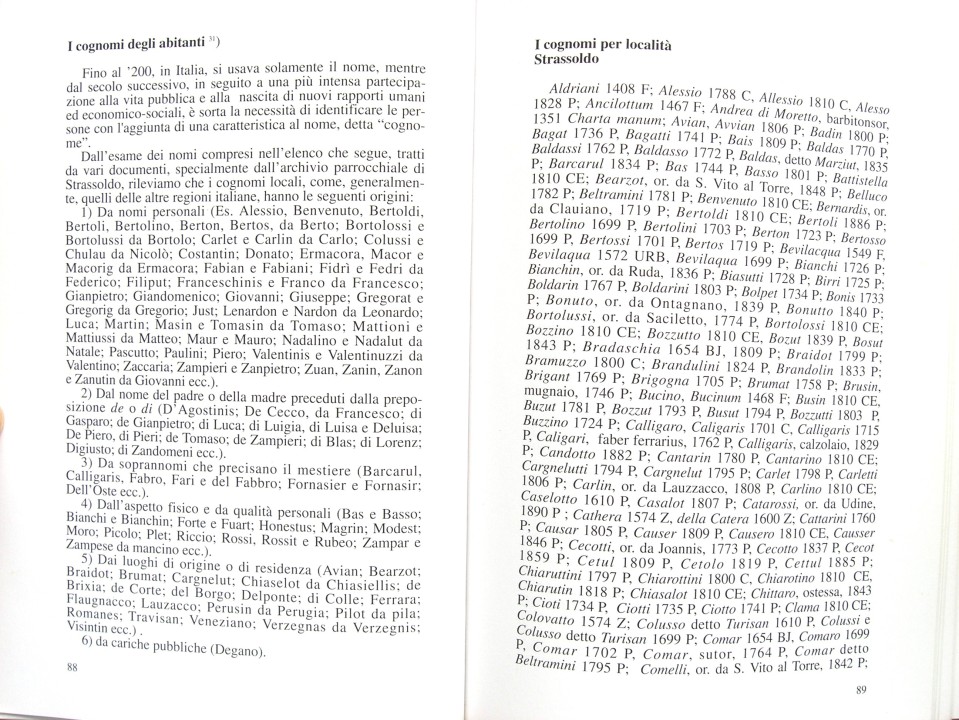
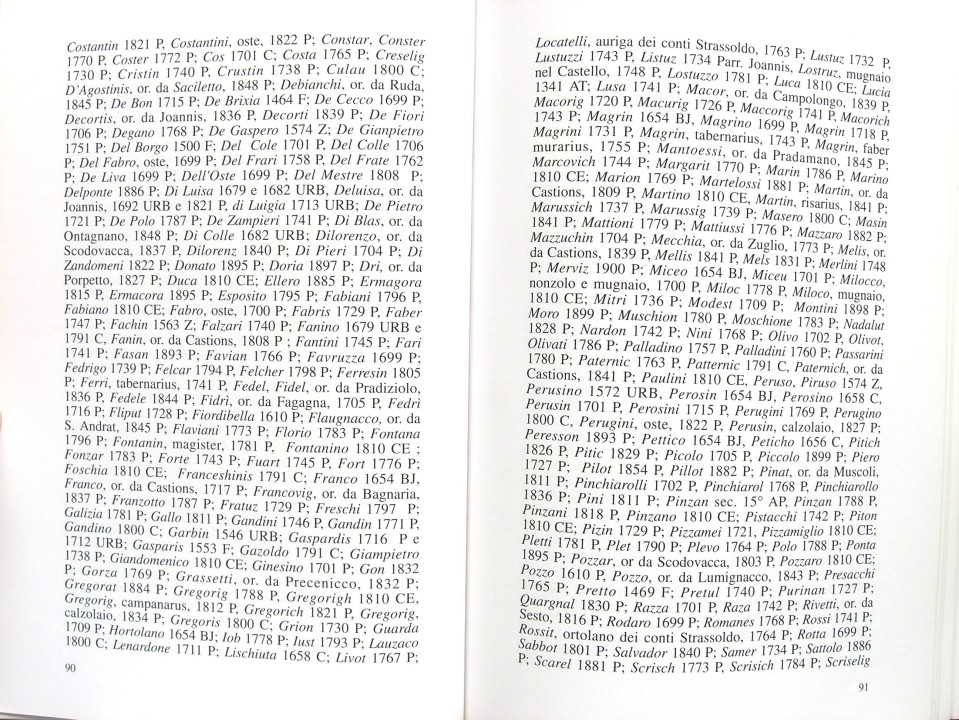
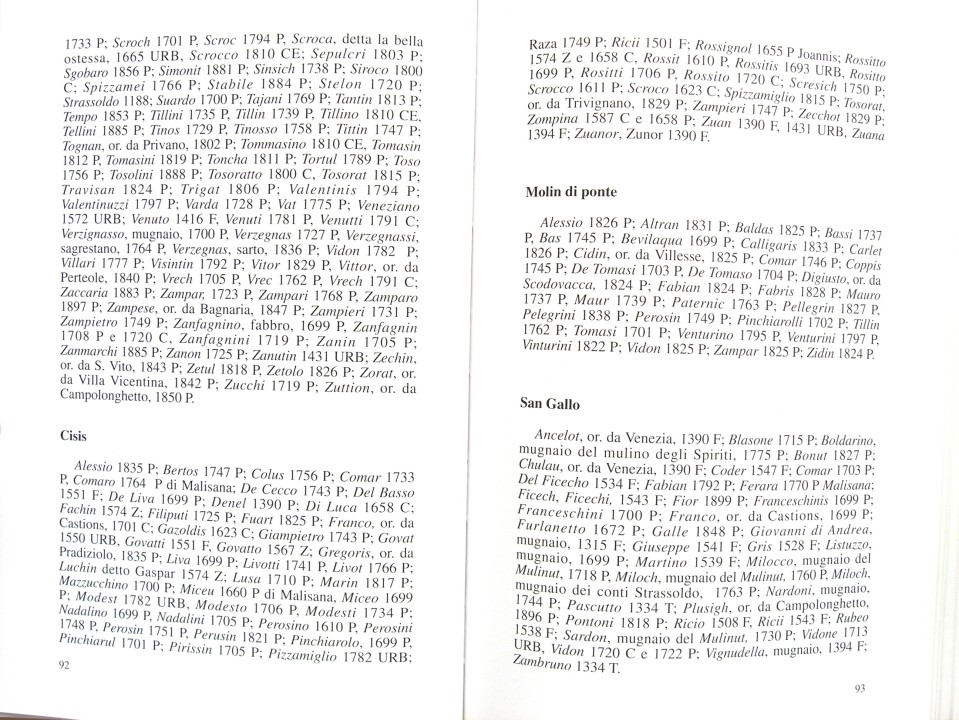
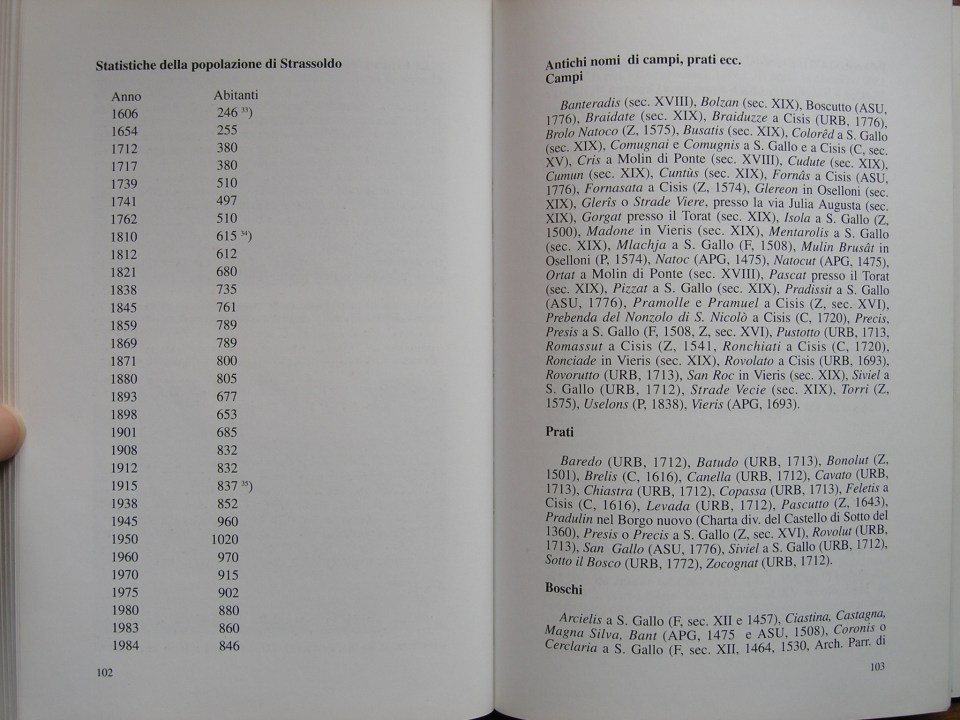
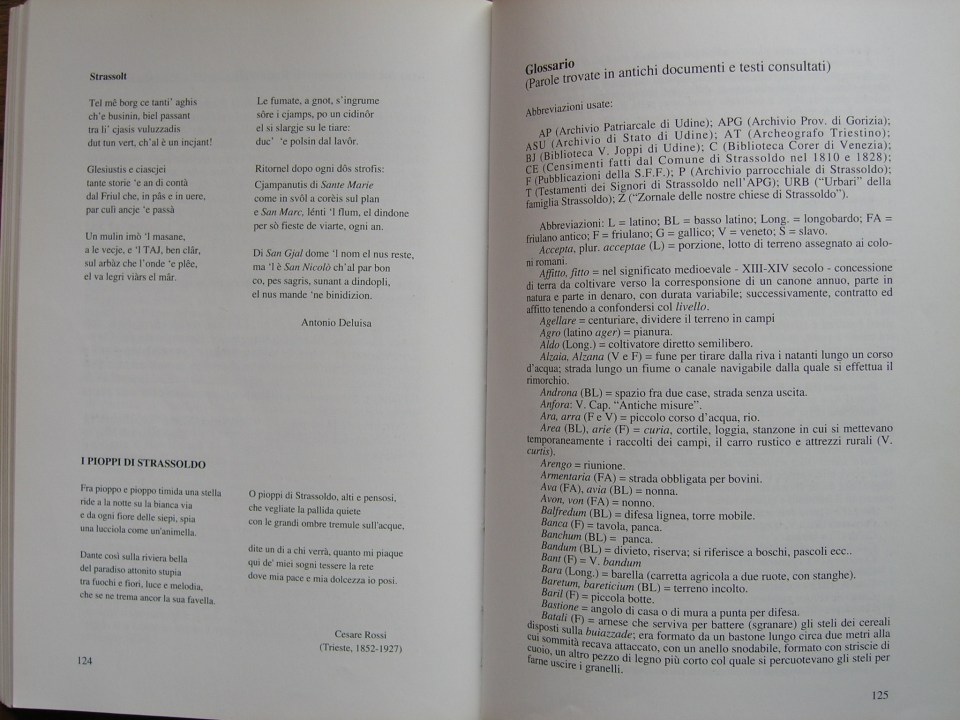
– Castello, comunita e Giurisdizione di Strassoldo: Ottocento anni di storia – Marzio Strassoldo – ed. 1990, Italia.
Numbers of births, deaths and marriages in Strassoldo from 1700. In 1729, (year of the first church register of the Tinos Surname in Strassoldo), there were 19 births, 18 deaths and 4 marriages.
Números de nascimentos, óbitos e casamentos em Strassoldo apartir de 1700. Em 1729 (ano do primeiro registro do sobrenome Tinos em Strassoldo), houveram 19 nascimentos, 18 óbitos e 4 casamentos.

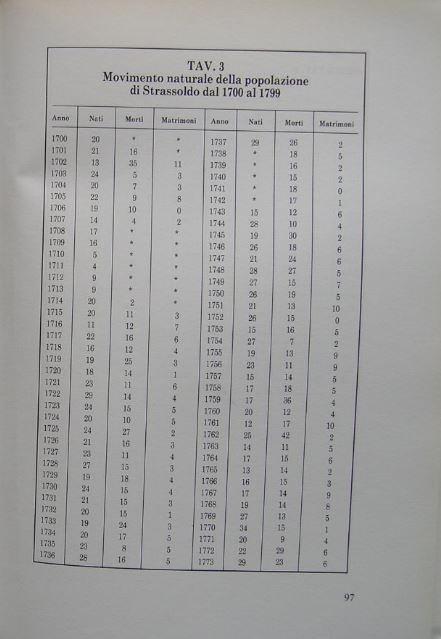
– Imigraçao Italiana em São Paulo – 1880-1889 – Lucy Maffei Hutter. Ed. 1972, Brasil.
Information about the precarious conditions attending the arrival of the Tinos Family in Brazil. They arrived in Santos Harbour in the steamship ” Maria”on 16/4/1885. They were only transported to the over-crowded Immigrant Hostel at Bom Retiro” in Sao Paulo the next day. The Tinos Family who immigrated to Brazil was composed by father Antonio Tinos, mother Elizabette Grassetti and their 8 children: Celestina, Anna Maria, Luigi, Giuseppe, Caterina, Antonio, Marcellina and Eugenia. Antonio Tinos was part of the group of immigrants who made a formal complain to make sure they would receive the rights they were entitled to.
The oral tradition of the family, passed by Marcellina Tinos to her daughter Rosa, says that in the first meal served on land, food was dumped directly on the table, without dishes and cutlery, they had to eat with their hands, and that in the queues men were at the ends to protect women and children.
Informação sobre as condições precárias de chegada da Família Tinos ao Brasil. Desembarcaram no Porto de Santos trazidos pelo “Vapor Maria” em 16/4/1885. Foram transferidos para a super lotada Hospedaria dos Imigrantes do Bom Retiro apenas no dia seguinte. A Família Tinos que imigrou para o Brasil era composta pelo pai Antonio Tinos, mãe Elizabette Grassetti and seus 8 filhos: Celestina, Anna Maria, Luigi, Giuseppe, Caterina, Antonio, Marcellina and Eugenia. Antonio Tinos fez parte do grupo de imigrantes que fizeram uma reclamação formal para garantir os seus direitos acordados.
Diz a tradição oral da família, passada por Marcellina Tinos para suas filha Rosa, que na primeira refeição servida em terra, a comida era despejada direto na mesa, sem pratos e talheres, tinham que comer com as mãos, e que nas filas os homens ficavam nas extremidades para protegerem as mulheres e as crianças.
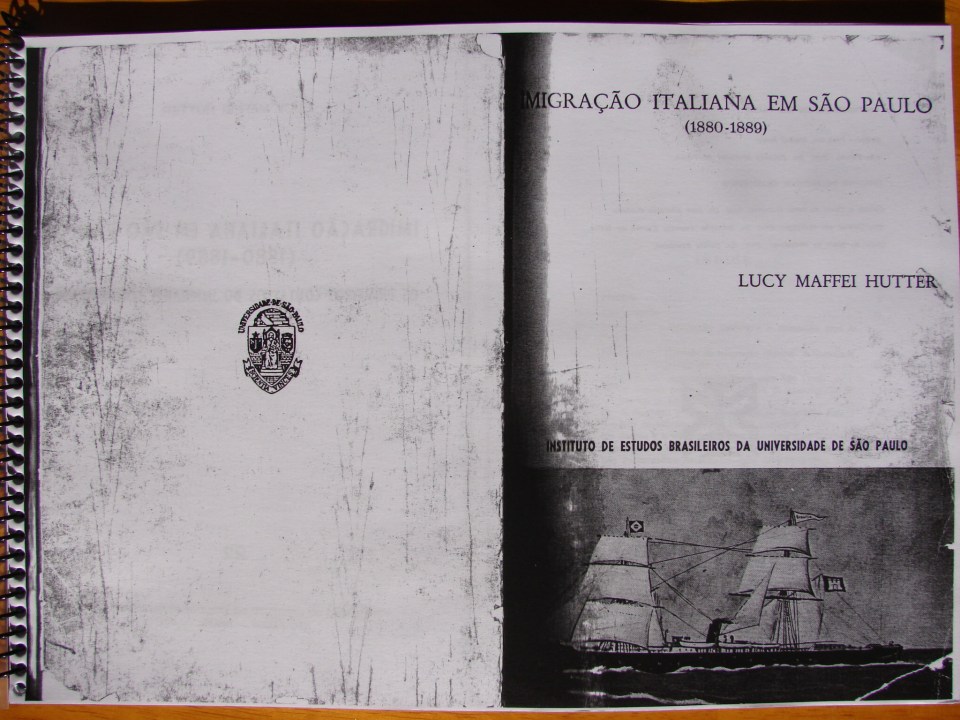
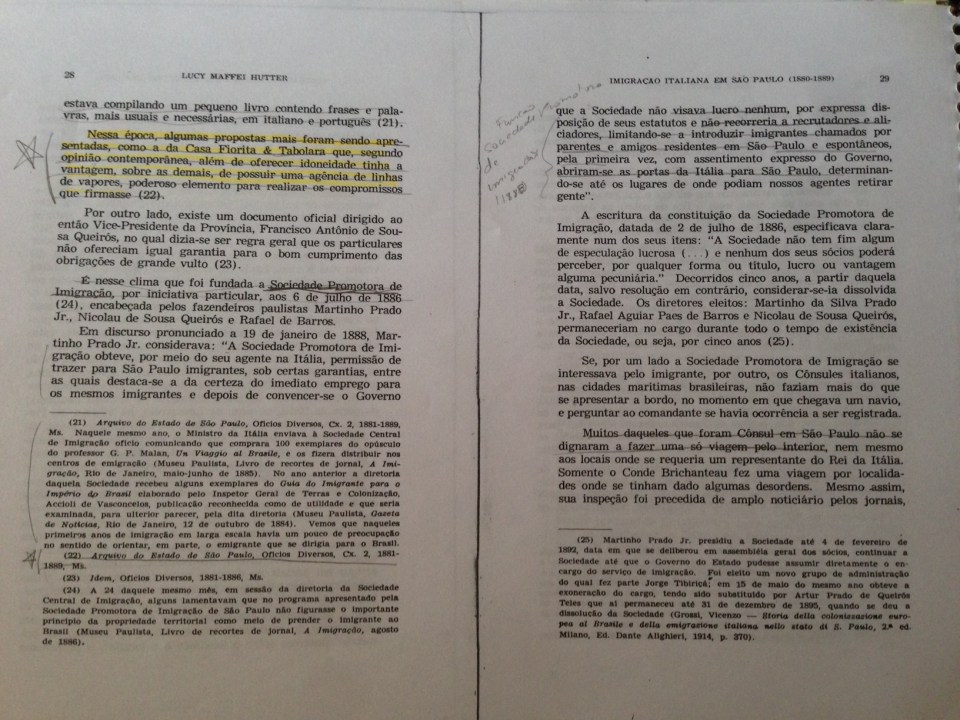
Transcription / Transcrição
Pag 28
Nessa época, algumas propostas mais foram sendo apresentadas, como a da Casa Fiorita & Tabolara que, segundo opinião contemporânea, além de oferecer idoneidade tinha a vantagem, sobre as demais, de possuir uma agência de linhas de vapores, poderoso elemento para realizar os compromissos que firmasse.
Translation – Page 28
At that time, a few more proposals were being presented, such as Casa Fiorita & Tabolara’s, which, according to contemporary opinion, apart from being a well reputed company, they had the advantage over others for being the owner of a steam lines agency, a powerful element in the agreement they would sign.
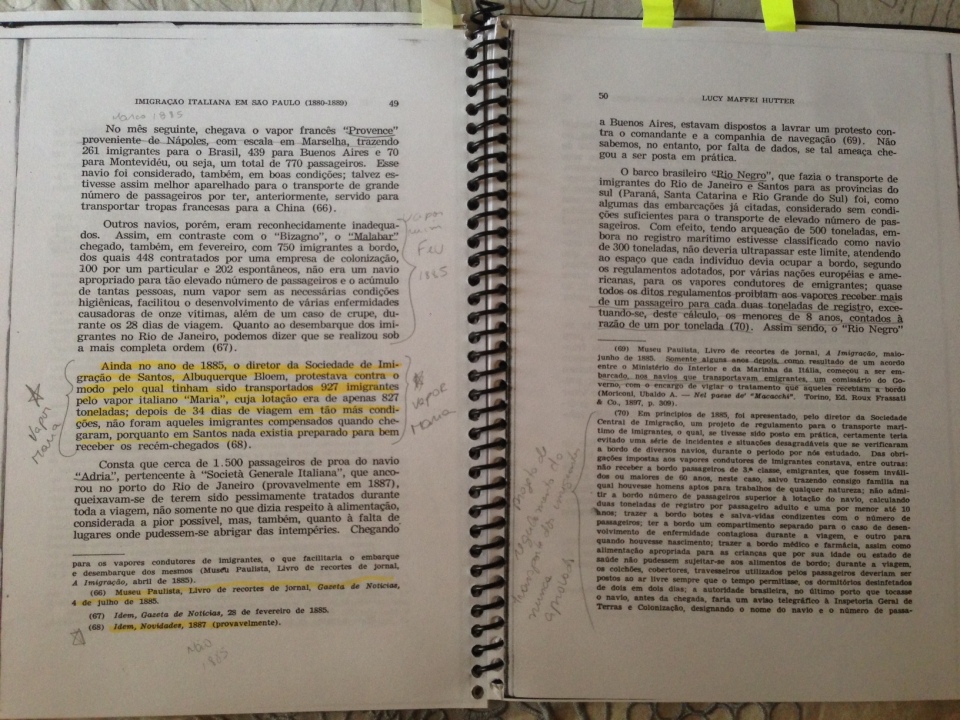
Transcription / Transcrição
Pag 49″Ainda no ano de 1885, o diretor da Sociedade de Imigração de Santos,
Albuquerque Bloem, protestava contra o modo pelo qual tinham sido
transportados 927 imigrantes pelo vapor Italiano”Maria”,cuja lotação era de
apenas 827 toneladas: depois de 34 dias de viagem em tão más condições, não
foram aqueles imigrantes compensados quando chegaram, porquanto em Santos
nada existia preparado para bem receber os recém-chegados ”
(Informação também presente no Museu Paulista, Livro de recortes de jornal, A imigracao, abril de 1885, Gazeta de Noticias, Novidades.)
Translation – Pag 49 “In the year 1885, the director of the Santos Immigration Society, Albuquerque Bloem, protested against the way in which 927 immigrants were transported by the Italian Steamship “Maria”, whose stock was only 827 tonnes: after 34 days of travel in such poor conditions, those immigrants were not compensated when they arrived, because Santos Harbour Immigration Service was not prepared to welcome the newcomers. ” (Information also present in the “Museu Paulista”, newspaper clippings, The Immigration, April 1885, from “Gazeta de Noticias” newspaper, section “Novidades”.)
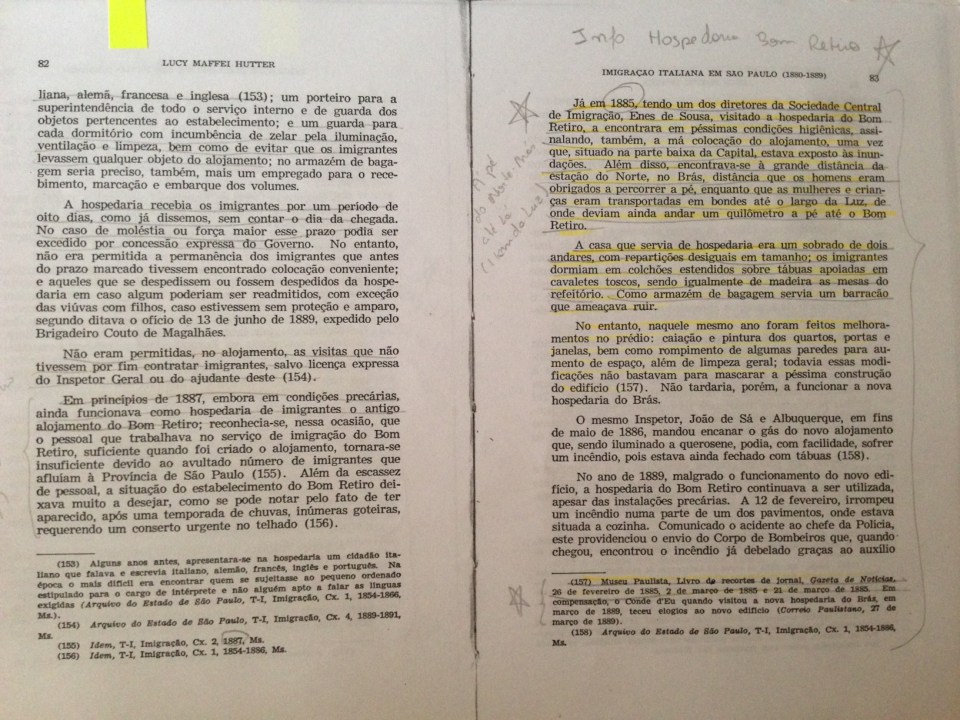
Transcription / Transcrição
Pag 83
Já em 1885, tendo um dos diretores da Sociedade Central de Imigração. Enes de Souza, visitado a hospedaria do Bom Retiro, a encontrara em péssimas condições higiênicas, assinalando também , a má colocação do alojamento, uma vez que, situado na parte baixa da Capital, estava exposto às inundações. Além disso, encontrava-se á grande distância da estação do Norte, no Brás, distância que os homens eram obrigados a percorrer a pé, enquanto que as mulheres e crianças eram transportadas em bondes até o largo da Luz, de onde deviam ainda andar um quilômetro a pé até o Bom Retiro.
A casa que servia de hospedaria era um sobrado de dois andares, com repartições desiguais em tamanho, os imigrantes dormiam em colchões estendidos sobre tábuas apoiadas em cavaletes toscos, sendo igualmente de madeira as mesas do refeitório. Como armazém de bagagens servia um barracão que ameaçava ruir.
No entanto, naquele mesmo ano foram feitos melhoramentos no prédio – caiação e pintura dos quartos, portas e janelas, bem como rompimento de algumas paredes para aumentar o espaço, além de limpeza geral – todavia essas modificações não bastavam para mascarar a péssima construção do edifício. Não tardaria porém, a funcionar a nova hospedaria do Brás.
Translation – Page 83
In 1885, having one of the directors of the Central Immigration Society. Enes de Souza, visited the Immigrant hostelry of Bom Retiro, he found it in poor hygienic conditions, noting also the poor placement of the accommodation, since, situated in the lower part of the Capital, it was exposed to floods. Moreover, it was very distant from the Brás – North Train Station, a distance which men were obliged to walk on foot, while the women and children were transported in trams to the “Largo da Luz”, from where they were oblige to walk 1 Km to Bom Retiro.
The house that served as a hostelry was a two-story townhouse, with unequal size distributions, the immigrants slept on mattresses stretched out on planks resting on rough trestle-boards, and the tables in the dining room were also made of wood. As a baggage store was a shed that threatened to collapse.
However, in that same year improvements were made to the building – painting and painting of the rooms, doors and windows, as well as breaking of some walls to increase the space, besides general cleaning – however these modifications were not enough to mask the terrible construction of the building . It would not be long, however, for the new Immigration Hostelry in Bras to start functioning.
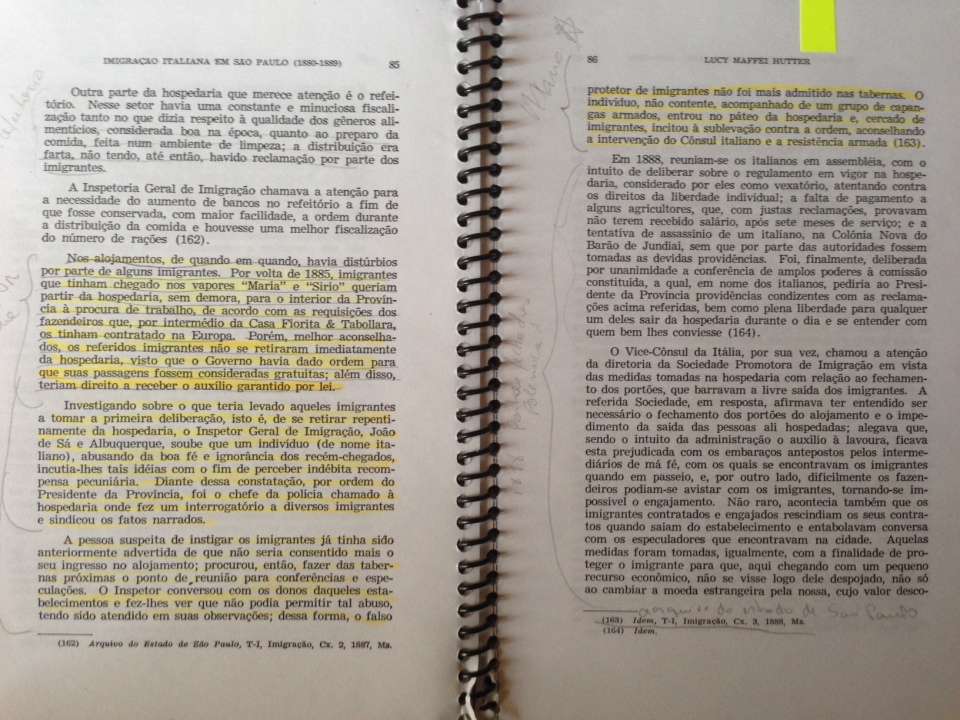
Transcription / Transcrição
Vapor Maria e Sirio – pag 85
“…A inspetoria geral de Imigração chamava a atenção para a necessidade do
aumento de bancos no refeitório ( na hospedaria) a fim de que fosse conservada., com maior facilidade, a ordem durante a distribuição da comida e houvesse uma melhor fiscalização do numero de rações. [Arquivo do Estado de São
Paulo-Emigração -1887]
Nos alojamentos, de quando em quando, havia distúrbios por parte de alguns
imigrantes. Por volta de 1885, imigrantes que tinham chegado nos
vapores “Maria” e “Sírio” queriam partir da hospedaria, sem demora, para o
interior da Província a procura de trabalho, de acordo com as requisições
dos fazendeiros que, por intermédio da Casa Fiorita & Tabolara, os tinham
contratado na Europa. Porém, melhor aconselhados, os referidos imigrantes não
se retiraram imediatamente da hospedaria, visto o Governo havia dado ordem
para suas passagens fossem consideradas gratuítas: além disso, teriam
direito a receber o auxílio garantido por lei. Investigando sobre o que teria levado aqueles imigrantes a tomar a primeira deliberação, isto é, de se retirar repentinamente da hospedaria, o Inspetor Geral de Imigração, João de Sá e Albuquerque soube que um indivíduo( de nome italiano), abusando da boa fé e ignorância dos recém-chegados, incutia-lhes tais idéias com o fim de receber indébita recompensa pecuniária. Diante dessa constatação, por ordem do Presidente da Província, foi o chefe da polícia chamado á hospedaria onde fez interrogatório a diversos imigrantes e sindicou os fatos narrados.
A pessoa suspeita de instigar os imigrantes já tinha sido anteriormente advertida de que não seria consentido mais o seu ingresso no alojamento; procurou, então, fazer das tabernas próximas o ponto de reunião para conferências e especulações. O inspetor conversou com os donos daqueles estabelecimentos e fez-lhes ver que não podia permitir tal abuso, tendo sido atendido em suas observações; dessa forma, o falso protetor de imigrantes não foi mais admitido nas tabernas. O indivíduo, não contente, acompanhado de um grupo de capangas armados, entrou no páteo da hospedaria e, cercado de imigrantes, incitou a sublevação contra a ordem, aconselhando a intervenção do Consul italiano e a resistência armada.”( Também no Arquivo do Estado de São Paulo, T-I, Imigracao, Cx. 3, 1888, Ms.)
Translation – Steamships “Maria” and “Sirio”- pag 85 “… The Immigration General Inspector called attention to the need for more seats in the dinning room ( of the Hostelry), to improve the order during the distribution of food and for a better inspection of the number of rations. [Archive of the State of São Paul-Emigration -1887].
In the lodgings, from time to time, there were disturbances on the part of some Immigrants. By 1885, immigrants who had arrived in “Maria” and “Sírio” vapors wanted to leave the hostelry without delay to go to the cities of the province to star to work, as already agreed with the farmers and their agent Casa Fiorita & Tabolara, when they were contracted in Europe. But better advised, these immigrants did not leave the hostelry, since the Brazilian Government had given orders for their tickets being considered free: in addition, they would have the right to receive a subsidy by law. Investigating what would have led those immigrants to take the first deliberation, that is, to withdraw suddenly from the lodgings, the Inspector General of Immigration, João de Sá and Albuquerque learned that an individual (by Italian name), abusing the good faith and ignorance of the newcomers, persuaded them with such ideas in order to receive some undue payment from them. Faced with this finding, by order of the President of the Province, it was the chief of the police called in the hostelry where he interrogated several immigrants and investigated the facts.
The person suspected of instigating the immigrants had previously been warned that he was not allowed inside the hostelry. Therefore he started using the taverns nearby as his meeting point for conferences and speculations. The inspector talked with the owners of those establishments and made them see that they could not allow such abuse. The taverns’s owners attended to the inspector observations; In this way, the false protector of immigrants was no longer admitted in the taverns. The upset individual, accompanied by a group of armed henchmen, entered the hostelry and, surrounded by immigrants, incited the revolt against the order, crying for the intervention of the Italian Consul and armed resistance. “(information also found in the the State of Sao Paulo Archives, TI, Immigration, 3, 1888, Ms.)
– Roteiro de Fontes Sobre a Imigração em São Paulo – 1850-1950. – Maria Silvia C. Beozzo Bassanezi , Ana Silvia Volpi Scott , Carlos de Almeida Prado Bacellar , Oswaldo Mário Serra Truzzi. Editora Unesp, 2008, Brazil.
“Tenho a honra de levar ao conhecimento de V.Exa. os factos que acabam de dar-se no estabelecimento de immigração.
Recolhidos a hospedaria de immigração no dia 16 do corrente, os immigrantes vindos pelos vapores Maria e Sirio, conduzidos pelo Sur. Floriano Rossi, manifestaram elles desejos de seguirem sem demora para o interior da província, à procura de trabalho, segundo a requisição dos fazendeiros que por intermedio da casa Fiorita & Tabollara os havia contractado na Europa, declarando mais que tinham obtido as passagens maritimas mediante condição de indenizarem, apenas chegassem a esta provincia, as pessoas que lhes fizeram taes adiantamentos.
Nestas disposições achavam-se os immigrantes, quando hontem declararam-me, que, melhor aconselhados, não se retiravam da hospedaria, visto como o Governo havia dado ordens para serem elles transportados gratuitamente da Europa a esta provincia e que alem disto tinham direito a receberem o auxilio garantido por lei.
Communiquei logo a decisão de V. Exc, e os immigrantes continuaram recalcitrantes, o que fez-me suspeitar a intervenção de terceiras pessôas.
-Procurando bem verificar os factos, fui informado de que o individuo de nome Augusto Nardelle era, quem abusando da bôa fé e ignorancia dos pobres colomnos, incutia-lhes essas crenças erroneas, com o fim de desviá-los do louvavel intento em que se achavam e perceber por isso indebida recompensa pecuniaria.
Insistindo nas pesquizas e investigações, soube então, com o testemunho dos immigrantes Sergut Pritro, Guria Giovanni, Margagio Batta, Graton Adriano, Donato Giuseppe, e muitos outros, na presença de Manfredo Mayer, Floriano Rossi, Italo Stefanini e Alfredo Esposto, perante o dito Augusto Nardelli, que taes conselhos partiram deste.
Immediatamente foi comunicado o facto a V. Exa. que sem perda de tempo fez comparecer o Snr. Dor. Chefe de Policia, que teve occazião de interrogar diversos immigrantes e sindicar os factos narrados no presente officio.
Devo ainda declarar, afim de ser fiel na informação prestada a V. Exa, que, o dito Augusto Nardelli, sendo por mim advertido em outra occasião, que, segundo denuncias recebidas, constatava-me não ser regular o seu modo de proceder, e que eu não consentiria em seu regresso no estabelecimento, elle procurou fazer das tabernas proximas a immigração ponto de reunião para conferencias e especulações.
Chamei a minha presença os donos destes estabelecimentos, fiz-lhes ver que não podia consentir em tal abuso, e elles, attendendo as minhas observações não consentiram mais que o falso protector de immigrantes continuasse nas tabernas a propalar doutrinas contrarias a ordem.
Hoje porem, acompanhado de um grupo de capangas armados, e quando eu já não estava na hospedaria, appareceu o refferido Nardelli e no pateo do estabelecimento cercado de immigrantes, pregava doutrinas subversivas a ordem e em manifesto antagonismo a bôa marcha do serviço da immigração, aconselhando a intervenção do Consul Italiano e resistencia armada a decisão de V.Exa. ( C05531, Ofício do inspetor geral João de Sá e Albuquerque para José Luiz de Almeida Couto, Presidente da Província de São Paulo, 22 de Abril de 1885).“
Translation
“I have the honor to inform your Excellence of the facts which have just occurred in the Immigration establishment.
The immigrants received in the Immigration Hostelry who had arrived in the Steamships Maria and Sirio on April 16th, led by Mr. Floriano Rossi, expressed their desire to go without delay to the interior of the province, looking for work, according to the request of the farmers that through the House Fiorita & Tabollara had contracted them in Europe, declaring more, that they had obtained their travel tickets on condition of refunding the people who made them such advances soon after their arrival in this province.
With this intentions were the immigrants, when they honesty declared to me, that, advised better, they would not leave the hostelry, since the Government had ordered their tickets from Europe to Brazil to be free and that in addition they were entitled to receive the subside granted by law.
I informed them about your Excellence’s decision, and the immigrants remained recalcitrant, which made me suspect the intervention of third parties.
I was informed that the individual by the name of Augusto Nardelle, abused the good faith and ignorance of the poor settlers, instilled in them these erroneous beliefs, in order to divert them from their honored intention and therefore receive an undue pecuniary reward.
After further research and investigations, I learned from the testimonies of Sergut Pritro, Guria Giovanni, Margagio Batta, Graton Adriano, Donato Giuseppe, and many others, in the presence of Manfredo Mayer, Floriano Rossi, Italo Stefanini and Alfredo Esposto and in presence of Augusto Nardelli, that these advises came from him (Augusto Nardelli).
This was immediately communicated to your Excellence, who without delay, ordered the Chief of Police to come and interrogate several immigrants and to verify the facts described in the present report.
I must also state, in order to be faithful to the information provided to your Excellence, that Augusto Nardelli, was warned by me on another occasion, that, according to the complaints received, I found that his manner of proceeding was not regular, and that therefore I would not consent to his return at the establishment. Then he sought to make the taverns near to the Hostelry, a meeting point for conferences and speculations.
I called in the presence of the owners of these establishments, I made them realise that they could not consent to such abuse, and they, attending to my observations, no longer allowed the false protector of immigrants to continue in the taverns to propagate doctrines contrary to order.
Today, accompanied by a group of armed henchmen, and when I was no longer at the hostelry, the reffered Nardelli appeared at the courtyard of the establishment surrounded by immigrants, preaching subversive doctrines to order and in manifest antagonism to the good march of the service of immigration, advising the intervention of the Italian Consul and armed resistance to the decision of your Excellence. (C05531, Report of the Inspector General João de Sa and Albuquerque to José Luiz de Almeida Couto, President of the Province of São Paulo, April 22, 1885)
– Friuli in Prin – Storie di Storia – Il Tinos una famiglia friulana – Juliana Vasconcellos Mendes ( Juliana Areias ) – 2007 – Archivio di Stato di Udine, Italia.
4_tinos_portoghese-arquivo-del-friuli
Juliana Areias’s research narrative (up to 2007) about the Tinos family’s origin.
Narrativa de Juliana Areias sobre a pesquisa da origem da Família Tinos até 2007.
– Revista Brava Gente – Tinos uma família friulana. Texto de Juliana Vasconcellos Mendes (Juliana Areias) – revisado e editado por Josi Baggio – 2007, Brasil.
Juliana Areias’s research narrative (up to 2007) about the Tinos family’s origin. Text revisited and edited by Josi Baggio, Brazil.
Narrativa de Juliana Areias sobre a pesquisa da origem da Família Tinos até 2007. texto revisado e editado por Josi Baggio, Brasil.
SPECIFIC NEWPAPER ARTICLES ABOUT TINOS FAMILY DESCENDANTS
ARTIGOS DE JORNAL ESPECÍFICOS SOBRE DESCENDENTES DA FAMÍLIA TINOS
– Correio Paulistano 28/4/1885 – São Paulo, Brasil.
Antonio Tinos is among the immigrants who made a formal complaint inside the Immigrant Hostel at Bom Retiro – São Paulo.
Antonio Tinos está entre os imigrantes que fizeram uma reclamação formal dentro da Hospedaria dos Imigrantes do Bom Retiro em São Paulo.
Transcription / Transcrição (Correio Paulistano 28/4/1885 – São Paulo, Brasil)
Officio do mesmo, remettendo por cópia, o que dirigiu a s. exc. o sr. presidente da provincia, a respeito de máu agasalho que a grande quantidade de immigrantes chegados ultimamente a Santos alli recebeu. O presedente da associação, disse que absteve-se de fazer qualquer reclamação ao governo provincial por que sabia que este havia tomado as providencias que lhe eram possiveis no caso actual.
Leu-se uma reclamação assignada a 22 do corrente (mês) pelos chefes de familia de immigrantes tyrolezes, actualmente na hospedaria do Bom-Retiro – Piaza Domenico, Vicintini Giacomo, Giacomo Tomancini, Bernardino Antonio, Ollian Giusepe, Valentino Ballaminut, Tinos Antonio (Antonio Tinos), Contim Domenico, Basul Pietro, Mian Luigi, Domenico Diust, Igabin G. Batta, Graton Francesco, Pontin Ivani. Reclamaram elles:
1o Que é illegal que se pague a qualquer outra pessoa e não a elles a gratificação que a provincia concede aos immigrantes, e que tendo elles contratado para virem trabalhar na provincia, não desejam retirar-se dáqui sem que lhes diga quanto é que estão devendo até o presente. O sr. presidente pôz a votos a seguinte questão -póde em face da lei pagar-se a qualquer outra pessoa que não seja o imigrante ou seu legitimo procurador? Os inconvenientes resultantes se se pagar a outrem não serão muito maiores por facilitarem abusos de natureza grave, do que os que resultam de pagar-se ao proprio immigrante?
O sr dr Martinho Prado disse que tendo sido um dos autores da nova lei podia informar o seguinte:
Só duas classes de pessoas podiam receber o auxilio, a saber:
1o O immigrante quande elle viesse sem ser por intermedio de pessoa que houvesse contractado a introdução dellles.
2o O contractador.
Portanto, o pagamento a qualquer outro era illegal.
Discutiram a materia os srs. drs. Vieira de Carvalho, Nicoláu de Queiroz, Elias Chaves, Elenterio Prado, Raphael Paes de Barros, e o sr. J.A. Schriczmeyer.
A conclusão foi que o acto da presidencia, não podia deixar de ser como foi por que encommendados os colonos no regimen da lei antiga, e não tendo a nova lei descrimidado caso algum identico ao que ocorria, o expediente, melhor era mandar pagar aos que haviam adiantado as passagens, que foi o que fez o governo, subjeitando-os a restituir ao thesouro as quantias relativas a immigrantes, que não permanecessem na lavoura o tempo exigido pela lei antiga.
Translation – (Correio Paulistano 28/4/1885 – São Paulo, Brasil).… Office of the same, sent a copy, which was directed to s. Exc. Mr. President of the province, referring to the bad reception given to large number of immigrants arrived to Santos lately. The president of the association said that he refrained from making any complaint to the provincial government because he knew that the latter had taken all possible providence in the present case.
A complaint was lodged on the 22nd of this (month) by the Tyrolean immigrant family heads, currently in the Bom Retiro Hostelry – Piaza Domenico, Vicintini Giacomo, Giacomo Tomancini, Bernardino Antonio, Ollian Giusepe, Valentino Ballaminut, Tinos Antonio (Antonio Tinos), Contim Domenico, Basul Pietro, Mian Luigi, Domenico Diust, Igabin G. Batta, Graton Francesco, Pontin Ivani. They complained:
That it is illegal to pay any other person but them the gratification which the province grants to the immigrants, and that since they have been hired to come and work in the province, they do not wish to leave here without being informed about how much they owe until now. Mr. Presided put a vote the following question: – Could the Province Grant be paid by law to anyone other than the immigrant or his legitimate attorney? Will not the inconveniences resulting from paying others be much greater because they facilitate abuses of a serious nature than those resulting from paying the immigrant himself?
Mr. Martinho Prado said as one of the authors of the new law, he could inform the following:
Only two classes of people could receive the province grant, namely:
1o The immigrant who come without being through a person who had contracted the introduction of them.
2nd The contractor.
Therefore, payment to anyone else was illegal.
The matter was discussed by Mrs. Drs. Vieira de Carvalho, Nicolau de Queiroz, Elias Chaves, Elenterio Prado, Raphael Paes de Barros, and mr. J.A. Schriczmeyer.
The conclusion was that the act of the presidency could not be other because the immigrants were hired under the old law regime, and the new law did not predicted any identical case to what happened. Therefore the better decision was to pay the grant tp those who had advanced the passage custs, which was what the government did, subjecting them to refund to the treasury the amounts relative to immigrants, which did not remain in the field the time required by the old law.
– Correio Paulistano – 16/3/1906, São Paulo, Brasil.
Antonio Tinos’s death notice in São Carlos (5/3/1906 – Mr. Antonio Tinoz)
Nota de falecimento do Antonio Tinos em São Carlos (5/3/1906 – Sr. Antonio Tinoz)
– O Comércio de São Paulo – 16/3/1906, São Paulo, Brasil.
Antonio Tinos’s death notice in São Carlos (5/3/1906 – Mr. Antonio Tinoz)
Nota de falecimento do Antonio Tinos em São Carlos (5/3/1906 – Sr. Antonio Tinoz)
– Journal Officiel de la Republique Française – 3/12/1933). – Bibliothèque Nationale de France, France.
Transcription / Transcrição
“TINOS (Joseph-Louis), maçon, né le 19 août 1885 à Cervignano-del-Friuli (Italie), demoéurant à Saint-Geniez-d’Olt (Aveyreu).”
Translation – TINOS Giuseppe Luigi, builder, born on August 19th 1885 in Cervignano del Friuli, Italy. Resident at Saint-Geniez-d’Olt (Aveyreu).
Tradução – TINOS Giuseppe Luigi, pedreiro, nascido em 19 de agosto de 1885 em Cervignano del Friuli, Italia. Residente em Saint-Geniez-d’Olt (Aveyreu).
Giuseppe Luigi Tinos (Bebo) (VI) *19/8/1885, son of Giovanni Tinos & Eugilda Blandida de Checco; married Maria Gregoratti in Visco -1/3/1924.
He emigrate to France. He appears alone and without descendants as a new French citizen at the French Republic Official Newspaper on 3/12/1933: In the emails below (2016), a prosecutor searches for his descendants. Marine Judge Luciano Giacomi, son of Valeria Fereguin and grandson of Ernesta Catarina Tinos (sister of Giuseppe Luigi Tinos) died without leaving heirs. His Valeria Fereghin died with 101 year old, just a year before her son Luciano Giacomi. Giorgio Tinos (son of Pia Tinos and grandson of Attilio Tinos also brother of Giuseppe Luigi and Ernesta Catarina) in 2016 tells that he used to go on holidays from the orphanage to the Fereghin’s house, which he remembers with kindness always. Giorgio became his mother’s orphan very early and never knew his father. Giorgio lives in Queensland, Australia, with his Australian wife Louise Child and their two daughter Gisela Tinos and Jana Tinos.
Giuseppe Luigi Tinos (Bebo) (VI) *19/8/1885, filho de Giovanni Tinos & Eugilda Blandida de Checco; casou-se com Maria Gregoratti in Visco -1/3/1924.
Ele emigrou para a França, one aparece sozinho e sem descendentes como um novo cidadão francês no Jornal Oficial da República Francesa em 3/12/1933: Nos emails abaixo de 2016, uma procuradora busca por descendentes seus. O Juiz da Marinha Luciano Giacomi, filho de Valeria Fereguin e neto de Ernesta Catarina Tinos (irmã de Giuseppe Luigi Tinos) morreu sem deixar herdeiros. A mãe Valeria Fereguin morreu com 101 anos, apenas um ano antes do seu filho Luciano Giacomi. Giorgio Tinos (filho de Pia Tinos e neto de Attilio Tinos também irmão de Giuseppe Luigi e Ernesta Catarina) em 2016 conta que costumava ir nas férias do orfanato para a casa dos Fereghin, dos quais se lembra com carinho sempre. Giorgio ficou órfão da mãe muito cedo e nunca conheceu o pai. Giorgio mora em Quensland, na Austrália com sua esposa australiana Louise Child e suas duas filhas Gisela Tinos e Jana Tinos.
– Jornal Tribuna de São Carlos – Pró Memória – Pesquisadora encontra informações sobre as origens de sua família – 7/10/2007, Brasil.
Article featuring Juliana Areias about Tinos Family research and the first Tinos Family reunion in Brazil, in 2007.
Artigo com Juliana Areias sobre a pesquisa e primeiro encontro da Família Tinos no Brasil, em 2007.
Transcription / Transcrição (Jornal Tribuna de São Carlos – 7/10/2007, Brasil)
Pró Memória – Pesquisadora encontra informações sobre as origens de sua família
Ancestrais chegaram a São Carlos em 1885 – um encontro de parentes será realizado neste domingo em restaurante do distrito de Santa Eudóxia
Juliana Areias encontrou dados sobre o casamento de seis dos filhos de Antônio e Elisabetta.
Juliana Areias, paulistana de 32 anos, ouvia desde criança as recordações de seus avós lembrando histórias a respeito dos pais deles, contando que eram austríacos de Viena.
Juliana questionava os avós: então por que não falam alemão? E os avós respondiam que a família falava “furlan”. Isso deixava Juliana muito curiosa.
Essa curiosidade ficou latente a maior parte de sua vida. Aos 18 anos foi morar na Bahia, graduou-se em Belas Artes pela Universidade Federal e dedicou-se à música, iniciando uma carreira de cantora. Aos 21 anos foi para a Suíça, onde conheceu Rogério Teixeira da Mata, metalúrgico de São Bernardo do Campo que estava trabalhando lá. Casaram e vieram ao Brasil em 2000, quando ficaram sete meses viajando pelo país visitando os parentes das duas famílias. Foi nessa ocasião que aguçou sua curiosidade sobre as origens da sua família. Ela voltou a questionar a tia e a avó e soube que os ancestrais tinham vivido em São Carlos.
Nova Zelândia – Ainda em 2000, o casal seguiu para a Nova Zelândia, onde ela teve a sorte de engajar-se num projeto acadêmico, sobre samba, na escola de música da Universidade de Auckland. Trabalhou na instituição dois anos e continuou fazendo apresentações em bares, restaurantes, animando festas e casamentos e participando de alguns festivais de música. Mesmo tão longe do Brasil, a curiosidade continuava acesa e nas horas vagas buscava as respostas sobre as origens da família, pesquisando na internet e ingressando em grupos de discussão de genealogia.
O marido, depois de algum tempo como chefe de cozinha de um restaurante, obteve trabalho na sua profissão, ingressando numa empresa como torneiro mecânico. Em 2002 nasceu Jobim, o primeiro filho do casal. Para Juliana foi um “sinal” de que eles deveriam continuar morando por lá. Em 2005 nasceu Lilás. Os filhos representaram novo estímulo para buscar as origens. Ela conta que sentiu que, mais do que nunca, precisava conhecer a história dos ancestrais, “para deixar a meus filhos essa herança, a memória da família”.
Desenrolando o novelo –Não foi fácil desenrolar o fio do novelo com as pistas das origens da família, para achar as respostas que procurava. Escreveu muitas cartas para a Áustria, mas nunca recebeu uma resposta.
Ficou entusiasmada quando um primo, Felício Cabral Mendes, conseguiu localizar a chegada a Santos dos ancestrais no vapor “Maria”, em 16 de abril de 1885.
Depois, pela internet, num grupo e discussão sobre genealogia, contatou o historiador italiano Ugo Perissinotto, que ajudou bastante a desvendar as origens da família.
Foi localizando parentes e criou e mantém na internet um grupo que pode ser acessado no endereço https://br.groups.yahoo.com/groups/familiatinos/.
Antônio e Elizabetta – Juliana Areias afirma que, “ao que tudo indica, no Brasil, todos os ramos são descendentes de um mesmo tronco familiar:o casal Antônio Tinos e Elisabetta Grassetti Tinos (Isabel) e seus 8 filhos: Celestina, Luigi (Luiz), Maria (Anna Maria), Giuseppe (José), Caterina, Antônio, Marcelina (minha bisavó) e Eugênia”.
Ela acrescenta que “do Porto de Santos a família seguiu para São Carlos, onde eles trabalharam ao menos em duas fazendas, Boa Esperança e Santa Eudóxia. Descobri também que eles falavam realmente o edioma “furlan” e eram originários de Strassoldo, que na época pertencia à Província de Gorizia (Gorz) como território do Império Austro-Húngaro e hoje é parte da Itália, pertencendo à Comune Cervignano del Friuli, Província de Udine, Região Friuli Venezia Giulia.”
Na Pró-Memória – Agora de volta ao Brasil para uma temporada de quatro meses, Juliana e Rogério, trazendo Jobim e Lilás, vieram desta vez para apresentar as crianças aos familiares.
Na semana passada, de passagem por São Carlos, Juliana aproveitou para pesquisar no banco de dados de habilitações de casamento do Arquivo Público e Histórico da Cidade, da Fundação Pró-Memória, entidade vinculada à Prefeitura Municipal, no qual encontrou dados sobre o casamento de seis dos oito filhos de Antônio e Elisabetta Tinos. Ela comenta que, nos últimos anos, em contato com outros pesquisadores, especialmente graças a Sônia Trombelli, tem ouvido falar bem da instituição são-carlense, na qual diz ter sido muito bem atendida.
Ela conta ainda que, ao longo de sua pesquisa, achou parentes em vários estados brasileiros e também nos EUA. E revela que espera reunir cerca de setenta membros da parentela neste domingo (7), no Restaurante Dom Mineiro, em Santa Eudóxia, localidade escolhida para o encontro por ter sido um dos primeiros pontos de fixação da família no Brasil.
Translation – (Jornal Tribuna de São Carlos – 7/10/2007, Brasil)
“Pro Memoria” (Pro Memory) – Researcher finds information about the origins of her family
Ancestors arrived in São Carlos in 1885 – a family reunion will be held this Sunday in a restaurant in the district of Santa Eudoxia
Juliana Areias found data on the marriage of six of the children of Antonio and Elisabetta.
Juliana Areias, a 32-year-old from São Paulo, had listened to her grandparents remembering stories about their parents, telling them they were Austrians from Vienna.
Juliana questioned the grandparents: so why don’t they speak German? And the grandparents answered that the family spoke Furlan. That made Juliana very curious.
This curiosity stayed dormant for most of hes life. At the age of 18, she moved to Bahia, graduated in Fine Arts from the Federal University and dedicated herself to music, starting a singing career. At age 21 she went to Switzerland, where she met Rogério Teixeira da Mata, a turner-fitter from São Bernardo do Campo who was working there. They married and came to Brazil in 2000, when they spent seven months traveling around the country visiting relatives of the two families. It was on this occasion that she whetted hes curiosity about the origins of hes family. She again questioned her aunt and grandmother and learned that the ancestors had lived in Sao Carlos.
New Zealand – Also in 2000, the couple moved to New Zealand, where she was fortunate enough to work in an academic project on samba at the University of Auckland’s music school. She worked in the institution for two years and continued to perform as a singer in bars, restaurants, celebrations and weddings and participating in some music festivals. Even so far from Brazil, curiosity ticked on and her free time, she sought answers about the origins of the family, searching the internet and joining genealogy discussion groups.
Her husband, after some time as head chef of a restaurant, got a job in his profession, joining a company as a fitter-turner. In 2002 was born Jobim, the couple’s first child. For Juliana it was a “sign” that they should continue to live there. In 2005 Lilás was born. The children represented a new stimulus to seek her origins. She says she felt that more than ever she needed to know the history of their ancestors, “to give my children this inheritance, the family memory.”
Piecing together the puzzle -It was not easy to unfold the origins of the family and to find new clues and the right answers she wanted. She wrote many letters to Austria but never received an answer.
She felt enthusiartic when a cousin, Felício Cabral Mendes, managed to locate the arrival register of their ancestors in the steamship “Maria”, on April 16th, 1885.
Then, through the internet genealogy forums, she contacted the Italian historian Ugo Perissinotto, who helped a lot to unravel the origins of the family.
She has loccated relatives and created and maintained a group on the internet that can be accessed at https://br.groups.yahoo.com/groups/familiatinos/.
Antônio and Elizabetta – Juliana Areias affirms that, “it seems that in Brazil, all family branches are descended from the same couple Antônio Tinos and Elisabetta Grassetti Tinos (Isabel) and their 8 children: Celestina, Luigi (Luiz), Maria (Anna Maria), Giuseppe (José), Caterina, Antônio, Marcelina (my great-grandmother) and Eugênia.
She added that “from the port of Santos, the family went to São Carlos, where they worked on at least two farms, “Boa Esperança” and “Santa Eudoxia”. I also discovered that they really spoke Furlan, and that they were from Strassoldo, which at the time was part of the Province of Gorizia (Gorz) as a territory of the Austro-Hungarian Empire and today is part of Italy, belonging to the Comune Cervignano del Friuli, Province of Udine, Region Friuli Venezia Giulia.
In Pró-Memória (Pro-Memory) – Now returning to Brazil for a four-month stay, Juliana and Rogério, bringing Jobim and Lilás, came this time to introduce the children to their families.
Last week, when passing through São Carlos, Juliana took the opportunity to search the database of marriage qualifications of the Public and Historic Archive of the City, the Pro-Memory Foundation, which is linked to the City Council, in which she found data on the marriage of six of the eight children of Antonio and Elisabetta Tinos. She comments that in recent years, keeping contact with other researchers, especially thanks to Sonia Trombelli, she has heard a lot about this institution in São Carlos, in which she says she has been very well attended.
She also says that, throughout her research, she found relatives in several Brazilian states and also in the United States. She reveals that she expects to gather about seventy members of hes family this Sunday (7), at the Dom Mineiro Restaurant in Santa Eudoxia, chosen as the location for this family reunion because it was one of the family’s first fixation points in Brazil.
AREIAS FAMILY ARTICLES (DESCENDANTS OF MARCELLINA TINOS)
ARTIGOS DA FAMÍLIA AREIAS (DESCENDENTES DA MARCELLINA TINOS)
– Correio Paulistano 4/2/1914 – (Bebedouro), São Paulo, Brasil.
The Odeon Cinema is bought by Luiz Gomes Areias (Marcellina Tinos’s husband), a business based in Bebedouro City, part of São Paulo State.
O Cinema Odeon é comprado por Luiz Gomes Areias ( Marido da Marcellina Tinos), comerciante domiciliado na cidade de Bebedouro, no interior do Estado de São Paulo.
– Correio Paulistano – 11/3/1914 – (Bebedouro), São Paulo, Brasil.
Luiz Gomes Areias (Marcellina Tinos’s husband) declares his own bankruptcy.
Luiz Gomes Areias (marido da Marcellina Tinos) declara sua própria falência.
– Correio Paulistano, 25/10/1921, (Bebedouro), São Paulo, Brasil.
Nota sobre a doença de Marcellina Tinos Areias), esposa do sr. Luiz Gomes Areias, proprietário do Hotel Areias.
Note about Marcellina Tinos Areias‘s illness, wife of Mr. Luiz Gomes Areias, owner of Areias Hotel.
Transcription / Transcrição (Correio Paulistano, 25/10/1921, Bebedouro)
… Está enferma a sra. Marcellina Tenor Areias (Marcellina Tinos Areias), esposa do sr. Luiz Gomes Areias, proprietário do Hotel Areias.
Translation – Ms. Marcellina Tenor Areias (Marcellina Tinos Areias), wife of Mr. Luiz Gomes Areias, owner of Areias Hotel is sick.
– Correio Paulistano, 20/6/1922 (Bebedouro), São Paulo, Brasil.
Nota sobre festa para aviadores portugueses patrocinada em Bebedouro por Luiz Gomes Areias (marido da Marcellina Tinos) e outros membros do Colônia Portuguesa da cidade.
Note about a party for Portuguese airplane pilots sponsored in Bebedouro by Luiz Gomes Areias (Marcellina Tinos’s husband) and other members of the Portuguese Colony of that city.
Transcription / Transcrição (Correio Paulistano, 20/6/1922 – Bebedouro)
Em Bebedouro
Manifestação de regosijo
Bebedouro.18 – Por motivo da chegada dos bravos aviadores portuguezes Sacadura Cabral e Gago Coutinho ao Rio de Janeiro, os srs. Adriano Garrido, Antonio Gaspar Amado, Antonio Domingos Madeira, Luiz Gomes Areias, Casimiro Rasteiro e Fermino de Azevedo, membros da colonia portugueza desta cidade, promoveram uma grande manifestação de regozijo. A hora aprazada, era grande o numero de pessoas que se reuniam no largo da Matriz, partindo, acomppanhadas pela corporação musical municipal, que percorreram as ruas da cidade, cumprimetando as autoridades e imprensa. Terminada a passeata, foi distribuida cerveja em profusão.Reina grande regozijo, tanto no seio da colonia portugueza, como entre brasileiros.
Translation – (Correio Paulistano, 20/6/1922 – Bebedouro)
In Bebedouro
Manifestation of great joy
Bebedouro.18 – Due to the arrival of the brave Portuguese aviators Sacadura Cabral and Gago Coutinho to Rio de Janeiro, Mrs. Adriano Garrido, Antonio Gaspar Amado, Antonio Domingos Madeira, Luiz Gomes Areias, Casimiro Rasteiro and Fermino de Azevedo, members of the Portuguese colony of this city, promoted a great manifestation of rejoicing. At the appointed hour, there were large numbers of people who gathered in the main square of the Central Church, departing, accompanied by the municipal musical corporation, who walked the streets of the city, cheering the authorities and the press. After the march, beer was distributed in profusion. Great rejoicing, both within the Portuguese colony, and among Brazilians.
– Correio Paulistano 3/6/1925 (Colina), São Paulo, Brasil.
Nota sobre o casamento de Antonio Gomes Areias (filho do industrial Luiz Gomes Areias e Marcellina Tinos) com Iracy Alves Negrão (filha do chefe da estação de trem local Anysio Alves Negrão e Joana Maria Alves).
Note about the marriage of Antonio Gomes Areias (son of the industrial Luiz Gomes Areias and Marcellina Tinos) with Iracy Alves Negrão ( daughter of the local Train Station Manager Anysio Alves Negrão and Joana Maria Alves).
Transcription / Transcrição (Correio Paulistano 3/6/1925 – Colina)
Collina – Realizou-se nesta districto, no dia 28 do mez p. p., o casamento do sr. Antonio Gomes Areias, filho do industrial Luiz Gomes Areias e da sra. d. Marcellina Thinoz Areias (Marcellina Tinos Areias), com a senhorita Iracy Alves Negrão, filha do sr. Anysio Negrão, chefe da estação local e da sra. d. Joana Maria Alves.
Foi paranympho do noivo, tanto no civil como no religioso, o sr. Francisco Costa, o da noiva, os srs. José Marques de Oliveira e Antonio Marques. Após o acto, foi servida uma lauta mesa de doces em casa da residencia do sr. Anysio Negrão, embarcando os noivos pelo nocturno, em viagem de nupcias.
Translation – (Correio Paulistano 3/6/1925 – Colina)
Collina – It took place in this district, on the 28th of the month, the marriage of Mr. Antonio Gomes Areias, son of the industrialist Luiz Gomes Areias and Ms. Dona Marcellina Thinoz Areias (Marcellina Tinos Areias), with Miss Iracy Alves Negrão, daughter of Mr. Anysio Negrão, head of the local station and Ms. Dona Joana Maria Alves.
It was the best man of the groom, both in civil and religious, Mr. Francisco Costa, and for the bride, Mrs. José Marques de Oliveira and Antonio Marques. After the act, a sumptuous table of sweets was served in the house of the Mr. Anysio Negrão, embarking the bride and groom at night, on a nuptials trip.
– Diário Nacional 29/1/1929 (Bebedouro), São Paulo, Brasil.
For the new 1929 board of the Association of Commerce were elected: President Francisco Martinez, Vice President Fuad Kfouri, First Secretary Alberto Fernandes (reelected), Second Secretary Alfredo Gomes Arêas, First treasurer José Gomes Arêas, Second treasurer Felicio de Vito, library director Isdemo Zuchi. (Alfredo is nethew of Luiz Gomes Areias. Jose is son of Luiz Gomes Areias and Marcellina Tinos).
Para a nova diretoria da Associação dos Empregados no Comércio de 1929 foram eleitos: o Presidente Francisco Martinez, o Vice-Presidente Fuad Kfouri, o Primeiro Secretário Alberto Fernandes (reeleito), o Segundo Secretário Alfredo Gomes Arêas, o Primeiro tesoureiro José Gomes Arêas, o Segundo tesoureiro Felicio de Vito, Isdemo Zuchi. (Alfredo é sobrinho do Luiz Gomes Areias e José é filho do Luiz Gomes Areias e de Marcellina Tinos.)
– Diario Nacional 21/8/1929 (Bebedouro) São Paulo, Brasil.
Under the suggestive slogan “Together we will be strong” the board of the Association of Commerce of Bebedouro – including again Second Secretary Alfredo Gomes Arêas and First treasurer José Gomes Arêas – start a promotional campaign to encourage electoral enlistment of all its members and of all commerce professionals of Bebedouro, with the goal of being well represented in the politics and subsequently in the law. (Alfredo is nethew of Luiz Gomes Areias. Jose is son of Luiz Gomes Areias and Marcellina Tinos).
Sob o slogan sugestivo “Juntos seremos fortes” a diretoria da Associação de Comércio de Bebedouro – incluindo novamente o Segundo Secretário Alfredo Gomes Arêas e o Primeiro tesoureiro José Gomes Arêas – inicia uma campanha promocional para incentivar o alistamento eleitoral de todos os seus membros e de todos os comerciantes de Bebedouro, com o objetivo de estar bem representado na política e posteriormente nas leis. (Alfredo é sobrinho do Luiz Gomes Areias e José é filho do Luiz Gomes Areias e de Marcellina Tinos.)
– Folha de São Paulo 29/4/1933 (Colina) São Paulo, Brasil.
List of supporters of Chapa Unica por São Paulo Unido (Single Slate for United Sao Paulo) from Colina, including José Gomes Areias, José Gonçalves Moreira, Armando Gomes Areias – ex combatant, Luiz Gomes Areias e Maria Areias do Nascimento. (They are respectively son, son in law, son, husband and daughter of Marcellina Tinos).
*SINGLE SLATE FOR UNITED SAO PAULO – Legend organized by the traditional São Paulo political forces after the defeat of the Constitutionalism Revolution in October 1932, with the objective of competing for the March 1933 elections for the National Constituent Assembly. It disappeared in July 1934, after the promulgation of the Constitution and the election of the President of the Republic.
Lista de apoiadores da Chapa Unica por São Paulo Unido de Colina, incluindo José Gomes Areias, José Gonçalves Moreira, Armando Gomes Areias – ex combatente, Luiz Gomes Areias e Maria Areias do Nascimento. (Eles são respectivamente, filho, genro, filho, marido e filha de Marcellina Tinos).
*CHAPA ÚNICA POR SÃO PAULO UNIDO – Legenda organizada pelas forças políticas paulistas tradicionais após a derrota da Revolução Constitucionalista em outubro de 1932, com o objetivo de concorrer às eleições de março de 1933 para a Asssembléia Nacional Constituinte. Desapareceu em julho de 1934, após a promulgação da Constituição e a eleição do presidente da República.
– Correio Paulistano 9/8/1936 (Bebedouro) São Paulo, Brasil.
Note about Mr. Luiz Gomes Areias birhtday on 8/8, says the newspaper. (Marcellina Tinos’s hurband, his birthday was on 7/8 in fact).
Nota sobre o aniversário do Sr. Luiz Gomes Areias no dia 8/8, diz o jornal. (Marido da Marcellina Tinos, seu aniversário era na verdade no dia 7/8.
– Correio Paulistano 31/1/1937 (Bebedouro), São Paulo, Brasil.
Jose Gomes Areias is elected the second treasured of Bebedouro’s International Athletic Association for 1937. (Jose is son of Luiz Gomes Areias and Marcellina Tinos).
José Gomes Areias é eleito segundo tesoureiro da Associação Atlética Internacional de Bebedouro em 1937. (José é filho de Luiz Gomes Areias e Marcellina Tinos).
– Correio Paulistano 21/2/1937 (Bebedouro), São Paulo, Brasil.
Note about José Gomes Areias as one of the two leaders of the Radio Station “Radio Sociedade de Bebeduro”. (José Gomes Areias is the son of Luiz Gomes Areias and Marcellina Tinos).
Nota sobre José Gomes Areias como um dos dois líderes da “Radio Sociedade de Bebedouro”. (José Gomes Areias é filho de Luiz Gomes Areias e Marcellina Tinos).
Transcription / Transcrição (Correio Paulistano 21/2/1937 (Bebedouro)
RADIO SOCIEDADE DE BEBEDOURO – Em irradiações experimentaes acha-se em funcionamento no predio da Banca Franceza, a Radio Sociedade de Bebedouro. Tem sido grande o numero de pessoas que tem levado por meio de cartas, telephonemas ou pessoalmente o seu apoio á Commissão Organizadora da Radio Sociedade de Bebedouro, que tem a sua frente os srs. José Gomes Areias e Dartegan Paschoal. (José Gomes Areias é filho de Luiz Gomes Areias e Marcellina Tinos).
Translation – (Correio Paulistano 21/2/1937 (Bebedouro)
RADIO SOCIEDADE DE BEBEDOURO – Yet in experimental phase, the Radio Sociedade de Bebedouro ( Bebedouro Society Radio) is operating at the premises of Banca Franceza. There are a large number of people contacting the radio by letters, phone calls or in person to show their support to the organizing Committee of the Radio Sociedade de Bebedouro which is lead by Mrs. José Gomes Areias and Dartegan Paschoal. (José Gomes Areias is the son of Luiz Gomes Areias and Marcellina Tinos).
– Correio Paulistano 25/3/1937 (Bebedouro), São Paulo, Brasil.
Alfredo Gomes Arêas has a Typography Machine for sale. (Alfredo was the son of Manoel Gomes Areias and nephew of Luiz Gomes Areias and Marcellina Tinos). He was a journalist and enthusiastic of The Modernism. For this reason he Brazilianised his surname Areias for Arêas. He exchanged correspondence with modernist writer Mário de Andrade, for whom he collected the folklore of the region.- Information dada by his son José Alfredo Gomes Arêas, professor of the Department of Nutrician of USP The University of São Paulo on 12/5/2007).
Alfredo Gomes Arêas põe uma máquina de tipografia á venda. ( Alfredo era filho de Manoel Gomes Areias e sobrinho de Luiz Gomes Areias e Marcellina Tinos). Era jornalista entusiasta do Modernismo e por isso abrasileirou seu sobrenome Areias para Arêas. Ele trocava correspondências com o escritor modernista Mário de Andrade, para quem coletava o folclore da região. – informaçao dada por seu filho José Alfredo Gomes Arêas, professor titular do Departamento de Nutrição da USP Universidade de São Paulo em 5/12/2007).
Transcription / Transcrição (Correio Paulistano 25/3/1937 (Bebedouro)
TYPOGRAPHIA Á VENDA – Vende-se uma com machinas para obras e grande jornal. Alfredo Gomes Arêas – Bebedouro.
Translation – (Correio Paulistano 25/3/1937 (Bebedouro)
TYPOGRAPHIC MACHINE FOR SALE – for works and great newspaper. Alfredo Gomes Arêas – Bebedouro.
CONTEXTUAL NEWSPAPER ARTICLES –
ARTIGOS DE JORNAIS CONTESTUAIS
Newspaper articles related to the arrival of the Tinos Family in Brazil in 1885, creating a panorama of their trip aboard of the ship “Vapor Maria”; about the events and atmosphere of the Santos Harbour, of the immigrant’s hostel at Bom Retiro in Sao Paulo and of Sao Carlos, the city they came to work at coffee plantations.
Artigos de jornais relacionados com a chegada da Família Tinos no Brasil em 1885, dando um panorama sobre a viagem a bordo do Vapor Maria; e sobre os acontecimentos e clima do Porto de Santos, da Hospedaria de Imigrantes do Bom Retiro em São Paulo, e de São Carlos, a cidade para qual vieram trabalhar em plantações de café.
STEAMSHIP MARIA / VAPOR MARIA
Vapor Maria is the ship that transported the families Tinos, Sandrin, Feresin and Rosin to Brazil.
O Vapor Maria é o barco que transportou as famílias Tinos, Sandrin, Feresin e Rosin para o Brasil.
– Trieste Newspaper L’Independente – ?/2 & 9/3/1885, Austria (Italia).
Newspaper advertisement alerting to the change of departure date of the ship Vapor Maria from Genoa to Brazil, no longer leaving on the 28/2 but only on the 15/3/1885.
Propaganda anunciando a mudança de data de partida do Vapor Maria de Genova para o Brasil, adiando a data 28/2 para a data de 15/3/1885.
Transcription / Transcrição (Trieste Newspaper L’Independente – ?/2 & 9/3/1885)
Società R.Piagio & F.
Linea Regolare Postale
Fra
L’Italia, Il Brasile e La Plata
Partenze de I Trimestre 1885
Il 28 febbraio partirà direttamente per
RIO -JANEIRO (Brasile) il vapore
MARIA
Per imbarco dirigersi alla Sede della Società, Via San Lorenzo 8, Genova –
A Trieste dirigersi all’agente signor
G. M. De Amicis
Piazza Negozianti 4.
Tradução – (Trieste Newspaper L’Independente – ?/2 & 9/3/1885)
Sociedade R. Piagio & F. Linha Postal regular para a Itália, o Brasil e La Plata. Partidas do 1o Trimestre de 1885. No dia 28 de fevereiro partira diretamente para o Rio de Janeiro (Brasil) o Vapor Maria. Para embarque dirigir-se a Sede da Sociedade, endereco San Lorenzo 8, Genova. Em Trieste dirigir-se ao Senhor Agente G. M. De Amicis, endereco Piazza Negozianti 4.
Translation – (Trieste Newspaper L’Independente – ?/2 & 9/3/1885)
R.Piagio Society. Regular Postal Line to Italy, Brazil and La Plata. Departures for the 1st Trimester of 1885. On the 28th of February, the Steamship Maria will depart directly to Rio de Janeiro (Brazil). To embark go to the Society Headquarter, address San Lorenzo 8, Genoa. In Trieste go to Agent Mr. G. M. De Amicis, address Piazza Negozianti 4.
Transcription / Transcrição (Trieste Newspaper L’Independente – ?/2 & 9/3/1885)
Società R.Piagio & F.
Genova, Via San Lozenzo 8 , Genova
Linea Regolare Postale
Fra
L’Italia, Il Brasile, La Plata ed Il Pacifico
Per Rio-Janeiro e Santos – Maria – Partenza 15 Marzo.
Per imbarco dirigersi alla Sede della Società, Via San Lorenzo 8, Genova –
A Trieste dirigersi all’agente signor
G. M. De Amicis
Piazza Negozianti 4.
Tradução – (Trieste Newspaper L’Independente – ?/2 & 9/3/1885)
Sociedade R. Piagio & F. Endereço em Gênova – Via San Lorenzo 8, Gênova. Linha Postal regular para a Itália, o Brasil, La Plata e o Pacífico. Para o Rio de Janeiro e Santos o Vapor Maria – Partida no dia 15 de março. Para embarque dirigir-se a Sede da Sociedade, endereco San Lorenzo 8, Gênova. Em Trieste dirigir-se ao Senhor Agente G. M. De Amicis, endereco Piazza Negozianti 4.
Translation – (Trieste Newspaper L’Independente – ?/2 & 9/3/1885)
R.Piagio Society. Address in Genoa – Via San Lorenzo 8, Genoa. Regular Postal Line to Italy, Brazil, La Plata and Pacific. To Rio de Janeiro and Santos, Steamship Maria will depart on March 15th. To embark go to the Society Headquarter, address San Lorenzo 8, Genoa. In Trieste go to Agent Mr. G. M. De Amicis, address Piazza Negozianti 4.
– Jornal do Commercio – 13/4/1885, Rio de Janeiro, Brasil.
The ship Vapor Maria arrival report in Rio de Janeiro, which was the Capital of Brazil. During the 34 days of the journey from Genova to Rio, 2 people were born and 2 people died inside the ship. The report says the ship had a regular hygienic standard.
Relatório de chegada do Vapor Maria no Rio de Janeiro, que era a capital do Brasil. Durantes os 34 dias de viagem de Gênova até o Rio, duas pessoas nasceram e duas morreram dentro do Vapor. O relatório disse que a embarcacão se encontrava dentro dos parâmetros regulares de higiene.
Transcription / Transcrição (Jornal do Commercio – 13/4/1885)
IMIGRANTES – Entrárao hontem de portos europeus os vapores Biela, Argentina e Maria, trazendo immigrantes para o Brazil.
No vapor italiano Maria, procedente de Genova, vierão para o Brazil 847 immigrantes, dos quaes aceitárão 75 agasalho na hospedaria, desembarcárão 16 por sua conta e seguem 755 para Santos. Durante a viagem deste vapor occorérão dous nascimentos e dous obitos. Por parte da inspectoria geral das terras e colonisação achou-se a bordo o Sr. J. B. Boom, interprete, o qual dirigio todo o serviço do desembarque. O vapor foi achado em condições regulares de asseio, nenhuma queixa sendo manifestada pelos immigrantes.
Sabe-se que outros navios estão a partir de Genova com immigrantes para o Brazil.
Translation – (Jornal do Commercio – 13/4/1885)
IMMIGRANTS – The steamships Biela, Argentina and Maria arrived yesterday from Europe, bringing immigrants to Brazil.
In the Italian steamer Maria, coming from Genoa, 847 immigrants came to Brazil. Seventy five of them went to the Immigrant Hostelry (in Rio ), 16 stayed in Rio on their own and 755 went to Santos. During the voyage of this vapor two births and two deaths took place. As part of the general inspectorate of the lands and colonization was working abord Mr. J. B. Boom, interpreter, who directed the whole service of the landing. The steamship was found in regular cleanliness, no complaints being made by the immigrants.
It is known that other ships are coming from Genoa with immigrants to Brazil.
Transcription / Transcrição (Jornal do Commercio – 13/4/1885)
Entradas no dia 12
Trieste e Genova – 34 d. (22 d. do ultimo), Vapor italiano Maria,826 tons., M. D. Zanelle, equip.43: carga varios generos a Fiorita & Tavolara (consignatário): passags. 91 italianos e mais 756 que seguem para Santos.
Translation – (Jornal do Commercio – 13/4/1885)
Entries on day 12
Trieste and Genoa- 34 d. (22nd of the last), Italian steam Maria, 826 tons., M. D. Zanelle, equip.43: load of several types to Fiorita & Tavolara (consignee) : passags. 91 Italians and more 756 other going to Santos.
– Jornal do Commercio – 14/4/1885, Rio de Janeiro, Brasil.
The Ship Vapor Maria is authorised to continuous the trip to São Paulo on 13 April 1885.
O Vapor Maria é autorizado a prosseguir viagem para São Paulo em 13 de Abril de 1885.
Transcription / Transcrição (Jornal do Commercio – 14/4/1885)
Embarcações despachadas no dia 13
Santos – Vapor italiano Maria, de 826 tons., consignatarios Fiorita & Travolara: manifestou varios generos (de mercadorias).
Translation – (Jornal do Commercio – 14/4/1885)
Ships dispatched on the 13th
To Santos – Italian steam Maria, of 826 tons, consignees Fiorita & Travolara: manifested several genres (of goods).
– Jornal do Commercio – 15/4/1885, Rio de Janeiro, Brasil.
Report of some commercial goods transported by Ship Vapor Maria.
Relatório de algumas mercadorias transportadas pelo Vapor Maria.
Transcription / Transcrição (Jornal do Commercio – 15/4/1885)
Embarcações em descarga no dia 13
ENTRE AS ILHAS FISCAL E DAS ENCADAS
Vapor italiano Maria, Trieste: alfandega e trapiches Bastos e Reis.
Translation – (Jornal do Commercio – 15/4/1885)
Ships unloading on the 13th
BETWEEN THE FISCAL ISLANDS AND THE ENCADAS
Italian steam Maria, Trieste: customs and storage by Bastos and Reis.
– Correio Paulistano 16/4/1885 – Sao Paulo, Brasil.
Vapor Maria arrival at the Santos Harbour (15) with no available accommodation or train to transport over 900 immigrants to São Paulo. This was greatest group of immigrants they had received at once, until that date.
Chegada do Vapor Maria no Porto de Santos (15), sem trem disponível para levar os mais de 900 imigrantes para São Paulo. Este foi o maior grupo de Imigrantes chegados de uma só vez, até aquela data.
Transcription / Transcrição (Correio Paulistano 16/4/1885)
Correio Paulistano – Immigração provincial – Chegaram hontem a Santos, no vapor italiano Maria, procedente de Genova, 974 immigrantes italianos, destinados, na sua maior parte, a empregar-se em estabelecimentos agricolas da provincia.
Por insufficiencia de meios de transporte, na estrada de ferro ingleza, não poderam esses immigrantes chegar, hontem mesmo, na capital, onde devem recolher-se ao alojamento provincial do Bom Retiro, desde o momento que queiram receber as subvenções garantidas pela provincia.
Hoje, devem chegar esses immigrantes so meio dia. Aquelles que, como dissemos, destinam-se a trabalhos agricolas, foram contractados pelos fazendeiros srs. Martinho Prado Junior, Benedicto Vieria Barbosa e um irmão desse cavalheiro José Luiz Borges, Candido Valle e outros.
É esta a maior turma de immigrantes chegada a S. Paulo.
Sabemos que, da côrte, houve communicação do desejo manifestado por grande numero de immigrantes, alli chegado, de vir immediatamente, para esta provincia.
A directoria do serviço provincial de immigração viu-se forçada a responder, por falta de acommodações na hospedaria do Bom Retiro, que não podia tal desejo ser satisfeito, devendo mesmo ser suspensa a remessa de outros immigrantes, até que tenha deixado o alojamento numero sufficiente para comportar novas remessas.
Este facto, que parece dever repetir-se frequentemente, em vista dos novos favores concedidos pelos cofres provinciaes aos immigrantes recem-chegados, deve fazer comprehender ao governo da provincia que toda actividade será necessaria para promover o alargamento das condições de alojamento de immigrantes de que dispomos na actualidade.
Dentre os immigrantes chegados, ha dias, a hospedaria do Bom-retiro, seguiu, hontem, avultado numero para o interior da provincia, sendo, cerca de 300 para o Ribeirão Preto e muitos outros para Pirassununga e diversos pontos do Oeste da provincia.
Hoje, seguem, do mesmo estabelecimento, 60 immigrantes para a fazenda Monte-Alegre, do sr. Albano Leite da Cunha Canto, no municipio do Rio do Peixe, 50 para a fazenda do sr. Estanisláo de Campos Pacheco, no municipio de Piracicaba, 30 para o Ribeirão-Preto e muitos outros de cujo destino não pudemos obter em tempo conhecimento.
Sabem os leitores que deu-se, na semana passada, um incidente de alguma fórma desagradavel e podendo o caso produzir mao effeito, no alojamento do Bom-Retiro.
Referimo-nos ao embargo opposto por uma associação de colonização ao pagamento das subvenções à que tinham direito cercade 800 immigrantes.
Esse embargo foi suspenso pelo governo da provincia, o qual, após haver tomado conhecimento do assumpto, ordenou que continuasse o pagamento da subvenção.
Individuos interessados em introduzir embaraços ao serviço de immigração, agentes, talvez, commissionados para tal fim, incumbiram-se de propalar que grande numero de immigrantes, depois de ter embolsado as suvenções provinciaes, deixára a capital, devendo embarcar em Santos, para o Rio da Prata.
Informações de fonte insuspeita permittem-nos aseverar que taes boatos são completamente falsos, tendo até seguido para o Ribeirão Preto os immigrantes que eram mais especialmente indigitados entre aquelles que se retiraram para o Rio da Prata.
Da possibilidade de taes abusos compre ao governo da provincia cogitar e tomar as medidas aconselhadas para não ser burlado o fim a que se propõe a nova lei de immigração.
Translation – (Correio Paulistano 16/4/1885)
Correio Paulistano Newspaper – Provincial Immigration – In the Italian steamship, Maria, from Genova, 974 Italian immigrants, arrived in Santos, mostly of them coming to be employed in agricultural establishments of the province.
As a result of insufficient means of transportation on the British railroad, these immigrants could not arrive in the capital yesterday to stay at the Immigrant’s Hostelry of Bom Retiro, where they are suppose to be if they wish to receive the subsidies granted by the province.
Today, these immigrants shall arrive at noon only.
Those which, as we have said, are intended for agricultural works, were contracted by the farmers Mrs. Martinho Prado Junior, Benedicto Vieria Barbosa and a brother of this gentleman José Luiz Borges, Candido Valle and others.
This is the largest group of immigrants arriving in S. Paulo.
We know from the court, that there a great number of these immigrants arrived in Santos who wished to travel to this province immediately . The board of the provincial immigration service was forced to respond that due to lack of accommodation at the Bom Retiro Hostelry, such a wish could not be satisfied, and that even the referral of other immigrants should be suspended, until sufficient number of immigrants would leave the hostelry to accommodate new ones.
This fact – which seems to be repeated frequently, in view of the new favors granted by the provincial coffers to newly arrived immigrants – should make it comprehend to the provincial government that all action will be necessary to make available more accommodation for immigrants them what is available at the present time.
Among the immigrants who have arrived some days ago at Bom Retiro holtelry, a large number has already been transported to the interior of the province, being about 300 to Ribeirão Preto and many others to Pirassununga and several places in the west of the province.
Today, there are 60 immigrants from the same establishment going to Monte Alegre Farm owned by Albano Leite da Cunha Canto in the municipality of Rio do Peix; 50 immigrants going to Mr. Estanisláo de Campos Pacheco’s farm, in the municipality of Piracicaba; 30 immigrants going to Ribeirão-Preto City and many others whose destination we were not informed in time.
The readers know that last week there was an incident of some disagreeable form that could produce bad consequences at Bom Retiro lodging.
We refer to the opposing embargo by a colonization association to the payment of the subsidies entitled to 800 immigrants.
This embargo was suspended by the provincial government, which, after becoming aware of the matter, ordered the payment of the subsidy to continue.
Individuals interested in introducing embarrassments to the Immigration Service, agents, perhaps commissioned for this purpose, were responsible for saying that a large number of immigrants, after having pocketed the province’s grant, left the capital, and were to embark in Santos, to Rio de la Plata.
Information from unsuspected source, allows us to assert that these rumors are completely false, having even traveled to the Ribeirão Preto the immigrants who were more specially nominated among those who fled to the Rio de la Plata.
To prevent such abuses, it is the Provincial Government duty to consider and take the advised measures so make sure that the new immigration law follows the propose it was meant to.
– Correio Paulistano – 16 – 23/4/1885, São Paulo, Brasil.
Steamship Maria advertisement for passengers going to Europe.
Propaganda do Vapor Maria para passageiros indo para a Europa.
Transcription / Transcrição (Correio Paulistano – 16 – 23/4/1885)
pág. 04 – (anúncio publicitário):
O VAPOR ITALIANO
MARIA
A sahir brevemente para o Mediterraneo, recebe passageiros para
Marselha, Genova e Napoles
Informações com os consignatarios
BERLA, COTRIM & COMP.
SANTOS
Translation – (Correio Paulistano – 16 – 23/4/1885)
page 04 ( publicity):
THE ITALIAN VAPOR
MARIA
To leave briefly for the Mediterranean, it receives passengers to
Marseille, Genoa and Naples
Information with consignees
BERLA, COTRIM & COMP.
SANTOS
– Jornal do Commercio – 16/4/1885, Rio de Janeiro, Brasil.
Steamship Vapor Maria is authorised to return to Rio de Janeiro.
O Vapor Maria autorizado a retornar para o Rio de Janeiro.
Transcription / Transcrição (Jornal do Commercio – 16/4/1885)
Embarcações em descarga no dia 16
ENTRE AS ILHAS FISCAL E DAS ENCADAS
Vapor italiano Maria, Trieste: alfandega e trapiches Bastos e Reis.
Translation -(Jornal do Commercio – 16/4/1885)
Unloading steamships on day 16th
BETWEEN THE FISCAL AND THE ENCADAS ISLANDS
Italian steamship Maria, Trieste: customs and storage by Bastos and Reis.
Transcription / Transcrição (Jornal do Commercio – 16/4/1885)
SAHIDAS
Para o Rio de Janeiro
Maria, (v.), 20 de Março………………………..Genova
Translation – (Jornal do Commercio – 16/4/1885)
DEPARTURE
To Rio de Janeiro
Maria, (v.), March 20 ……………………….. Genoa
– Jornal do Commercio or Gazeta de Noticias – 17/4/1885 – Rio de Janeiro, Brasil.
Reverberating the news from Santos about Vapor Maria arrival and the bad assistance 900 immigrants received, to the point of having some immigrant families begging for food and shelter at the streets.
Reverberando a notícia de Santos sobre a chegada do Vapor Maria e a péssima assistência dada aos 900 imigrantes, ao ponto de algumas famílias de imigrantes terem que pedir comida e abrigo pelas ruas.
Transcription / Transcrição (Jornal do Commercio or Gazeta de Noticias – 17/4/1885)
pág. 02
Serviço de imigração em Santos. – Escrevem-nos daquella cidade sobre um facto que precisa providencias para que se evite a sua repetição. Chamamos para elle a attenção do sr. Inspector da immigração provincial.
<<Atracou hoje, ás 7 horas da manhã, no porto desta cidade, o vapor Maria, que trouxe a bordo cerca de 960 immigrantes com destino a essa capital. A chegada desse vapor em nosso porto proporcionou-nos um deploravel espetaculo. Ás 10 horas da manhã, mais ou menos, desembarcaram e dirigiram-se á estação da estrada de ferro, com o fim de tomar o trem para essa capital ; porém, por falta de alguem que tomasse a sério o embarque e transporte dessa gente, até esta hora que escrevo, 10 da noite, ainda estão em bandos pelas ruas, sem commodos para pernoitar e sem alimentação conveniente, porque vi muitos esmolando pelas ruas, allegando fome!!
Levando esse facto ao conhecimento dessa redação, que tanto interesse toma pela nossa prosperidade, não faço commentarios, porque o facto em si está eloquentemente commentado.>>
Translation – (Jornal do Commercio or Gazeta de Noticias – 17/4/1885)
page 02
Immigration service in Santos – write us to inform about a fact that happened there that needs measures to avoid its repetition. We called the attention of Mr. Provincial Immigration Inspector.
<< Today, at 7 am in the port of this city, the steamer Maria, who brought on board about 960 immigrants to that capital. The arrival of this steam in our port gave us a deplorable spectacle. At ten o’clock in the morning, more or less, the immigrants disembarked and went to the station of the railroad, in order to take the train to this capital; But for lack of someone to take seriously the embarkation and transportation of these people, until this time that I write at 10 o’clock in the evening, they are still in groups in the streets, without accommodation to spend the night and without adequate food, declaring they are hungry !!
I report this fact to the knowledge of this newspaper editor, who so much is interest ed on our prosperity, I will not make comments, because the fact itself is eloquently commented. >>
– Correio Paulistano 17/4/1885 – São Paulo, Brasil.
In the day of their arrival in Santos Harbour, a large number of immigrants did not know where they would spent the night, until very late in the night. In the next day, in São Paulo, an extra build beside the Immigrant Hostel was rent to be able to accommodate in total 1067 new arrived immigrants.
No dia da chegada no Porto de Santos, um grande número de imigrantes não sabia onde durmiriam aquela noite, até tarde da noite. No dia seguinte, em São Paulo, um prédio extra ao lado a Hospedaria dos Imigrantes teve que ser alugado para acomodar um total de 1067 novos imigrantes chegados.
Transcription / Transcrição (Correio Paulistano 17/4/1885)
IMMIGRAÇÃO PROVINCIAL
A capital chegaram hontem, vindo de Santos, em conformidade do que haviamos noticiado, os immigrantes que deviam entrar ´para a hospedaria do Bom Retiro e já contractados para serviços agricolas de diversos pontos da provincia.
A estrada de ferro ingleza conduzio 940 immigrantes em dois comboios especiais: n’em chegago ao meio-dia, vieram 800 e n’outro, chegado depois 176.
O sr. presidente da provincia visitou hontem, ás 3 horas da tarde, o estabelecimento do Bom Retiro, percorrendo todas as dependencias deste e informando-se minuciosamente das condições do alojamento, da alimentação e do estado sanitario dos recem-chegados.
Quanto as condições do alojamento são as seguintes:
Não havendo espaço, nem no edificio principal da hospedaria, nem aos seus annexos, para ser accommodado o numero excepcional de hospedes, foi necessario alugar-se, por oito dias, mediante 180$, um vasto compartimento de uma telheira contigua aquella que já naquelle lugar serve de annexo a hospedaria, tellheira que, embora offereça accomodação de alguma forma primitiva e rustica, veio, entretanto, salvar a situação, porque esta é sem exagero a phrase adequada, não havendo outra medida mais prompta e menos inconveniente a tomar-se na emergencia a que se vio reduzida a reitoria do serviço de immigração.
Dissemos hontem, repetimos hoje, e nunca cesaremos de faze-lo, enquanto perdurar o actual estado das coisas, que é de extrema urgencia qualquer decisão no sentido de melhorar as actuais condições do alojamento, quer quanto a sua capacidade, quer quanto as circunstancias sanitarias.
Não se tracta, em nosso entender, de esperar pela demorada medida da projectada construção de um novo edificio, mas enquanto essa construção não se realizar, de envidar todos os esforços com o fim de não serem os immigrantes recolhidos em massa em especies de pocilgas sujeitos a intemperies.
Os immigrantes não podem ser privados de comodos rudimentares entre gente civilisada e nunca dever-se-ia perder de vista o grande slosnco ( efeito ) das primeiras impressões soffridas pelos recem-chegados: as circumstancias moraes, dependentes, em grande parte, das circumstancias motrizes que cercam o recem-chegado, devem ser attendidas com o maior escrupulo, porque a sua influencia, quando muito alto não fallesse o dever de humanidade, extende-se aos resultados praticos da tentativa de immigração em grande escala em que acaba de entrar a provincia.
Sabemos que a directoria de serviço de immigração tem feito tudo quanto é humanamente possivel no intuito de melhor accomodar os immigrantes: falta, porém, que a administração superior não hesite em realizar promptas reformas nas condições de alojamento: quando a provincia vai despender centenas de contos annualmente, com corto e determinado ramo de serviço publico, as economias mal entendidas podem acarretar prejuizos incalculaveis e injustificaveis.
Fomos informados hontem, que não correo muito regularmente, em Santos, a hospedagem dos immigrantes recem-chegados, o que, já em hora adiantada, não se sabia onde grande parte delles passaria a noite.
Ouvimos tambem accrescentar que não foi extranha a essa irregularidade o procurador do funccionarios publicos: se o facto é de lamentar, e irremediavel, sirva elle, ao menos, de profana advertencia a diretoria do serviço, em ocassiões azalegas (semelhantes) que se apresentem para o futuro.
O estado sanitario da avultada turma de immigrantes de que tratamos é bom, salvo um ou outro caso de febre escarlatina entre as crianças.
Com muita actividade e ordem operou-se o desenbarque dos immigrantes, na estrada de ferro ingleza, nas proximidades do Bom Retiro, sendo-lhes, logo depois, servida abundante e bem preparada refeição.
Com zelo não menos louvavel comecaram logo a ser confeccionadas as listas dos pagamentos das subvenções, destinadas ao thesouro provincial, de sorte que os immigrantes reconhidos ao estabelecimento, estando já quase todos contractados, poderão, dentro de dois ou tres dias, seguir para os seus respectivos destinos, tanto mais quanto os outros immigrantes chegados a 15 do corrente, já receberam a subvenção legal.
Entre estes ultimos, deixaram 8 de ser incluidos nas listas, porque, embora avisados, não se recolheram ao alojamento, na propria noite da chegada a capital, exigencia esta marcada na lei para constituir direito a subvenção.
Consta-nos que, a tarde de hontem, apezar de pedidos em contrario feitos para a côrte, chegaram a capital mais 99 immigrantes tyrolezes.
Esta nova turma, accrescentada aos immigrantes que já se acham na hospedaria, eleva o seu numero a 1067.
Translation – (Correio Paulistano 17/4/1885)
PROVINCIAL IMMIGRATION
To the Capital arrived yesterday, in accordance with what we had reported, the immigrants who where supposed to be received at the Immigrant’s Hostelry of Bom Retiro, and who had already been contracted for agricultural services for various parts of the province.
The British railroad drove 940 immigrants on two special trains: 800 of them arrived at noon, and another, 176 arrived later.
Mr. President of the province visited yesterday, at 3 o’clock in the afternoon, the e Bom Retiro Hostelry, going through all dependencies of this and detailing the conditions of accommodation, food and the state of health of the newcomers.
The conditions of accommodation are as follows:
For there is no space, neither in the main building of the lodge nor to its annexes, in order to accommodate the exceptional number of guests, it was necessary to rent, for eight days, for 180 $, a vast compartment of a shed contiguous with is already connected to one of the annexes to the hostel, which, although it offers accommodation in some primitive and rustic way, has, however, come to save the situation, because this is without exaggeration the appropriate phrase, and there is no other more promising and less inconvenient measure to take in the emergency that was reduced the administration of the immigration service.
We have said honestly, we repeat today, and we will never cease to do so for as long as the present state of affairs has lasted, that it is of extremely urgency any decision to improve the present accommodation conditions, whether in terms of capacity or health circumstances .
In our point of view, is not enough the intention to wait for the delayed measure of the planned construction of a new building, but as long as this construction is not carried out, to make every effort to avoid the immigrants being collected in mass in a pigpen exposed to uncomfortable circumstances.
Immigrants cannot be deprived of basic accommodation among civilized people, and one should never lose sight of the great effect of the first impressions received by newcomers: the moral circumstances, largely dependent on the driving circumstances which surround the newcomer. These circumstances should be attended with the utmost scrupulousness, because its influences – apart from the high value of humanity’s duty – extend to the practical results of large-scale immigration attempted in which this province has just started.
We know that the Immigration Service directorate has done everything that is humanly possible in order to better accommodate the immigrants; however, the superior administration is failing on not hesitate to carry out prompt reforms in the Hostelry conditions: when the province is going to spend hundreds annually, in a short and determined type of public service, bad saving decisions can entail incalculable and unjustifiable damages.
We were informed yesterday that the reception of the new immigrants in Santos didn’t happen regularly. At late hours, the immigrants were still uninformed about where they would spend the night.
We have also heard that the public officer was not surprised with this irregularity: if the fact is to be regretted, and irremediable, it should at least serve as a warning to the service director, to prevent such events to happen in the future.
The state of health of the large group of immigrants arrived is good except for one or another case of scarlet fever among children.
With much activity and order, the immigrants arrived on the English railroad near Bom Retiro, and afterwards they were served an abundant and well prepared meal.
With care no less laudable, the lists of subsidy payments for the provincial treasury were organised, so that the immigrants arrived in the hostelry, almost all already with work contracts, could, within two or three days, go to their new destinations, the same way the other immigrants who arrived on the 15th, have already received their legal subsidy.
Among the latter, 8 were excluded from the lists of subsidy payments, because, although advised, they did not return to their accommodation, on the first night of their arrival in the capital, a requirement established by law to be entitled to the subsidy.
We were informed that yesterday afternoon, more 99 Tyrolean immigrants arrived in the capital, despite the contrary order sent to the court.
This new group, added to the immigrants who are already in the Hostelry, raises its number to 1067.
– Correio Paulistano – 17/4/1885 – São Paulo, Brasil.
Article in favor of the subside given by Brazilian Government to help the immigrants with the costs of their trip from Europe to Brazil.
Artigo a favor dos subsídio dado pelo Governo Brasileiro para a ajudar os imigrantes com os custos da viagem da Europa para o Brasil.
Transcription / Transcrição (Correio Paulistano – 17/4/1885)
Secção Livre
Immigração
Au exm, sr. dr. Almeida Couto, digno e honrado administrador desta provincia, deverá apparecer uma petição verbal, oppondo-se a que sejam calebrados contractos para a introdução de immigrantes nesta provincia, < a exceção do sr. R. O. Lobandanz, de Hamburgo.>
Historiemos ligeiramentoos factos:
O sr. Lobandanz apenas se contenta com a metade da quantia votada como auxilio áquelle que para aqui immigrar, visto como elle só fará vir para o Brasil <os que pagarem metade de suas passagens>.
Mas pergunta-se ao sr. Lobendanz:
Quanto faz a se pagar a cada colono á titulo de metade dessa passagem?
Si essa passagem por elle paga sera ou não equivalente à passagem inteira ?
Obtem-se hoje, por contracto com quaisquer Companhia de Transportes Maritimos passagens dos portos da Europa para o Brasil, com grandes reduções de preços, contanto que haja quem ofereça passageiros em grande numero, ou L. 5 mais ou menos por adulto, que, no cambio actual, são 66$000 da nossa moeda.
Geralmente os passageiros dos portos da Allemanha para o Rio de Janeiro ou Santos, para passageiros de terceira classe regula L.10 ou 130$000 de nossa moeda
Se, pois o colono pagar metade de sua passagem por esta tabella, como se pode prever, terá elle pago, inconscientemente, a sua passagem por inteiro!
Sendo assim, seria uma esperteza armada aos colonos, na sua generalidade ignorantes, que, imaginando que <alguem> contribuiu com outra metade para sua passagem, deixou-se illudir, acrescendo ainda que pelo respectivo contracto, com o introductor, ficam os mesmos privados de receber o auxilio que a provincia lhes deveria dar, segundo o estipulado na lei em vigor, resultando dai, que o colono, vendo-se iludido e sem nada a receber do governo, não obstante haver concorrido com a <suposta metade> do valor da passagem, claro está que, ainda mesmo que o colono só concordasse com a metade da sua passagem, figurando a outra parte como auxilio de terceiro, seria de justiça que ambas as partes recebessem o auxilio por inteiro, e não o sr. Lobendenz somente, despistando-se assim com metade do dito auxilio, privando o colono de receber a parte que por direito lhes competia, ficando deste acto privados daquillo que lhes faculta a lei, dando tudo isto como triste consequencia o descredito para o Brazil, principalmente na Allemanha, onde tanto se tem escripto contra a immigração para aqui!
A esperteza foi tão bem engendrada por parte do proponente, que até a propria Sociedade de Immigração de S. Paulo enxergou grandes vantagens em só ser o sr. Lobandanz < o unico introductor de colonos para esta provincia>!!
Em conclusão: O immigrante da Europa, de ordinaria gente desprovida de toda sorte de recursos, precisa de quem lhes auxilie, facilitando assim os meios de seu transporte.
Pelo systema offerecido pelo sr. Lobendanz o colono não recebe tal auxilio e conseguintemente pouco ou nada teriamos que esperar do desenvolvimento immigratorio, por seu intermedio, visto como ficaria assim tolhido o futuro desenvolvimento de immigrantes para esta provincia.
Eis aqui um aviso que de momento nos suggere expender áçores da magna questão que actualmente mais prende os interesses gerais da nossa provincia, e esperamos da illustração, criterio e honestidade do honrado cidadão que dirige os destinos da nossa provincia, que se não deixará engodar por espertalhões que outra cousa não têm em mira senão a mais torpe e requintada especulação, porquanto a immigração, por um tal systema, só traria o descredito para tão almejada propaganda.
Um paulista que entende da materia.
Translation – Free Section – Immigration (Correio Paulistano – 17/4/1885)
To Excel. Mr. Dr. Almeida Couto, a valued and honored administrator of this province, a verbal petition was sent, opposing to the signing of contracts for the introduction of immigrants in this province, < except Mr. R. O. Lobandanz, Hamburg.>
Let us consider the following facts:
Mr. Lobandanz is only satisfied with half of the amount voted as an aid to the immigrants, since he will only bring to Brazil <those who pay half of their tickets>
But we ask Mr. Lobendanz:
How much will the Province actually pay to each settler for the half of each ticket?
Will this half paid by the immigrant be or not be equivalent to the whole ticket?
Nowadays it is easy to obtain a contract with any Sea Transport Company tickets Europe to Brazil, with great reductions in prices, as long as there are large number of passengers to travel, or L. 5 more or less per adult which, in the current exchange, it is 66 $ 000 in our currency.
Generally for passengers from the ports of Germany to Rio de Janeiro or Santos, a regular third-class ticket costs L.10 or 130 $ 000 of our currency
If, therefore, the immigrant pays half of his passage through this table, as can be foreseen, he will unconsciously pay for his passage in full!
Thus, it would be an armed trickery against the generally ignorant settlers, who, imagining that <someone> paid half for his passage, let himself be deceived – even adding that by the respective contract, with the ” introductory agent”, the immigrants are also impeded to receive the aid that the province should give them, according to what is stipulated in the law in force. Resulting therefrom, that the immigrant, sees himself deceived and having nothing to receive from the government, despite having contributed with the “supposed half” of the value of their tickets. It is clear that even if the settler would agree to pay for half of his ticket, understanding the the other half would be paid with the aid of third parts, it would be fair that both parties should receive the aid in full, not mr. Lobendenz only, misleading with the half ticket aid, in this way depriving the immigrants of receiving what they are entitled by law – resulting all this in a sad consequence, in the discrediting for Brazil, mainly in Germany, where a lot has been written against our immigration system here!
The trickery was so well conceived by the proponent that even the Society of Immigration of S. Paulo saw great advantages in being only mr. Lobandanz <the only “introductory agent” of settlers for this province> !!
In conclusion: The immigrant from Europe, of ordinary people devoid of all sorts of resources, needs those who help them, thus facilitating the means of their transportation.
By the system offered by mr. Lobendanz the immigrant does not receive such help and consequently little or nothing we could expect of the migratory development, through him, as it would thus be obstructed the future development of immigrants for this province.
This is a warning that, for the time being, it suggests to us that this question is pivotal and it holds the general interest of our province, and we expect from the illustration, judgment and honesty of the honest citizen who directs the destinies of our province, not to be lure by dodger who are just interested on the most vile and premeditated speculation, since immigration, by such a system, would only bring about the discrediting of such long-awaited propaganda.
From a Sao Paulo Citizen expert in this subject.
– Correio Paulistano – 17/4/1885 – São Paulo, Brasil.
New adverting for the Ship Vapor Maria, travelling back to Europe.
Nova propaganda do Vapor Maria, anunciando sua volta para a Europa.
– Gazeta de Notícias 18 April 1885 – Rio de Janeiro, Brasil.
Another article about the bad assistance the immigrants transported by the steamship Maria received in Santos. The journalist shows concern not only for the immigrants well-being but for the reputation of the Brazilian Immigration System as well.
Mais um artigo sobre a péssima assistencia dada aos imigrantes que chegaram em Santos pelo Vapor Maria. O jornalista se mostra preocupado não somente com o bem estar dos imigrantes, mas também com a reputação do Sistema de Imigração Brasileiro.
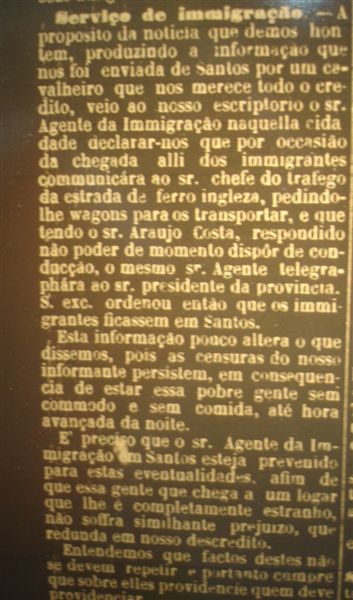
Transcription / Transcrição (Gazeta de Notícias 18 April 1885)
Serviço de Immigração – A proposito da notícia que demos hontem, produzindo a informação que nos foi enviada de Santos por um cavalheiro que nos merece todo o crédito, veio ao nosso escritório o Sr. Agente de Immigração naquella cidade declarar-nos que por ocasião da chegada alli dos immigrantes comunicára ao sr. chefe do trafego da estrada de ferro ingleza, pedindo-lhe wagons para os transportar, e que tendo o sr. Araujo Costa respondido não poder de momento dispôr de conducção, o mesmo sr agente telegraphára ao sr. presidente da província. S. exc. ordenos então que os immigrantes ficassem em Santos.
Esta nformação pouco altera o que dissemos, pois as censuras do nosso informante persistem, em consequencia de estar essa pobre gente sem commodo e sem comida , até hora avançada da noite. É preciso que o sr. Agente da Immigração em Santos esteja prevenido para estas eventualidades, afim de que essa gente que chega a um logar que lhe é completamente estranho, não soffra similhante prejuiso, que redunda em nosso descredito.
Entendemos que factos destes não se devem repetir e portanto compre que sobre elles providencie quem deve providenciar.
Translation (Gazeta de Notícias 18 April 1885)
Immigration Service – Regarding the information we published yesterday, sent to us from Santos by a gentleman who deserves all the credit, the Immigration Agent in that city came to our office to tell us that on the occasion of the arrival of the immigrants (from Steamship Maria) he communicated to mr. Chief of the British railroad’s traffic, asking him wagons to transport them, and that having Mr. Araujo Costa replied that he was not able to transport them at that moment, the same agent sent a telegram to mr. President of the province. who ordered that the immigrants should stay in Santos.
This information does little to alter what we have said, for our informant’s censures persist, as a result of these poor people being without accommodation and without food, until late in the evening. It is necessary that mr. Agent of the Immigration in Santos be forewarned for these eventualities, in order that those people who arrive at a place that is completely foreign to them, will not suffer a similar prejudice, which will result in our discredit.
We understand that facts like these should not be repeated and therefore providence should be taken by the responsible authorities.
– Jornal do Commercio – 19/4/1885 – Rio de Janeiro, Brasil.
Ship Vapor Maria advertisement for passenger going to Europe.
Propaganda do Vapor Maria para passageiros indo para a Europa.
Transcription / Transcrição (Jornal do Commercio – 19/4/1885)
Pág.05 (anúncio publicitário):
SOCIETA R. PIAGGIO & F.
__________
O PAQUETE ITALIANO
MARIA
Carregando em Santos, d’onde voltará no dia 22 do corrente,
sahirá depois da indispensavel demora para
MARSELHA E GENOVA
__________
Para carga para os portos acima ou Trieste, por baldeação em Genova,
com o corretor J. Voigt, Praça do Commercio
__________
Para passageiros, queirão dirigir-se aos consignatarios
FIORITA & TAVOLARA
II RUA DA ALFANDEGA 13
Translation – (Jornal do Commercio – 19/4/1885)
Page.05 (advertising):
R. PIAGGIO & F. SOCIETY
__________
THE ITALIAN STEAMSHIP
MARIA
Loading in Santos, from where it will return on the 22nd,
After the indispensable stay to
MARSEILLE AND GENOA
__________
For cargo to the ports above or Trieste, by transfer in Genoa,
contact the broker J. Voigt (address): Praça do Commercio
__________
For passengers, they should contact the consignees
FIORITA & TAVOLARA
(Address:) II RUA DA ALFANDEGA 13
– Jornal do Commercio – 25/4/1885 – Rio de Janeiro, Brasil.
Ship Vapor Maria advertisement for passenger going to Europe. The ship also transported coffee and letters to Europe.
Propaganda do Vapor Maria para passageiros indo para a Europa. A embarcação também transportou café e correspondências para a Europa.
Transcription / Transcrição – (Jornal do Commercio – 25/4/1885)
pág. 04 (anúncio publicitário):
SOCIETA R. PIAGGIO & F.
__________
O PAQUETE ITALIANO
MARIA
Sahe HOJE, ás 4 horas da tarde, para
MARSELHA GENOVA E NAPOLES
__________
Recebe passageiros, tratando-se com os consignatarios
FIORITA & TAVOLARA
II RUA DA ALFANDEGA 13
Translation – (Jornal do Commercio – 25/4/1885)
page 04 (advertising):
R. PIAGGIO & F. SOCIETY
__________
THE ITALIAN STEAMSHIP
MARIA
Departs today, at 4 o’clock in the afternoon, to
MARSEILLE, GENOA AND NAPLES
__________
Receives passengers, contact theconsignees
FIORITA & TAVOLARA
Adress: II RUA DA ALFANDEGA 13
Transcription / Transcrição – (Jornal do Commercio – 25/4/1885)
Pag 4
Embarcações despachadas no dia 24
GENOVA e escalas – Vapor italiano Maria, de 826 tons., consignatarios Fiorita & Tavolara: não fechou o manifesto.
Translation – (Jornal do Commercio – 25/4/1885)
Page 4
Ships shipped on the 24th
To GENOA and scales – Italian steam Maria, of 826 tons, consignees Fiorita & Tavolara: did not close the cargo report.
Transcription / Transcrição – (Jornal do Commercio – 25/4/1885)
pág. 04
SANTOS – 25hs., Vapor italiano Maria, 827 tons., M. Domonico Zonelli, equip.39: carga café a Fiorita & Tavolara, passags. 10 em transito.
Translation – (Jornal do Commercio – 25/4/1885)
Page 04
SANTOS – 25hs., Italian steam Maria, 827 tons., M. Domonico Zonelli, equip. 39: loading coffee to Fiorita & Tavolara, passagers. 10 in transit.
Transcription / Transcrição – (Jornal do Commercio – 25/4/1885)
pág. 02
Malas – O correio geral expede hoje as seguintes pelos seguintes paquetes:
Maria, para Marsellha, Genova e Napoles, recebendo impressos até ás 12 horas da manhã. Objetos para registrar até á 1 da tarde, e cartas ordinarias até ás 2.
Translation – (Jornal do Commercio – 25/4/1885)
Page 02
Bags – General mail Post , dispatches the following parcels by the following steamships today:
Maria, to Marseilles, Genoa and Naples, receiving prints until noon. Items to register until 1 pm, and ordinary letters up to 2 pm.
– Relatório Boletim A Imigração – 25/4/1885, São Paulo, Brasil.
Report about immigrants being injured in a trunk as slaves and still about all problems of transport and accomodation related to Vapor Maria arrival.
Relatório sobre imigrantes apanhando no tronco como escravos e ainda sobre os problemas de mal acolhimento dos imigrantes do Vapor Maria.
Transcription / Transcrição – (Relatório Boletim A Imigração – 25/4/1885)
Carta do Sr. consul austriaco David sobre o caso da fazenda Mont Alverne, pertencente ao coronel José Ferreira de Figueiredo, onde – segundo diz a informação – um alemão, um austriaco e cinco italianos foram mettidos em um tronco durante uma noite inteira. O tyrolez Giacomo Marcussi estava já em misero estado com as pancadas que recebera na cabeça. No dia 13 de Março o consul da Allemanha, em Campinas, dirigiu-se ao juiz de direito, para que o inquerito fosse aberto, e até agora não obteve resposta. No dia 14 daquelle mez, o italiano Alecio Francisco apresentou-se ao seu consulado pedindo proteção. Constava que o austriaco Marcozzi fora pra Santos, onde com efeito o consul Zerenne o encontrou em deploravel estado pelas pauladas, que apanhara, o remettendo-o para Campinas. – A directoria officiou novamente a este respeito aos Srs. presidentes de S, Paulo e da Sociedade de Immigração, bem como os Srs. cosules Krug e David.
Translation – (Relatório Boletim A Imigração – 25/4/1885)
Letter from the Austrian Consul David about the case of the Mont Alverne Farm, owner by Colonel José Ferreira de Figueiredo, where – according to the information – a German, an Austrian and five Italians were stuck in a trunk during a whole night. The Tyrolean Giacomo Marcussi was already in miserable condition with the blows he had received in the head. On March 13, the German consul in Campinas approached the judge demanding that the inquiry should be opened, and so far he has not received an answer. On the 14th of that month, the Italian Alecio Francisco presented himself to his consulate, asking for protection. It was said that the Austrian Marcozzi had gone to Santos, where in fact the consul Zerenne found him in deplorable state by the beating he recceived. Te consul sent him to Campinas. – The Director Board made a formal report againto the Presidents of S, Paulo and to the Immigration Society, the same did Mrs. Cosuls Krug and David.
– Relatório Boletim A Imigração – 25/4/1885, São Paulo, Brasil. (part 2)
Immigration report about the issues with the steamship Maria arrival in Santos.
Relatório sobre os problemas com a chegada do Vapor Maria em Santos.
Transcription / Transcrição (Relatório Boletim A Imigração – 25/4/1885)
Communicação do Sr. agente provincial da immigração em Santos, sobre a chegada de imigrantes e a difficuldade de accommoda-los naquella cidade, onde não ha nada preparado para esse fim. Os transportados pelo Vapor Maria em numero 927 vinham muito apertados e ficaram um dia em Santos, sem nenhuma providencia, porque a Inspectoria de Terras Publicas e Colonisação não respondeu a um telegrama passado em tempo – A directoria officiou a este respeito ao Sr. ministro da agricultura e ao presidente de S. Paulo.
Carta do Sr. director da Sociedade de Immigração de Santos, Albuquerque Bloem, protestando contra o modo por que foram transportados 927 immigrantes no vapor italiano Maria, cuja lotação é de apenas 827 toneladas. Tão más condições de viagem durante 34 dias! não foram compensados em terra, porquanto em Santos nada existia preparado a bem do recebimento dos recem-chegados.
Translation – (Relatório Boletim A Imigração – 25/4/1885)
Communication from the provincial agent of immigration in Santos, about the arrival of immigrants and the difficulty of accommodating them in that city, where there is nothing prepared for this purpose. Those transported by the Vapor Maria, 927 immigrants, were very tight and had to stay one day in Santos, without any provision, because the Inspectorate of Public Lands and Colonization did not respond to a telegram passed in time – The Board of Directors officially reported this issue to the Minister of Agriculture and the president of São Paulo.
Letter from the director of the Immigration Society of Santos, Albuquerque Bloem, protesting against the way in which 927 immigrants were transported in the Italian steamer Maria, whose stock is only 827 tons. So bad travel conditions for 34 days! Were not compensated on land, because in Santos nothing existed prepared to welcome the arrival of the newcomers.
– Correio Paulistano – 28/4/1885 – São Paulo, Brasil.
Fear of war declaration between England and Russia. This is relevant to the Tinos Family History for Tia Rosa, daughter of Marcellina Tinos, used to say that her grandfather Antonio Tinos decided to immigrate to Brazil to avoid compulsory military service for his sons. Antonio Tinos served the Austrian-Hungarian Empire Army for over 10 years working distant from home. This was the Empire’s strategy to protect their borders, they would send soldiers to work in a different ethical area, distant from their home towns, to make sure that the soldier would do their job without feeling guilty or culturally connected to the Empire’s enemies.
Medo de declaração de guerra entre a Inglaterra e a Rússia. Essa notícia é relevante a história da Família Tinos pois Tia Rosa, filha da Marcellina Tinos, costumava dizer que seu avô Antonio Tinos decidiu imigrar para o Brasil para impedir que seus filhos fossem obrigados a prestar serviço militar. Antonio Tinos serviu o Exército do Império Áustro- Húngaro por mais de 10 anos trabalhando distante de casa. Essa era uma estratégia do Império pra proteger suas fronteiras. Eles enviavam soldados para trabalhar em diferentes áreas étnicas , longe de casa, para garantir que o soldado faria seu trabalho sem se sentir culpado ou culturalmente ligado aos inimigos do Império.
Transcription / Transcrição – (Correio Paulistano – 28/4/1885)
A Russia e a Inglaterra – Declaração de Guerra – Diz a Folha Nova de hontem: Telegrammas particulares hontem recebidos dão como verificado o rompimento entre as duas poderosas nações, cujas relações de ha certo tempo inspirava apprehensão ao mundo politico e commercial.
Translation – (Correio Paulistano – 28/4/1885)
Russia and England – Declaration of War – Said <Follha Nova>news yesterday: Private telegrams received yesterday confirm the breakup between the two powerful nations, whose relations for some time inspired apprehension to the political and commercial world.
– Correio Paulistano – 28/4/1885, São Paulo, Brasil.
Transcription / Transcrição (Correio Paulistano – 28/4/1885)
A diretoria pedio ao Governo e á presidencia da provincia de S. Paulo providencias para que não se repita o facto que referem as folhas desta provincia de ficaram os 900 imigrantes trazidos no Maria das 10 da manhã às 10 da noite sem abrigo, nem proteção a vagar pelas ruas de Santos.
Translation – (Correio Paulistano – 28/4/1885)
The board asked the Government and the presidency of the province of S. Paulo to ensure that it is not repeated the fact described at the province report of that 900 immigrants brought in the Steamship Maria had to stay from 10am to 10pm without shelter or protection roaming around the streets of Santos.
IMMIGRANTS’S HOSTELRY IN BOM RETIRO
HOSPEDARIA DOS IMIGRANTES NO BOM RETIRO
– Five articles about the immigrant’s hostel at Bom Retiro prior to the Tinos family’s arrival. Brasil.
Cinco artigos sobre a Hospedaria do Bom Retiro antes da chegada da Família Tinos.
1) Correio Paulistano 16/11/1882 – São Paulo, Brasil.
The Immigrant Hostel at Bom Retiro, when it was founded in February 1881, was well equipped to accommodate 500 beds and serve 3 meals a day – breakfast 6am, lunch 10am, dinner 3.30pm- and to provide medical services.
A Hospedaria dos Imigrantes no Bom Retiro quando foi fundada em fevereiro de 1881, estava bem equipada para acomodar 500 camas e servir 3 refeições por dia – café da manha as 6h, almoço as 10h e jantar as 15h30min – e para prestar serviços médicos).
Transcription / Transcrição – (Correio Paulistano 16/11/1882)
Correio Paulistano – Serviço provincial de immigração – Publicamos em seguida algumas informações e dados estatisticos ácerca do alojamento provincial de immigrantes, no Bom Retiro, segundo os quaes, demonstra-se o movimento de immigrantes nessa repartição, no periodo de primeiro de Janeiro a 31 de Outubro do anno corrente.
Esta reparticção, como sabe-se, foi creada pela lei provincial n. 36 de Fevereiro de 1881, sendo destinada a estabelecer o serviço de recepção de immigrantes, fornecer-lhes cama, comida e passagens nas ferrovias para o interior da provincia e prestar outros cuidados de que careçam os recem-chegados.
O alojamento foi, á principio, estabelecido provisoriamente no edificio situado no Bom Retiro, então propriedade do sr. Manfredo Meyer e hoje adquirido pela provincia.
Até Março do anno corrente deixou muito a desejar a organzação do serviço, pela falta de acommodações para o agasalho dos immigrantes.
Nomeada pelo governo provincial, uma comissão composta dos srs. Clemente Falção, Elias Antonio Pacheco Chaves, Raphael Aguiar Paes de Barros e Nicoláo de Souza Queiroz, com o fim de escolher o local mais conveniente para edificação do predio destinado ao alojamento, nas forças da verba do orçamento votada para esse fim, julgou essa commissão, por diversos motivos, que o alvitro mais favorável a seguir-se seria o da acquisição do predio do Bom retiro pela quantia de vinte contos de réis, devendo entretanto fazerem-se alli as obras de reconstrução e melhoramentos necessarias e construirem-se outros annexos ao edificio existente, para dar ao estabelecimento as condições exigidas pelo serviço.
Com effeito, feitas as obras de reparação no antigo prédio, foi junto a este construido outro edificio annexo, destindo ao refeitorio, a cozinha e a dispensa do estabelecimento.
Outros melhoramentos tambem foram realizados, subindo as despezas feitas, tanto com elles, como com a compra da antiga propriedade, á somma de trinta contos.
A area total dos terrenos pertencentes á repartição do alojamento provincial é de 9.337 metros quadrados.
A administração do alojamento adquiriu 500 camas de campanha (modelo dos corpos de cavallaria), e 500 cobertores, tudo mediante concurso para os respectivos fornecimentos, entando assim apto o alojamento a receber, de um momento para outro, 500 imigrantes, que alli encontração agasalho confortavel e hygienico.
No refeitorio existem 24 mezas, 48 bancos corridos e lampeões, etc.
O dormitório acha-se dividido em grandes salas e compartimentos menores, sendo estes destinados ás familias e aquellas aos outros immigrantes.
No periodo a principio referido foi bom o estado sanitario do estabelecimento, não tendo havido fallescimento algum. O medico do alojamento é o sr. dr. Ignacio de Mesquita que generosa e expontaneamente offereceu os seus serviços a respectiva administração. que se acha confiada, desde 7 de Janeiro deste anno, ao sr. Nicoláo de Souza Queiroz.
A alimentação, cujo fornecimento foi contractado, mediante concurso, pelo sr. Manfredo Meyer, é distribuida tres vezes ao dia e da segunte fórma: café e pão as 6 horas da manhãç o almoço as 10 horas e o jantar as 3 1/2 horas da tarde.
As rações são abundantes e de boa qualidade, custando ao governo o preço de 900 réis diarios para os adultos e 500 réis para os menores.
Eis os dados estatisticos que nos foram fornecidos acerca do movimento de immigrantes. Entraram de 1o de Janeiro a 31 de Outubro:
Adultos Menores
Homes/ mulhers Rapazes / Raparigas Ing. Total
Italianos 953 221 123 53 76 1436
Portuguese 228 55 33 24 16 356
Hespanhoes 83 23 20 19 9 104
Allemãos 14 9 6 1 1 31
Turcos 1 – 1 – – 2
Suissos 5 – – – – 5
No mesmo periodo sahiram com destino as seguintes localidades: Agua Branca 1, Amparo 29, Araras 2, Bacaetava 7, Belem do Descalcvado 245, Bragança 3, Brotas 61, Cachoeira 11, Caldas 3, Campinas 255, Capital 693, Capivary 2, Casa branca 116, Conceição dos Grarulhos 9, Cordeiros 2, Cutia 12, Guabirobas 57, Guaratinguetá 3, Tpanema 23, Italey 8, Itabiba 1, Itú 54, Itupeva 5, Jundiahy 4, Limeira 18, Lorena 3, Mococo 3, Mogy-mirim 2, Monte-Serrate 5, Parahyba1, Pedreiras 1, Penha do Rio do Peixe 49, Piracicaba 20, Pirassununga 3, Porto Ferreira 4, Ribeirão Preto 76, Rio Claro 122, Rocinha 4, Santa barbara 4, S. Bernardo 7, S. Carlos do Pinhal 33, Sabta Rita 1, S. Roque 2, S. Simão 4, Santos 3, Sorocaba 6, Tatuhy 1, Taubaté 1, Tietê 8, Vallinhos 6: Somma: 1994.
Antes da actual administração do alojamento provincial, foram recebidos, nesse estabelecimento, correndo as competentes despezas por conta do governo geral, os seguintes immigrantes: Hespanhóes 19, italianos 405, Somma 424.
Estes immigrantes tiveram os seguinte destino: Capital 230, Campinas 90, Amparo 57, S. bernardo 10, Limeira 9, Itú 8, Sorocaba 13, Atibaia 1, Ypanema 6. Somma 424.
Com relação ao assumpto podemos accrescentar que dos immigrantes que foram internados na capital, por conta do governo geral, durante o ultimo periodo de internação, ficaram na provincia os seguintes: Italianos 935, portuguezes 851, hespanhoes 116, austriacos 69, allemães 12, francezes 14, suissos 1, marroquinos 1, turcos 1, gregos 1, ignorados 3. Somma:1971
Recapitulação dos dados acima
Immigrantes internados que ficaram na provincia, sendo as respectivas despezas pagas pelo governo geral: 1971.
Immigrantes entrados no alojamento provincial na administração anterior deste estabelecimento: 424.
Immigrantes entrados durante a administração do actual delegado da immigração: 1894.
Assim o total dos immigrantes entrados na provincia, quer em virtude da ultima intornação, quer por conta do governo provincial, nos periodos supra mencionados, sobe a 4389.
As despezas ordinarias feitas pela delegacia, com o serviço de immigração, importaram em 9:357$673 réis.
Dividida esta somma pelo total dos immigrantes (1994), temos, como despeza média feita com cada immigrante, 4$692 9/10.
Translation – (Correio Paulistano 16/11/1882)
Correio Paulistano newspaper – Provincial Immigration Service – We publish below some information and statistical data about the provincial hostelry of immigrants, in Bom Retiro, according to which, the movement of immigrants in this division is demonstrated, from January 1st to October 31st of the current year.
This department, as we know, was created by provincial law number 36 of February 1881, and is intended to establish the reception service for immigrants, to provide them with bed, food, and railroad tickets for the interior of the province and to provide other care the new arrived immigrants may need.
The Hostelry was originally provisionally established in the building situated at Bom Retiro, which used to belong to Manfredo Meyer and nowadays was acquired by the province.
Until March of the current year it fell short of service organization, due to the lack of accommodations to shelter the immigrants.
It was named by the provincial government, a commission – composed of Mrs. Clemente Falcao, Elias Antonio Pacheco Chaves, Raphael Aguiar Paes de Barros and Nicoláo de Souza Queiroz – in order to choose the most convenient location for the hostelry building, in the budget funds voted for that purpose. It was judged by this commission , for various reasons, that the most favorable option would be to buy the building in Bom Retiro for twenty counts of réis, however being necessary to do some the reconstruction works and improvements should be made as well as to construct other annexes to the existing building, to give the establishment the conditions required by the service.
As a matter of fact, the repair work was done in the old building, and next to it was built another building, for refectory, kitchen and storage.
Other improvements were also made, raising the expenses incurred both with them and with the purchase of the old property, to the sum of thirty contos.
The total area of land belonging to the provincial hostelry is 9,337 square meters.
The administration of the hostelry purchased 500 camp beds (model cavalry), and 500 blankets, all by means of a tender to choose the respective supplies. Thus fitting the accommodation to receive, from one moment to another, 500 immigrants, who find there comfortable and hygienic shelter.
In the dining room there are 24 tables, 48 benches and gas lamps, etc.
The dormitory is divided into large rooms and smaller compartments, the last for the families and the large rooms for the other immigrants.
In the period referred the establishment has been kept in good sanitary condition, and there was no deaths. The doctor of the lodging is Mr. Dr. Ignacio de Mesquita, who generously and spontaneously offered his services to the respective administration. Mr. Nicoláo de Souza Queiroz has been in charge of the building administration since January 7th of this year.
The contracted food supplier chosen by a tender, is Mr. Manfredo Meyer. The food is distributed three times a day as follows: coffee and bread at 6 o’clock in the morning, lunch at 10 am and dinner at 3 o’clock in the afternoon.
The rations are abundant and of good quality, costing the government the price of 900 reis per adult pas and 500 reis for the children.
Here is the statistical data we have been given about the movement of immigrants. from January 1st to October 31st:
Adults Under 18
men/ women boys / girl Ing. Total
Italians 953 221 123 53 76 1436
Portuguese 228 55 33 24 16 356
Spanish 83 23 20 19 9 104
Germans 14 9 6 1 1 31
Turks 1 – 1 – – 2
Swiss 5 – – – – 5
In the same period, the immigrants left to the following destinations: Agua Branca 1, Amparo 29, Araras 2, Bacaetava 7, Belem do Descalcvado 245, Bragança 3, Brotas 61, Cachoeira 11, Caldas 3, Campinas 255, Capital 693, Capivary 2, Casa branca 116, Conceição dos Grarulhos 9, Cordeiros 2, Cutia 12, Guabirobas 57, Guaratinguetá 3, Tpanema 23, Italey 8, Itabiba 1, Itú 54, Itupeva 5, Jundiahy 4, Limeira 18, Lorena 3, Mococo 3, Mogy-mirim 2, Monte-Serrate 5, Parahyba1, Pedreiras 1, Penha do Rio do Peixe 49, Piracicaba 20, Pirassununga 3, Porto Ferreira 4, Ribeirão Preto 76, Rio Claro 122, Rocinha 4, Santa barbara 4, S. Bernardo 7, S. Carlos do Pinhal 33, Sabta Rita 1, S. Roque 2, S. Simão 4, Santos 3, Sorocaba 6, Tatuhy 1, Taubat~e 1, Tieté 8, Vallinhos 6: Total: 1994.
Before this administration, in the provincial hostelry were received the following immigrantes who had their expenses paid by the General Government: Spanish 19, Italians 405, Total 424.
These immigrants went to the following destinations: Capital 230, Campinas 90, Amparo 57, S. bernardo 10, Limeira 9, Itú 8, Sorocaba 13, Atibaia 1, Ypanema 6. Somma 424.
About this subject we can also add that from the immigrants received in this Capital city Hostelry who were financed by the General Government, during the last period of reception, this are the number who stayed in this province: Italians 935, Portuguese 851, Spanish 116, Austrians 69, Germans 12, French 14, Suisse 1, Moroccans 1, Turks 1, Greeks 1, unknown 3. Total:1971
Recapitulation of the above data:
Immigrants received who stayed in the province, with their the respective expenses paid by the general government: 1971.
Immigrants entered into provincial hostelry in the former administration of this establishment: 424.
Immigrants entered during the administration of the current Immigration Delegate: 1894.
Thus the total of the immigrants entered in the province, either by virtue of the last administration or by the provincial government, in the periods mentioned above, rises to 4389.
Ordinary expenses made by the immigration department, with the immigration service totals 9: 357 $ 673 réis.
Divided this sum by the total of the immigrants (1994), we have, as average expenditure per immigrant of , 4 $ 692 9/10.
2) Gazeta de Notícias 2/3/1885 – Rio de Janeiro, Brasil.
About one month before the Tinos Family’s arrival, Dr. Ennes de Souza, secretary of the Central Immigration Society writes a report about the issues with the Immigrant Hostel at Bom Retiro – bad location in a low area of the city with risk of flood and excessive distance to the (North) train line. Although the walls were recently painted, there is a lack of hygiene evident in the floors and no space between bed mattresses.
Cerca de um mês antes da chegada da Família Tinos, o Dr. Ennes de Souza, secretário da Sociedade Central de Imigração escreve um relatório sobre as precariedades da Hospedaria do Bom Retiro – mal localizada numa área baixa da cidade sujeita á enchentes e longe da linha de trem (do Norte). Apesar da nova pintura das paredes, há falta de higiene no chão e sem espaço entre os colchões das camas.
Transcription / Transcrição – (Gazeta de Notícias 2/3/1885)
SOCIEDADE CENTRAL DE IMMIGRAÇÃO –
Do Sr. director Dr. Ennes de Souza recebeu a directoria a seguinte comunicação:
A HOSPEDARIA DE IMMIGRANTES EM S. PAULO
Este estabelecimento provincial deixa a desejar sob todos os pontos de vista: mas é principalmente quanto á sua collocação que elle está sujeito á mais severa critica.
É exactamente na parte mais baixa da capital, na mais exposta ás inundações e á permanencia de pantanos, e a uma distancia das estações das linhas ferreas que nada justifica, que escolheu-se o edificio destinado á hospedaria de immigrantes.
Situada no Bom Retiro, na baixada da Luz, á grande distancia da estação do Norte, ( que fica no Braz), tem os immigrantes que chegam da côrte, um penoso trajecto a fazer atravéz de toda a cidade de S. Paulo, para ahi recolherem-se após as 13 horas normaes de viagem do trem de ferro.
Só os immigrantes que forem á S.Paulo por via de Santos escaparão a esse trajeto inteiro, por achar-se menos longe a estação ingleza (linha de S. Paulo a Santos), da hospedaria de immigrantes. Bias assim mesmo o incomodo é assaz grande por ser a distancia ainda de um kilometro mais ou menos, caminho esse a fazer-se a pé.
Salvo um transporte immediato e sem baldeação do trem de ferro para homens e bagagens (cousa dificil de se conseguir ou ao menos com uma unica baldeação, até chegar ao Bom Retiro, cousa aliás facilima de se obter das companhias de bonds como veremos), a actual hospedaria não póde convir aos imigrantes que chegam pela linha do Norte a S. Paulo, isto é, á grande maioria dos muitos immigrantes que já recebe, e ainda do avultado numero que tem de receber essa provincia.
Para bem julgar se o que isso é, transcrevemos alguns topicos de um artigo de fundo de 20 de fevereiro corrente do Diario Popular de S. Paulo, assignado pelo Dr. Americo de Campos:
A PROPOSITO DOS IMMIGRANTES
Hontem chegaram a esta cidade, pelo expresso da linha do norte, 260 immigrantes. (O trem chegou com 2 horas de atraso.)
Ás 8 da noite aquelles 260 immigrantes achavam-se na estação do Braz, e tratava-se de realizar nova façanha, a de dar com elles no alojamento do Bom Retiro, da outra banda da cidade, uma viagem, e realmente incommoda (mesmo quando não ha chuva) para aquella pobre gente, homens sem recursos, mulheres e crianças desprovidas de tudo, e todos elles completamente estranhos á terra e a seus usos.
Os homens fazem o trajeto a pé. As mulheres e crianças são transportadas até o largo da Luz em bonds, mas dalli ao Bom Retiro ainda contam com cerca de um kilometro a pé, quer chova, quer faça bom tempo!
É o possivel, nas condições actuaes; mas é deficiente, incompleto, brazileiro, permittam a qualificação.
Em terras menos amarradas e menos rotineiras, para tudo isso haveriam recursos, e ninguém acharia que fosse cousa de outro mundo entrar em combinação, com os bonds e levar ao Bom Retiro trilhos especiaes e provisorios.
Para notar a importancia do facto ainda cumpre lembrar que, além da conveniencia de transportar de vez e commodamente os immigrantes ao alojamento, ha mais a magna questão do transporte de bagagens, o que nas condições actuaes só póde ser feito em carroças, por bom dinheiro e com grande perda de tempo.
Estas ligeiras observações significam pelo menos que o nosso serviço de immigração não está organizado em termos aceitaveis, e que muita cousa ha por fazer.
Analysemos agora as differenes partes do estabelecimento.
A casa da hospedaria é tudo que há de mais improprio para tal fim.
Basta dizer-se que ella é um sobrado velho de dois andares, sem pé direito acachapado, mal dividido, com apartamentos que nem são dormitórios vastos e hygienicos para os dois sexos isolados, nem quartos recatados para familias:- são todos muito pequenos para uns e demasiado grandes para os outros.
Uma recente caiação e pintura dos quartos e das portas e janellas e mesmo o rompimento de algumas paredes ou uma especie de limpeza geral o que se está ahi procedento, não são modificações sufficientes para mascararem a vestustez e as pessimas condições de localização e de construcção de tal estabelecimento.
As condições de alojamento são igualmente ruins. Os repousorios ou tarimbas se acham collocados lado a lado uns dos outros, sem o menor intervallo, cousa essa tão contraria aos mais elementares preceitos de hygiene e do respeito humano. Os immigrantes são ahi aglomerados como sardinhas em latas… Não sei porque, vendo isso, pensei logo nas vallas communs!… Sem duvida pelo mesmo sentimento que me inspiram os beliches de bordo que me recordam as carneiras de um cemiterio….
Em outros paizes, de climas mais amenos ou mais frios que o nosso e nos quaes a hygiene não é palavra vã, nem para os particulares nem para a publica administração os costumes a seguinte regra geral: < que todos os dormitorios, nos quarteis, hospitaes, colegios, etc, a distancia a ser conservada de uma cama para outra, seja a de um metro, pelo menos.
Mas esse erro anti-hygienico não é ainda tudo ahi. Por cima dessas tarimbas, que se compõe de uma taboa colocada sobre dous cavalletes toscos, deitam-se colchões ou enxergas que, se em alguns quartos estão ainda novas; noutros já estão num estado inservivel, mesmo para uma cadeia de criminosos. Quase nunca, ou talvez nunca batidos ao sol, são elles o receptaculo de nojentos apteros e, pela successão dos hospedes, ternam-se mesmo desde os primeiros usos, de uma repugnancia tal ao olfato e á vista que, por certo, não se póde concluir de tal espetaculo nem as garantias de hygiene para o immigrante e nem as praticas desses requesitos por parte da administração publica. Note-se que eu não faço uma accusação ao deleixo dos encarregados do serviço da hospedaria: o mal reside no proprio objecto: o colcão é que não presta para tal fim e deve ser banido de uma vez para sempre de toda grande aglomeração de hospedes seja em quartel, seja uma hospedaria de immigrantes.
O colcão só é um traste util e e inoffensivo á hygiene quando se acha em uma cada de cuidadosa familia ou em um hotel de tratamento. O colcão exige lençóes limpos e por vezes deve ser batido ao ar e exposto ao sol, para se não tornar um foco de miasmas e um recaptaculo de immundicies. Em uma hospedaria de immigrantes onde não se póde pensar em lençóes limpos, representa elle uma pratica insensata, além de dispendiosa. Na hospedaria de S. Paulo elle é ainda mais do que isso…
Se eu fôra um immigrante, preferiria dormir ao relento, a estender-me sobre um tal catre e a encurralar-me em um calabouço como nos aposentos que me offerece a hospedaria de immigrantes da capital de S. Paulo.
Mil vezes preferivel é o alojamento da Ilha das Flores, na bahia do Rio de Janeiro, onde, em vez de dormirem sobre pessimos colchões, acham agradavel repouso os immigrantes sobre esteira de junco, estendidas em camas volantes ou tarimbas assáz decentes, sendo as esteiras successivamente destruidas desde que não offereçam mais as melhores condições de asseio.
E note-se que as esteiras custam muito pouco e são por si mesmas mais frescas, além de mais hygienicas do que os melhores colchões.
O beneficio das esteiras de que gozam os immigrantes na Ilha das Flores é aliás recente. Elle data da reforma que, ha um anno mais ou menos, tem sido realizada nessa hospedaria. Esse exemplo, que tão bons resultados tem dado sob o ponto de vista de asseio, de hygiene e de despeza mesmo, deve ser seguido pela hospedaria de S. Paulo, como por todas aquellas que se tenham de organisar ainda em Santos ou em outras provincias. Eu aconselho, pois, que sejam os colções usados, que se acham em mau estado por via de regra, reduzidos a cinzas; que nem mais um seja comprado e que as esterias venham já a já substitui-los ( continua).
Translation – (Gazeta de Notícias 2/3/1885)
THE IMMIGRANT´S HOSTELRY IN S. PAULO
This provincial establishment is unsatisfactory in all points of view, but it is certainly its collocation which deserves to the most severe criticism.
It is exactly in the lowest part of the capital, in the area most exposed to the floods and to permanence oswamps, and at a distance from the railway stations lines that nothing justifies, why this building was chosen to be the hostelry of immigrants.
Located in Bom Retiro, in the lowland of Luz, at a great distance from the North Station (which is in Braz), the immigrants arriving from the court (Rio de Janeiro) have to endure a painful journey through the city of S. Paulo, after the normal 13-hour train journey.
Only the immigrants who arrive S. Paulo via Santos will escape this entire route, since the English Station (line S. Paulo to Santos), is less distant from the Immigrants hostelry. That said, they will still have the inconvenience of having to walk a kilometer on foot to arrive at the Hostelry.
The ideal option of a direct train for men and baggage straight to the Hostelry is a difficult thing to do. (Or at least just a single transfer change, until arriving at Bom Retiro, is easier to obtain from the bond companies, as we shall see). Therefore the present hostelry is not suitable to the immigrants who arrive by the North line to S. Paulo, that is to say, to the great majority of the many immigrants that we already receive, and still of the large number that will receive this province.
In order to judge what we are talking about, we transcribe some topics from an article of February 20th by the Popular Daily of S. Paulo, signed by Dr. Americo de Campos:
ABOUT THE IMMIGRANTS
Yesterday arrived in this city, by the train line of the north, 260 immigrants. (The train arrived 2 hours late.)
At 8 that night, the 260 immigrants were in the station of Braz, about to start a new challenge, to arrive the lodging of Bom Retiro, on the other side of the city, really troublesome trip (even when there is no rain) for those poor people, men without resources, women and children devoid of everything, and all of them completely foreign to the land and its uses.
Men make the journey on foot. The women and children are transported to the Largo da Luz in bonds, but from there to Bom Retiro , all must walk about a kilometer on foot, whether it’s rain or not!
This is what is possible under current conditions; But is deficient, incomplete, Brazilian, if you allow me the qualification.
In less tied and less lethargic lands, for all this there would be resources, and no one would think it was a matter of another world to make a special deal with the bonds to take temporary rails to Bom Retiro.
To note the importance of this fact, it is still worth remembering that, besides the convenience of transporting immigrants to and from the accommodation, there is also the baggage transport, which under current conditions can only be done in horse carriage, which are expensive and and a great loss of time.
These slight remarks mean at least that our immigration service is not organized on acceptable terms, and that much has yet to be done.
Let us now consider the different parts of the establishment.
The hostelry building is unfit for its end.
Suffice it to say that it is an old two-story townhouse, without right-handed, badly divided, with apartments that are neither vast and hygienic dormitories for the two isolated areas 9 form males and females), nor rooms with privacy for families: – they are all too small for ones and too big for others.
A recent painting of the rooms, doors and windows and; even the breaking of some walls or a kind of general cleaning which is done – it is not enough modifications to mask the look and the terrible conditions of the localization and construction of such establishment.
The housing conditions are equally bad. The beds are placed next to each other, without the slightest interval, which is so contrary to the most elementary precepts of hygiene and human respect. The immigrants are there crowded like sardines in tins … I do not know why, seeing this, I soon thought of the common graves! … No doubt the hostelry bunk beds gives me same sentiment and impression of the tomb drawers of a cemetery ….
In other countries, of milder or colder climates than ours, where hygiene is not a vain word, individuals and public administration are used to follow the same general rule: There should be at least a meter of distance between beds of all dormitories, in quarters, hospitals , Schools, etc.
This anti-hygienic error is not isolated. On top of these wooden platforms, which is composed of board placed on two rough easels, lie mattresses that, if in some rooms are still new; In others they are already in an unusable state, even for being used in a prison of criminals. They are almost never, or perhaps never beaten in the sun, becoming filth by the succession of the guests, even from the earliest uses, such a repugnance smell and terrible sight. We can conclude from such a spectacle that there is no hygiene practice are followed by the public administration to serve the immigrants. It should be noted that I do not make an accusation against the employees in charge of the hostelry service: the evil lies in the object itself: the mattress is not suitable for this purpose and must be banished once and for all from all large agglomerations of hosts being in an army barrack, or being in a hostelry for immigrants.
The mattress is only a useful, hygienic and not an issue for the health when it is in a house of a careful family or in a treatment hotel. A mattress requires clean sheets and sometimes it must be beaten outside and exposed to the sun, otherwise it will become a focus of sediments and a depot of filth. In a Hostelry for immigrants where it is not possible to think of clean sheets, it represents a foolish and expensive practice. In the hostelry of S. Paulo it is even worse than that …
If I was an immigrant, I would rather prefer to sleep in the open then to lie down on such a cot, and to be cornered in a dungeon, as in the rooms offered to me by the hostelry of immigrants from the capital of S. Paulo.
A thousand times preferable is the Ilha das Flores lodging, in the bay of Rio de Janeiro, where, instead of sleeping on very heavy mattresses, the migrants find comfortable on reed mats, stretched out descent beds or easels, successively destroyed when theyno longer offer the best conditions of cleanliness.
And it should be noted that the reed mats cost very little and are by themselves cooler, more hygienic than the best mattresses.
The benefit of the reed mats enjoyed by immigrants in Ilha das Flores Hostelry is quite recent. It dates from the reform that, a year or so ago, has been carried out in that hostelry. This example, which has given such good results from the point of view of cleanliness, hygiene and even cost, must be followed by the hostery in S. Paulo, as well as by all those that have yet to be organized in Santos or in other provinces . I advise, then, that the mattress used, which are in bad condition as a rule, should be reduced to ashes; That one more mattresses should be bought and that they should be replaced by the reed mats immediately. (continues).
3) Gazeta de Notícias 9/3/1885 – Rio de Janeiro, Brasil.
Government replies to the critics – agreeing that the location of the Immigrant Hostel at Bom Retiro is far way from the train station and explaining that the beds where only put together to keep some rooms of the building empty for plumbing and painting maintenance.
Governo responde as críticas – concordando que a localização da Hospedaria dos Imigrante no Bom Retiro é longe da estação de trem e explicando que as camas foram apenas postas juntas para manter algumas salas do prédio vazias para manuntenção de pintura e encanamento.
Transcription / Transcrição – (Gazeta de Notícias 9/3/1885)
Immigração – o Presidente da provincia de S. Paulo respondeu ao officio que lhe foi dirigido pelo presidente da Sociedade Central de Immigração, remettendo por cópia a presente informação ministrada pelo Dr. inspector geral de immigração daquella provincia, o Sr. Dr. Joáo de Sá e Albuquerque:
<Comprindo o despacho de V. Ex., exagerado na representação dirigida pela Sociedade de Immigração, em que a mesma pede providencia com relação aos defeitos da hospedaria de immigrantes desta capital, segundo impressões transmitidas pelo Dr. Ennes de Souza, na qualidade de secretario daquella sociedade, cabe-me informar o seguinte:
O Dr. Ennes de Souza diz que – o estado em que se acha o alojamento de recepção de immigrantes, além da má collocação, acha-se em pessimas condições hygienicas, nenhum asseio, enfim um conjunto de tristes circunstancias que devem incutir ao recem-chegados logo á sua entrada na florescente capital da provincia, má idéia dos sentimentos de hopitalidade desta adiantada terra.
Este juizo, além de severo em alguns pontos, é inteiramente falso em outros.
É exacto que a actual hospedaria de immigração desta provincia não se acha bem situada, visto não estar proxima a estação da via ferrea do Norte e serem difficeis os meios de transporte dos imigrantes. este defeito, porém, já havia sido reconhecido pela patriotica assembléa provincial, que, antes de aqui chegar o 2o secretario da Sociedade Central de Immigração tinha apresentado em virtude de indicação de S. Ex., um projeto auctorisando o governo a remover para um logar mais apropriado a actual hospedaria, permutando o proprio predio provincial em que se acha, por outro, ou mandando edificar uma casa em condições satisfactorias e votando neste sentido uma verba sufficiente. Justamente na manhã em que o Dr. Ennes de Souza fez sua rapida visita á hospedaria de immigração, tinha eu ido em companhia de S. Ex. examinar alguns predios mais apropriados para nelles funcionar aquelle estabelecimento.
Quanto as pessimas condições de hygiene de que fala o informante, compre-me dizer que opiniões mais auctorizadas garantem o contrario e que sendo o actual edificio situado justamente no ponto mais elevado daquelle bairro e livremente ventilado, não ha motivo para receiar-se a falta de condições hygienicas.
Com relação ao asseio, devo declarar a V. Ex. que é completamente inexacta a informação, e que no dia da visita do Dr. Ennes de Souza aquelle estabelecimento concluian-se as obras de pintura, caiação e encanamentos: por isso é natural que, havendo poucos immigrantes alojados naquella occasião e para facilitar o trabalho, as camas não estivessem nos seus lugares e houvesse algumas nodoas de cal e tinta no soalho.
Como V. Ex. mais de uma vez teve occasião de verificar, esse estabelecimento conserva o maior asseio e ordem, sendo que a alimentação fornecida aos immigrantes é abundante e bem preparada, como eles mesmos reconhecem e podem attestar ás pessoas que tem visitado a hospedaria de immigração desta capital.
Censurou ainda o Dr. Ennes de Souza, que não houvesse uma hospedaria de immigração na cidade de Santos, mas esta censura é destituida de fundamento, desde que se attenda para o seguinte:
Os vapores chegam commummente ao porto daquella cidade, das 9 horas da manhã ás 2 da tarde, e o trem parte para esta capital ás 3 e 25 minutos, chegando a estação da Luz, ãs 6 e 25 minutos da tarde, 3 horas apenas de viagem.
Desviar os immigrantes da hospedaria situada nesta capital, demorando-os em Santos, é medida que nenhuma vantagem tem e que acarretaria augmento de despezas, retardando-os no destino que encontram logo que aqui chegam, espondo-os aos rigores de um clima diverso ao da Europa e ao desta capital.
Na cidade de Santos reside um agente de immigração que recebe os immigrantes, facilta-lhes as passagens no trem para esta capital e por telegramma incontinenti avisa a esta Inspectoria, afim de serem recebidos na estação da Luz por um empregado, que acompanha-os á hospedaria.
Inexactas, como foram, as impressões transmittidas á Sociedade Central de Immigração, seria prudente que essa sociedade mandasse uma commissão afim de mais detidamente poder conhecer as condições e modo regular, por que é feito o serviço da immigração nesta provincia, e convencer-se de que o governo provincial attentamente tem dirigido suas vistas para tão importante assumpto, dando prompto regulamento ás leis e cercando-se de meios que tendem cada vez mais a garantir e desenvolver a corrente immigratoria.>
Translation – (Gazeta de Notícias 9/3/1885)
Immigration – The President of the province of S. Paulo answered the official document addressed to him by the president of the Central Immigration Society. A copy of his answer is the present information given by the Inspector General of Immigration of that province, Dr. Joao de Sá And Albuquerque:
<Complying with the order of Your Excellency, exaggerated in the representation directed by the Society of Immigration, in which is asked for providence regarding the defects of the hostelry of immigrants of this capital, according to impressions transmitted by Dr. Ennes de Souza, in the capacity of secretary of that entity, it is my duty to inform the following:
Dr. Ennes de Souza says that – the Hostelry of Immigrants is in bad location and bad state of very poor hygienic conditions, no cleanliness, and a set of sad circumstances that should suggest to the new immigrants arriving in the flourishing capital of the province, a bad idea of the hospitality feelings of this advanced land.
This judgment, in addition to being severe in some respects, is entirely false in others.
It is true that the present hostelry of immigration of this province is not well situated, since it is not near tp the North Train Station which difficult the means of transport of the immigrants. This defect, however, had already been recognized by the patriotic Provincial Assembly, which – before arriving here, the 2nd secretary of the Central Immigration Society – by virtue of the appointment of His Excellency, had presented a project to change the location of the Immigrants Hosltelry to more appropriate place, buy saling the actual building and buying a new one, on by building a new hostelry, voting for a sufficient amount of investiment for this project. In the same morning Dr. Ennes de Souza made his quick visit to the hostelry of immigration, I had gone with his Ex. to examine some buildings more suitable for the establishment to operate.
As for the bad hygienic conditions of which the informant speaks, let me say that more experts opinions guarantee the opposite. Since the present building is situated at the highest point of that neighborhood and is freely ventilated, there is no reason to fear the lack of hygienic conditions.
With regard to the cleanliness, I must declare to our Excellency that the information is completely inaccurate. On the day of Dr. Ennes de Souza’s visit , that establishment a painting and plumbing renovation work was in completion in the Hostelry: it is therefore natural that , with few immigrants staying at that time and to facilitate the work, the beds were not in their places and there were some marks of whitewash and paint on the floor.
As our Excellency has more than once had occasion to verify, this establishment maintains the greatest neatness and order, and the food provided to the immigrants is abundant and well prepared, as they acknowledge themselves and can attested to the people who have visited the Hostelry of this capital.
Dr. Ennes de Souza further complained that there was no hostelry for immigrants in the city of Santos, but this criticism is devoid of foundation, provided that it is agreed to the following:
The Steams usually arrive at the port of that city, from 9 am to 2 pm, and the train departs for this capital at 3.25 pm, arriving at Luz station at 6.25pm , only 3 hours travel.
To divert the immigrants from the Hostelry situated in this capital, delaying them in Santos, is the measure that no advantage has and which would lead to an increase of expenses, delaying them in this destination exposed to the rigors of a different climate from the Europe and the capital.
In the city of Santos an Immigration agent resides, who receives the immigrants, arrange their train tickets to this capital, and by telegram immediatelly advises this Inspectorate, in order to the immigrats be received at the Luz Station by an employee, who accompanies them to Hostelry.
As it were inaccurate the impressions transmitted to the Central Immigration Society, it would be prudent for this society to send a commission in order to know more about the conditions and regularity in which the immigration service is done in this province, and be convinced that the government provincial has been looking after this important subject carefully and giving a prompted regulation to the laws and surrounding itself with means which tend more and more to guarantee and develop the current immigration flaw.
4) Gazeta de Notícias 10/3/1885 – Rio de Janeiro, Brasil.
Dr. Ennes de Souza, secretary of the Central Immigration Society, reply – insisting on the legitimacy of his bad report about the Immigrant Hostel at Bom Retiro, saying that ” it is better than Zenzalas – slave accommodations – but not sufficiently dignified to receive intelligent and free men from Europe”. He concludes that “there is still an enormous distance between the vices of slavery and the true conditions of establishments of free men”.
In another article in the same page, untitled “Wrong Ideas”, the Immigration Central Society declares itself against the service contracts which immigrants were signing in Genova prior their arrival in Brazil, in which they would be obliged to work at the landlord’s coffee or sugar plantations for 5 years, pay in gold for any contract infringement and receive $800 reis daily in Brazilian currency for their work.
Resposta do Dr. Ennes de Souza, secretário da Sociedade Central de Imigração insistindo na legitimidade do seu relatório sobre as más condições da Hospedaria do Bom Retiro, dizendo que “A hospedaria de São Paulo (que) seria um paraíso para o escravo (…) não é digna, porém do imigrante inteligente e livre da Europa”. E conclui dizendo que “Dos vícios da escravagismo às verdadeiras condições do estabelecimento de homens livres… a distância ainda é grande”.
Em outro artigo na mesma página, intitulado “Idéias Errôneas”, a Sociedade Central de Imigração declara ser contra aos contratos de prestação de serviços que os imigrantes estavam assinando em Gênova, antes de chegar ao Brasil, nos quais eles seriam obrigados a trabalhar nas fazendas de café ou cana-de-açúcar dos proprietários por 5 anos, pagando em ouro por qualquer infrigimento do contrato e recebendo $800 reis em moeda brasileira por dia pelo trabalho.
Transcription / Transcrição – (Gazeta de Notícias 10/3/1885)
Do Sr. Dr. Ennes de Souza recebemos a seguinte communicação a cerca da Hospedaria dos Immigrantes em São Paulo: <Nenhuma das affirmações por mim apresentadas á directoria da Sociedade Central de Immigração sobre a Hospedaria de Immigrantes de S. Paulo foi pelo illustrado inspector desse estabelecimento contestada com provas contrarias, ou sequer foram minhas conclusões batidas com argumentos convincentes, as informações apresentadas por esse cavalheiro ao Sr. presidente da provincia e por este digno administrador junta por copia com a resposta ao officio da directoria da Sociedade á elle dirigido.
O Sr. inspector diz que meu juizo <além de severo em alguns pontos é inteiramente falso em outros>.
Eu aceito que meu juizo seja severo. É-o e muito. Em tal assumpto não se pode proceder de outra fôrma.
Falso, porem, não é em ponto algum. Eu peço a quem se interesse pelo assumpto, que leia toda a minha comunicação á Sociedade e confronte-a com a informação do digno Sr. inspector. Collocação, distancias, edificação. divisão do edificio, disposição dos leitos, colchões, etc., de tudo quanto eu disse a respeito nada foi provado ser falso. è que tudo isso é perfeitamente exacto.
Sobre collocação, distancias e serviço de transporte eu não disse mais do que o honrado Sr. Dr. Americo de Campos no Diario Popular, no artigo transcripto. Além disso omitti algumas apreciações bem severas do Sr. Dr. Americo de Campos, para só cingir-me á parte material e hygienica da hospedaria.
A respeito de Santos, só comprehende que, sendo preferivel a partida immediata para S. Paulo, é dispensavel ahi uma hospedaria, montada de modo poe que o deve ser a deste ponto central, para onde devem ser immediatamente dirigidos os immigrantes, já pela maior facilidade da sua distribuição na internação, ou segundo seus desejos, já pela superioridade do clima para agasalho do europeu.
Todavia, tudo não está dito com isso,
Medidas muito serias têm de ser tomadas nesse porto.
A respeito da recepção de immigrantes em Santos, occupar-me-hei no relatorio sobre minha comissão em S. Paulo, que está sendo publicado no Boletim da Sociedade Central de Immigrantes. Ver-se-ha por ahi que o que tenho proposto não é exatamente o que interpretou o Sr. inspector da hospedaria de S. Paulo.
Nesse documento transcreverei as queixas bem cabidas que tem sido feitas daquella cidade maritima á Sociedade, acerca da mã condição da recepção de immigrantes.
Quanto ás condições hygienicas attestadas por < opiniões mais auctorizadas > do que a minha, calar-me-hei desde que além da presumpção de capacidade profissional maior, assignarem medicos de reputação moral reconhecida que, em uma cidade tropical, onde ha uma parte elevada e secca e outra baixa e pantanosa, é esta mais apta para a garantias da saúde publica do que aquelas….
Curvar-me-hei quando me fôr demonstrado que um edificio sem pé direito, acachapado e mal dividido é exactamente o mais hygienico…
A respeito das condições de asseio do estabelecimento, creio ter sido de uma justiça a toda prova. Não incrimiei ao Sr. inspector por isso. O vicio vem de longe e ha pouco é que elle tomou conta do estabelecimento. As pinturas e caiação já são obra sua. O meio social é mais responsavel por isso do que o digno funccionario. O que eu disse, porém está dito. O edificio está caiado e pintado de novo, é verdade: mas as mesas e o chão estão ainda engordurasos e negros. Eu appelei antes para a energia da administração do que busquei amesquinha-la.
Estou certo de que o Sr. inspector, zeloso como é, não tolerará por muito tempo semelhante estado das cousas, fazendo queimar os colchões maus e lavar as mesas e o chão á potassa e raspa-los á tijolo, quanto não á raspadeira ou á enchó. Mas que as mesas, o chão, a cozinha e as camas, tudo isso repugna, não ha duvida nenhuma.
Eu habito uma casa limpa, e durante muitos annos vivi em paises em que se praticava a limpeza e a hygiene publica e privada. Além disso e além de outras fontes de leitura, de observação e de aprendizado, na Academia de minas do Frelberg (em que me honro de ter estudado), ouvi um curso completo (feito por habilitadissimo medico), de hygiene em geral e especialmente applicada ás minas (o que é um pouco mais do que a hygiene simplissima das habitações ao ar livre). Talvez sejam esses os motivos que me façam dar sobre a hospedaria de S. Paulo informações <completamente enexactas…>
Por ser uma redundancia, julgo dispensavel declarar que só o interesse do melhoramento desse estabelecimento moveu-me na communicação que fiz. Meu trabalho é um auxilio ao Sr. isnpector, para sua projectada reforma.
A sympathia que voto a essa provincia e o acolhimento que ahi encontrei são garantias disso.
Uma provincia de tão grande futuro, como a bella provincia de S. Paulo, não pode offerecer ao immigrante as mesmas condições de recepção que elle tem infelizmente até agora proporcionado para a recepção dos colonos, ainda imbuida dos sentimentos e idéas do tempo em que ella recebia em senzalas o negro novo. A hospedaria de S. Paulo seria um paraiso para o escravo e para o chim ou o cooliç não é digna, porém, do immigrante intelligente e livre da Europa.
Espero que ninguem possa enxergar, quer em minha communicação á sociedade, quer neste retruque, a menor offensa á susceptilidade do digno e illustado Sr. Dr. Sá e Albuquerque, inspector da hospedaria de immigrantes de S. Paulo, a quem devo verdadeiras finezas por occasião da minha estada nessa capital, á cujo espirito desprevenido de preconceitos devo a permissão de franca visita áquella hospedaria.
O que eu disse, fi-lo com verdade, e tendo em mira o bom credito da immigração para o Brazil.
Todos conhecemos qual é o primeiro passo para a sabedoria segundo Socrates.
Façamos cada qual o mea culpa, e elevemos os corações.
Em materia de immigração o primeiro passo é reconhecermos nossos immensos innumeros males e deficiencias especiais, oriundos do esclavagismo, que impedem a conveniente recepção, fixação e desenvolvimento dos immigrantes, para lhes applicarmos os convenientes remedios,
É que dos vicios do esclavagismo ás verdadeiras condições do estabelecimento de homens livres… a distancia ainda é grande.
E nós devemos vence-la. Nessa campanha eu estou em meu posto: J’y suis, J’y reste! (Eu estou aqui, eu permaneço aqui)
Dr. Ennes de Souza.
IDÉAS ERRONEAS
A Sociedade Central de Immigração juntou novamente com a Sociedade de Immigraçãp Paulista para que iniciar-se quanto antes discussão, contrariando as theses prégadas nas columnas do jornal A Provincia de S. Paulo pelo Sr. Raphael de Barros, sob o titulo Questões Sociaes.
O Artigo III da serie, começa por estas palavras:
< Economicamente fallando, a locação de serviços é um contracto de venda, em que o locador vende seu trabalho do mesmo modo que o medico e o advogado vendem os seus e que um qualquer mercador vende sua mercadoria, eu, por exemplo, o café produzido em minha fazenda,>
No desenvolvimento desta these, pergunta o articulista em nome de que principio a Sociedade Central do Immigração se oppõe ao engajamento de colonos por contracto.
As razões jã foram adduzidas com tamanha minuciosidade e clareza, que para aquelles que seriamente se interessam na questão, parece impossivel qualquer duvida mais.
Ainda ha dias, vimos um contracto de locação de serviços, ultimamente assignado em Genova, em que o locador se obrigava a cultivar, durante cinco annos, cafezaes ou cannaviaes, conforme melhor conviesse ao proprietario, sendo as multas em que incorresse pagas por elle em ouro, ao passo que receberia como remuneração de trabalho 800 réis diários, em moeda brazileira.
Translation – (Gazeta de Notícias 10/3/1885)
We received from Dr. Ennes de Souza the following reply about the Immigrants’ Hostelry in São Paulo: <None of the statements made by me to the board of the Central Immigration Society about the Hostelry of Immigrants of S. Paulo were proven wrong by the illustrious inspector of the Hostelry, as he has not shown contrary evidence, nor even any convincing arguments against what I said was presented by that gentleman to the President of the province; together with a copy of the reply of this valued administrator sent by Immigration Central Society Director addressed to him.
The inspector says that my judgment, besides being severe in some respects, is entirely false in others.
I accept that my judgment is severe. It is a lot. In this matter, it is not possible to proceed in another away.
False, however, it is not at all. I ask anyone who is interested in the matter, to read all my communication to the Immigration Central Society and confront it with the information of the valued Mr. inspector. Location, distances, edification, division of the building, provision of beds, mattresses, etc… All aspects I said nothing was proven to be false. It is all perfectly accurate.
About the location, distances and transportation service I did not say more than the honored Mr. Dr. Americo de Campos said in his transcript article published by Diario Popular newspaper. In fact, I omitted some very severe assessments made by Mr. Americo de Campos, in order to restrict myself to the subjects of the structure and hygiene of the Hostelry.
About the suggestion of having an immigrant hostelry in Santos, he only understands that, since the immigrants immediate departure to Sao Paulo is preferable , it is not necessary to have a hostelry there, which should be located at this central point, to facilitate the immigrants distribution or according to their desires as well as for being a better ( more similar) climate for the Europeans.
However, this is not all, very serious measures have to be taken in this port.
In respect to the reception of immigrants in Santos, I will occupy myself with the report that my commission in Sao Paulo is elaborating to be published in the Bulletin of the Central Society of Immigrants. It will be seen that what I have proposed is not exactly what the inspector of the Hostelry of Sao Paulo interpreted.
In this document I will transcribe the well argument complaints that have been made from that maritime city to the Central Immigration Society about the poor condition of the immigrants reception.
Regarding the hygienic conditions attested < by more expert opinions > than mine, I will keep my month shut only if beyond to the presumption of greater proficiency, there will be assign doctors of recognized moral reputation who, can affirm that in a tropical city, low and marshy areas are more suitable for the public health than high and dry lands ….
I will bow when I have been shown that a building with low ceiling, short and poorly divided rooms is exactly the most hygienic …
Regarding the conditions of cleanliness of the establishment, I believe it was a fair report. I did not incriminate the inspector for this. The vice comes from a afar, and just recently it took over the establishment. The new paintings is the inspector work. The social environment is more responsible for filth than the valued official. But I said, what I said. The building has a new painting, it is true, but the tables and floor are still greasy and black. I made an appeal to the management rather than I sought to be mean.
I am sure that the Inspector, zealous as he is, will not tolerate such a state of affairs for a long time, ordering the bad mattresses to be burnt and the tables to be washed, and the floor to be scraped to the brick. But that the tables, the floor, the kitchen and the beds, are all repugnant, there is no doubt about this.
I live in a clean house, and for many years I live in countries where cleanliness and public and private hygiene were practiced. In addition to it, from other sources of reading, observation and learning at the Mining Frelberg Academy (where I am honored to have studied), I have studied a complete course (made by a highly qualified doctor), about hygiene in general and especially applied to the mines (Which is a bit more than the simple hygiene of outdoor dwellings). Perhaps these are the reasons that make me give <inaccurate information> about the Sao Paulo hostelry hygienic conditions.
Because of its redundancy, I deem it is unnecessary to declare that my report only is interested on the improvement of this establishment. My work is an aid to Mr. Inspector´s projected renovation.
The sympathy that I vow to this province and the welcome that I have found there are guarantees of that.
A province of such a great future, like the beautiful province of S. Paulo, cannot offer the immigrant the same poor reception that unfortunately it has been providing to the settlers, still imbued with the sentiments and ideas of the time it received the new negro slave in senzalas (slave house). The hostelry of S. Paulo would be a paradise for a slave and for the chim or the cooliç, however, it is not dignifying enough for the intelligent and free European immigrant .
I hope that no one can see in my report to the Central Immigration Society or in this reply the slightest offense to the susceptibility of the valued and illustrious Mr Dr. Sá de Albuquerque, inspector of S. Paulo hostelry of Immigrants, to whom I owe real finesse on the occasion of my stay in this capital, and from whom with open spirit and unprejudiced mind I owe the sincere permission to visit the hostelry.
What I said, I did it with truth, and having in mind the good credit of the immigration to Brazil.
We all know the first step to wisdom according to Socrates.
Let each one of us to make the mea culpa, and raise our hearts.
In the matter of immigration, the first step is to recognize our immense and innumerable faults and special deficiencies coming from the slavery system, which prevent the convenient reception, fixation and development of immigrants, to apply the appropriate remedies,
The fact is that from the vices of slavery to the true conditions of the establishment of free men … the distance is still great.
And we must overcome it. In this campaign I am at my post: J’y suis, J’y rest! (I am here , I stay here).
Dr. Ennes de Souza.
WRONG IDEAS
The Central Immigration Society joined again with the S. Paulo Immigration Society to initiate a number of discussions, contrary to the theses set forth in the columns of the newspaper A Provincia de S. Paulo by Mr. Raphael de Barros, under the title Social Issues.
Article III of the series begins with these words:
<Economically speaking, the service lease is a sales contract, in which the service provider sells his work in the same way that a doctor and a lawyer sell their work and that any merchant sells his merchandise, I, for example, sell the coffee produced in my farm.
In the development of these, asks the writer on behalf of which principle the Central Society of Immigration opposes the engagement of settlers by contract.
The reasons have already been adduced with such meticulousness and clarity that for those who are seriously interested in the matter, any further doubt seems impossible.
Few days ago we have seen a contract of services, commonly signed in Genoa, where the service provider ( the immigrant) obliged himself to cultivate for five years, coffee or sugar plantations, in the best interests of the landlord. Agreeing to pay in Gold as penalty for any contract infringement while receiving as labor remuneration 800 réis a day, in Brazilian currency.
5) Gazeta de Notícias 21/3/1885 – Rio de Janeiro, Brasil.
Full report of the Society Central of Immigration recommending that a new immigrant hostel should be made in a different area, at Brás neighborhood. Only on June 1886, building of this new Immigrant Hostel Hospedaria do Brás started at Brás neighborhood, more then a year after these articles and since the arrival of the Tinos Family in Brazil on April 1885.
Relatório completo da Sociedade Central de Imigração recomendando que uma nova hospedaria fosse feita para os imigrantes, em uma área diferente da cidade, talvez no Brás. Apenas em junho de 1886, a nova Hospedaria do Brás começaria a ser construída, mais de um ano após esses artigos e da chegada da Família Tinos no Brasil em abril de 1885.
Transcription / Transcrição (Gazeta de Notícias 21/3/1885)
Sociedade central de immigração
Continuação da communicação feita á directoria pelo Sr. Director Dr. Ennes de Souza, sobre a hospedaria de Immigrantes em São Paulo.
Se as paredes e tectos da hospedaria estão caiados de fresco e suas portas e janellas pintadas de novo, o que realmente ja é alguma cousa em bem da hygiene e da descencia, deixa ainda o chão tudo a desejar. No refeitorio, verbi gratia, o chão está todo nodoado de gordura, enegrecida as mezas de páo tosco, são negras e gosdurosas como o chão.
Não vai nisso ainda uma censura ao desleixo da administração: quem suja tanto as mezas como o chão, são os proprios immigrantes…. Um melhoramento porém ahi é necessario fazer-se.
O chão deve ser lavado com potassio algumas vezes, o que não é exigir-se demaziado. E sobre o chão assim lavado colocarem areia de rio (que ha muita na visinhança), basta varre-lo algumas vezes por semana para ter-se ahi uma garantia de limpeza. No pavimento terreo, melhor que o soalho, seria util o emprego da pedra plastica.
Quanto ás mezas de páo, opinamos que ellas devem ser subistituidas por mezas de marmore, como as que se acham na Ilha das Flores. Mesmo no tempo florescente da <substituição do negro pelo colono>, não seria demais pedir-se tal substituição, que teria alias a vantagem de ser symbolica….
Hoje ella tem a vantagem de satisfazer as exigencias da decencia e da limpeza: é quanto basta para justificar qualquer reforma.
E não se pense que vai nisso um excessivo dispendio: – cada mesa de marmore, com capacidade para acomodar doze ou mais pessoas, custa, posta na Ilha das Flores, a quantia diminuta de 39$. Pouco mais custam ellas que as improprias mesas de páo. Accresce que, se nos estabelecimentos actuaes quizerem, podem aproveitar os pés das mezas existentes, apenas comprando as placas de marmore, que vem como lastro nos navios da Italia, e por isso custam muito barato.
Com as mezas de marmore não ha mais desculpa para qualquer falta de limpeza nos refeitorios; pois que no marmore a gordura e os liquidos não penetram e um pouco d’agua e sabão, ajudados por panno de estopa que seja, põem tudo no maior asseio.
A cosinha!… Uma grande trempe de fogão sem chaminés, com alguns caldeirões communs, aquecidos a fogo directo de lenha: um fumeiro negro onde fuligem cobre tudo:- uma mina de carvão…
É um rancho de fazenda.
Eu pedirei licença para não fallar no mais… Só ultimamente é que ahi fizeram quatro latrinas regulares e duas banheiras de cimento com agua abundante, e que vão ser ainda postas em uso.
Pobres immigrantes!
A sua recepção em S. Paulo tem sido até aos ultimos tempos antes uma recepção de negros novos da Costa da Africa do que de Europeus, cheios de aspirações ou cançados do velho mundo, que procuram a livre America para trocarem por seu intelligente trabalho as vantagens da liberdade e da propriedade e as garantias de prospero futuro para suas familias.
Quando entrei no estabelecimento só havia ahi uns 3 immigrantes solteiros e uma pequena familia.
Acheio-os tristes e desanimados.
Esperavam que os viessem contractar, por não acharem l..lisação. Não pude examinar a sua refeição e tratamento por não ter chegado á hora propria para isso.
Informaram-me, porém, na administração, que o passadio habitual para um pequeno numero de immigrantes, compõe-se de carne secca, bacalháo, etc. É tratamento muito providente…Desse modo prepara-se desde ahi o colono para o bom regime da fazenda…Dizem-me, porém, ainda que, quando o numero é avultado, dão tambem carne fresca. Eu só pude verificar a primeria informação. Com efeito, na cozinha preparavam somente comida salgada e uma barrica de bacalháo ahi achava-se aberta e já a meio consumida.
O armazem de deposito para bagagens é um velho pardieiro meio desancado de todos os lados, ameaçando ruinas e exposto ás chuvas. Accresce que nada ahi se pode fazer, para melhora-lo, convido antes fazer um outro armazem de deposito noutro ponto do terreno, pois que atravez deste, dizem, vai passar uma rua, cujo alinhamento já foi feito. O edificio actual, com um boa area de terreno, não custou caro, tendo-se por elle dado 20:000$000.
Essa quantia parece que póde ser rehavida pelo governo provincial desde que esse se resolva em vende-lo.
A não querer delle desfazer-se, só poderá o governo de S. Paulo guardar esse estabelecimento, melhorando-o o mais possivel, se quizer destina-lo á recepcão exclusiva de immigrantes que venham á capital por via de Santos. Neste especial caso a estrada de ferro deveria fazer, na visinhança immediata do estabelecimento, uma pequena estação para o desembarque dos immigrantes, como aliás está em seu interesse, para desviar a recepção dos immigrantes de S. Paulo, da escala do Rio de Janeiro, aproveitando ella as suas passagens de Santos á capital.
Com effeito, a linha de Santos passa tão perto da hospedaria actual, que essa solução seria facillima. E não pense que seja uma utopia para a provincia de S. Paulo ter mais de um alojamento para immigrantes: pois que, a menos de não se porem em combinação as estradas inglezas e do norte, visto que a immigração para a provincia caminhará em uma progressão imprevista, por via tanto do norte como de Santos ella tem de possuir duas hospedarias: a que fôr collocada no Braz e que não poderá servir aos immigrantes de Santos, assim como a actual da Luz no Bom Retiro, que não poderá servir aos immigrantes da estrada do norte.
Pelo prematuro fallecimento do Sr. Dr. Rangel, que administrava esse estabelecimento, passou a administra-lo ha poucos mezes o Sr. Dr. Sá e Albuquerque.
Este cavalheiro, a quem devo a flueza de ter franqueado o estabelecimento á minha visita, com toda a liberdade de exame, está na altura, por seu espírito cultivado e patriotismo, de exigir dos poderes competentes tudo quanto ahi falta, para que, do estado em que se acham, ainda possam melhorar a recepção, o alojamento e o tratamento dos immigrantes em S. Paulo.
Para servir, entretanto, plenamente á immigração crescente para essa provincia, sou de opinião que o estabelecimento actual, sem uma reforma tão profunda que equivaleria a arraza-lo e a construir novo edificio (o que de nenhum modo pode convir, attento ao logar ser muito distante da estação do Norte) não responderão quaesquer que sejam os reparos parceaes que se fizerem, ás necessidades do alojamento hygienico de grande massa de immigrantes. Será, portanto, melhor que façam a hospedaria grande algures, em outro melhor ponto da cidade ou dos suburbios, em logar que melhor satisfaça as condições de transporte e de salubridade.
Eis o que a respeito diz o Sr. Dr. Americo de Campos no citado artigo:
< Pende das deliberações da assembléa um projeto sobre alojamento de immigrantes.
É de alta conveniencia que os Srs. deputados revejam o assumpto e resolvam-no sem demora e sobretudo com sensatez e criterio.
Parece que o projeto cogita da hypothese de ser vendido pelo governo o estabelecimento do Bom Retiro, havido como ponto proprio, ficando o mesmo governo auctorizado a despender até 50 contos com um novo alojamento do Braz, isto é, nas immediações da estação do Norte.
O projecto, porém, determina mais, que a não ser vendido o Bom Retiro, poderá o governo despender em concertos até 20 contos de réis.
Não nos parece satisfactorio o projecto. Com 50 contos não ha meios de montar um novo alojamento em termos.
Na segunda hypothese, com 20 contos não ha meios de sanar as graves deficiencias o senões do alojamento actual.
É de alta importancia para o futuro da provincia a immigração. Um alojamento regular e muito cuidado em tudo quanto respeita ao serviço do recebimento e installação dos immigrantes é questão de grande monta e para ella devemos olhar com muita attenção, muito patriotismo e muito e muito tino.
O ensejo 4 opportuno. Tomem os Srs. deputados ao sério a materia e a occasião e trabalhem um pouco.
De sua parte o Sr. Dr. Almeida Couto concorra com suas luzes e com sua incontestavel boa vontade para que alguma cousa se consiga a proposito.>
Translation – (Gazeta de Notícias 21/3/1885)
Central Immigration Society
Continuation of the communication made to the directorate by Mr. Director Dr. Ennes de Souza, about the hostelry of Immigrants in São Paulo.
Although the walls and ceilings of the lodge are freshly whitewashed and its doors and windows are also painted again, which is already help the hygiene and decency of the place, this is not enough. In the dining room, “verbi gratia”, the floor is all covered by grease, blackened are the tables of rough wood, they are black and grease like the ground.
It is not a criticism to the neglect of the administration: considering that whoever messes both the tables and the ground, are the immigrants themselves …. however an improvement is necessary.
The floor must be washed with potassium a few times, which is not to ask too much. The floor should be washed with river sand (which is abundant in the neighborhood), then just sweep it a few times a week to have a guarantee of cleanness there. On the ground floor, better than a wooden floor, would be useful the use of plastic stone floor.
As for the wooden tables, we believe that they must be substituted by marble tables, such as those found at the Ilha das Flores Hostelry ( in Rio de Janeiro). Even in the flourishing time of the Negro’s replacement by the settler, it would not be too much to ask for such a substitution, which would have the advantage of being symbolic ….
Today it has the advantage of satisfying the demands of decency and cleanliness: that is enough to justify any reform.
And do not think that they represent an excessive expense: – each marble table, with the capacity to accommodate twelve or more people, costs, as the ones at Ilha das Flores Hostelry, the tiny amount of 39 $. They just cost a little more than the inadequate wooden tables. To emphasizes that, it is possible to keep the existing wooden table feet and only buy the marble plates, which come as ballast on the ships from Italy, and therefore cost very cheap.
With marble tables there is no excuse for any lack of cleaning in the dining rooms; Because grease and the liquids do not penetrate in a marble table and only a little of water, soap and a cloth are needed for a greater cleanliness.
The kitchen! … A large stove without chimneys, with some common cauldrons, heated by direct wood fire: a black smoke of soot covers everything: – like a coal mine …
It’s a farm ranch.
I shall say no more … Only lately there are four regular latrines and two cement baths with plenty of water, and they will still be put to use.
Poor immigrants!
The immigrants reception in S. Paulo has been until recently a reception of new Negros from the African Coast than of Europeans, full of aspirations or tired of the old world, who seek the free America to exchange their intelligent work for the advantages of freedom and property and the guarantees of a prosperous future for their families.
When I entered the establishment there were only about 3 single immigrants and a small family.
I found them sad and discouraged.
They were waiting for contractors for not have found “l…lisação”. I could not examine the meal and treatment for not having arrived at the proper time for this.
I was informed, however, in the administration, that the usual menu for a small number of immigrants, consists of jerked beef, cod, etc. It is a very provident treatment … In this way the settler is prepared for the good regime of the farm … I was told, however, that when the number of immigrants is large, they also give them fresh meat. I could only check the first information. In fact, in the kitchen, they prepared only salty food, and a barrel of cod was already open and half-eaten.
The baggage storage depot is an old slum shed half falling from all sides, threatening to ruin and exposed to rain. As nothing can be done there to improve it, I suggest to make another deposit warehouse in another spot of the land where, I was informed that there will be a new street, whose alignment has already been made. The current building, with a good area of land, was not expensive, it cost $ 20,000$000 ( Brazilian currency).
It seams that this amount seems can be recovered by the provincial government if they resolve in selling it.
If they don’t wish to sell it, the government of S. Paulo can keep this establishment only for immigrants coming to the capital via Santos if large improvements are made. In this particular case, the railway should make a small station for the arrival of the immigrants, as it is in their interest, in the immediate vicinity of the establishment, to divert the reception of the immigrants to S. Paulo, from Rio de Janeiro, Taking advantage of its passage from Santos to the capital.
As a matter of fact, the line of Santos passes so close to the current hostelry, that this solution would be easy. And do not think that it is a utopia for the province of S. Paulo to have more than one lodging for immigrants: for unless, the North and English railways become linked – there will be necessary 2 hostelries: the new at the Braz Station which cannot serve the immigrants from Santos (English line), as well as the current one of the Luz Station in Bom Retiro, which cannot serve the immigrants from the Northern Line.
Because of the premature death of Dr. Rangel, who administered this establishment, Dr. Sá e Albuquerque was nominated the new administrator few months ago.
This gentleman – to whom I owe the frank permission to visit the establishment, with all the freedom of examination – due to his cultivated spirit and patriotism is well equipped to demand of the competent powers all that there is missing to improve the reception, the lodging and the treatment of the immigrants in S. Paulo from the state it is now.
However, in order to serve the province’s growing immigration, I am of the opinion that the present establishment – without such a profound reform which may almost require to destroy the actual edifice and build a new one (which is not convenient as this location is too far from the North station) – with whatever partial repairs made will not respond to the hygienic needs of the large-scale process of immigration. It will be better, therefore, to make a new hostel somewhere, in another better point of the city or the suburbs, in order to better satisfy the conditions of transportation and healthiness.
Here is what Dr. Americo de Campos says in this article:
<The immigrants hostelry project is awaiting the deliberations of the assembly.
It is highly desirable that the honorable Members review the matter and resolve it without delay, and above all, with wisdom and criterion.
It seems that the project cogitates the hypothesis of selling the Immigrant Hostelry property at Bom Retiro, owned by the government, allowing the same government to spend up to 50 contos (Brazilian currency), to purchase a new property to be used as the Immigrant Hostelry at Braz, that is, in the immediate vicinity of the North Station.
The project, however, also determines that if the Immigrants Hostelry at Bom Retiro is not sold, the government can spend up to 20 contos de reis (Brazilian currency) to renovate it.
We do not find the project satisfactory. With 50 contos there is no way to make the new Immigrant Hostelry according with its needs.
In the second hypotheses, with 20 contos there is no means of fixing the serious deficiencies and objections present in the current lodging.
Immigration is of great importance for the future of the province. A regular and well cared hostelry, considering all aspects of the service of reception and installation of immigrants is a matter of great importance, and for this matter we should look with great attention, great patriotism and great great discernment.
The occasion is opportune. The Honorable Members of the congress should take the matter and the occasion seriously and work a little.
May from his part Dr. Almeida Couto compete with his wisdom and with his undeniable goodwill so that something can be achieved on this purpose.
SÃO CARLOS
– Jornal Província de São Paulo ( atual Estado de São Paulo) – 9/4/1885 – São Paulo, Brasil.
Only one week before Tinos Family arrival in Brazil, news from São Carlos, the city where they were contracted to live and work at – anonymous letter to the newspaper informing about a fight involving a group of Italian immigrants accused of putting fire in the shop of a local merchant in São Carlos.
Apenas uma semana antes da chegada da Família Tinos ao Brasil, notícias de São Carlos, a cidade para onde eles foram contratados para morar e traballhar – uma carta anônima enviada ao jornal informando sobre uma briga envolvendo um grupo de italianos acusados de colocarem fogo na loja de um comerciante local.
Transcription / Transcrição – (Jornal Província de São Paulo – 9/4/1885)
pág. 01
Cartas do Interior
________
S. Carlos do Pinhal
Srs. Redactores da Provincia de São Paulo. – Dous factos gravissimos acabam de se dar nesta cidade, e que demonstram a toda evidencia, a que contingencias estamos sujeitos, pela falta de um destacamento policial nesta cidade, que garanta a nossa tranquilidade e o prestigio da autoridade. Eis os tristissimos factos:
Na madrugada de sabbado, 5 do corrente, foi victima de um horrivel desacato o negociante desta praça, Casimiro Candido de Oliveira Guimarães, moço probo e honesto, praticado por Eduardo da Silva Tavares e José Ferreira Rosa Manso, que em altos gritos e entre palavras obscenas e injuriosas, desafiaram-no a que sahisse para a rua que queriam dar-lhe cabo a vida, tentando arrombar as portas de sua loja. Tomado de terror, mas confiado na segurança das portas de sua loja, Casimiro conservou-se calado dentro de sua casa, até que, desenganados os aggressores da possibilidade de conseguirem arrombar as portas da loja, resolveram ( cousa inaudita) a impregnal as de kerozene e atear-lhes fogo, o que de certo conseguiriam se não encontrassem obstaculos. Nestas conjecturas, Casimiro grita por socorro a seu visinho Joaquim Alves da Costa Cardoso, pedindo-lhe que lhe accudisse, porque Tavares estava querendo matal o. Aos gritos de socorro, Cardoso corre a accudir a Casimiro, e os aggressores retiram se para logo recomeçarem seu acto de vandalismo. Então Casimiro corre á casa do delegado de policia, e Cardoso dirige-se á cadêa para chamar as praças. Os aggressores voltam e recomeçam a sua obra e, felizmente, a policia chega e consegue realisar a prisão de Tavares em occasião que tentava elle ainda arrombar a porta da loja de Casimiro. Manso, logo que presentiu a policia, entrou para a sua casa, que é parede meia com a de Casimiro, conseguindo assim escapar á acção da justiça. Segundo consta, por parte da justiça, Tavares será constrangido a assignar termo de bem viver, não só por esse, como por outros actos de turbulencia e desacatos que aqui tem praticado, tendo se inquerido já algumas testemunhas. Tavares conserva-se preso, preventivamente, á requisição de Casimiro que contra elle e Manso deu queixa.
— Hoje, 5 do corrente, ás 5 horas da tarde, mais ou menos, foi avisada a policia de que uns italianos estavam espancando Eduardo de tal, pedreiro, em sua propria casa. Os quatro soldados de que se compõe aqui o destacamento, dirigiram se ao logar indicado e conseguiram prender um dos aggressores de Eduardo. Dous desses soldados vão conduzindo o preso para cadêa e os outros dous vão ao encalço dos outros. Ao chegarem ao largo da Matriz são aggredidos por um grupo de italianos em numero de quinze ou vinte, todos armados de grandes cacetes e pedras, e conseguem tomar o preso. As praças resistem, mas deante do numero que cada vez mais se augmentava pela chegada de outros italianos, cedem e vêm-se obrigados a fugir. Os italianos perseguem-n os, e , já em numero de trinta ou quarenta, dirigem-se para a cadêa desafiando a policia em altos gritos, todos eles armados de pedras, cacetes, rewolvers, garruchas e faca-,etc. Nestas conjecturas, e sem força para reagir, o delegado manda tocar a rebate. O povo accode de todas as partes, em crescido numero; o delegado pede o seu auxilio, e a frente de umas trinta ou quarenta pessoas dirige-se para o grupo de italianos que o recebe a pedradas, cacetadas e tiros. Trava-se então uma lucta renhida, horrorosa. Afinal os italianos cedem e fogem, conseguindo se a prisão de sete. A cadêa dorme guardada por grande quantidade de povo armado, porque receia-se aggressão por parte dos italianos.
Houve muitos ferimentos, mas, felizmente, porém, o mais grave foi o que recebeu um homem do povo, cujo nome não sabemos, que ficou com uma perna quebrada, proveniente de uma pedrada que recebeu.
Eis, senhores redactores, os tristes acontecimentos que aqui se deram. Façam o commentario que entenderem. Narramos só os factos, e pedimos no seu noticiario um cantinho para elles, a ver se assim se move a piedade do sr. dr. chefe de policia.
Translation – (Jornal Província de São Paulo – 9/4/1885)
Page 01 – Letters from the Interior – S. Carlos do Pinhal City
Srs. Editors of the Province of São Paulo. “Two serious incidents have just occurred in this city, and they show all the evidence, to which contingencies we are subject, for the lack of a proper police station squadron in this city, to guarantee our tranquility and the prestige of authority. Here are the very sad facts:
At dawn on Saturday, the 5th of the current month, the local merchant, Casimiro Candido de Oliveira Guimarães, a proper and honest young man was a victim of a terrible contempt practiced by Eduardo da Silva Tavares and José Ferreira Rosa Manso, who, shouting obscene and injurious words, challenged him to go out into the street to be killed and try to break through the doors of his shop. Taken with terror, but confident of the safety of the doors of his shop, Casimiro remained silent within his house, until, when the aggressors, unable to break open the doors of the store, resolved (unbelievably) to put kerozene and set the door on fire, which they would certainly do if they did not encounter obstacles. In these conjectures, Casimiro cries for help to his neighbor Joaquim Alves da Costa Cardoso, asking for protection, because Tavares wanted to kill him. Heariing the cries for help, Cardoso rushes to help Casimiro, and the aggressors left briefly to resume their act of vandalism soon later on. Then Casimiro runs to the police officer’s house, and Cardoso goes to the local prison to call the police officers. The aggressors returned and resumed their work and, fortunately, the police arrived and managed to realize the arrest of Tavares on an occasion that he was still trying to break into the door of Casimiro’s shop. Manso, as soon as he sensed the police, went into his house, which is half-walled with Casimiro’s, and managed to escape the action of justice. According to the evidence, on the part of the justice, Tavares will be constrained to sign a term of good-conduct behavior, not only for this, but also for other acts of turbulence and contempt that he has been practicing here, and some witnesses have already been asked. Tavares remains imprisoned, preventively, at the request of Casimiro, who against him and Manso made an judicial complaint.
— Today, 5th of this month, at about 5 o’clock in the afternoon, or so, the police were informed that some Italians were beating a certain Eduardo, a builder in his own house. The four soldiers who compose our local police force, went to the indicated place and managed to arrest one of Eduardo’s aggressors. Two of these soldiers went to take the prisoner to the prison, and the other two soldiers went to follow the others aggressors. When they arrive at the Central Church Square, they were attacked by a group of Italians in the number of fifteen or twenty, all armed with large sticks and stones, who manage to take the prisoner. The soldiers resist, but more and more Italians arrived and they were forced to flee. The Italians chase after them, and as many as thirty or forty go to the front of the prison, defying the police in loud shouts, all armed with stones, sticks, guns, knives, etc. In these conjectures, and without force to react, the delegate orders to play the rebate. People of all the parts and in great number arrive to help. The delegate asks for their help, and a front of about thirty or forty people goes to the group of Italians who receive then with stones, slashes and shots. Then a fierce, horrible struggle ensues. After all the Italians give in and flee, being arrested only seven. The prison is guarded by a large number of armed people, because it is feared new aggression on the part of the Italians.
There were many injuries, but fortunately, however, the most serious was a man of the people, whose name we do not know, who was left with a broken leg from a stone he received.
These are, editors, the sad events that took place here. Make the commentary you wish. We only tell the facts, and we ask for a little corner of the newpaper to have tehm published, hoping that it will help to move the mercy of Mr. Dr. Chief of police.
– Jornal Província de São Paulo ( atual Estado de São Paulo) – 12/4/1885 – São Paulo, Brasil.
Reply from the lawyer of the Italian group saying that the police was abusive causing injures to the group of Italian inside the prison.
Resposta do advogado do grupo de italianos dizendo que a polícia foi abusiva causando injures ao grupo de italianos dentro da prisão.
Transcription / Transcrição – (Jornal Província de São Paulo – 12/4/1885)
pág. 1 e 2
S. Carlos do Pinhal
Illm. Sr. redactor da Provincia de São Paulo
Acabo de ler no seu jornal de hoje e sob a epigraphe – S. Carlos do Pinhal – a informação que a v.s. mandaram a respeito dos dois acontecimentos que aqui se deram na madrugada de 4 e na tarde de 5 do corrente.
Quanto a Tavares: fui seu defensor, e , deixando para elle a discussão do facto pela imprensa, se a quizer fazer, consiguo só que o mesmo Tavares, tendo sido preso na madrugada de 4, foi solto no dia 8 por ordem do dr. juiz municipal.
É certo que casimiro desistio da queixa: mas v.s. e os mais leitores que entenderem de direito difficilmente poderão conciliar a prisão preventiva desde 4 até 8 com o facto de ter elle sido solto, assim como difficilmente encontrarão na narração do informante d’ A Provincia de São Paulo – o caso de legal prisão preventiva.
A este respeito não quero agora dizer mais.
Quanto ao acontecimento do dia 5: sou defensor dos italianos presos, e apresso-me em declarar que o informante, em muitos pontos importantissimos, falta a verdade de um modo que não sei a que deva attribuir. Se eu soubesse donde partiu a informação talvez tudo se explicasse.
Os factos felizmente são muito publicos e em pouco tempo estarão esclarecidos nos tribunaes.
Antes disso não desejo discutil-os pela imprensa.
Por agora basta consignar que não consta que um só dos italianos, quer dos que foram presos, quer dos que se acharam no logar do acontecimento, tivessem comsigo rewolver, garrucha, faca ou mesmo canivete.
Nem mesmo consta que houvesse tiro algum contra quem quer que seja, e só ouvi a este respeito dizer, não sei ainda se com verdade, que um dos soldados desfechara a espingarda contra um ou mais italianos, mas que felizmente a explosão não se déra.
Não me disseram se a arma tinha munição, nem se se deve o favor á ferrugem.
O que houve aqui no dia 5 foi um desnecessario e barbaro espancamento de italianos.
Foram nesse dia presos e continuam na cadêa sete italianos: um foi preso no largo da matriz, e os outros seis mais tarde.
Quando as deligencias judiciais se fizerem á luz do dia, e eu tiver feito justificações do que brevemente cuidarei, poderei dizer com documentos se esses seis italianos foram presos no largo da cadêa, como quer a policia, ou se em diversos logares, como eu acredito que succedeu.
Os brasileiros feridos são: Eduardo que foi offendido em logar diverso e muito antes dos accontecimentos do largo da matriz e do da cadêa e um soldado que, segundo me parece, foi offendido no largo da matriz e não no da cadêa; um homem que ficou com a perna quebrada no largo da cadêa.
Dos sete italianos seis estão feridos, em cinco o delegado fez no dia 6 exame e respectivos autos de corpo de delicto: o sexto, de nome Nicoláu, tem apenas excoriações na testa, que elle diz que foram feitas por bordoadas na occasião da prisão, mas o delegado entendeu talvez que italiano que leva bordoada que só foram excoriações não merece auto de corpo de delicto.
Nicoláu reclamou hontem, e hoje o delegado proferiu despacho, mandando fazer esse auto. Deus sabe quando elle se fará, porque consta que, para serviços dessa ordem, ha, ás vezes, por aqui grande jogo de empurra entre os escrivães da delegacia e subdelegacia.
Recolhidos á cadêa, que é nova e parece que offerece as precisas condições de segurança, os italianos, apesar de feridos, foram enfiados em uma corrente nas noites de 5 para 6 e de 6 para 7.
Preciso aqui referir um facto muito anterior:
No dia 1 de outubro ultimo foi nesta cidade morto o cidadão Antonio da Costa Mattoso.
Nesse tempo o sr. João do Amaral Camargo, solicitador, já era delegado de policia, mas, estando a jurisdicção com o supplente, entendeu aquelle sr. Camargo que não tinha impedimento para se encarregar, como se encarregou, de patrocinar os accusados por aquella morte.
Estão na cadêa dessa cidade quatro pessoas pronunciadas no processo Mattoso, e … penso que convenientemente policiadas pelo seu patrono.
Dessas quatro pessoas duas, que são homens, estão na mesma enxovia em que se acham os italianos, além de outros presos, entre os quaes um já condemnado pelo jury em crime de homicidio e que espera o resultado de uma appellação.
Em taes condições posso perguntar:
Para que pôr os italianos na corrente?
Falta de segurança na cadêa?
Receio do ataque de outros italianos que quizessem soltar os patricios?
A acreditar sériamente n’isso o delegado poderia vêr que por onde um passa muitos podem passar e deveria então enfiar na corrente todos quantos se achavam na mesma enxovia.
Não agradava isso?
Pois eu quero fazer ao sr. delegado uma concessão:
Uma vez que a sua dedicação pela causa publica não vai a ponto de encorrentar os seus amaveis e innocentes clientes, deixasse-os sem collar, mas, ao menos, não enfiasse os outros que não são clientes nem italianos.
Entre muitos outros factos importantes, que não desejo agora discutir, dá se o de estar o delegado fazendo inquirição de testemunhas, a respeito desse acontecimento do dia 5, sem a presença dos sete italianos presos como delinquentes no mesmo acontecimento!
Cousas que por cá se vêm…
Veremos se mesmo assim surge cousa que justifique a quizolada de requisitar com suprema urgencia >> força que aqui se acha.
Enfim, sr. redactor, como já disse, não sei bem comprehender a informação que deram a v.s.; entretanto, a expressão – conjecturas – que encontro, quer na parte relativa aos italianos, quer na que se refere a Tavares, deixa-me de algum modo entrever o dedo do gigante: O informante, quando escreveu a informação, ou fazia – conjecturas – sobre o mundo da lua, ou não sabia bem o que dizia.
A população sensata de S. Carlos do Pinhal já começa a faz justiça ao acontecimento do dia 5, e, quando se inteirar dos factos, ha de fazêl-a inteira, como é de seu costume; sua boa fé não se deixará illudir por informações como aquella a que me tenho referido.
Digue-se, sr. redactor, inserir estas linhas nas colomnas do seu jornal, e o exm. sr. dr. chefe de policia, se as lêr, poderá fazer um serviço de utilidade publica, além dos muitos e relevantes que já tem feito: dar-nos um delegado de policia que não tenha clientes, e que não inquira testemunhas sem, assistencia dos accusados presos.
S. Carlos do Pinhal, 9 de Abril de 1885.
O advogado.
Fernando Leite Ribeiro de Faria.
Translation – (Jornal Província de São Paulo – 12/4/1885)
Pages 1 and 2 – S. Carlos do Pinhal City
Illm. Mr. editor of the Province of São Paulo
I have just read in your newspaper today under the epigraph – S. Carlos do Pinhal City – the information published about the two events that occurred here at dawn of 4th and the afternoon of 5th of the current month.
As for Tavares, I was his defender, and, I will let him to respond to the discussion of the fact by the press, if he wish to do so – I only would like to inform that the same Tavares, arrested at dawn of 4th, was released on the 8th by order of Dr. Judge of the Municipal Court.
It is certain that Casimiro cancelled his formal judicial complaint. For those of you and the most readers who understand about law, will have trouble to conciliate pre-trial detention from 4th to 8th with the fact that he has been released, as they will hardly find in the narration of the informant of the Province of São Paulo – the case of legal preventive detention.
In this respect I want to say no more.
As for the event on the 5th, I am a defender of the Italians arrested, and I will be quick to state that the informant, in many important points, lacks the truth in a way that I do not know how to justify. If I knew who sent the information maybe everything would be explained.
The facts fortunately are very public and in a short time they will be clarified in the tribunals.
Before that I do not wish to discuss them in the press.
For now it is enough to state that it is not declared that any of the Italians, either of those arrested or of those who found themselves at the scene, had guns, knife or even a pocketknife.
It is not even declared that there was any shot against anyone, and I only heard in that regard, I do not know yet for truth whether one of the soldiers had shot the shotgun at one or more Italians, but fortunately the explosion did not happen.
They did not tell me whether the weapon had ammunition, or whether it did not work due to rust.
What happened here on the 5th was an unnecessary and barbaric beating of Italians.
Seven Italians were arrested and remain since that day: one was arrested in the Central Church Square, and the other six later.
The judicial diligence were placed during office hours. I am still investigating them as I may say with documents whether these six Italians were arrested in the prison square, as the police want, or in several places, as I believe it was what succeeded.
The wounded Brazilians are: Eduardo, who was offended in a different place and long before the events of the Central Church Square and of the Prison Square; and a soldier who, it seems to me, was offended in the Central Church Square, not in the Prison Square; A man had his leg a broken at the Prison Square.
Six of the seven Italians are wounded. In five of them the delegate did the due “corpus delicti” examination. The sixth, by the name of Nicolau, has only excoriations on the forehead, which he says were made but the soldiers’s strike at the time of the arrest, But the delegate understood perhaps that Italian who was bitten anf got only excoriations does not deserve a proper “corpus delicti” examination.
Nicolau made a complain yesteray, and today the delegate issued an order for the examination. God knows when it will be done, because it is said that, for services of this order, there is sometimes a great game of delay between the clerks of the police station and sub- police stations.
The Italians – although wounded and in a new prison that seems to offer the necessary safety conditions – were tucked into a chain on both nights of the 5th to the6th and of the 6th to the 7th.
I need to mention here a much earlier fact:
On October 1st, the citizen Antonio da Costa Mattoso was killed in this city.
At that time Mr. João do Amaral Camargo, solicitor, was already the police delegate officer, but, being the jurisdiction with the suppliant, he understood that he had no impediment to take charge, as he did, of sponsoring those accused of that death.
There are four people in the prison of that city from the Mattoso case, and … I think they are conveniently policed by the patron of the prison.
From these four people, two men, are in the same cell where the Italians are, as well as other prisoners, among them, one whom is already condemned by the jury for homicide and awaiting the result of an appeal.
Under such conditions I may ask:
Why put the Italians on the chain?
There was a lack of security in the prison?
To prevent the attack of other Italians who could try to release the patricians?
Seriously believing in this, the delegate could see that where one passes many can pass and then he should then put in a chain all prisoners of the prison.
Wouldn’t it to be satisfactory?
I want to do give a concession to mr. Delegate.
Since his dedication to the public cause does not go so far as to put a chain in his friendly and innocent clients, he would leave them without a chain, but at least he should not put a chain to others who are neither customers nor Italians.
Among many other important facts, which I do not wish to discuss now, there is the fact that the delegate has been interviews witnesses regarding this event on the 5th, without also interviewing the seven Italians arrested as delinquents in the same event!
Things that happen here …
We will see if anything arises that justifies the quest to request with supreme urgency the force that is here.
Therefore, mr. Editor, as I have already said, I do not know how to comprehend the information given to you; However, the expression – conjectures – which I find in both the Italian and Tavares sections, let me somehow glimpse the finger of the giant: The informant, when he wrote the information, either did – conjectures – about the world of the moon, or he did not quite know what he was saying.
The sensible population of S. Carlos do Pinhal City has already begin to do justice to the accusation of the 5th, and when they will learn the whole facts, they will do full justice, as it is their habit. Their good faith will not be deceived by information such as that to which I have referred.
Please, Mr. Editor, could you insert these lines in the columns of your newspaper, and I hpe exm. Mr. Dr. Chief of Police, if he read them, will be able to do a public service, besides the many and relevant ones he has already done: by giving us a delegate police officer who has no clients, and who does not interview witnesses without also interviewing the accused prisoners.
S. Carlos do Pinhal City , April 9th, 1885.
The lawyer.
Fernando Leite Ribeiro de Faria.
– Jornal Província de São Paulo ( atual Estado de São Paulo) – 14/4/1885 – São Paulo, Brasil.
Date corrections from the lawyer of the Italian group.
Correção de datas do advogado do grupo de italianos.
Transcription / Transcrição (Jornal Província de São Paulo – 14/4/1885)
pág. 01
S. Carlos do Pinhal
Illm. sr. redactor da Provincia de São Paulo.
Fiz ás pressas escripto que foi publicado na Provincia de S. Paulo de hoje e sem cuidar de saber se por isso tive algum lapso, ou, se pelo contrario houve engano do compositor, assignalo apenas o facto de haver na publicação do meu artigo dois erros que são:
1º A data da morte de Mattoso é – primeiro de Dezembro e não de Outubro.
2º No periodo que começa pelas palavras – Uma vez que sua dedicação etc. – em vez de não enfiasse os outros que não são clientes nem italianos leia se – enfia-se etc.
Com a publicação d’estas linhas, sr. redactor, v s muito obsequiará o seu leitor.
O advogado
Fernando Leite Ribeiro de Faria
São Carlos do Pinhal 13 de Abril de 1885.
Translation – (Jornal Província de São Paulo – 14/4/1885)
page 01 – S. Carlos do Pinhal City
Illm. Mr. Editor of the Province of São Paulo. I hurried to the writing the article that was published in the Province of S. Paulo today and without reviewing the text to know if I made some lapses, or, if on the contrary, there were any typing mistakes when my text was published. either way, in fact I found two erros in the publication of my article, which are:
1º The date of Mattoso’s death is – first of December and not of October.
2º In the period beginning with the words – Since his dedication etc. – instead of not putting in chain others who are not customers or Italians, we shall read if – putting in chain etc.
The publication of these lines, Mr. Editor, you will very much appreciate by your readers.
The lawyer
Fernando Leite Ribeiro de Faria
São Carlos do Pinhal April 13, 1885.
– Jornal Província de São Paulo ( atual Estado de São Paulo) – 16/4/1885 – São Paulo, Brasil.
Another opinion against the lawyer of the Italian Group, saying that the police only did their duty in preserve the order in the city.
Mais uma opinião contrária á do advogado do grupo de italianos, dizendo que a polícia apenas cumpriu sua obrigação de manter a ordem na cidade.
Transcription / Transcrição (Jornal Província de São Paulo – 16/4/1885)
pág. 02
Salvageria de S. Carlos do Pinhal
Sob esta epigraphe, La lotta de 12 do corrente traz em seu noticiario uma pretendida narração das occorencias que se deram n’esta localidade no dia 5 do corrente.
Os termos em que esse jornal colloca a questão me impedem de darlhe os esclarecimentos a que toda a imprensa tem direito, quando os pede em termos – dignos e respeitosos.
Lastimo a facilidade com que a sua aliás illustrada redacção foi dando credito ás informações de tudo suspeitas que lhe foram ministradas e tornou-se deco de sentimentos apaixonados.
Collocar a questão no falso terreno em que foi collocada não me parece de bom criterio, e só póde ser explicado por uma falsa comprehensão do que seja patriotismo.
A Italia é um grande paiz e sua bandeira, como a de todas as outras nações, é digna dos respeitos dos brasileiros que timbram em ser excessivamente hospitaleiros. Essa hospitalidade porém não vai ao extremo de se dever consentir que alguns italianos, felizmente excepção á regra geral, queiram retribuil a desrespeitando as leis do paiz que os recebeu de braços abertos, e commettendo toda a sorte de desacatos.
Si La Lotta tivesse sido mais comedida em suas expressões, o delegado de policia de S. Carlos do Pinhal teria muita satisfação em ir-lhe ao encontro mostrando que todo o seu noticiario foi a sua boa fé illudida, e que não ha um só dos factos que lhe contaram que seja a expressão da verdade, a não ser que um tal – non se reggera per montare á cavallo e que em casa do negociante Angelo Fasa nelli alguem se conservava com piú di 40 italiani.( em italiano – não se impulsionou a montar cavalo e ir até a casa do negociante Angelo Fasa se reunir com mais de 40 italianos.)
O delegado de policia compriu apenas o seu dever, mantendo a ordem publica; e a prova de que não houve os excessos a que se allude está em que a autoridade se via rodeada não só do povo mas de muitas pessoas gradas e em tal numero que os turbulentos tiveram que recuar depois que reconheceram-se impotentes para desprestigiarem a autoridade brasileira.
Confronte a illustrada redacção da Lotta com os depoimentos recolhidos no inquerito, e há de reconhecer que de todo inexatas foram as informações que lhe ministraram, e que procedem sem o costumado criterio dando-lhes tão facilmente credito, a ponto de empregar uma linguagem violenta e apaixonada.
Ha patriotismo e patriolismo.
S. Carlos, 13 de Abril de 1885.
João do Amaral Camargo
Translation – (Jornal Província de São Paulo – 16/4/1885)
Page 02 Savagery of S. Carlos do Pinhal City
Under this epigraph, the newspaper “La Lotta” from the 12th of the current month, brings in its news an intended narration of the situations that occurred in this locality on day the 5th of the current month.
The terms in which this paper addressed the issue prevent me from giving you the clarifications to which the entire press is entitled, when you ask for them in worthy and respectful terms.
I regretted the ease with which his otherwise illustrated editorial team gave credence to the suspicious information given to it and became the object of passionate feelings.
Placing the question on the false ground in which it was placed does not seem to me to be a good criterion, and it can only be explained by a false comprehension of what patriotism is.
Italy is a great country and its flag, like that of all other nations, is worthy of the respects of the Brazilians who like to be excessively hospitable. This hospitality, however, does not go to far as to allow some Italians, fortunately exception to the general rule, to reciprocate by disrespecting the laws of the country which received them with open arms, and committing all sorts of contempt.
If La Lotta had been more lenient in her expressions, the police officer of S. Carlos do Pinhal City would have been very pleased to meet with the newspaper team, showing that your good faith was deceived by the information received, and that none of the facts described it is the expression of truth, unless such a person ” (in Italian – did not help itself in mounting the horse to go to the house of the businessman Angelo Fasa where there were more then 40 Italians).
The delegate police officer did only his duty, maintaining the public order; And the proof that there was no excesses is that authority was surrounded not only by the general population but also by high social position people, and in such numbers that the turbulent ones had to retreat after they recognized themselves as impotent to discredit the Brazilian authority.
Confront Lotta’s illustrated article with the testimonials collected in the judicial process , and the newspaper shall acknowledge that the information received was not accurate, and that its editorial team proceeded without the usual criterion, giving them so readily credit, to the point of employing a violent passionate language.
There are real patriotism and false patriotism.
S. Carlos, April 13th, 1885.
João do Amaral Camargo
– Jornal Província de São Paulo ( atual Estado de São Paulo) – 17/4/1885 – São Paulo, Brasil.
Reply from the anonymous person who started the subject in the newspaper, reconfirming what he first said.
Resposta da pessoa anônima que iniciou o assunto no jornal, reconfirmado o que ele disse no começo.
Transcription / Transcrição – (Jornal Província de São Paulo – 17/4/1885)
pág. 02
S.Carlos do Pinhal
Sob esta epigraphe vem incerto na Provincia de 12 do corrente, um artigo firmado pelo sr. dr. Fernando Leite de Faria, como advogado dos “desnecessario e barbaramente espancados italianos”, pretendendo inquimar de mentirosas as informações que prestei á essa redacção, com relação aos factos que aqui se deram a 4 e 5 do corrente.
Sem ligar a minima importancia ao que diz esse advogado, e só e unicamente em consideração a essa redacção, venho hoje confirmar, como confirmo, a verdade de minha informação, em todos os pontos della, para que não se infira de meu silencio que acceito o desmentido.
É quanto basta.
Pela publicação destas linhas muito obrigará ao.
Seu informante.
São Carlos do Pinhal, 15 de Abril de 1885.
Translation – (Jornal Província de São Paulo – 17/4/1885)
S.Carlos do Pinhal
Under this epigraph comes uncertain in the Province Newpaper of 12th of the current month, an article signed by Mr. Dr. Fernando Leite de Faria, as a lawyer of the “unnecessary and barbarically beaten Italians”, intending to declare as false the information I gave to this newspaper, regarding the facts that happened here on the 4th and the 5th of the current month.
Without attaching the slightest importance to what this lawyer says, and only in consideration of this newspaper, I hereby confirm today, as I confirm, the truth of my information, in all points of it, so that it is not inferred from my silence that I accept the denial of what I said.
That’s enough.
Thank you very much for the publication of these lines.
Your informant.
São Carlos do Pinhal, April 15th, 1885.
– Jornal Província de São Paulo ( atual Estado de São Paulo) – 18/4/1885 – São Paulo, Brasil.
Newspaper note saying that the situation in São Carlos in calm and under control.
Nota do jornal dizendo que a situação em São Carlos é calma e sob controle.
Transcription / Transcrição – (Jornal Província de São Paulo – 18/4/1885)
pág. 02
S. Carlos do Pinhal – Sabemos por carta vinda de S. Carlos do Pinhal que, relativamente ás pequenas desordens que alli foram promovidas por alguns colonos, ha poucos dias, nada mais ha a recear-se, por isso que os animos acalmaram se.
Consta nos que a força commandada pelo alferes Ramalho, que para alli partira n’essa occasião, deve brevemente regressar á capital.
Translation – (Jornal Província de São Paulo – 18/4/1885)
Page 02 – S. Carlos do Pinhal City –
We know from a letter from S. Carlos do Pinhal that, with regard to the small disturbances that have happened there by some settlers, a few days ago, there is nothing more to be feared, which is why the minds have calmed themselves.
It is said that the force commanded by the lieutenant Ramalho, who had gone there on that occasion, should soon return to the capital.
– Jornal Província de São Paulo ( atual Estado de São Paulo) – 19-22/4/1885 – São Paulo, Brasil.
Very sarcastic comment pretending to be signed by “The Italians”, saying that the police should not get in their way and they had all rights to fight the police and try to free the Italians that were in the prison.
Comentário extremantente sarcástico como se fosse assinado “Pelos italianos”, dizendo que a polícia não deveria se meter nesse assunto e que eles tinham todo o direito de tentar libertar os italianos que estavam na prisão.
Transcription / Transcrição – (Jornal Província de São Paulo – 19-22/4/1885)
pág. 01
Secção livre
________
S. Carlos do Pinhal
Ao sr. DELEGADO DE POLICIA
S. s. É um selvagem ! um terrrrrrivel peau rouge !! Um pourfendéur !!!
Como é que s. s. consente na prisão de dois pacatos italianos, só por espancar os magros policiais e por querer assaltar a cadeia para tirar os patricios presos ? Pois s. s. não sabia que os italianos são umas innocentes creaturas, que faziam tudo isso só porque queriam cigarros ?
E depois de um selvatico, barbaro e desnecessario espancamento de Gli italiani ainda s. s. manda proceder ao inquerito em segredo de justiça como se o artigo 147 do codigo do processo fosse feito para gli italiani ? ! !
S. s. não consultou o advogado dos homens de bem, agora aguente-se… Aguente-se no balanço.
Ninguem manda s. s. metter-se a appasiguar tumultos, isso são cousas da attribuição do vigario.
Fique sabendo.
Gli italiani.
Translation – (Jornal Província de São Paulo – 19-22/4/1885)
Free section – S. Carlos do Pinhal
To Mr. DELEGATE OF POLICE OFFICER
Sir, You are a savage! A terrrrrivel “Red Skin” (in French) !! A “Slayer” !!! ( in French)
How could you Sir to consent to the arrest two peaceful Italian, only because they beat the skinny cops and want to remove from jail their imprisoned patricians? Didn’t you know that the Italians are innocent creatures, who did all this just because they wanted cigarettes?
And after a selvage, barbaric and unnecessary beating of “the Italians” ( in Italian) still you Sir gave orders to proceed with the inquiry in secrecy as if the article 147 of the law was made for “The Italians” (in Italian)? ! !
You sir did not consult the lawyer of the good men, now hold on … Hold on to the swing.
It is not your business sir to try to keep the order. This is the vicar’s duty.
Be aware.
“The Italians” ( in Italian)
– Jornal Província de São Paulo ( atual Estado de São Paulo) – 23/3/1885 – São Paulo, Brasil.
A person with a conservative speech testifying that the police was diligent in dealing with the group of troublemakers from Italy; and that their lawyer’s attitude was irresponsible. One of the paragraphs if
Uma pessoa com discurso conservativo, testemunhando que a polícia agiu digigentemente com o grupo de italianos desordeiros; e que a atitude do advogado deles é irresponsável.
Transcription / Transcrição – (Jornal Província de São Paulo – 23/3/1885)
pág. 01
S. Carlos do Pinhal
Se não fosse reconhecido o escrupolo dos paizes civilisados nas nomeações de seus representantes, e estes medissem os acontecimentos pelo que dizem os rabiscadores apaixonados ou os advogados que entendem que o bem de seus clientes póde e deve comprometter as relações internacionaes ou mesmo, o que é mais aggravante, a propria verdade e consequentemente a dignidade do homem, teriamos o globo em completa conflagração. Felizmente, porém, as paixões pequeninas que nascem de interesses de advogados sem causas, talvez, e que desejam se acreditar junto de seus constituintes, não são imitadas por aquelles que têm a sua posição definida e que só querem a vida com a integridade e as honras da civilisação.
Os italianos espancados aqui não são, talvez, os mais dignos sucessores dos velhos heroes que illustram a historia da antiga Roma e, conquanto a justiça deva ser igual a todos, estendendo-se sobre a humanidade inteira, sem distincção de classe, toda via a legação italiana junto ao nosso governo sabe que, assim como temos aqui os nossos caboclos insociaveis e que só prestam muitas vezes ao baixo officio de capanga, nas verdejantes floresta de Sila, tambem regorgitam innumeros bandos dos celebres zingaris, que, quem sabe, não serão os que aqui pertubam a ordem publica?
Parecia que os encargos do advogado deveriam terminar-se onde começa os interesses de terceiros, entretanto, a bem d’esses italianos espancados justa ou injustamente deseja-se levar a exitação no espirito do estrangeiro, perturbando assim a corrente de immigração que se dirige aos nossos portos.
Seria bom que lavradores refletissem nos resultados d’esses factos, porque chegariam á convicção de que esses pretensos defensores dos estrangeiros e quiçá alguns escravagistas, são mais perigosos do que os abolicionistas tão festejados por elles.
O delegado de policia, conforme informações de testemunhas oculares e acima de toda suspeita e sem o interesse do advogado, procedeu n’esse conflicto com a calma e criterio que o caso permittia. O que parece é que o advogado, além dos seus honorarios, pretende fazer jus á sympathia e adhesão d’esses bandos navalhistas , formando a sua guarda da elite d’esta cidade, com quem os proprios patricios não queriam conviver.
A lavoura debatendo-se já com obstaculos que todos conhecemos, entretanto, a proposito de tudo se aprofunda o abysmo em que ella tem necessariamente que precipitar-se.
A esta hora o vice-consul, inteirado da verdade d’esses factos, fará a devida justiça ao procedimento das nossas autoridades, como ao povo que correu em seu auxilio, e por sua vez tambem censurado pelo advogado.
Uma testemunha.
Translation – (Jornal Província de São Paulo – 23/3/1885)
Page 1 – S. Carlos do Pinhal City
If it were not recognized the scruple of the civilized countries in the appointments of their representatives, and if they would measure the events by what passionate scrawl makers or lawyers who understand that the good of their clients could and should compromise the international relations or even, what is more aggravating, the truth itself and consequently the dignity of man – we would have the globe in complete conflagration. Fortunately, however, the petty passions which arise from the interests of lawyers without cause, perhaps, and who wish to gain credit from their constituents, are not imitated by those who have their definite position and who only want life with integrity and honors of the civilization.
The Italians beaten here are perhaps not the most worthy successors of the old heroes who illustrate the history of ancient Rome, and while justice must be equal to all, extending over all mankind without distinction of class, The Italian legation with our government knows that, just as we have our unsociable mongrels here, who often only are useful as a derogatory henchman, in the green forest of Sila, there are also innumerable bands of the celebrated Zingaris, who, perhaps, are the ones disturb public order here?
It seemed that the charges of the lawyer should be terminated where the interests of third parties begin, however, in favor of these Italians who were justly or unjustly bitten, this lawyer wishes to excite the foreigner’s spirits, thus disturbing the flow of immigration addressed to our ports.
It would be good for rural workers to reflect on the results of these facts, for they would come to the conviction that these pretended defenders of foreigners and perhaps of some slaver owners are more dangerous than the abolitionists so celebrated by them.
The delegate police officer, according to information from eyewitnesses and above all suspicion and without the interest of the lawyer, proceeded in this conflict with the calm and criterion that the case allowed. What seems to be that the lawyer, besides owning his fees, intends to own the sympathy and adhesion of these “razor gang” groups, forming his guard of the elite in this city, with whom the patricians themselves do not want to be familiar with.
The farming plantations are already fighting to survive with obstacles that we all know, however, the whole thing deepens the abysmal in which it must necessarily precipitate.
At this hour the (Italian) vice consul, acquainted with the truth of these facts, will do the due justice to the procedure of our authorities, as to the people who rushed to his aid – also censured by the lawyer.
A witness.
MISCELLANEUS / MISCELÂNIA
– Jornal do Comércio – 8/3/1889, Rio de Janeiro, Brazil.
News about health and hygienic conditions of the Immigrant Hostelry of Pinheiros in Rio. This news is relevant to Domenica Tinos (or Finos) who died of pernicious fever (malaria or yellow fever) in 28 February 1889 after arriving with 12 years old David Tinos ( or Finos) at Vapor S. Martino on 6 February 1889. Their destination was São Paulo. David had to stayed at Gamboa Orphanage in Rio.
Notícia sobre as condições de higiene e saúde da Hospedaria dos imigrantes em Pinheiros no Rio. Notícia relevante a Domenica Tinos (or Finos ), que morreu de febre perniciosa ( malária ou febre amarela) no dia 28 de fevereiro de 1889 após sua chegada com David Tinos ( ou Finos) de 12 anos de idade no Vapor S. Martino em 6 de fevereiro de 1889. Tinham como destino a cidade de São Paulo. David teve que ficar no Orfanato da Gamboa no Rio.
Transcription / Transcrição – (Jornal do Comércio – 8/3/1889)
Hospedaria de Pinheiros – Á inspectoria geral das terras publicas e colonisação recommendou o ministerio da agricultura o maior escrupulo na remessa de immigrantes para a hospedaria de Pinheiros, devendo a mesma isnpectoria fazer sujeita-los a prévio exame medico, afim de que, com individuos sãos, não sejão para alli enviados outros accomettidos de mal contagioso.
Mandou-se outrosim que o lazareto de variolosos, alli estabelecidos, seja removido para outra casa e localidade onde melhor possão ser observadas as prescripções hygienicas.
Translation – (Jornal do Comércio – 8/3/1889)
Immigrant Lodge at Pinheiros ( Rio de Janeiro)
The general inspectorate of public lands and colonization recommended to the Ministry of Agriculture the greatest scruple in the remittance of immigrants to the Hostelry at Pinheiros, saying that this inspectorate should subject the immigrants to prior medical examination, in order to avoid send individuos with contagious illness to infect the health ones.
It was also ordered that the Smallpox Treatment Unit, there established, to be removed to another house and locality where the hygienic prescriptions can best be observed.
- Il Piccolo – 13/10/1895 – Trieste – ex Austria , now Italy.
Newspaper article criticising the flux of Immigration from Cervignano del Friuli to Brazil, suggesting the the immigrants should go to Istria instead (Croatia, Slovenia, Italy).
Artigo de jornal criticando o fluxo de imigração de Cervignando del Friuli para o Brasil, sugerindo que os imigrantes deveriam ir ao invés para a Istria ( Croacia, Eslovênia e Itália).
Transcription / Transcrição – (Il Piccolo – 13/10/1895)
Perchè non si immigra in Istria?
Abbiano letto giorni fa che nel distretto di Cervignano parecchie famiglie si apprestano ad emigrare in America. Iori, in un giornale di Udine, abbiamo letto che da Vilesse altre quattro o cinque famiglie sono partite per il Brasile.
In questa guisa l’aumento naturale della popolazione del Friuli orientale, che non è stato mai soverchio, va in gran pparte perduto. Avviene che in alguni paesi, messe insieme, la emigrazione o la mortalità, rendono illusorio o nullo l’aumento derivante dalla generosa prolificazione dei buoni friulani. É noto como procedono gli agenti di emigrazione: promettono lavoro lucrosissimo quando si tratta di poveri diavoli, buon impiego dei loro quattrini, quando vi sono piccoli possidenti, i quali coi loro campiritraggono nella migliore delle ipotesi um meschinissimo due per cento. Avviene che tanto i poveri diavoli, desiderosi di cambiare posizione, quanto il piccoli possidenti, speranzosi di raddoppiare la loro sostanza, abboccano molto facilmente all amo, e si abbandonano all’ignoto. Noi non vogliamo ripetere qui quanto da tutti i giornali ormai si è detto e ripetuto contro questa malattia dell’emigrazione che affligge di tratto in tratto i contadini delle Basse friulane. Un solo provedimento potrebbe essere efficace: proibire l’emigrazione; ma poichè una proibizione di simil genere sarebbe illegale e sopratutto odiosa, non saremo certamente noi che ce ne faremo propugnatori.
Si potrebbe però rendere quel male minore, cercando di dirigere quell’emigrazione verso altre province che hanno bisogno di lavoratori sobri, attivi, tranquilli, come sono appunto i friulani delle nostre Basse. L’Istria a mo’ d’esempio, si trova in questa condizione, di avere una estensione considerevole di territorio incolto per mancanza di braccia; mentre d’altro canto la maggior parte dei proprietari di terre coltivate si lamenta degli agricoltori che tiene ai suoi servizi, perchè o cattivi lavoratori, o accattabrighe, ubriaconi e peggio.
È un fatto che quei proprietari i quali esperimentatono contadini friulani, se ne dichiararono contentissimi.
Perchè non si potrebbe tentare un movimento di immigrazione in Istria, servendosi dell’emigrazione delle Basse friulane?
Tradução – (Il Piccolo – 13/10/1895)
Por que não a imigração para Istria?
Eu li dias atrás que no distrito de Cervignano muitas famílias estão se preparando para emigrar para a América. Hoje, em um jornal de Udine, lemos que da Vilesse quatro ou cinco famílias partiram para o Brasil.
Deste modo, o aumento natural da população do Friuli Oriental, que nunca foi excessiva, é em grande parte perdida. Acontece que em algumas localidades, por causa da emigração ou da mortalidade, se faz ilusório ou nulo o aumento derivado da generosa proliferação de bons Friulanos. É conhecido como procedem os agentes de migração: prometem trabalho lucrativíssimo quando se trata dos pobres diabos, bom uso de seu dinheiro, quando são pequenos proprietários, que com seu terreninho empate na melhor das hipóteses um mesquíssimo dois por cento. Acontece que tanto os pobres diabos, ansioso para mudar de posição, quanto os pequenos proprietários, na esperança de dobrar a sua subsistência, abocanham muito facilmente a proposta, e abandonam-se ao desconhecido. Nós não queremos repetir aqui o que em todos os jornais já foi dito e repetido contra esta doença da emigração que aflige de tempo em tempo os agricultores da Baixa Friulana. Um único procedimento poderia ser eficaz: proibir a emigração; mas como uma proibição desse tipo seria ilegal e, especialmente odiosa, não seremos certamente nós os proponentes.
Poderia, ao menos fazer dos males o menor, tentando direcionar essa imigração para outras províncias que precisam de trabalhadores sóbrios, ativos, calmos, como são precisamente os da nossa região da Baixa Friulana. A Istria por exemplo, está nesta condição, para ter uma extensão considerável de terras não cultivadas por falta de braços; enquanto, por outro lado, a maioria dos proprietários de terras cultivadas queixam-se dos agricultores que tem ao seus serviços, por serem ou maus trabalhadores, ou briguentos, beberões ou coisa pior.
É um facto que os proprietários que experimentaram camponeses friulanos, declararam-se muito felizes.
Por que não se poderia tentar um movimento de imigração para Istria, servindo-se dos emigrantes da Baixa Friulana?
Translation – (Il Piccolo – 13/10/1895)
Why not immigration to Istria?
I read days ago that in the district of Cervignano many families are preparing to emigrate to America. Today, in a newspaper in Udine, we read that from Vilesse four or five families left to Brazil.
In this way, the natural increase of the population of the Eastern Friuli, which has never been excessive, is largely lost. It turns out that in some places, because of emigration or mortality, the increase derived from the generous proliferation of good Friulians becomes illusory or null. It is known how the agents of migration proceed: they promise a very profitable work to the poor devils, good use of their money, when they are small land owners, they may get in the best hypothesis two percent for their small lands. It turns out that both the poor devils, anxious to change their position, and the small proprietors, hoping to double their subsistence, very easily agree with the proposal, and abandon themselves to the unknown. We do not want to repeat here what has already been said and repeated in every newspaper against this disease of emigration that afflicts from time to time the rural workers of the Lower Friuli. A single procedure could be effective: to prohibit emigration; but as such a prohibition would be illegal and, especially odious, we will certainly not be the proponents.
It could at least make it less worse, to try to direct this immigration to other provinces that need sober, active, calm workers, as are precisely those in our region of the Lower Friuli. Istria, for example, is in this condition, to have a considerable extent of uncultivated land for lack of arms; While, on the other hand, most owners of cultivated land complain about the rural works working for them, because they are either bad workers, or quarrels, drunkards or worse.
It is a fact that the land owners who experienced peasants from Friuli, declared themselves very happy.
Why could not an immigration movement be attempted to Istria, using emigrants from The Lower Friuli?
